Evgenios Kalofolias
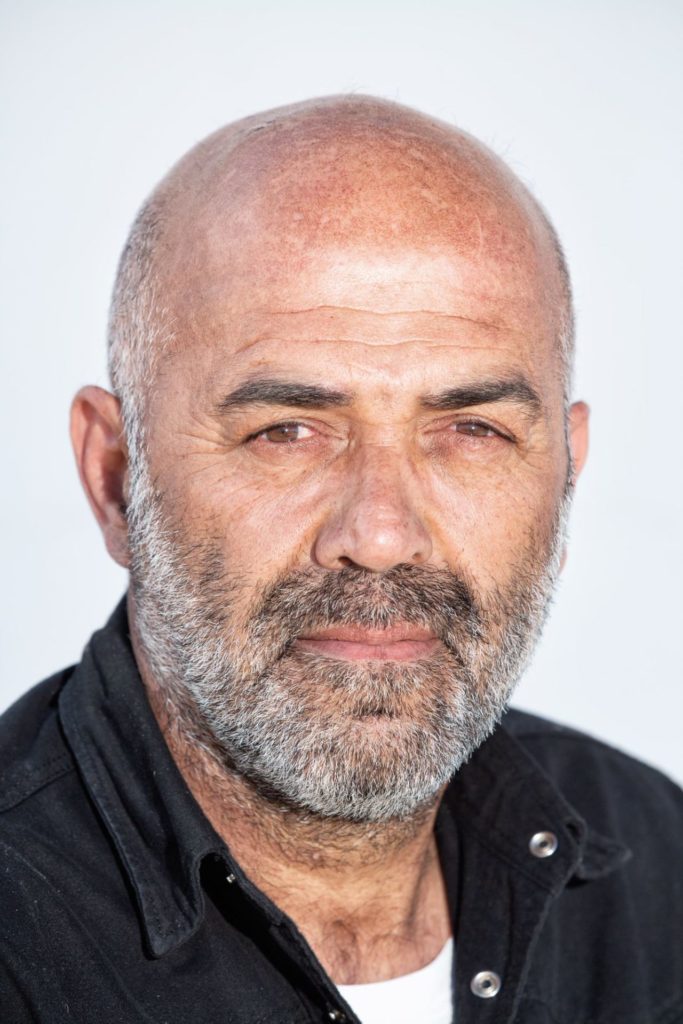
Giorgos Syrianos, Cheesemaker and Livestock Breeder in Mykonos
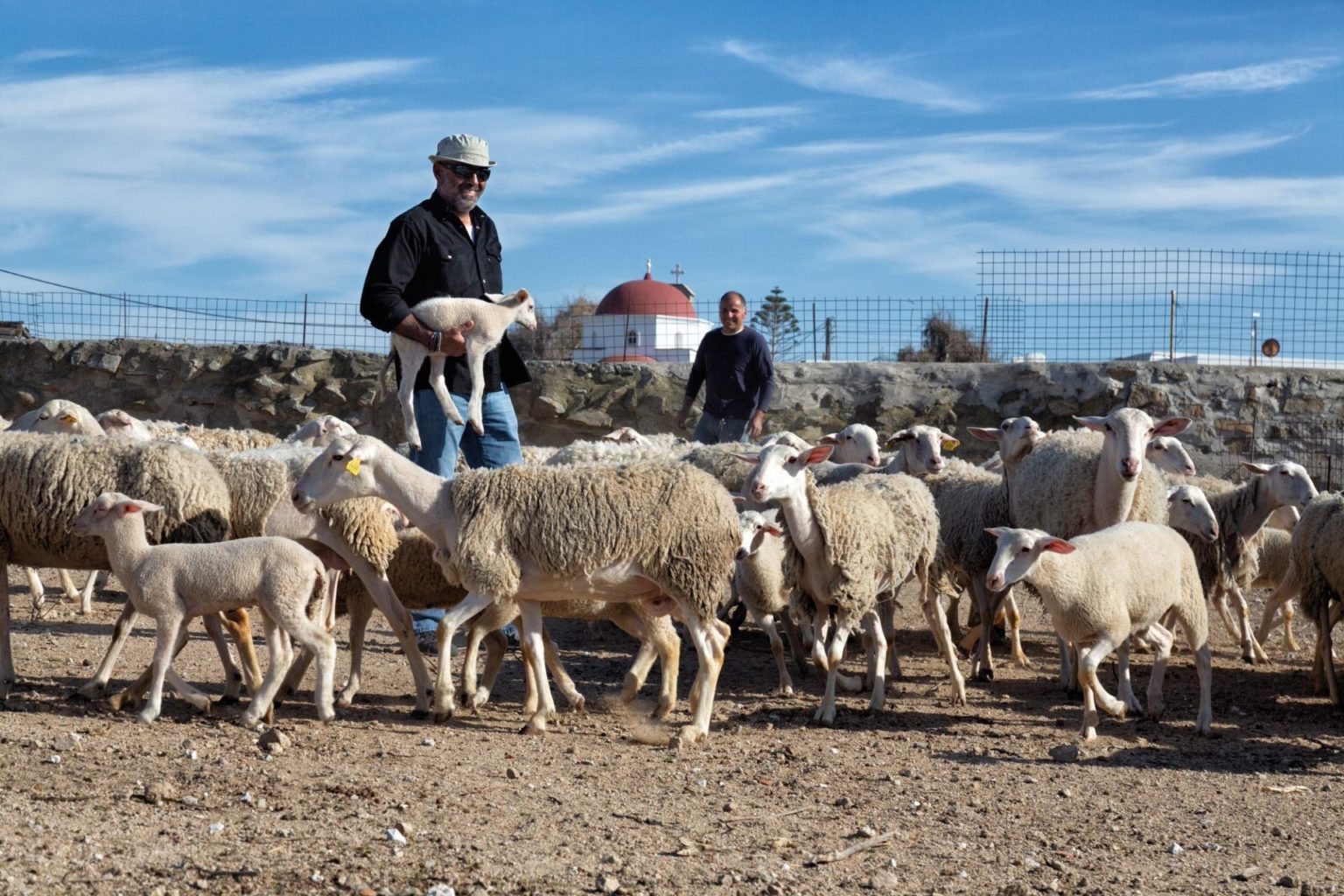
“The lockdown was a rough patch for us, because we closed the dairy. We sell our products mainly on the local market and hope that the situation will get better and the tourism will return to some extent, allowing us to sell.”
Giorgos Syrianos, Cheesemaker and Livestock Breeder in Mykonos
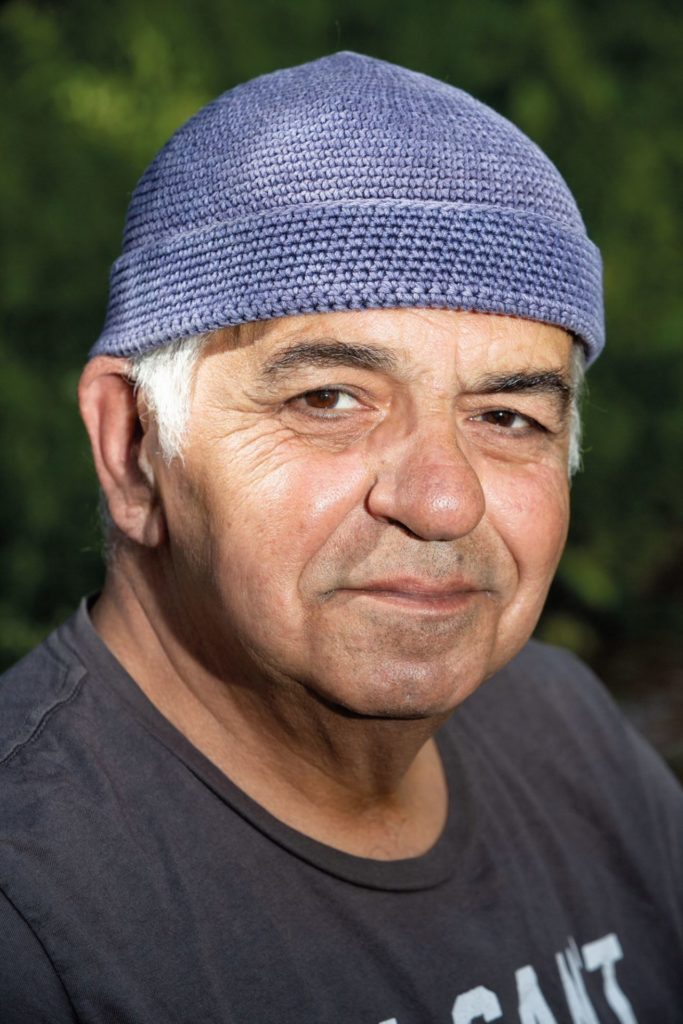
Makis Kontizas, Mykonos open-air cinema
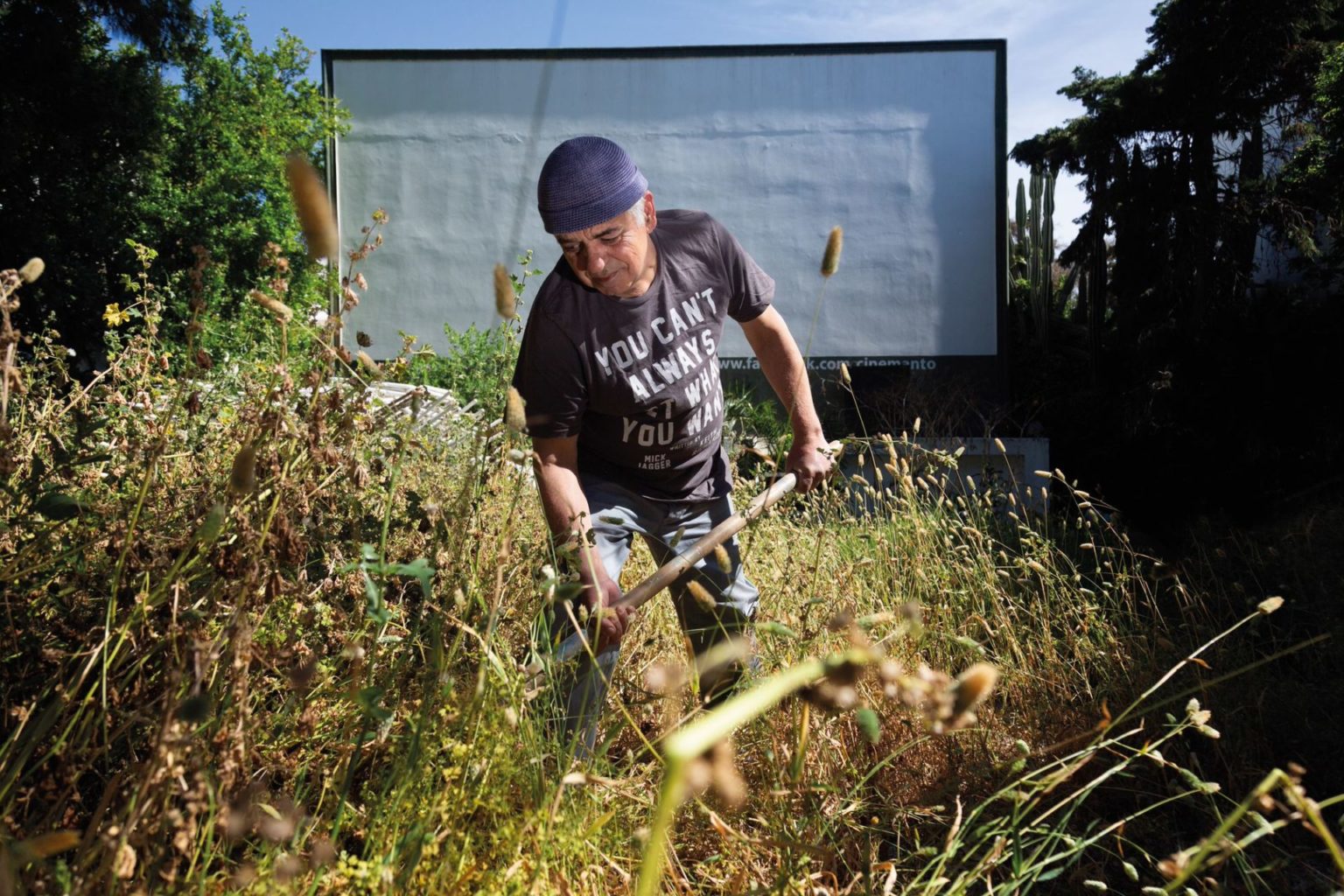
“We weed the plot to see the final number of seats allows and await for the instructions of Civil Protection”
Makis Kontizas, Mykonos open-air cinema
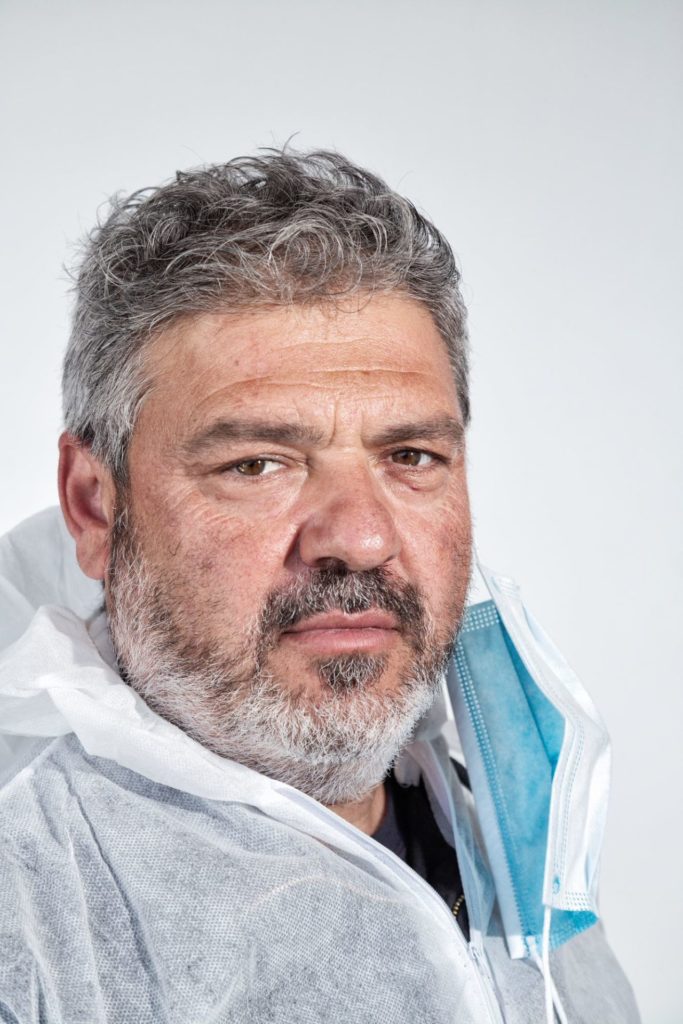
Michalis Kontizas, Mykonos Municipality Clerk

Michalis Kontizas, Mykonos Municipality Clerk
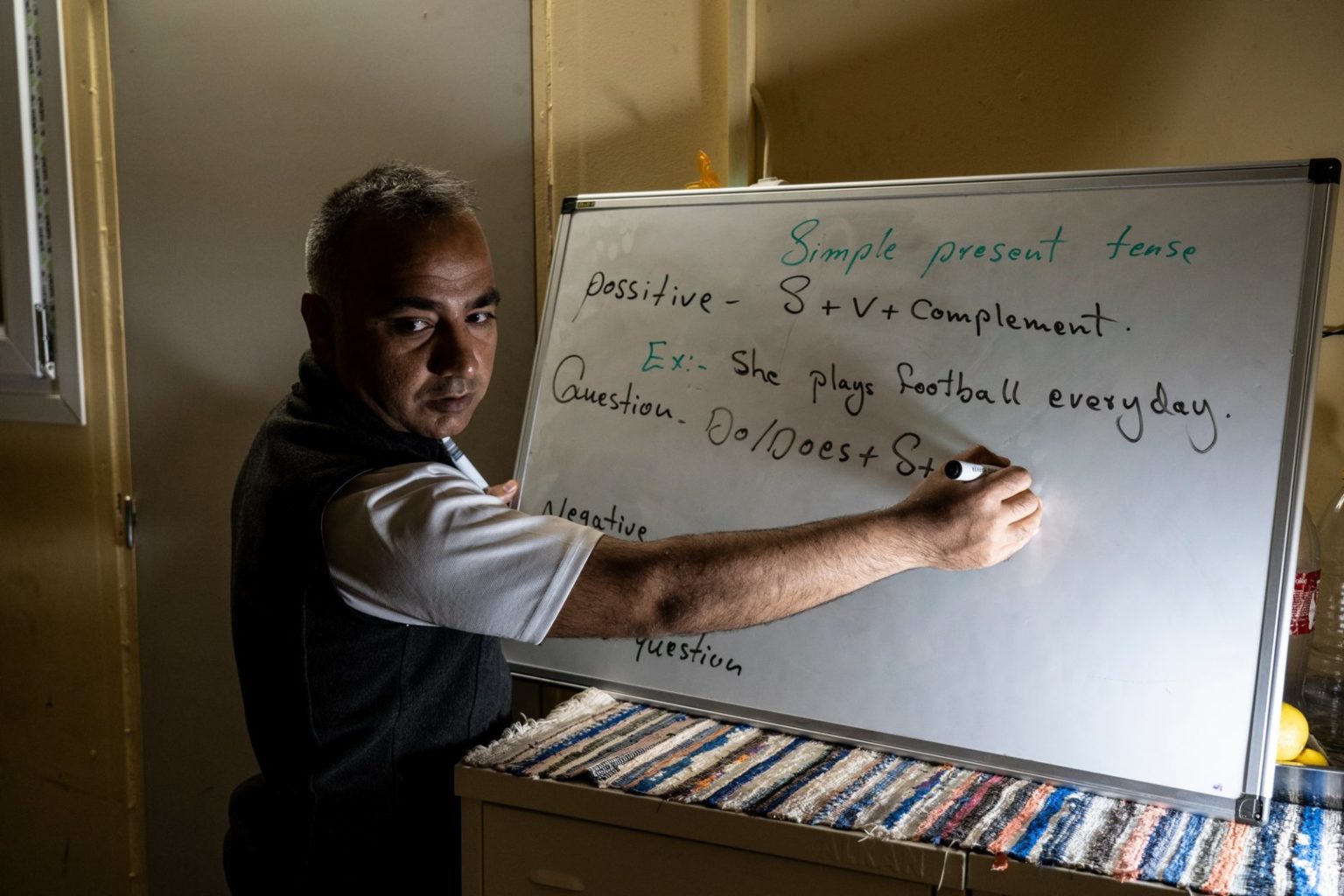
“As soon as I came here, the coronavirus appeared too. Then I said to myself that I had to do something about it, or I would lose my mind. So I decided to offer free English language lessons to the refugees that are trapped here”
Farid Sidiqi, Afghanistan
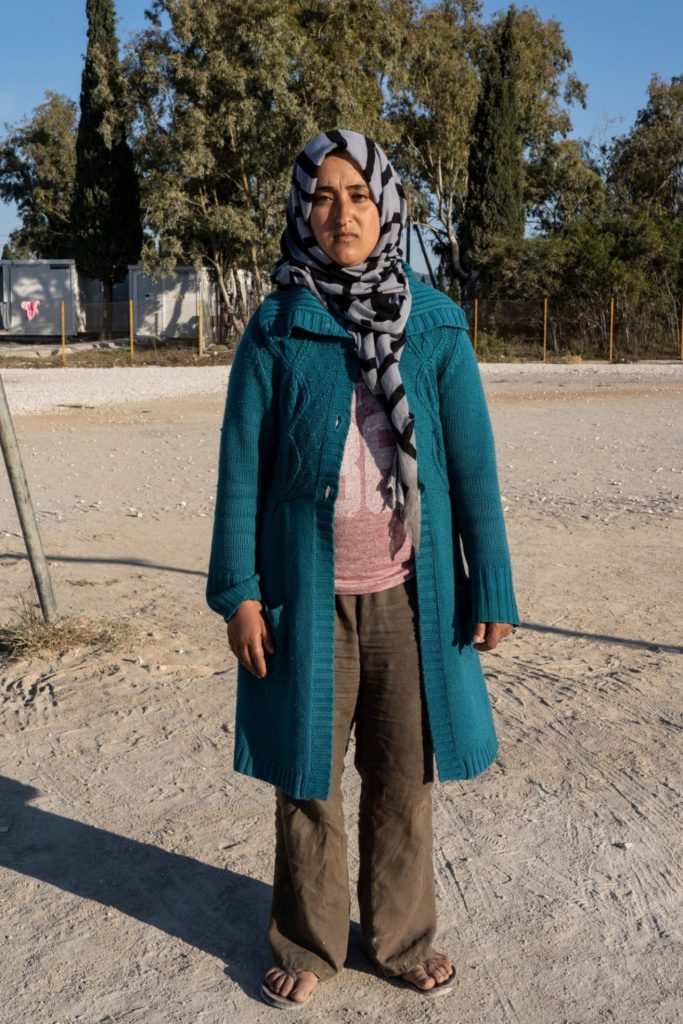
“I was eight months pregnant and a month ago I lost my baby. Now I’m stuck in Greece and cannot continue my journey to Germany, because of the coronavirus”
Amina Saada, 35 y.o., Palestine
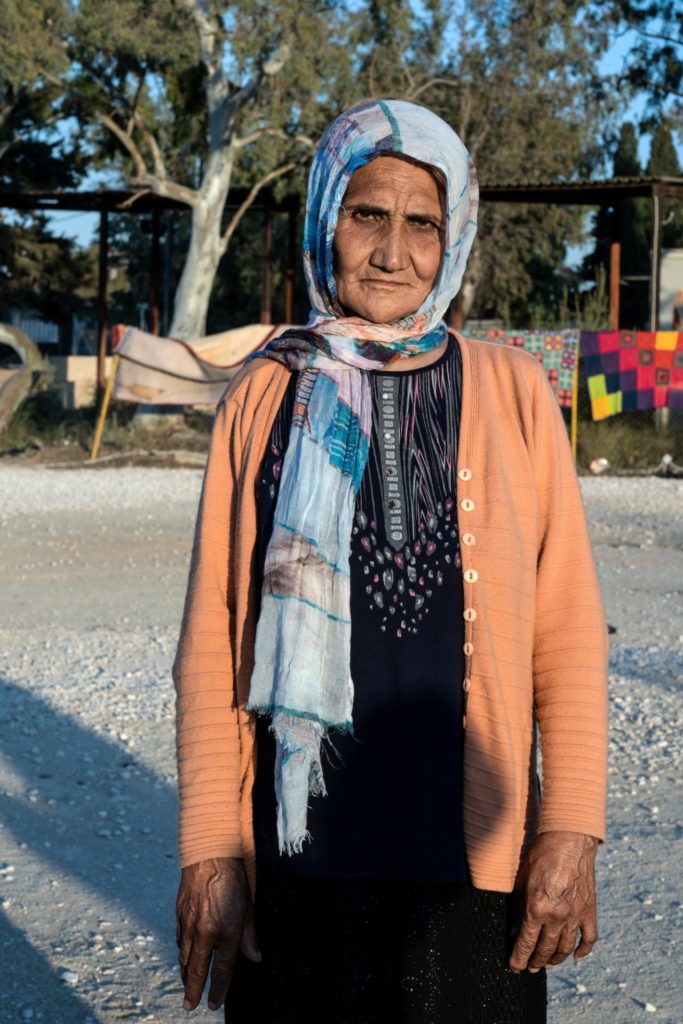
“When I came to Greece, they promised me I would stay in a beautiful house. Instead, I was brought at a camp and live with 700 other refugees running the risk of getting coronavirus”
Parwin Naiiby, 58 y.o., Afghanistan
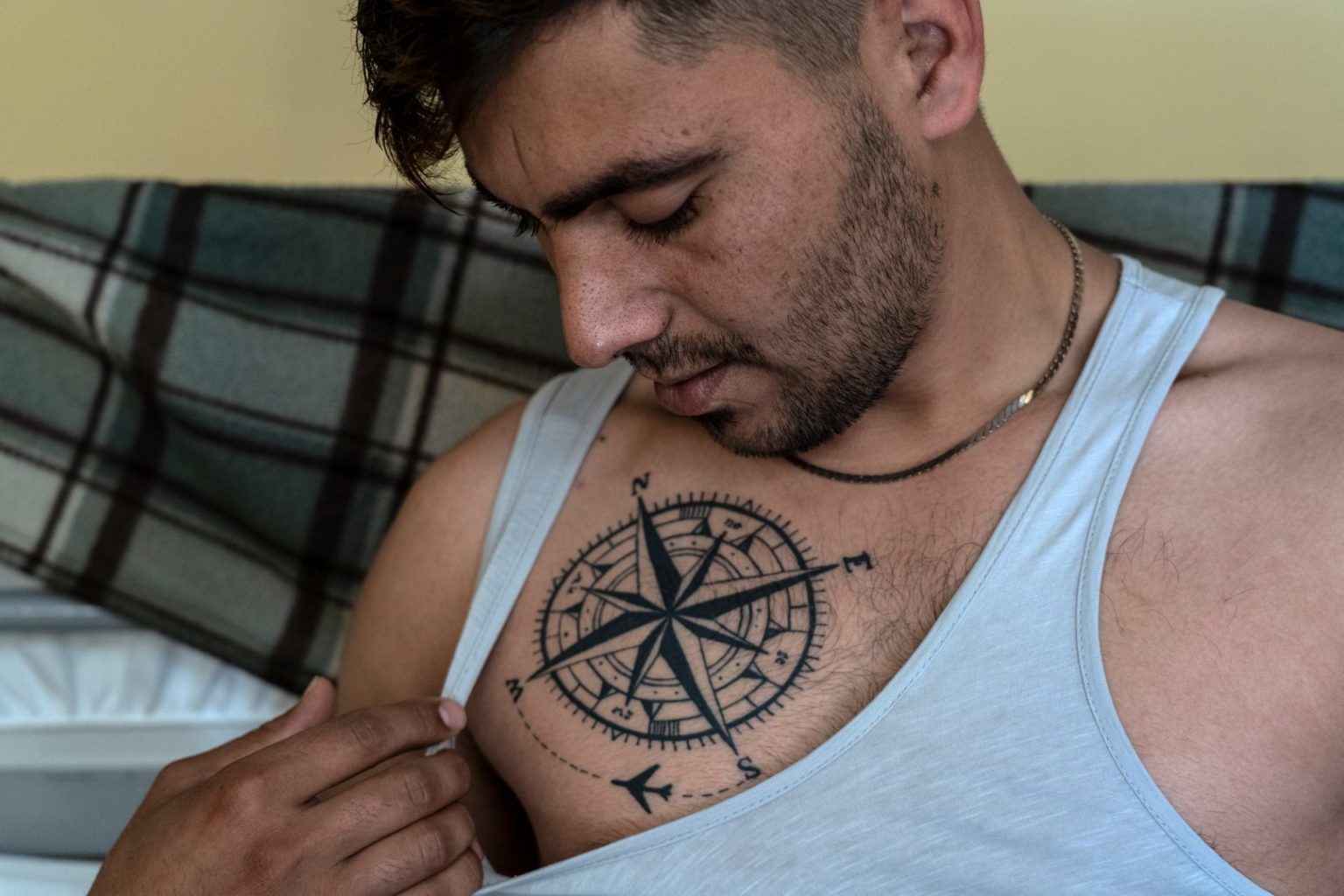
“With the pandemic my journey to Germany was cancelled. Before I came to Greece, I had this tattoo done. It is a compass to always remind me the final destination of this journey. The West”
Ehsan Attayee, 19 y.o., Afghanistan
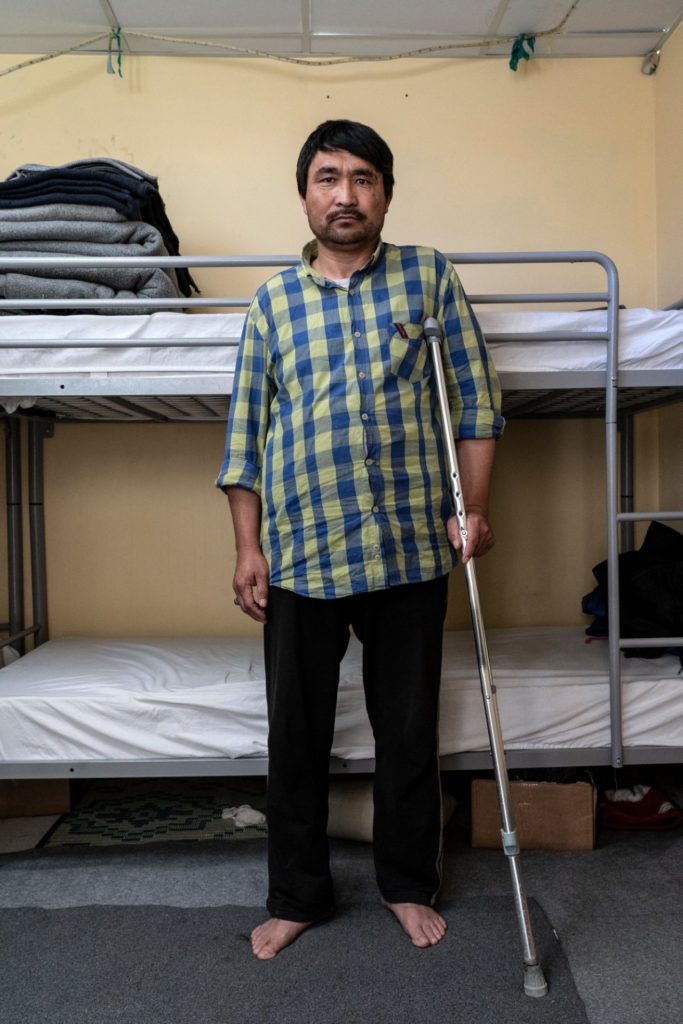
“I've broken both my legs but cannot go to the hospital in Athens, because of the coronavirus. I’m in great pain now and can hardly walk”
Mohammad Jafari, 39 y.o., Afghanistan
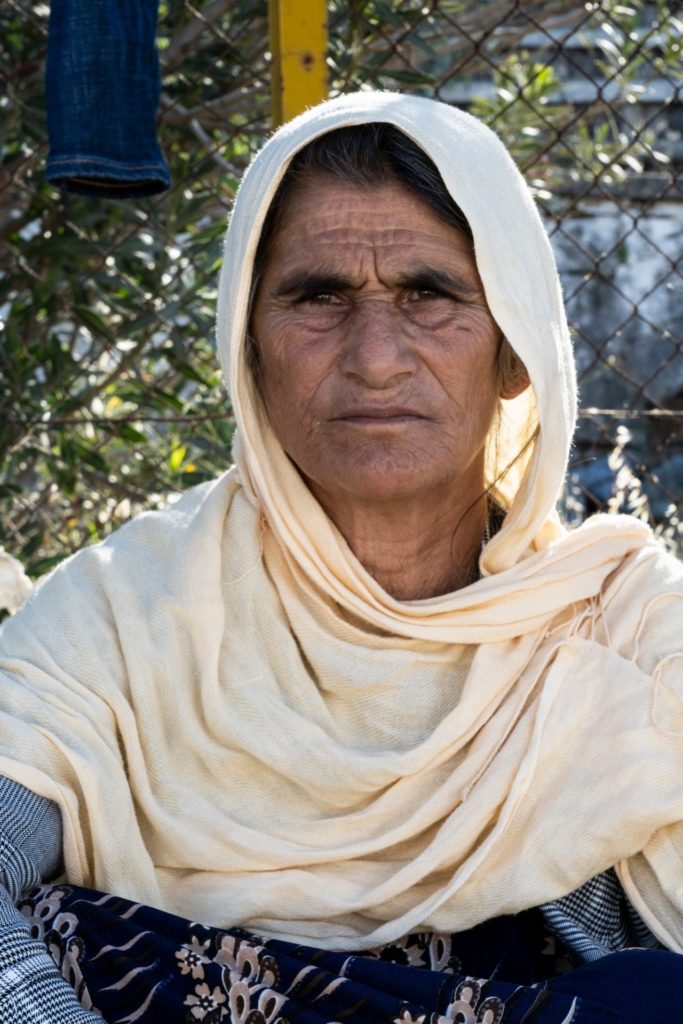
“I'm not afraid of the coronavirus. We, Afghan women are strong women”
Kobra Merzie, 65 y.o., Afghanistan
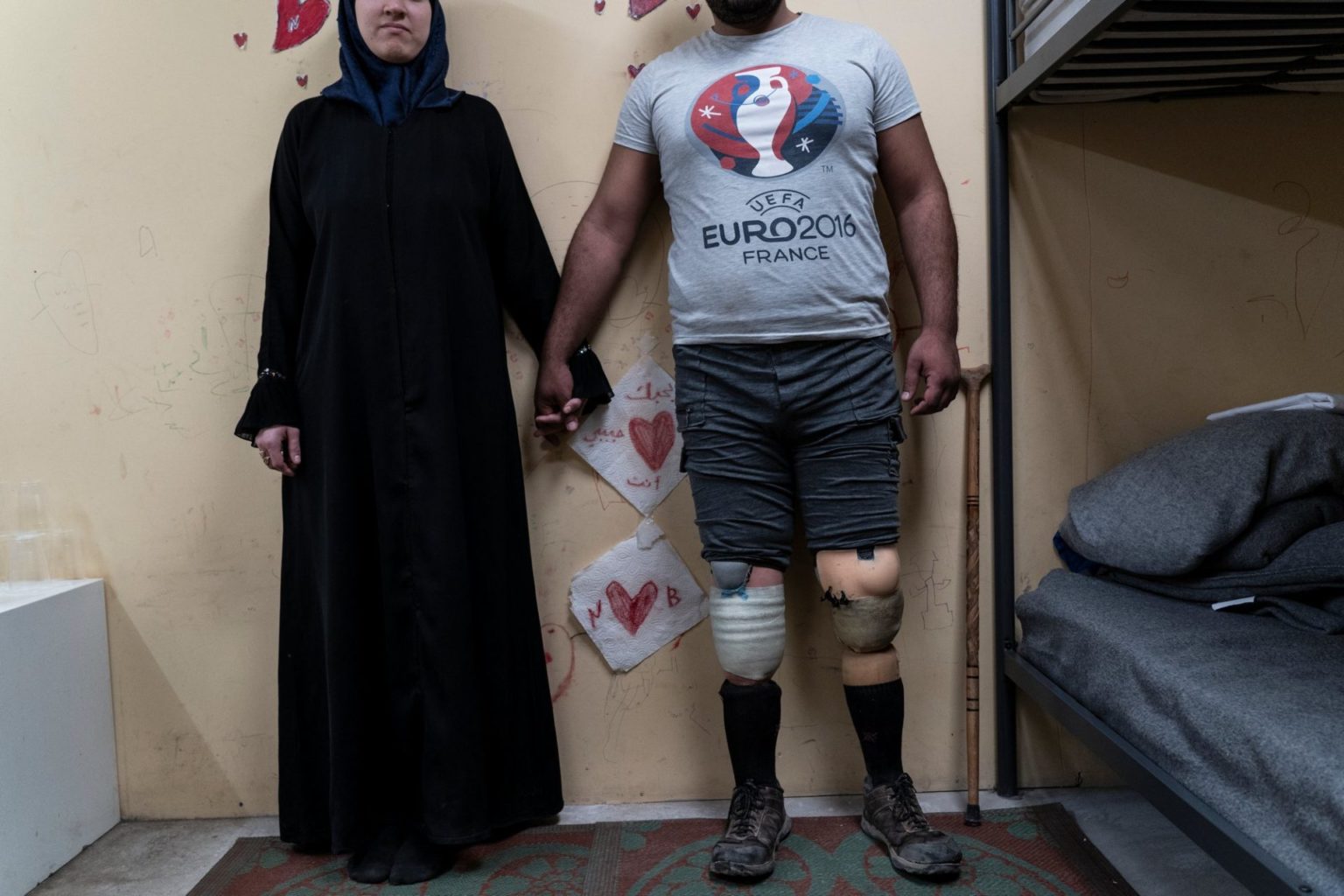
“When they bombarded my home, five people were killed and I was treated at the hospital of Ntara for two months. When I saw I had lost both my legs, I decided to continue my life with even greater passion and strength than before.”
Naji Albader met Baraa six months ago at Kos refugee camp. They got married there. They dream of continuing their journey to England after the end of the pandemic.
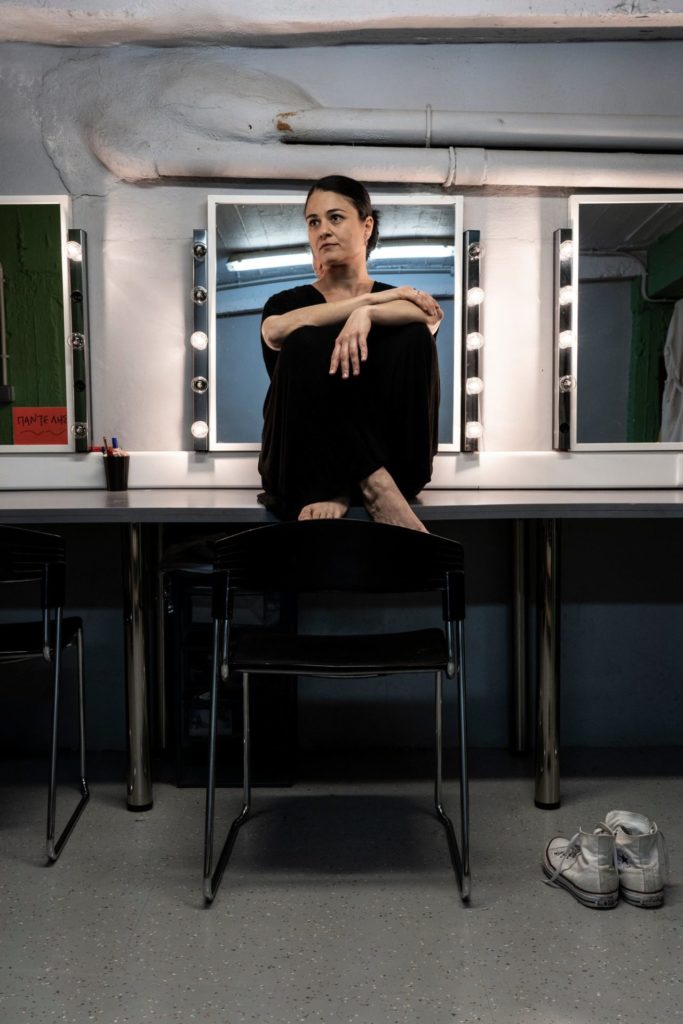
“On the first post-pandemic show, I think we will be crying with joy and longing”
Nantia Dalkyriadou, Actress
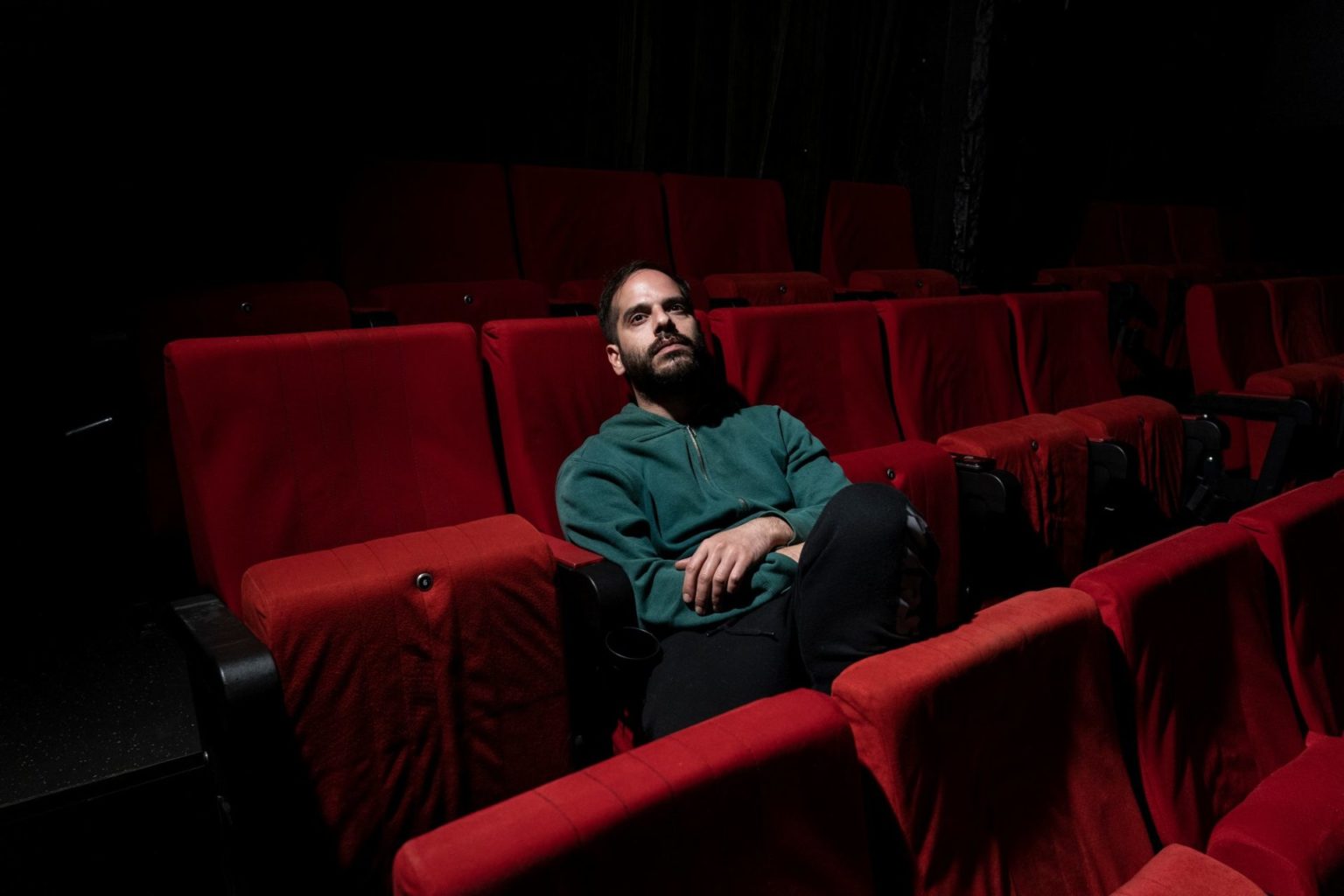
“Will I ever perform on stage again? And if so, when? And how?”
Lazaros Vartanis, Actor
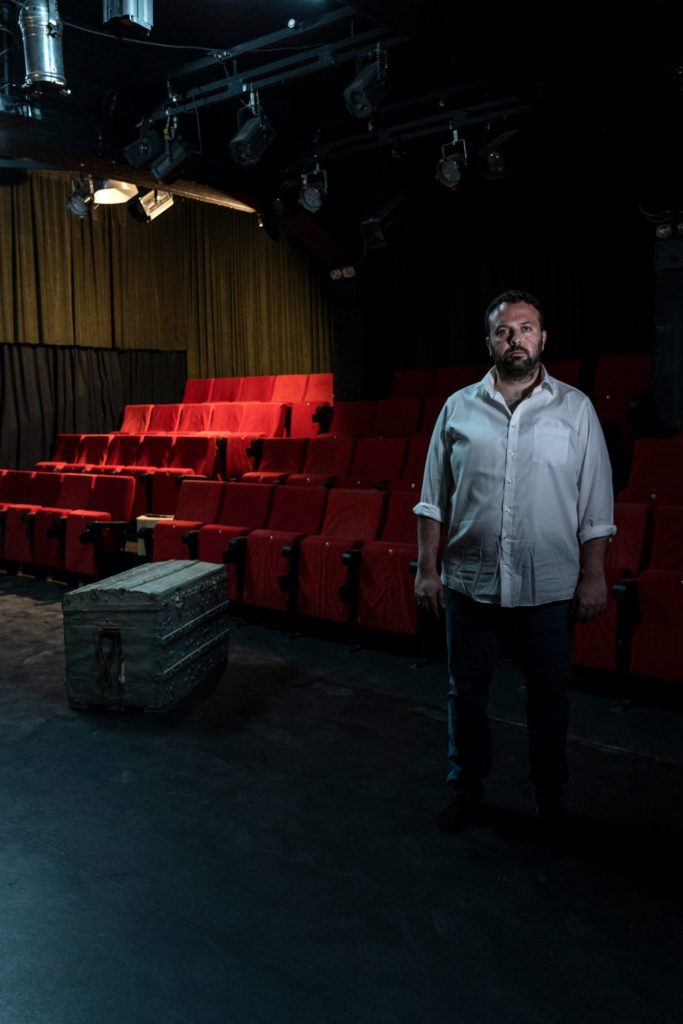
“Let's stay strong, until we meet again under the spotlight”
Dimitris Hatzimichailidis, Actor
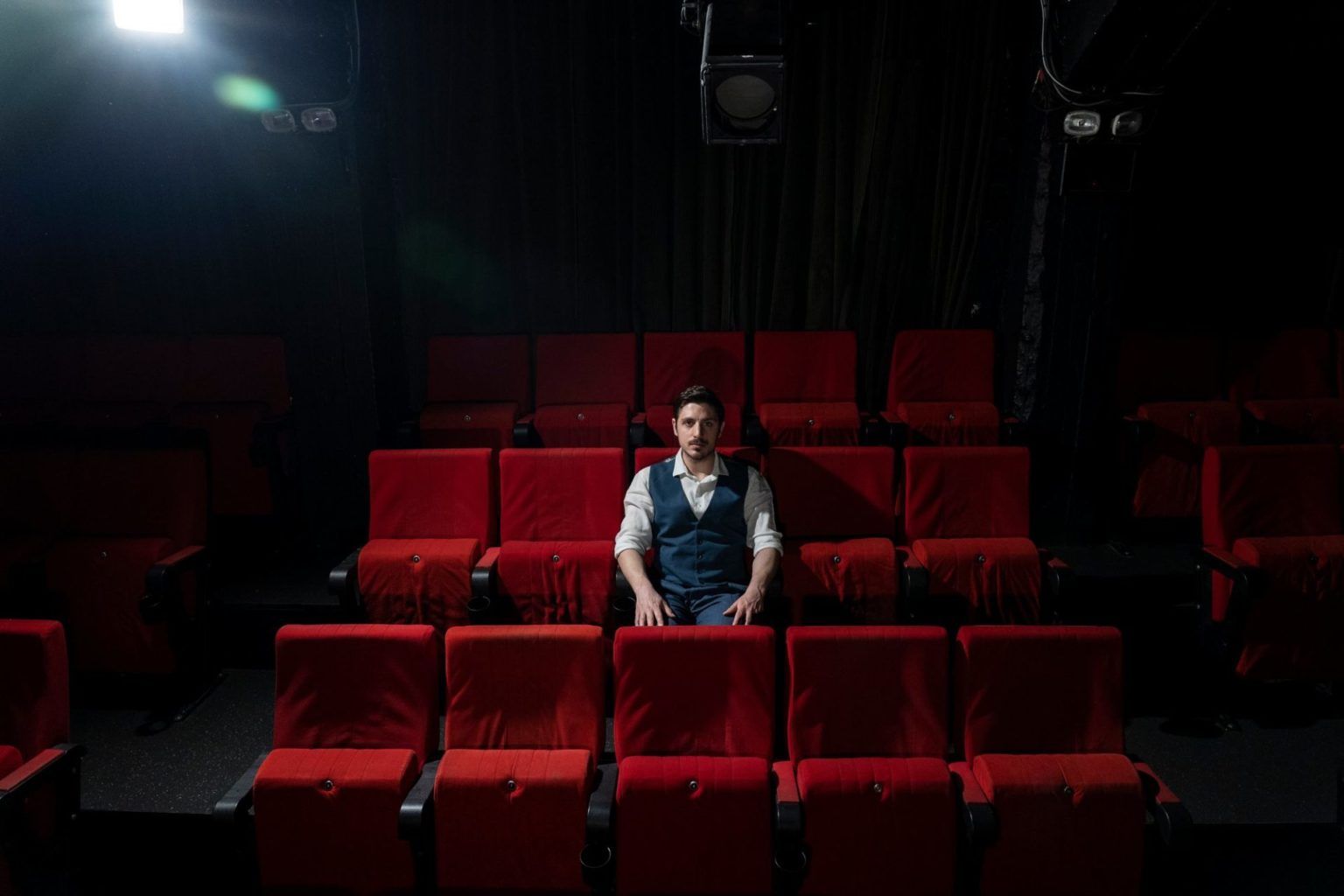
“No matter how dark it is, we always look towards the light”
Stefanos Papatrechas, Actor
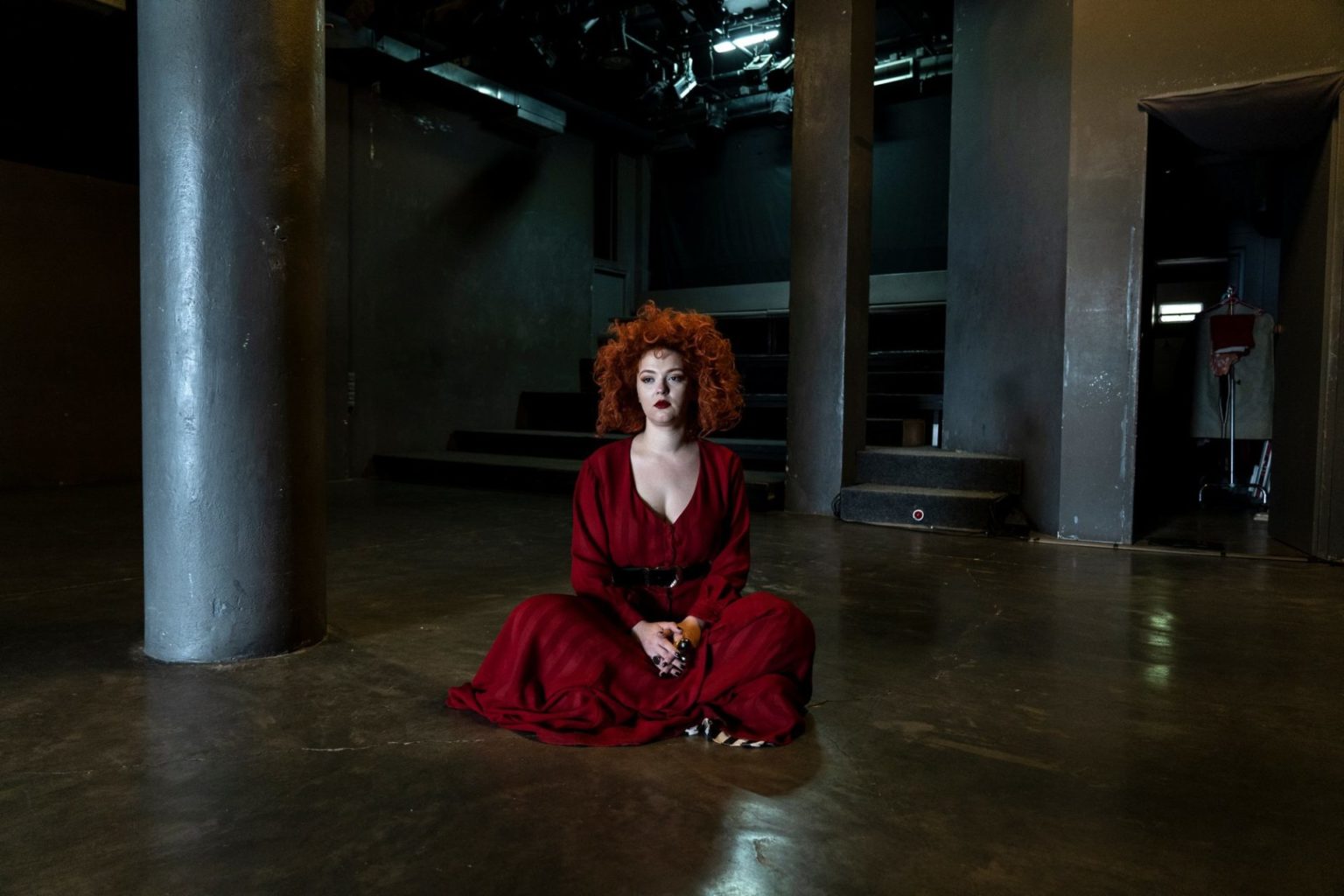
Manto Psychountaki, Scenographer – Costume designer
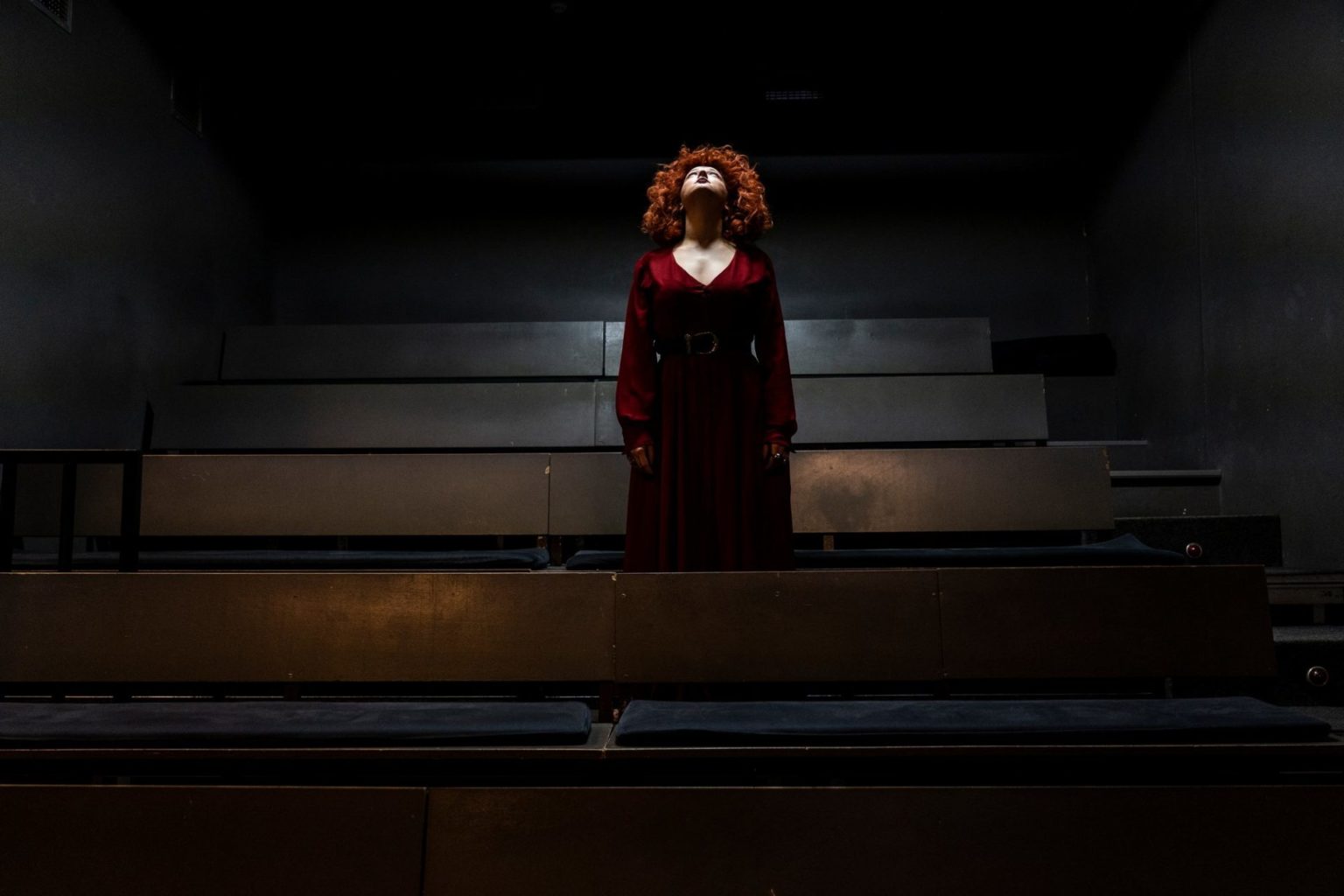
“Art is our weapon against death and if we waste it we are dead already. Can you imagine your life without music, books, theatre, films, painting? This is what will happen!”
Manto Psychountaki, Scenographer – Costume designer
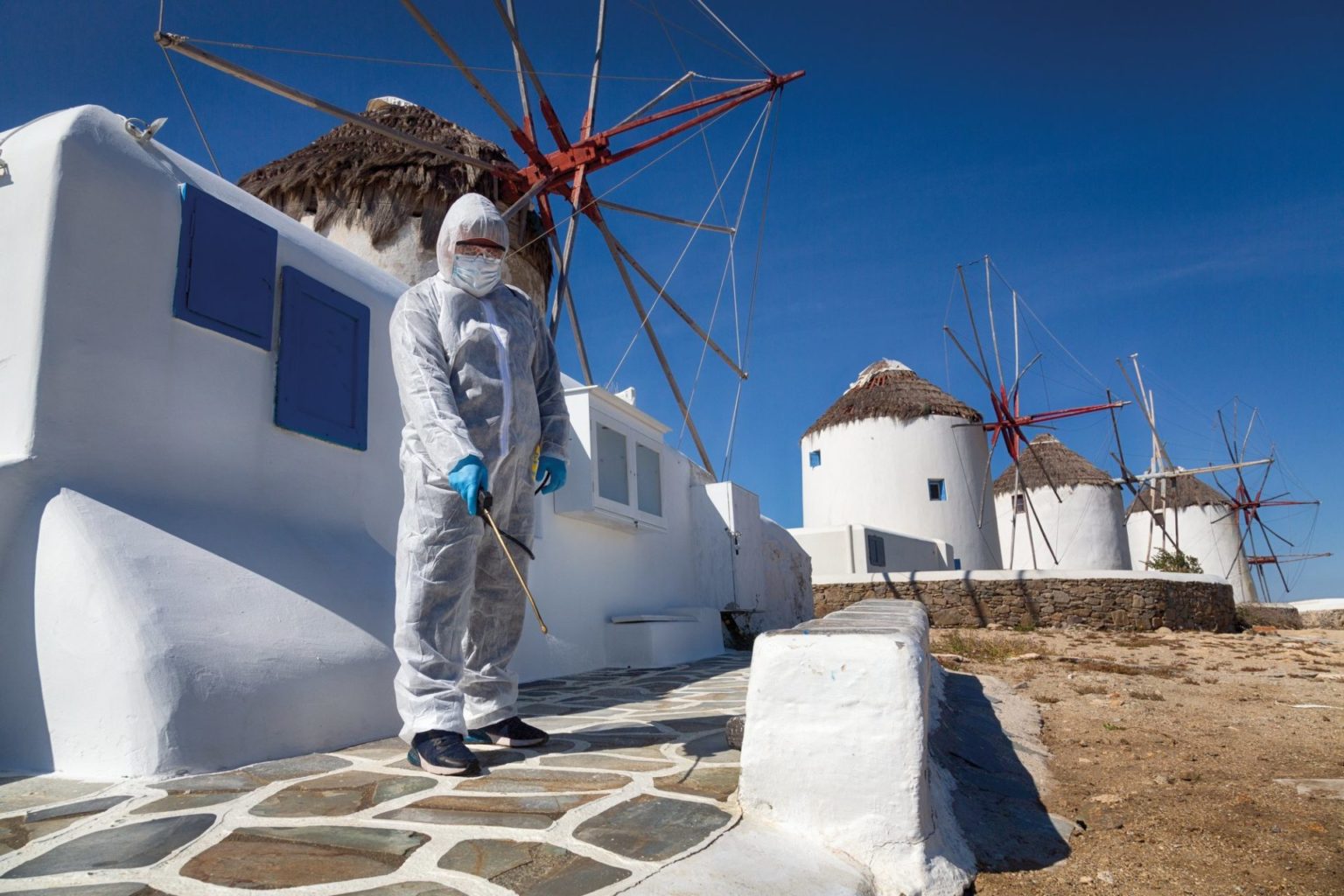
“Even after the lift of the tourism ban, the goal for all, locals and guests alike, is to remain safe”
Michalis Kontizas, Mykonos Municipality Clerk
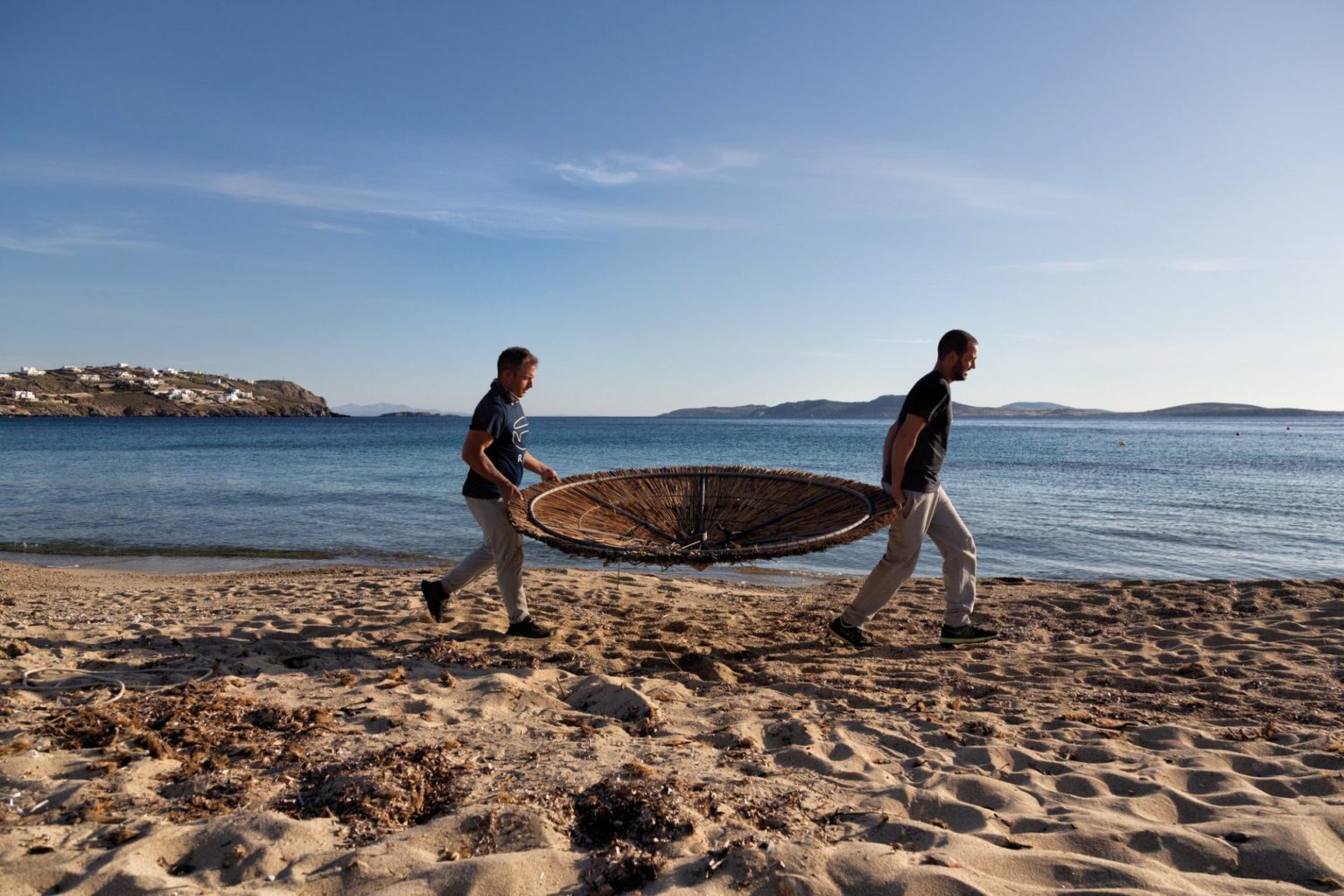
“We are not after the money, we are old-school Mykonos. We prepare and just wait and see what happens.
Nikos Papadopoulos and Michalis Zouganelis, Mykonos beach bar owner and employee
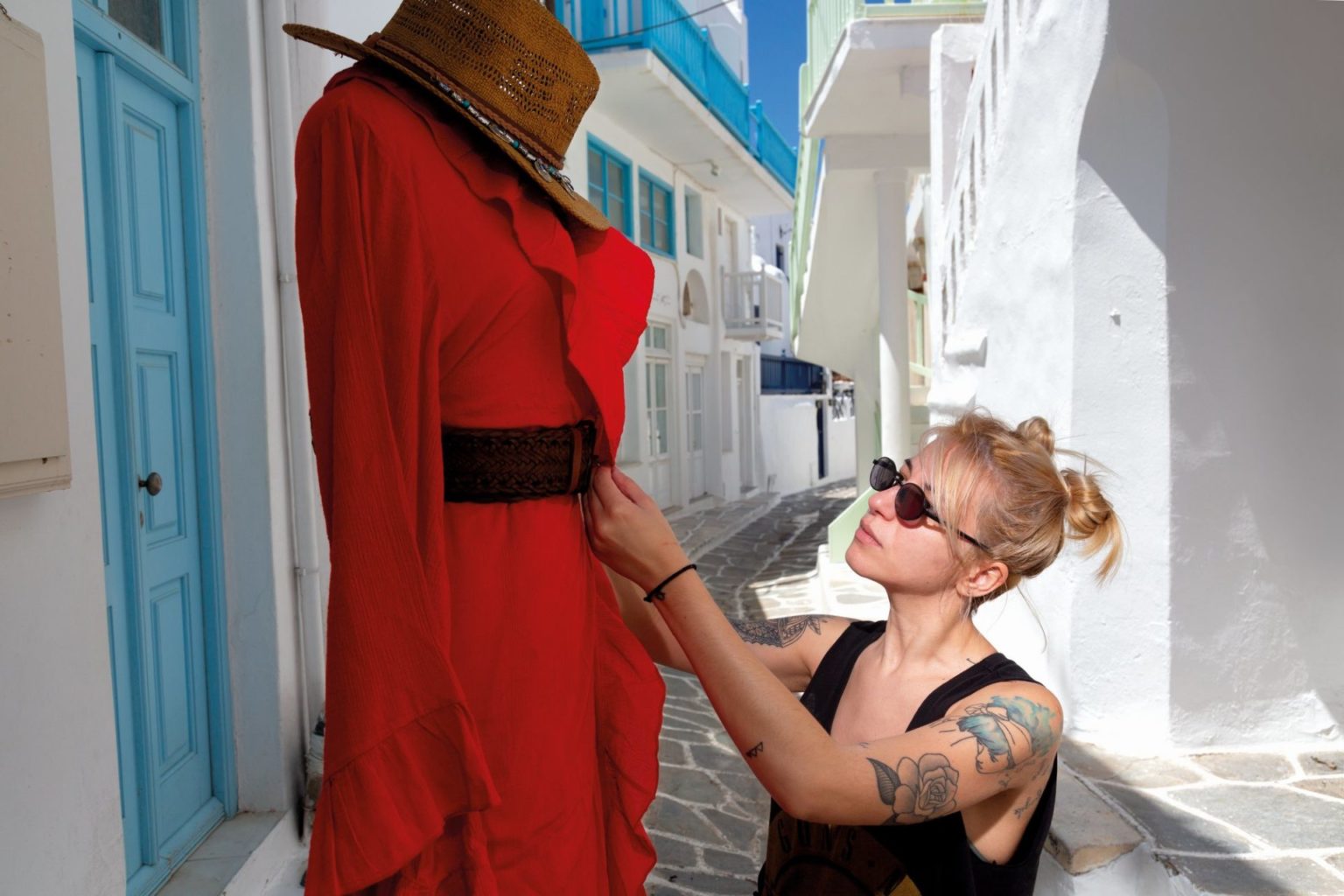
“This year will be a hard one, but if we maintain our optimist and positivity, something good will come out. After all, this is Greece”
Romina Tossi, clothes sales assistant, Mykonos
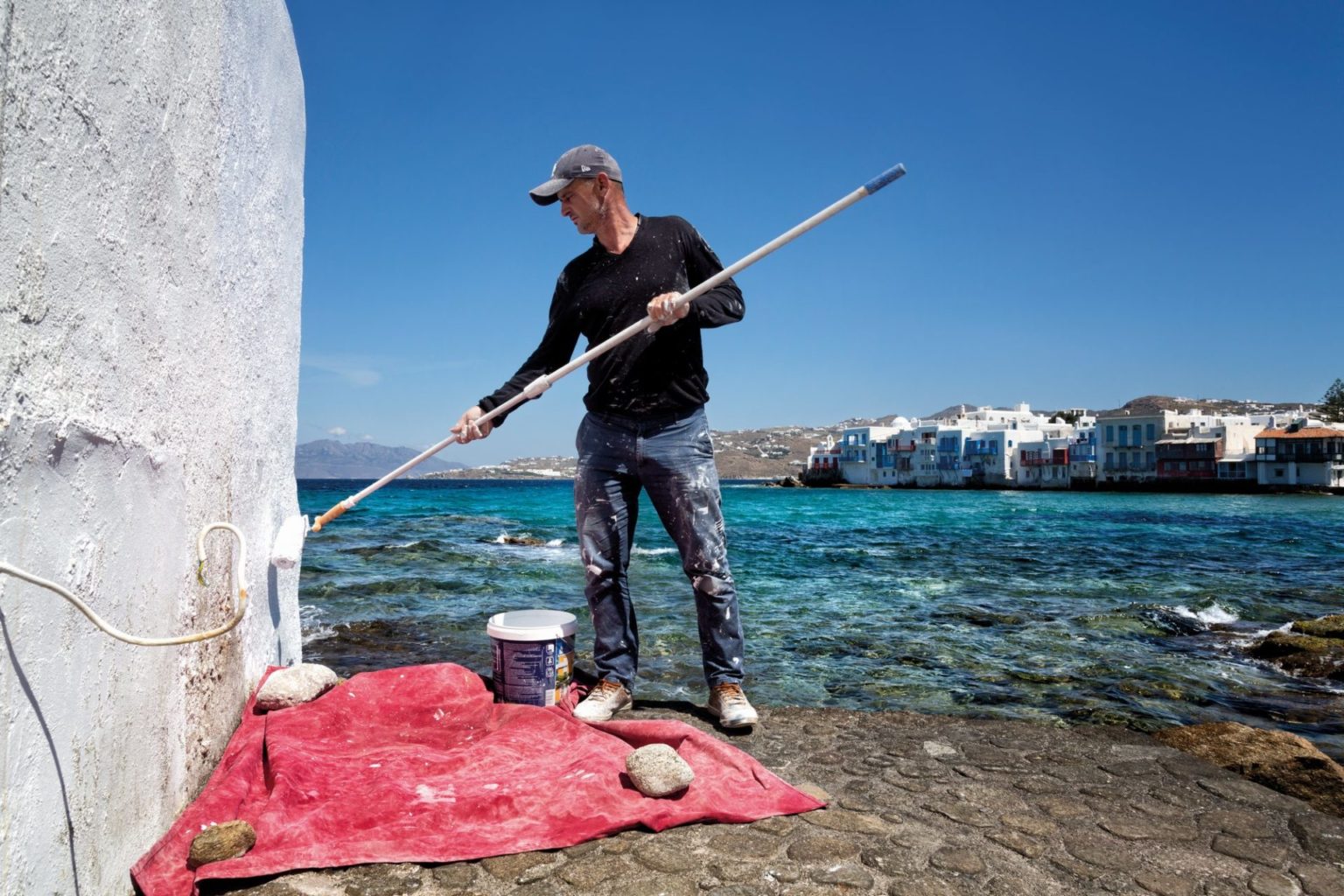
“At first we were afraid of losing our jobs completely. Luckily, it now seems that something starts moving again”
Gjovalin Vigu, Handyworker – Mykonos
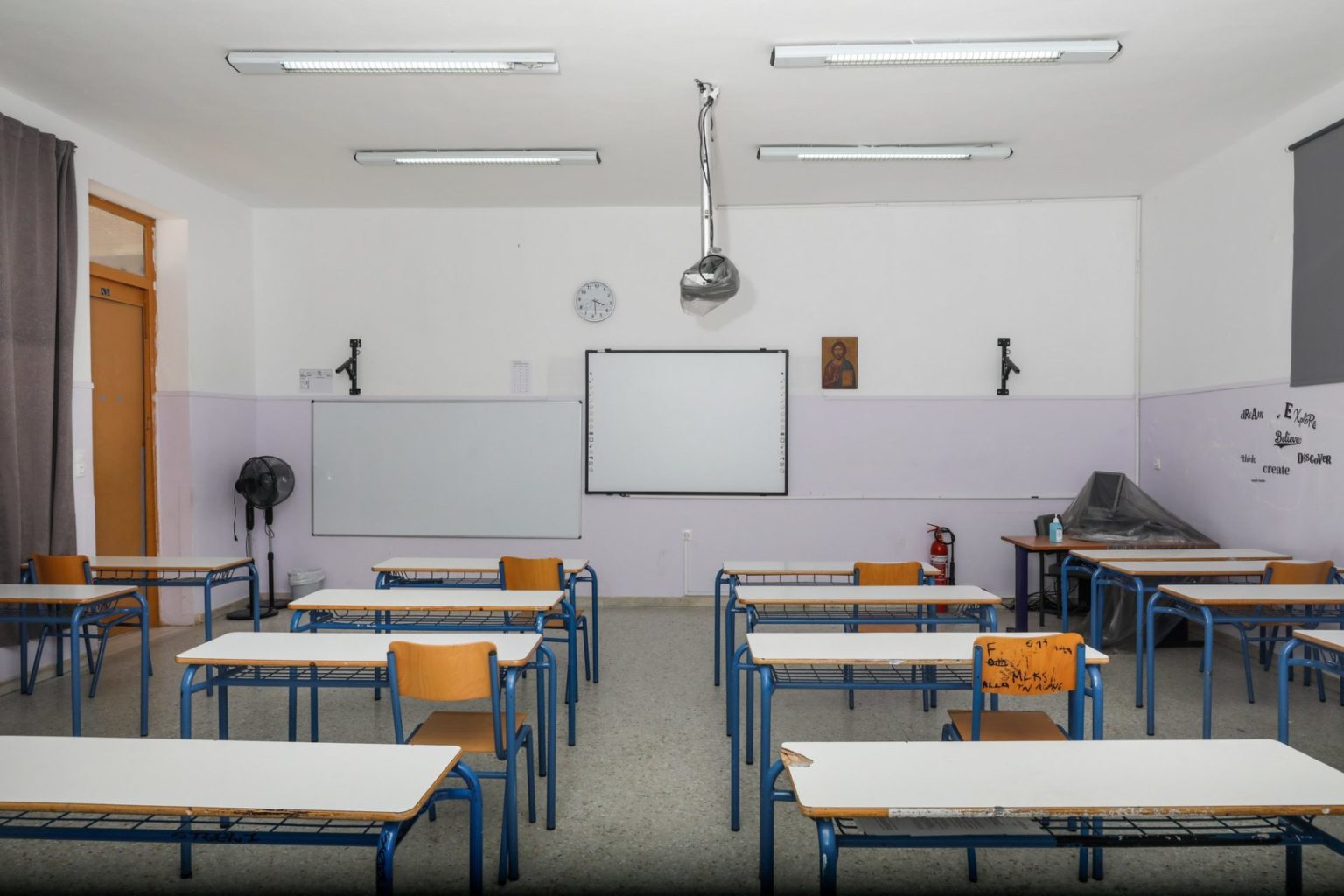
The 1st Senior High School of Cholargos, ready to welcome pupils after lockdown
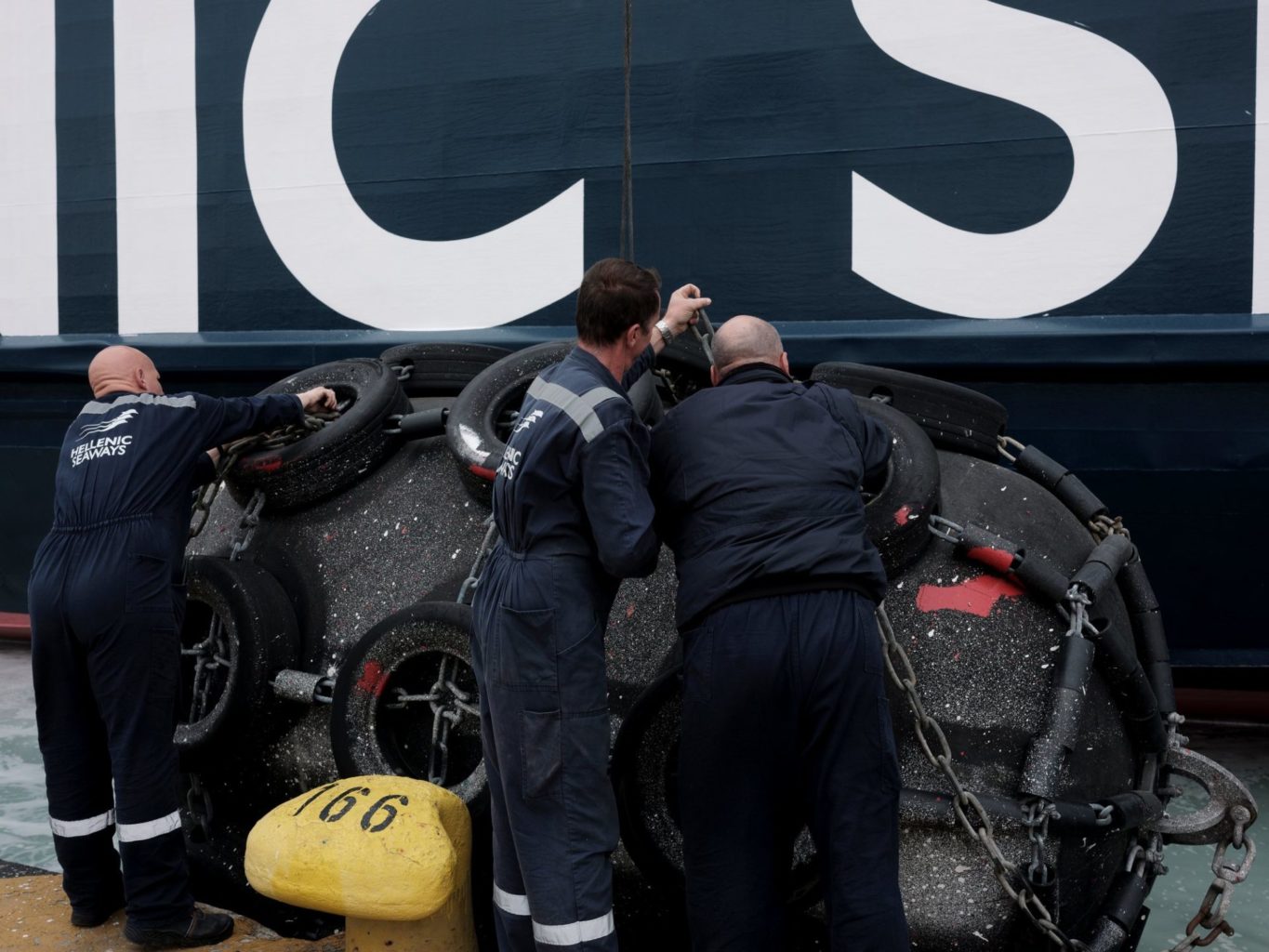
Final works on the pier for the safe docking of a ship – for an unknown period – in Piraeus port
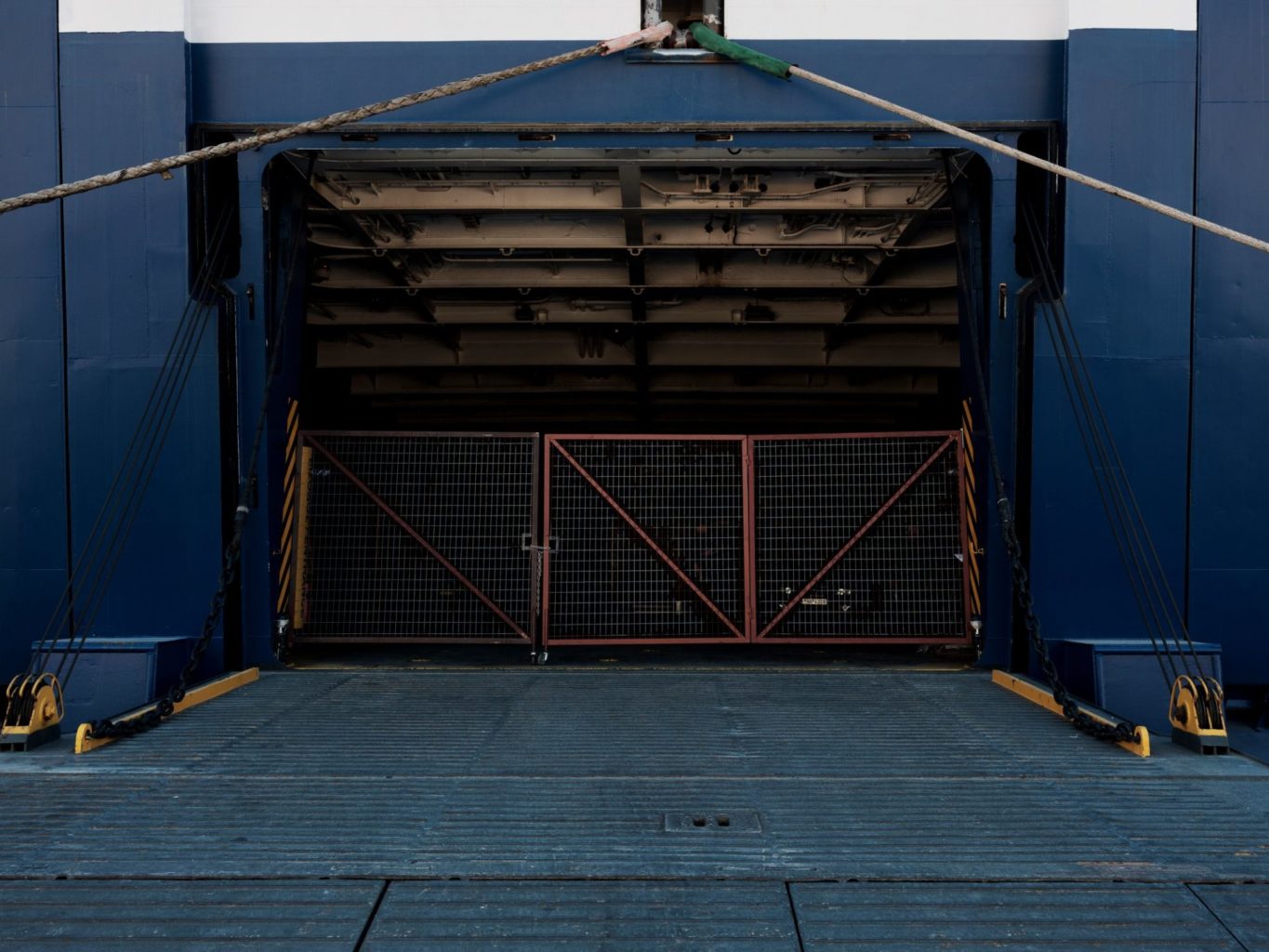
Piraeus Port
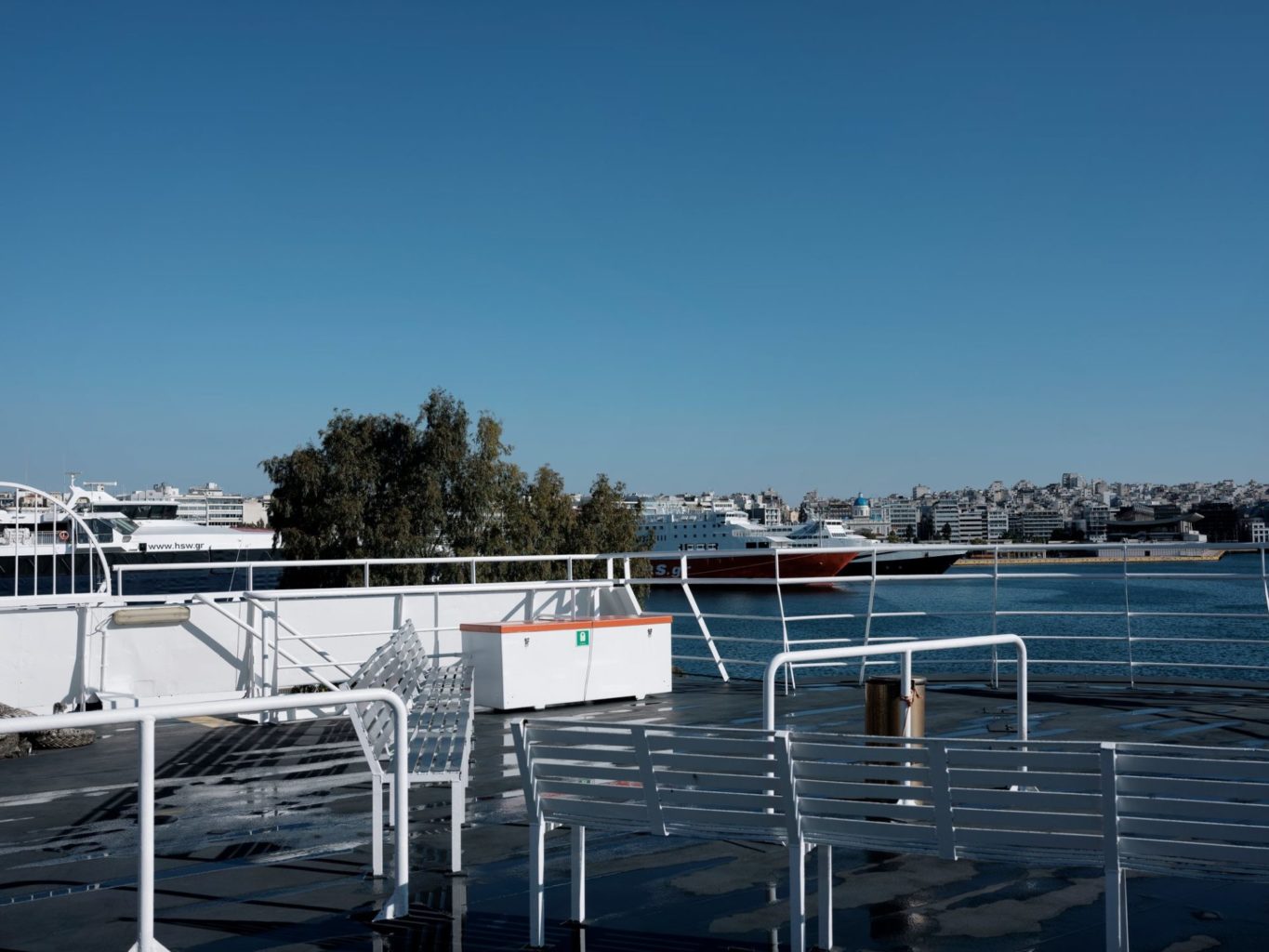
Normally, this period ships should be crowded with passengers. All this period they were only transferring patients from the islands and goods
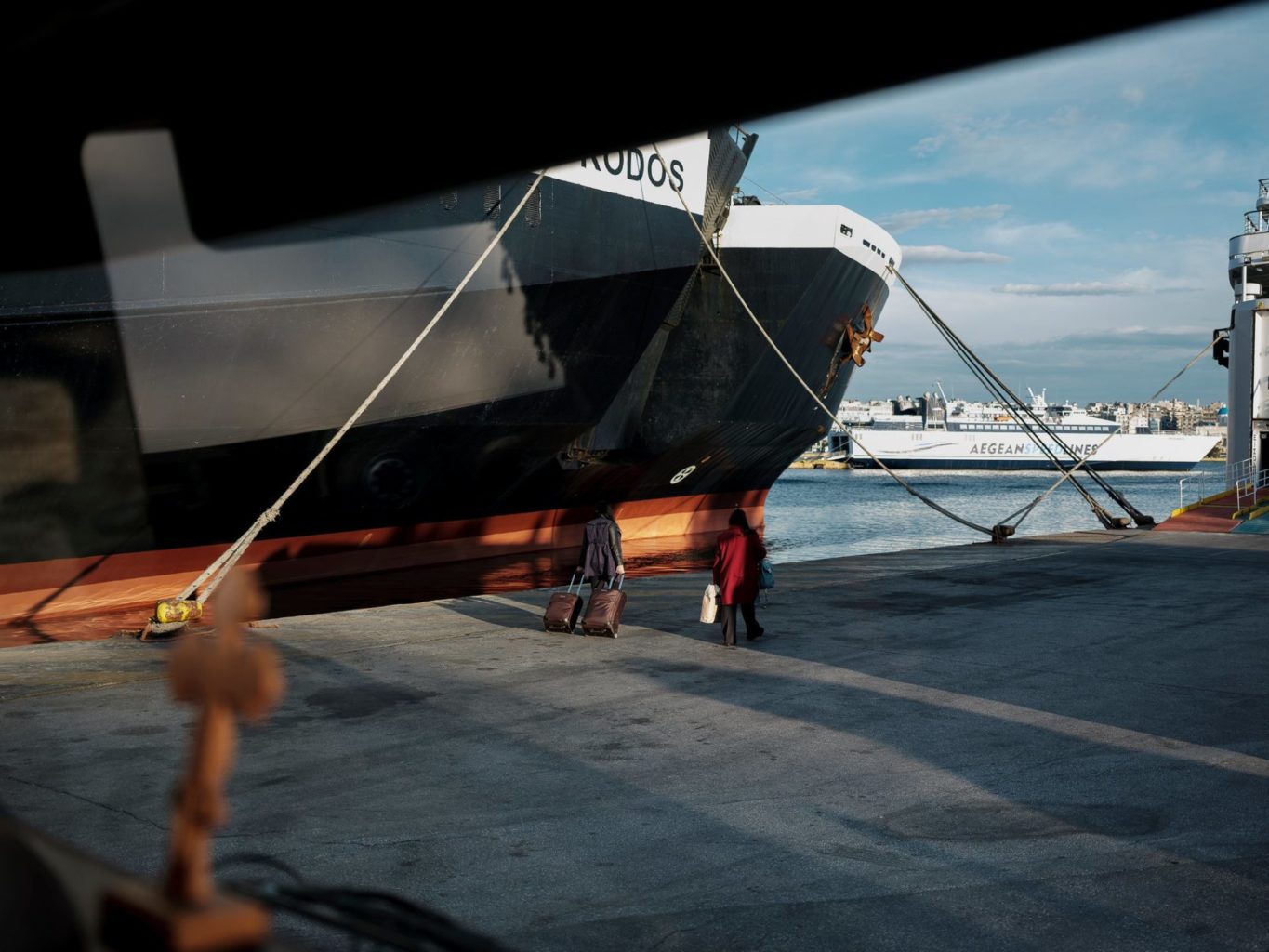
Two passengers ready to board one of the ships to Crete at Piraeus port
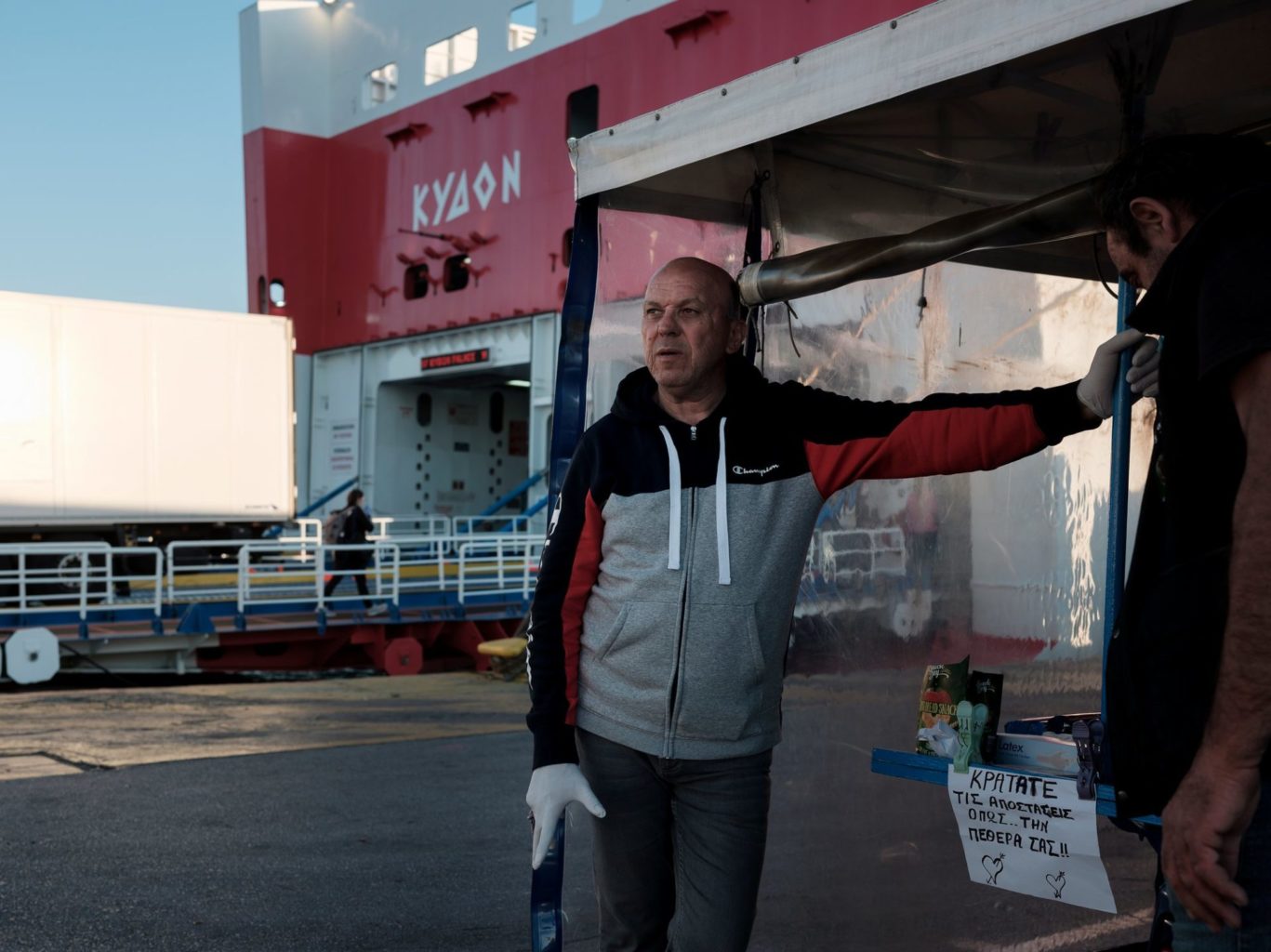
“I’m scared about the economy. Everything else sounds like terrorism to me. I have been in this port for 46 years. When you see others feeling down, you start feeling low too”
Nikolas Fortesanakis, Food Truck Owner
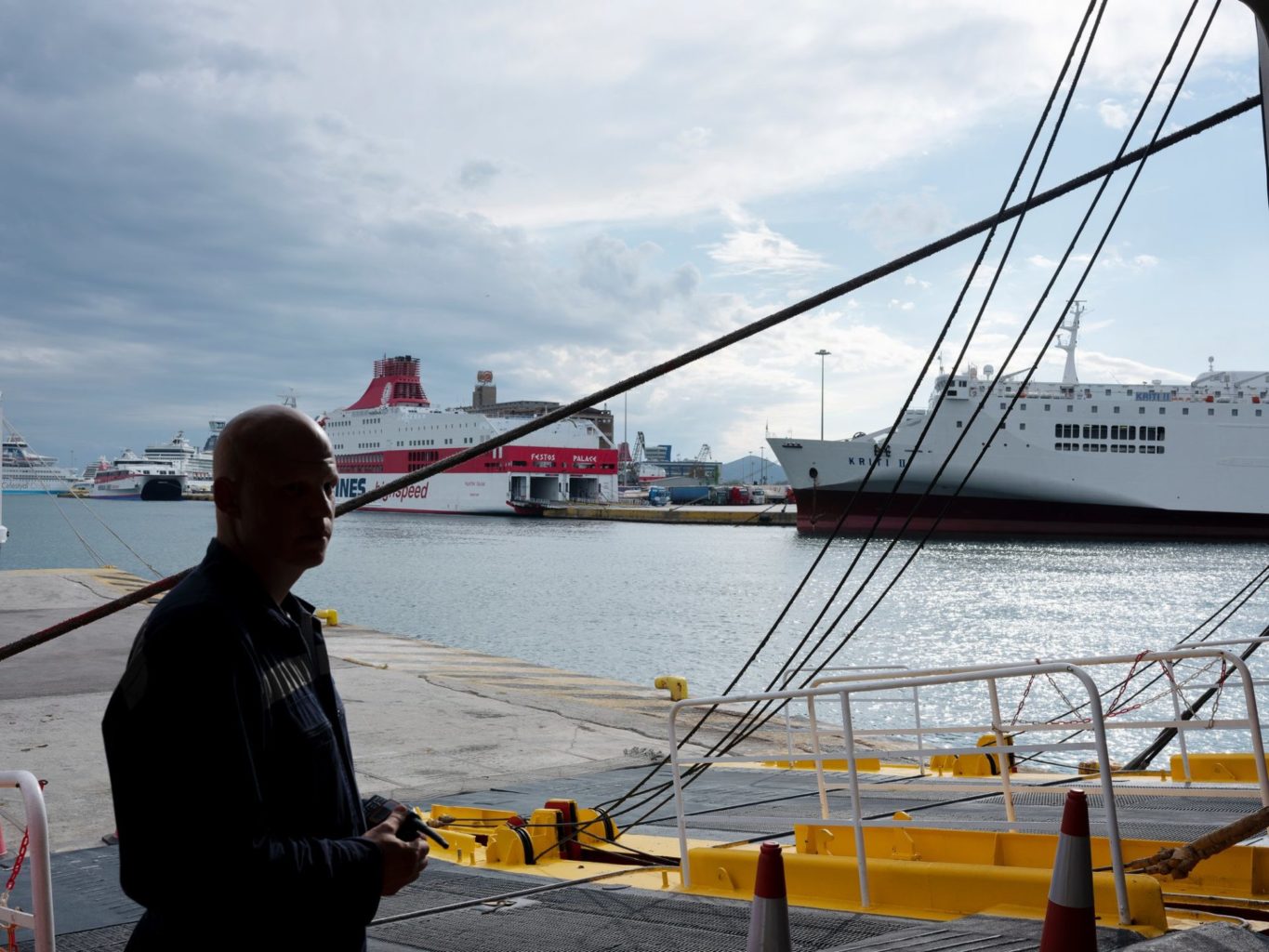
“Much of the shipping activity has now stopped. Nobody know what will happen”
Marinos Vergakis, Seaman
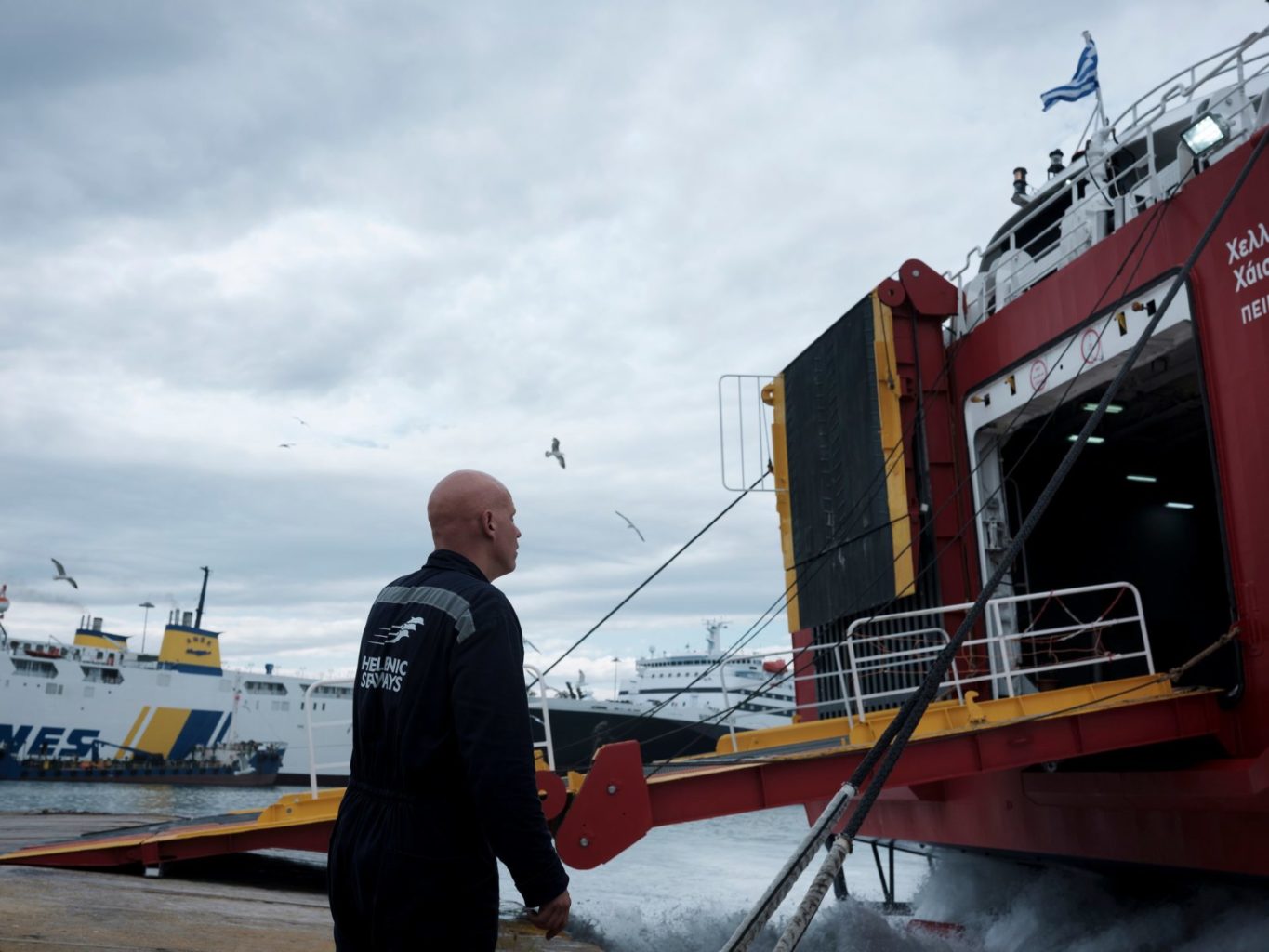
“We are doing the last works on the ship, until we know when we can sail again”
Marinos Vergakis, Seaman
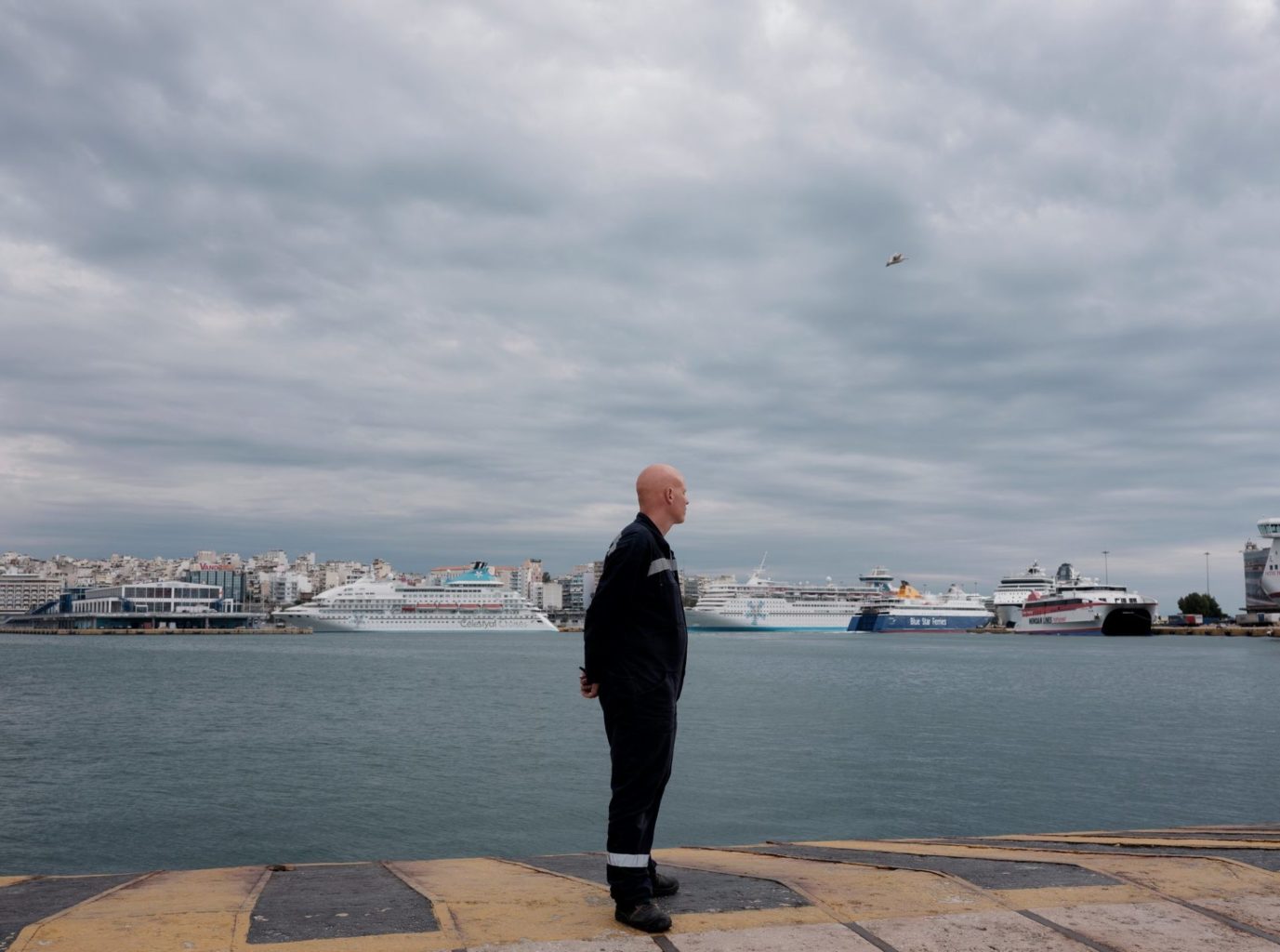
“We are all afraid of the future. Many employees have been fired, as we speak. Luckily, I'm all right”
Marinos Vergakis, Seaman
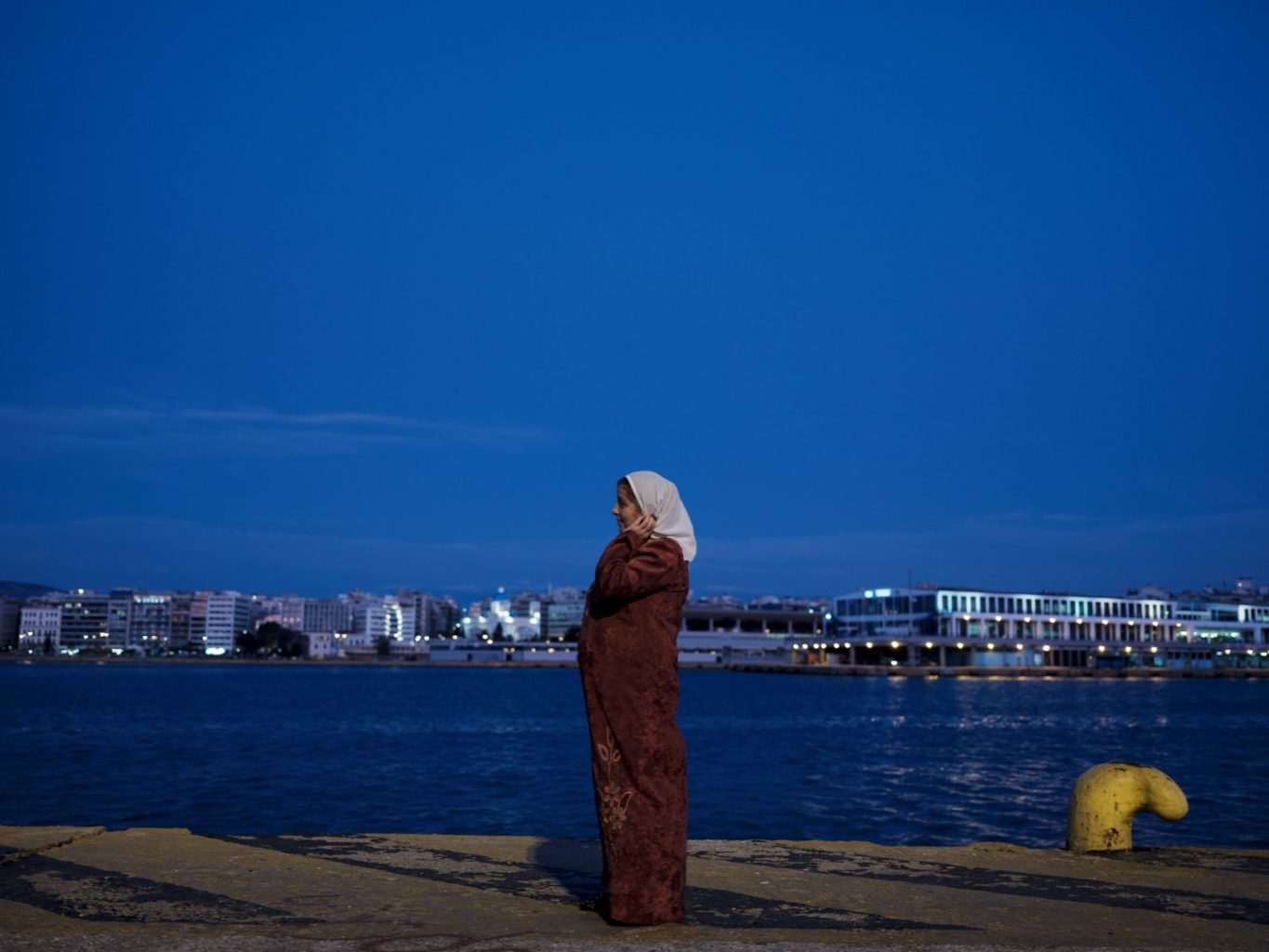
“I come from Syria. I travelled to Greece to visit my daughter, but now I'm stuck because of the coronavirus. I don't know when I'll be able to go back”
Zahira Maen, Visitor
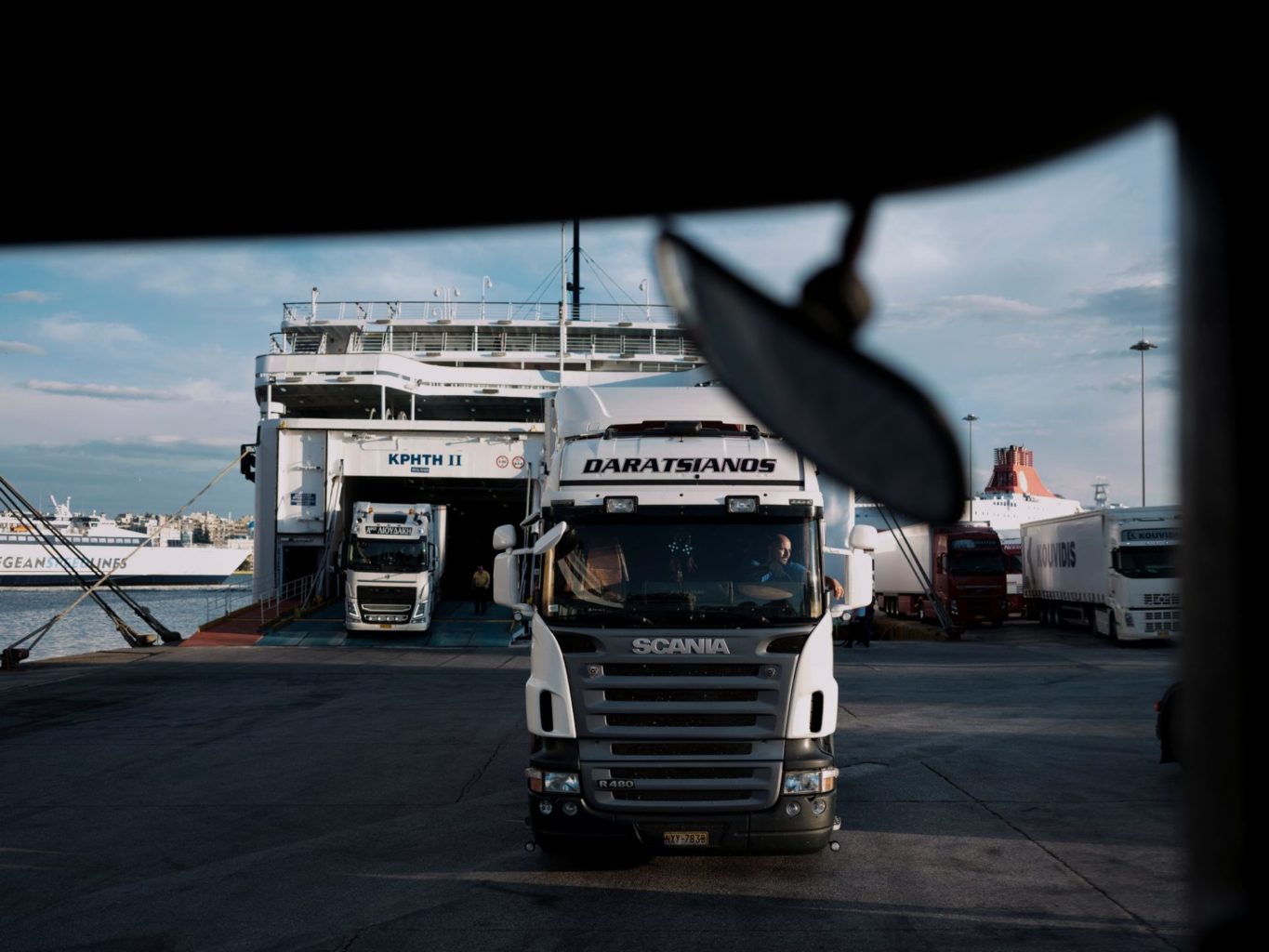
“I'm only worried about my children”
Markos – Mattheos Voutsinos/ Driver
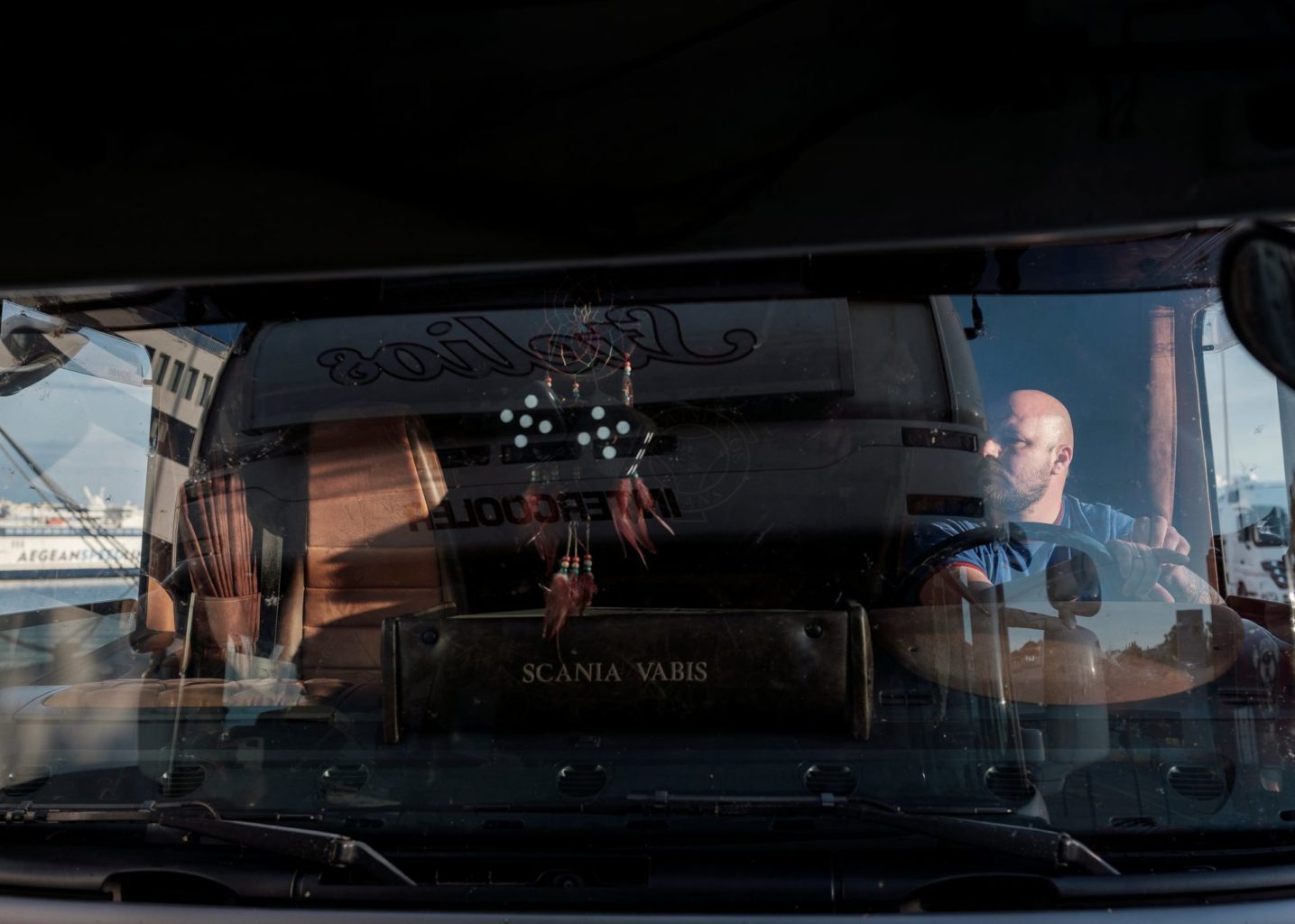
“I like to think that this whole thing is nothing but a bad dream”
Markos – Mattheos Voutsinos/ Driver
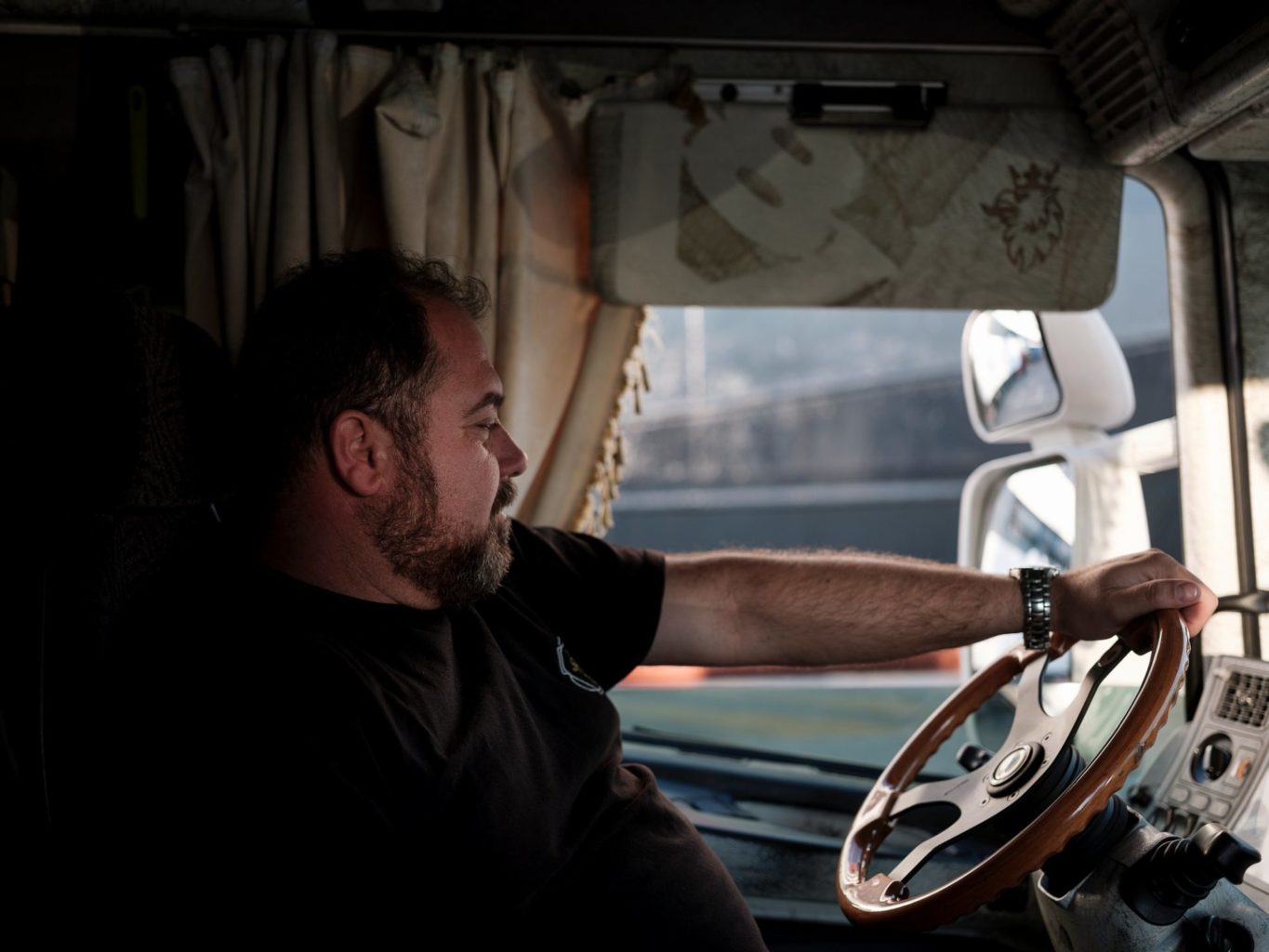
“I have two lorries and only operate one of the two at the moment. Luckily transports from and to Crete have not stopped”
Stelios Manolidakis/ Driver
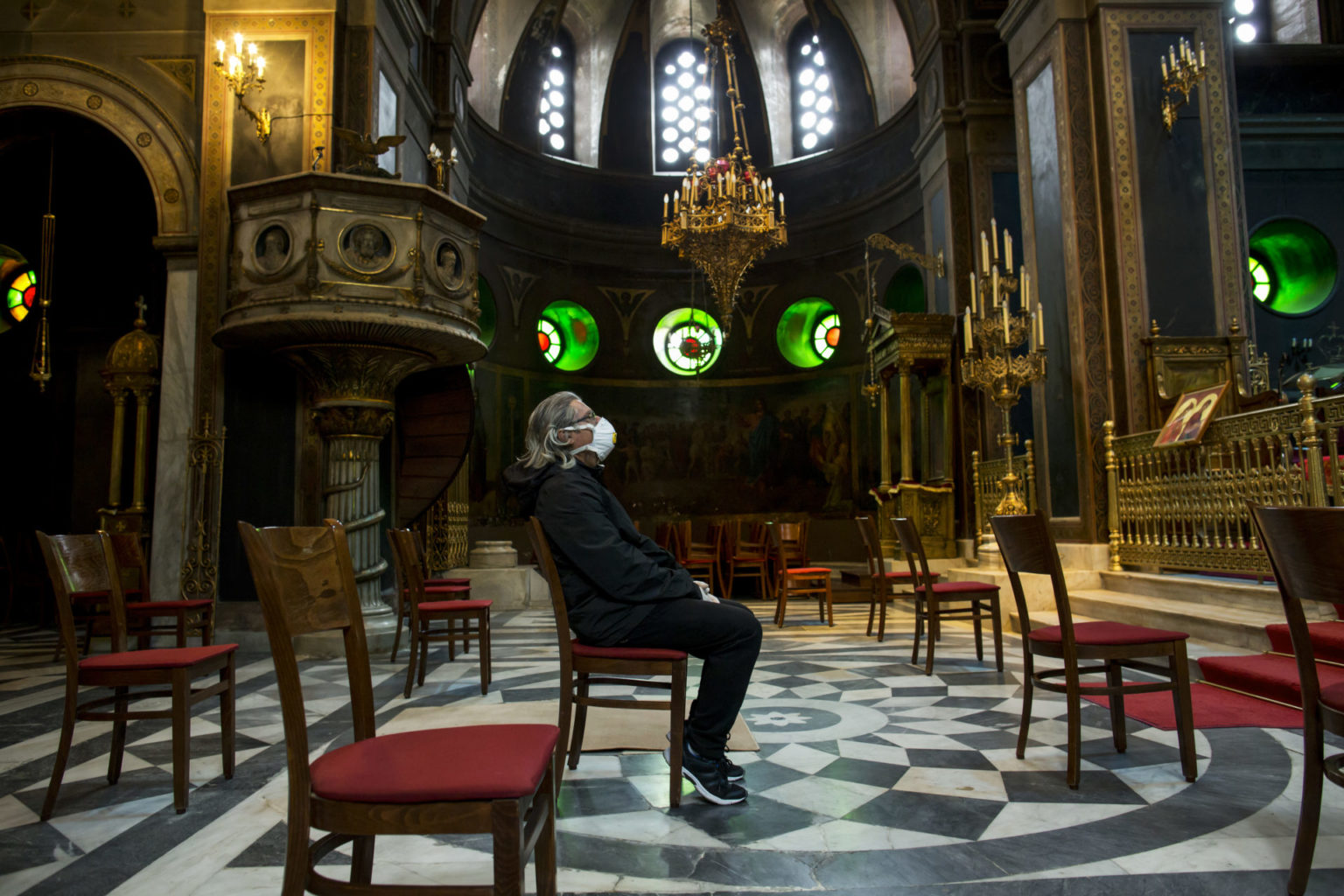
“Now that lockdown movement permits are repealed, I can go to church without stressing about the time I can spend there”
Iliodoros Filios posing in a church, down town Athens, 7 May 2020
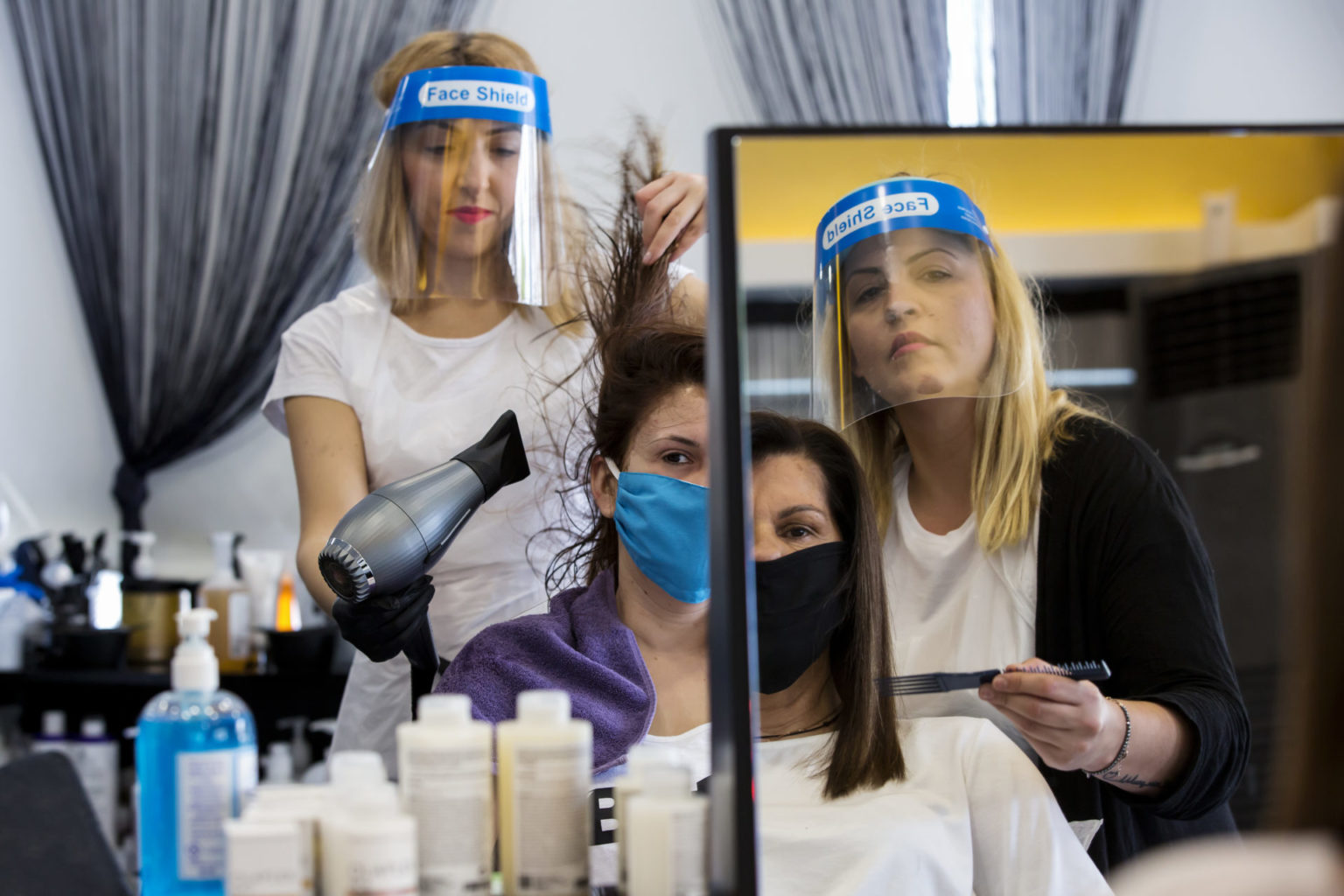
“The lockdown was hard and I hope it never happens again. I felt like I was out in the world for the first time”
Hairdressers Kelly Sfyri (L) and July Varouta (R) do the hair of Paraskevi Tsapraili (Centre L) and Mary Koulouki (Centre R), Athens, 6 May 2020
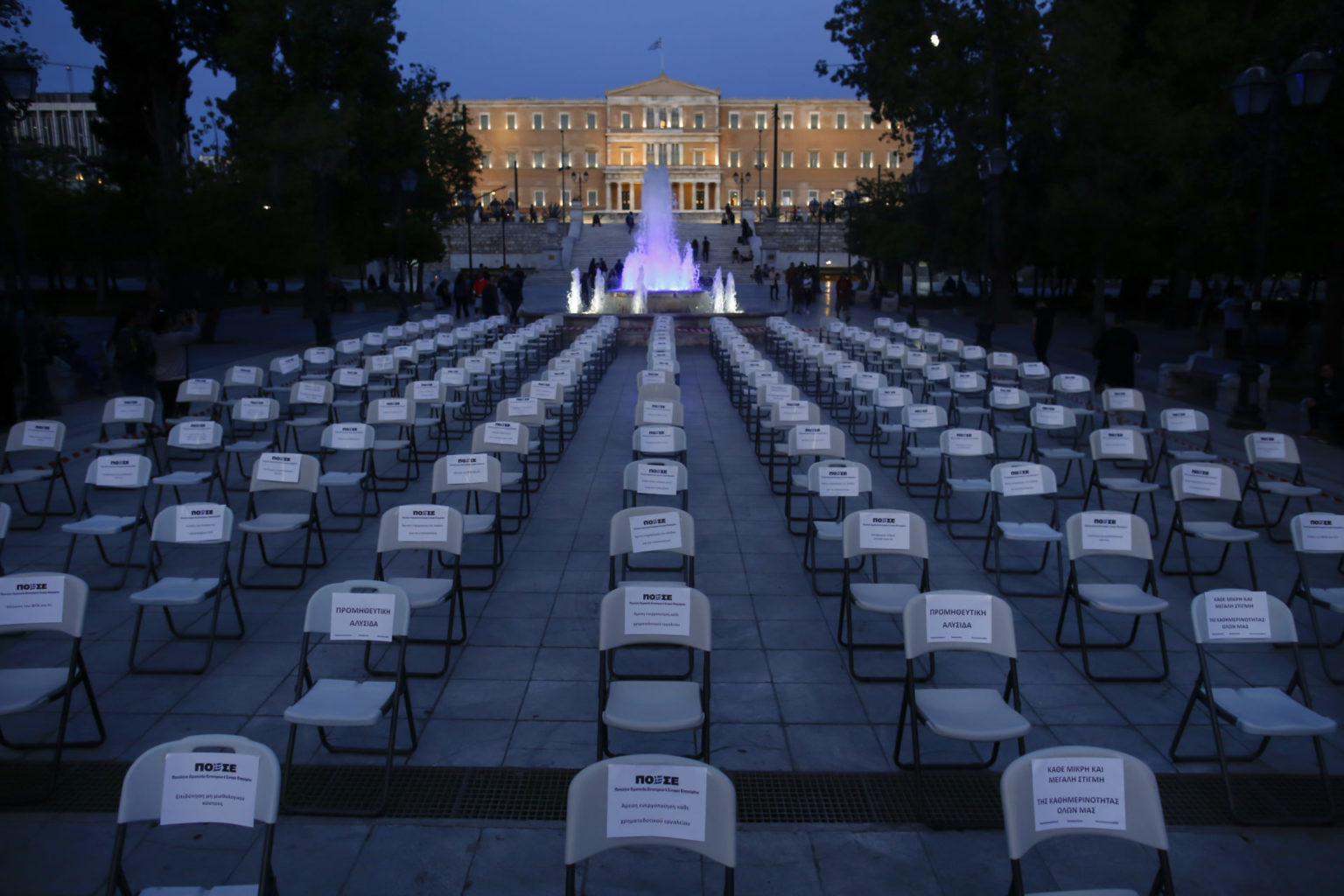
Empty chairs placed at Syntagma square, as part of the “EMPTY CHAIRS” European protest of people in the catering and tourism industry protesting about the consequences of the new coronavirus pandemic in their sector, Athens, 6 May 2020.
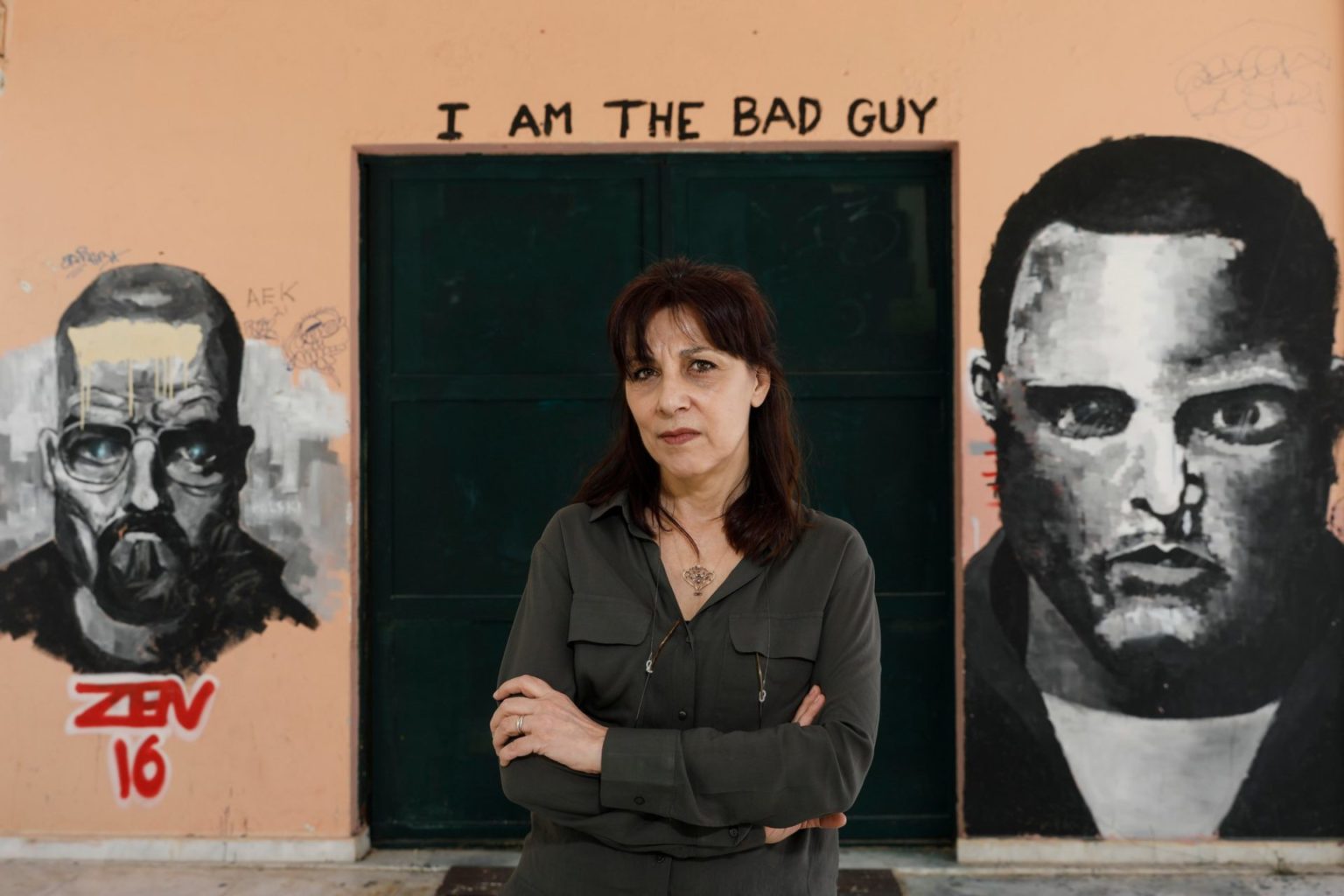
“It is my priority to protect the health of everyone coming to school. The mean age of my teachers is high and fear exists”
Ifigenia Schistou, Principal of the 1st Senior High School of Cholargos
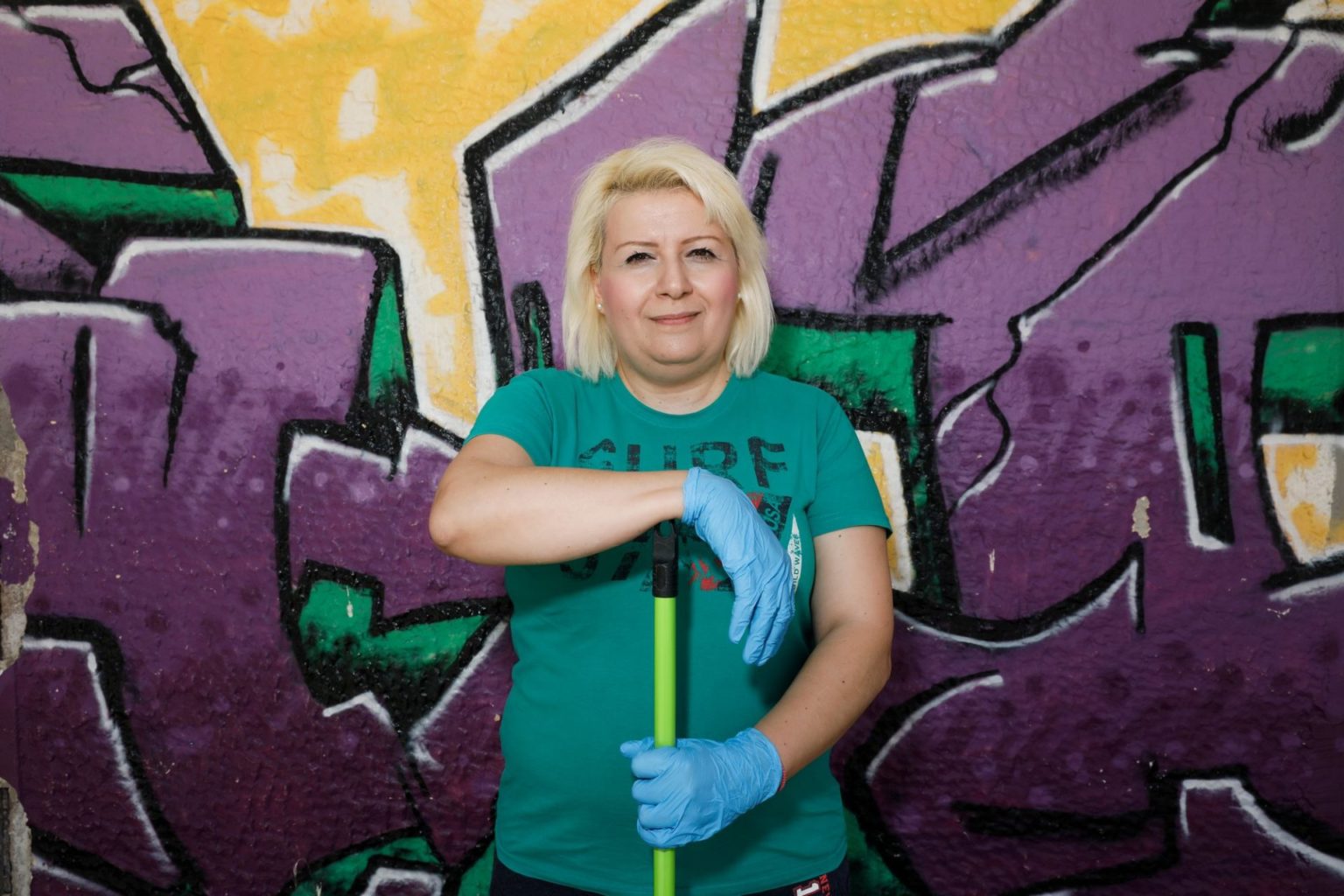
“We were told that meticulous cleanliness is our biggest bet. It is very tedious, because we only two cleaners here and the school is big. But we'll manage”
Theodora Panteliou, Cleaning services at the 1st Senior High School of Cholargos
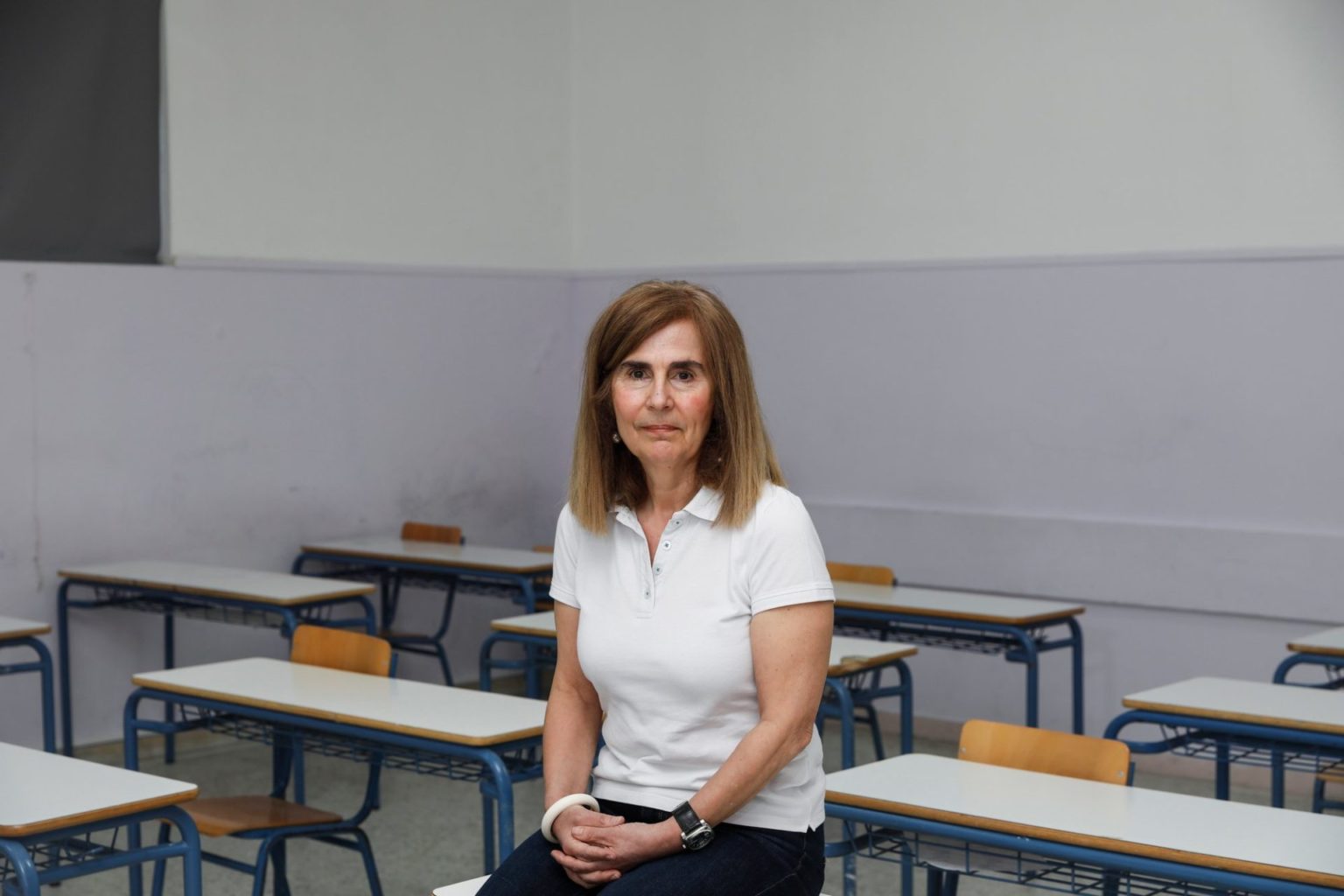
“This is not what I dreamt my last months as teacher in this school to be. It seems unthinkable that I won't be able to hug my pupils to say goodbye”
Mary Chotzoglou, Teacher at the 1st Senior High School of Cholargos
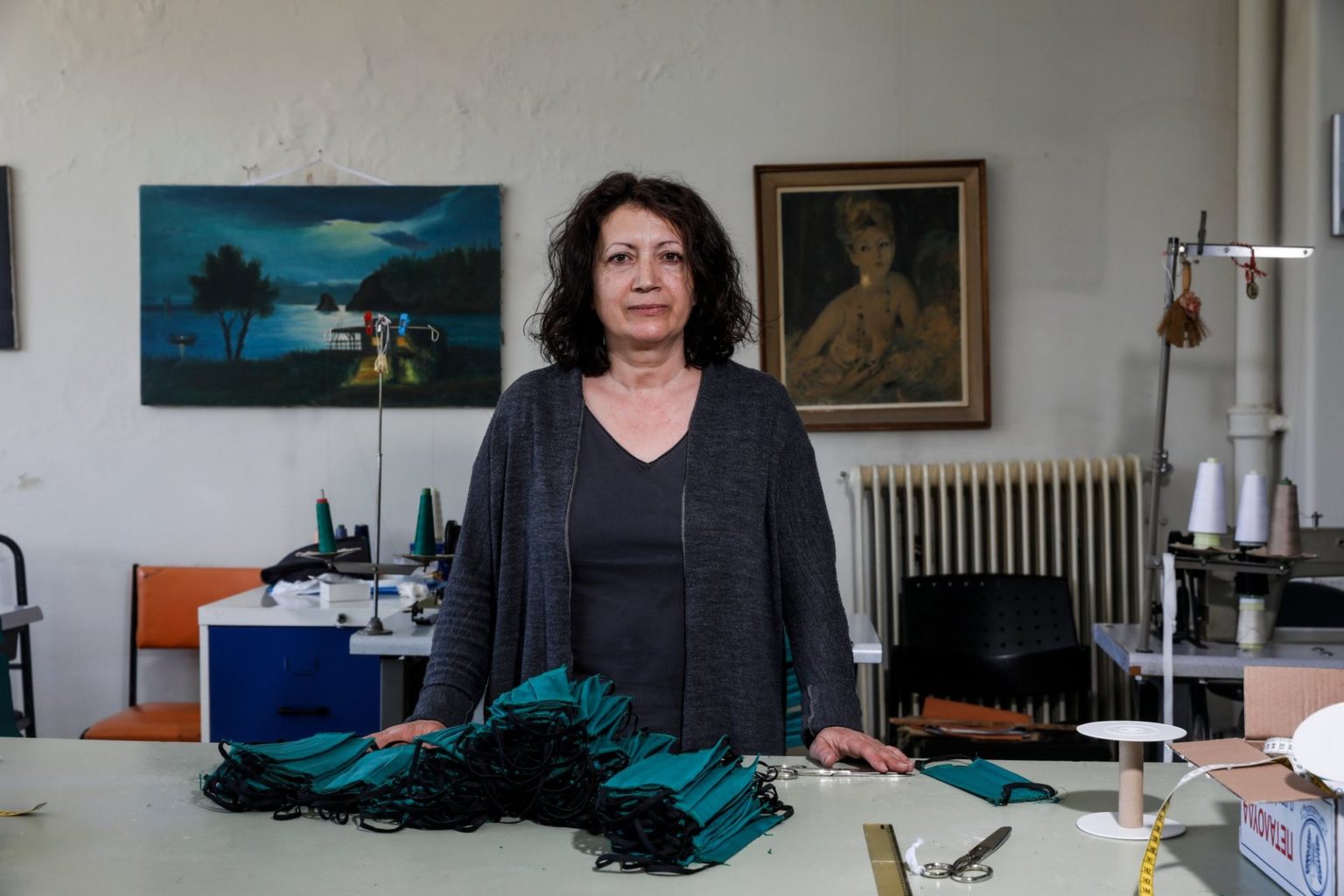
“I may be just a cog in the wheel, but I assure you this wheel needs all its cogs to start moving”
Panagiota Tzouanopoulou
Seamstress/ Hospital “Sotiria”
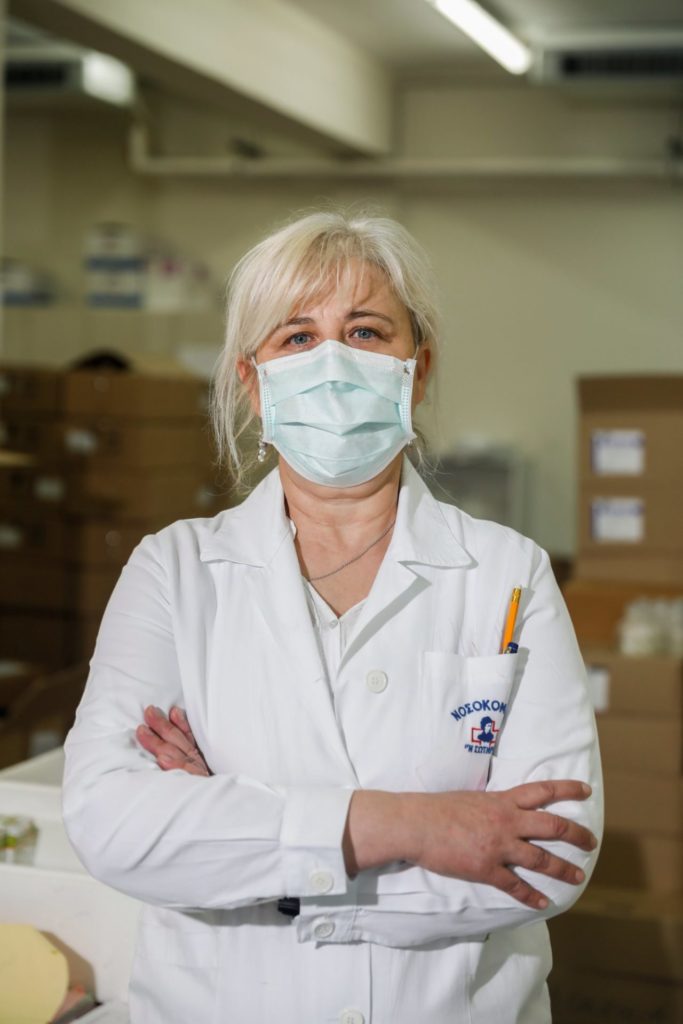
“The quarantine made us appreciate what's important in life”
Vasiliki Siozou
Pharmaceutical preparator/ Hospital “Sotiria”
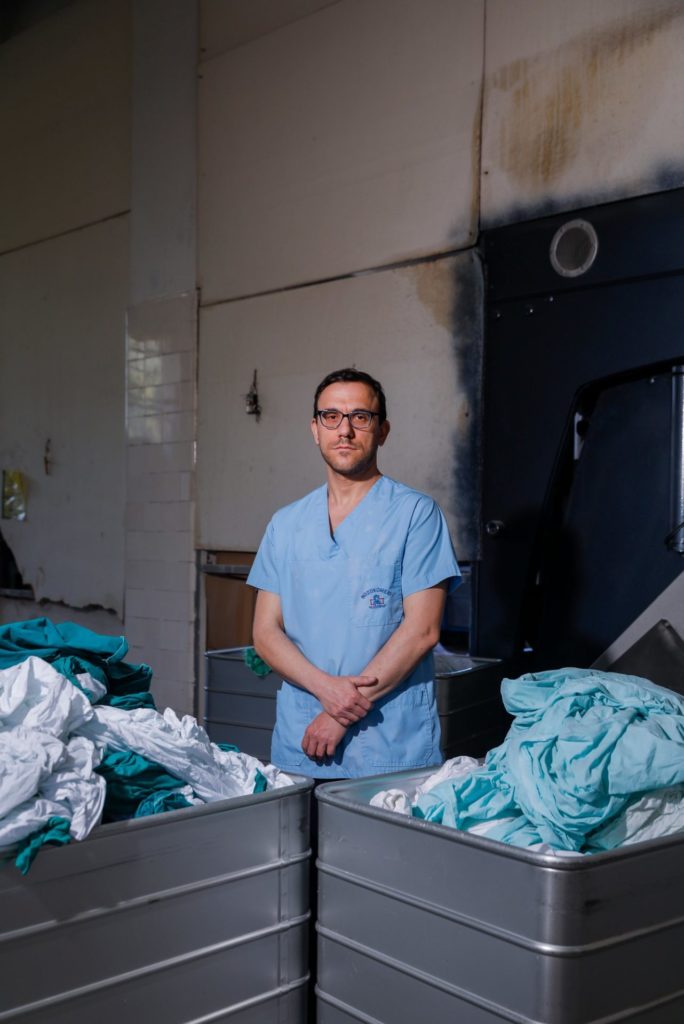
“I make sure that patients’ sheets are clean and nicely ironed. I want patients to have a pleasant sleep”
Christos Pierrakos
Linen assistant/ Hospital “Sotiria”
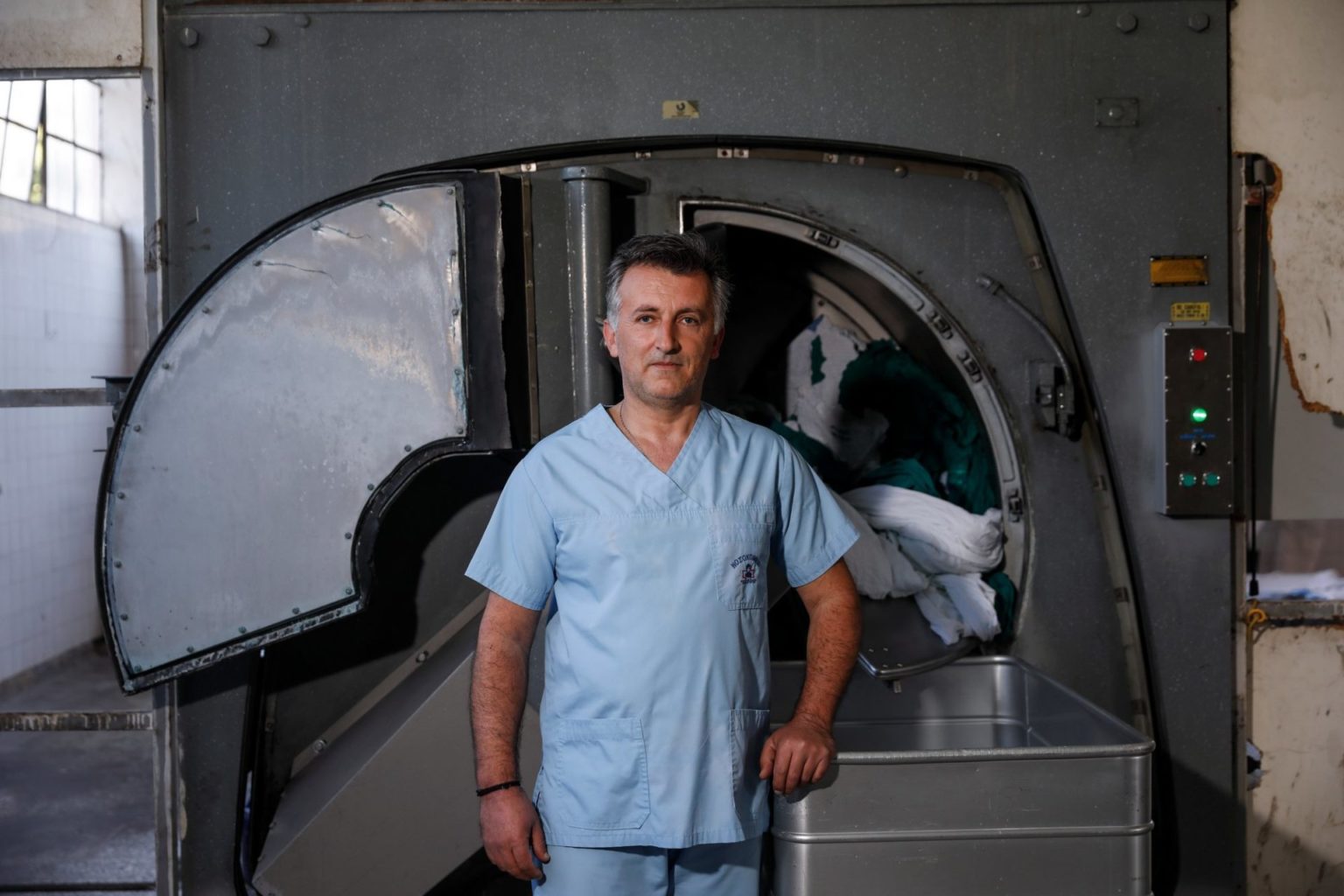
“I return home with a sense of satisfaction for contributing to the hospital and helping other people”
Efthymios Koukouvaras
Linen assistant/ Hospital “Sotiria”
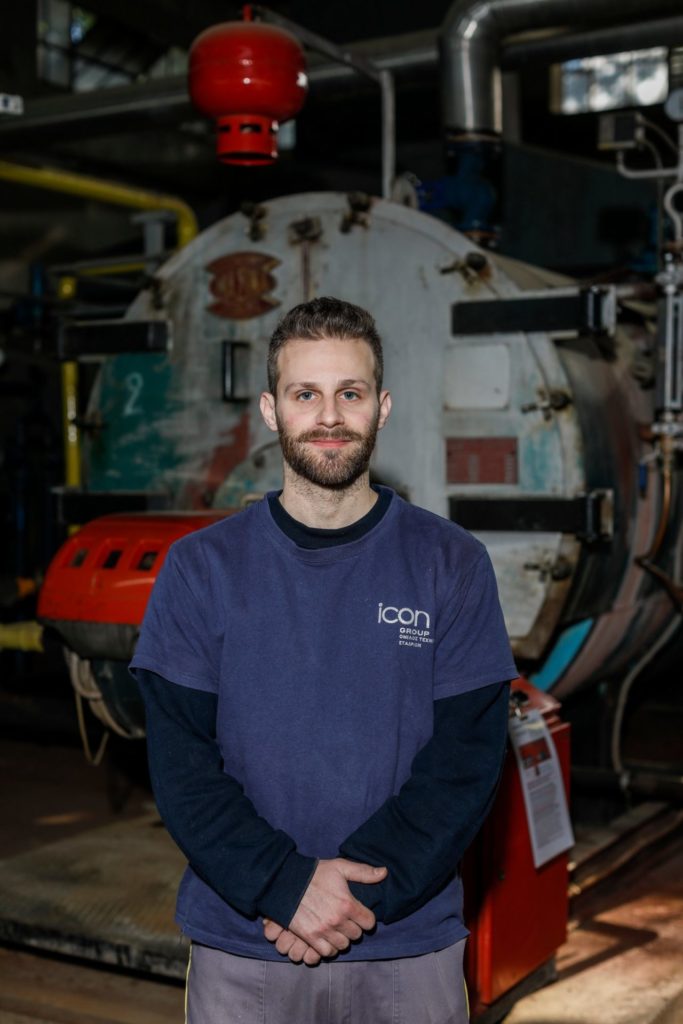
“Nothing has changed in the way I work. I continue work and go to my job everyday”
Fotis Kalfountzos, Mechanical equipment technician/ Hospital “Sotiria”
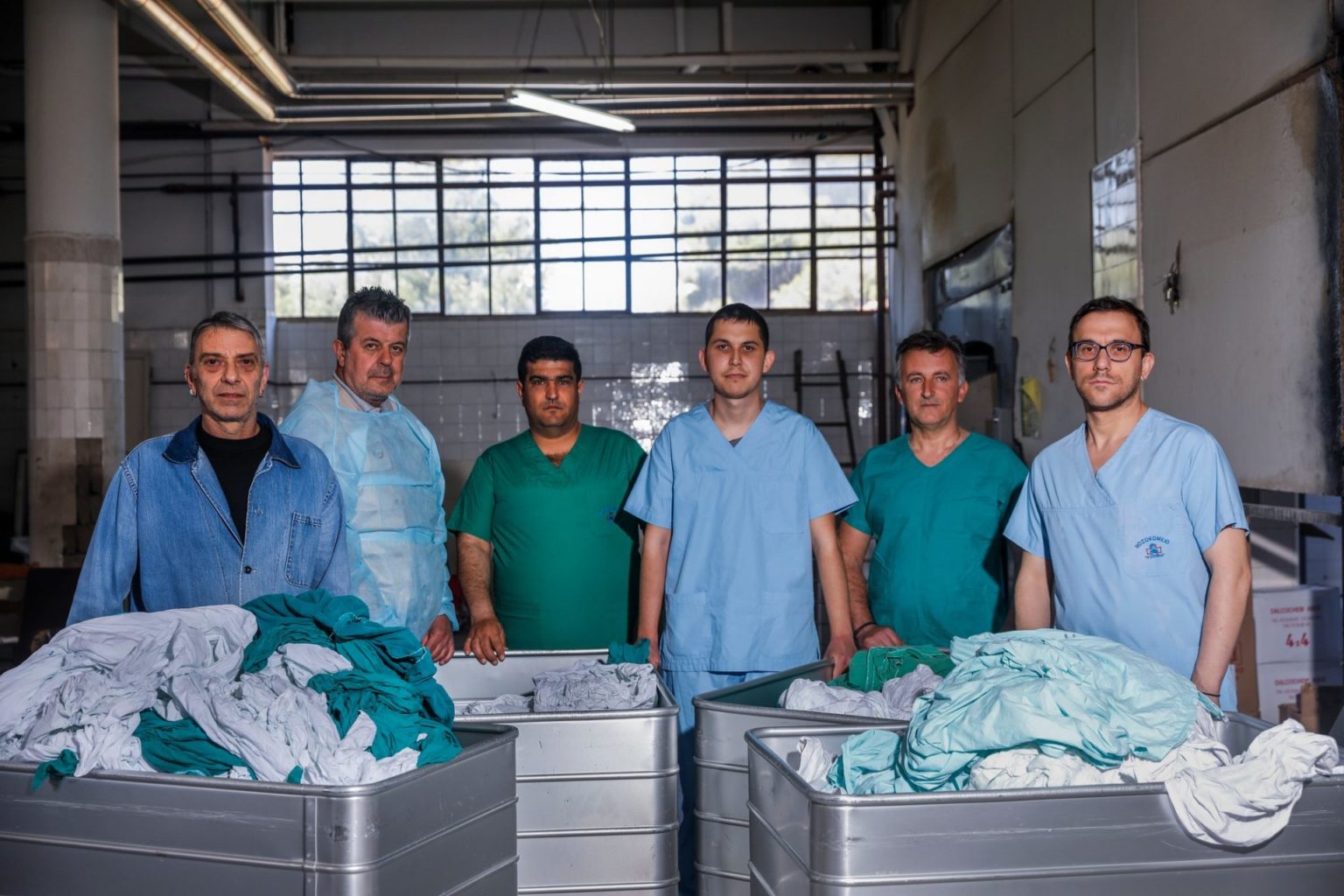
“The patient is our priority, always”
Linen assistants at the Hospital “Sotiria”
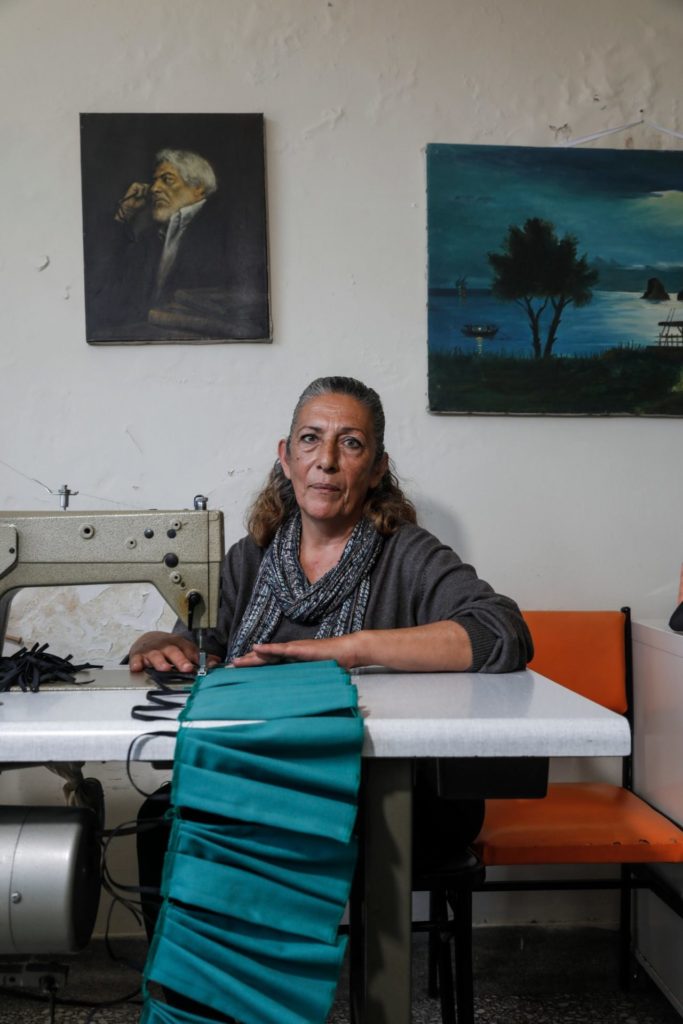
“This period, I am sewing masks. I think it is a way of offering to others”
Evangelia Diamantidou.
Seamstress/ Hospital “Sotiria”
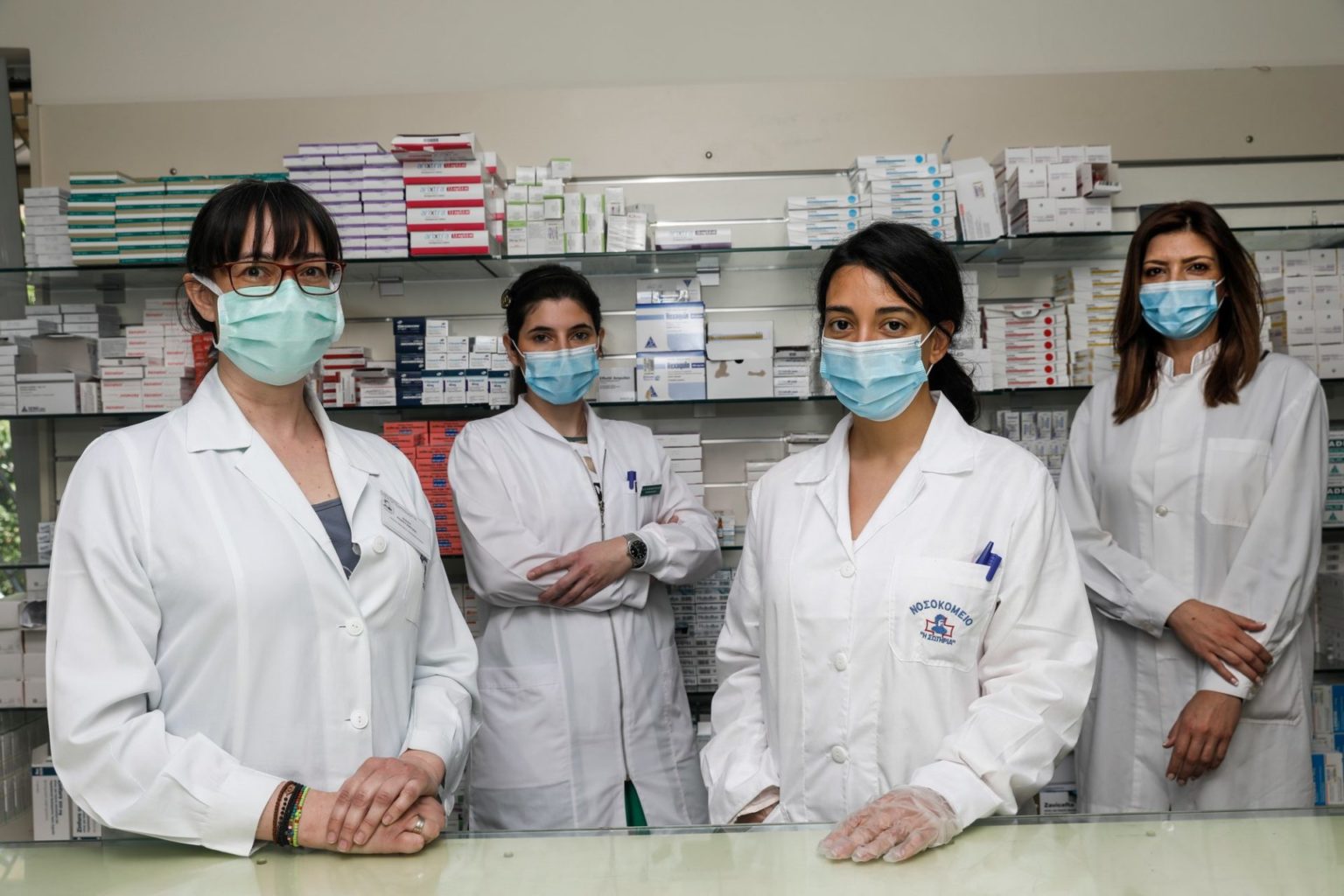
“Now we know. We are ready for tomorrow”
Hospital staff – pharmacists
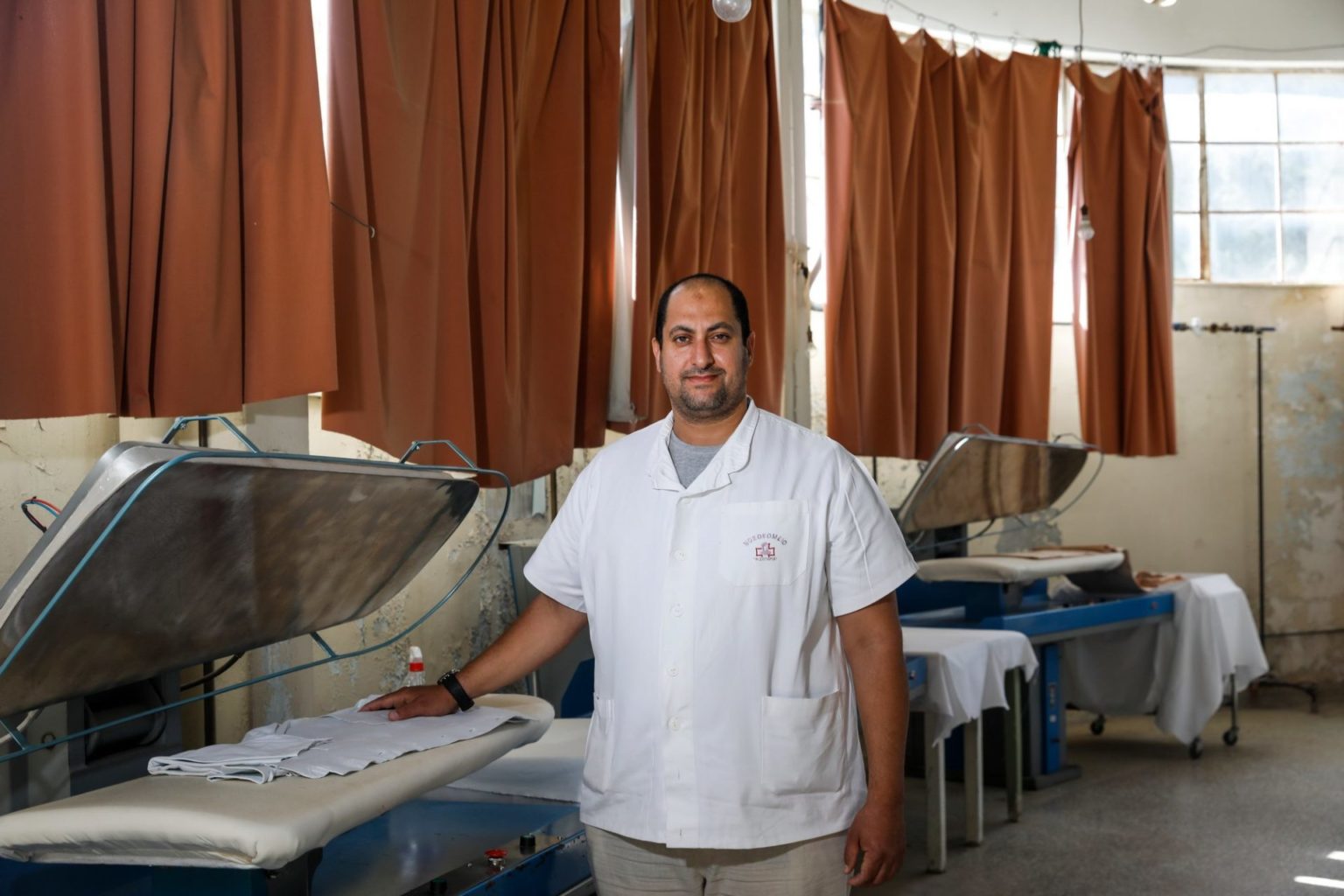
“I love keeping patients, nurses and doctors clean and ironed. It gives me joy”
AHMED ABDELNABI
Ironer / Hospital “Sotiria”
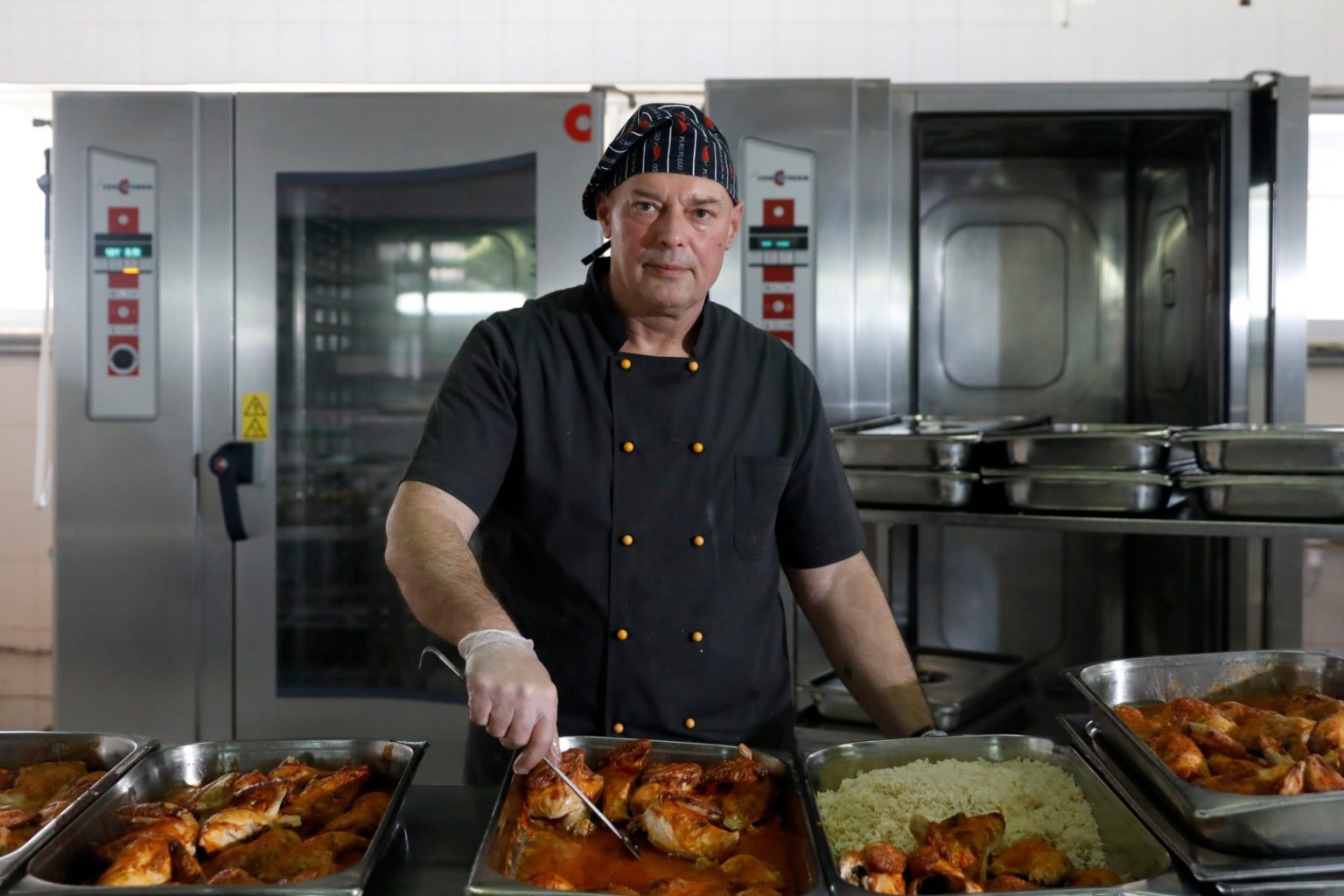
“Hospitals are not just about doctors; there's also us, cooks who heal hunger”
Myaris Theofanis
Cook / Hospital “Sotiria”
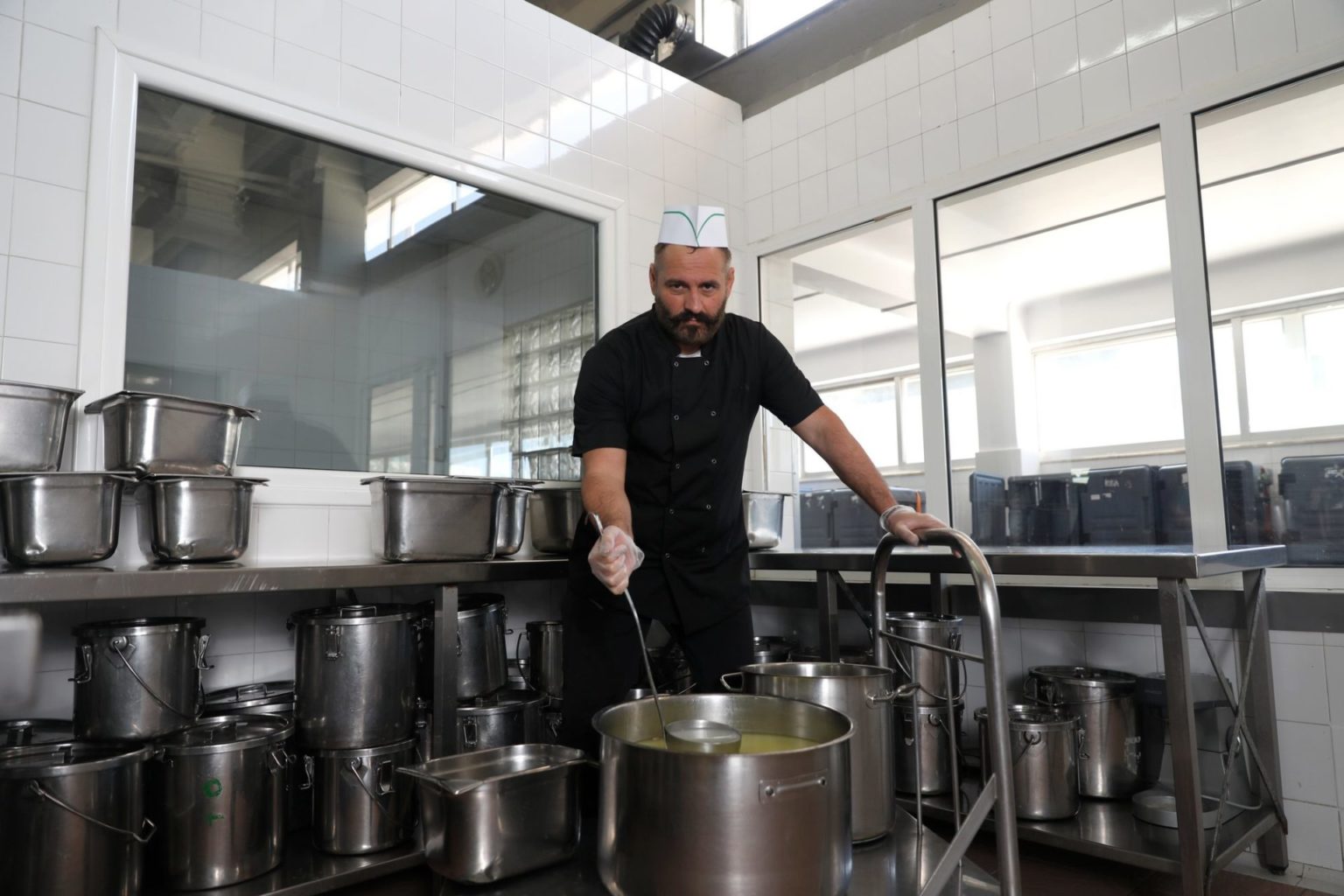
“We are not an impersonal catering. You can win a battle even with food”
Kollias Christos
Cook / Hospital “Sotiria”
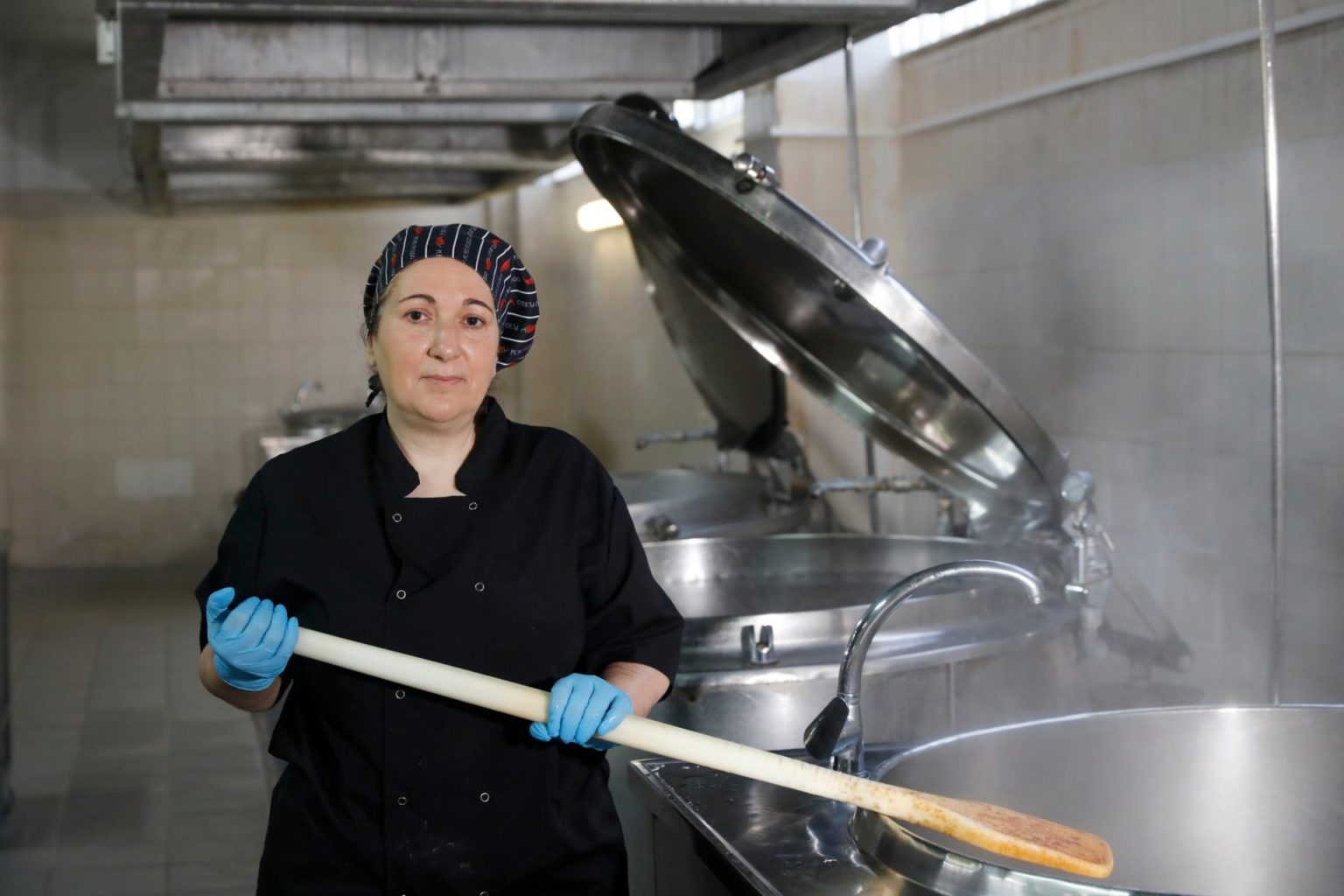
“We try to cook dishes that remind them of home”
Gerasimou Maria
Head cook / Hospital “Sotiria”
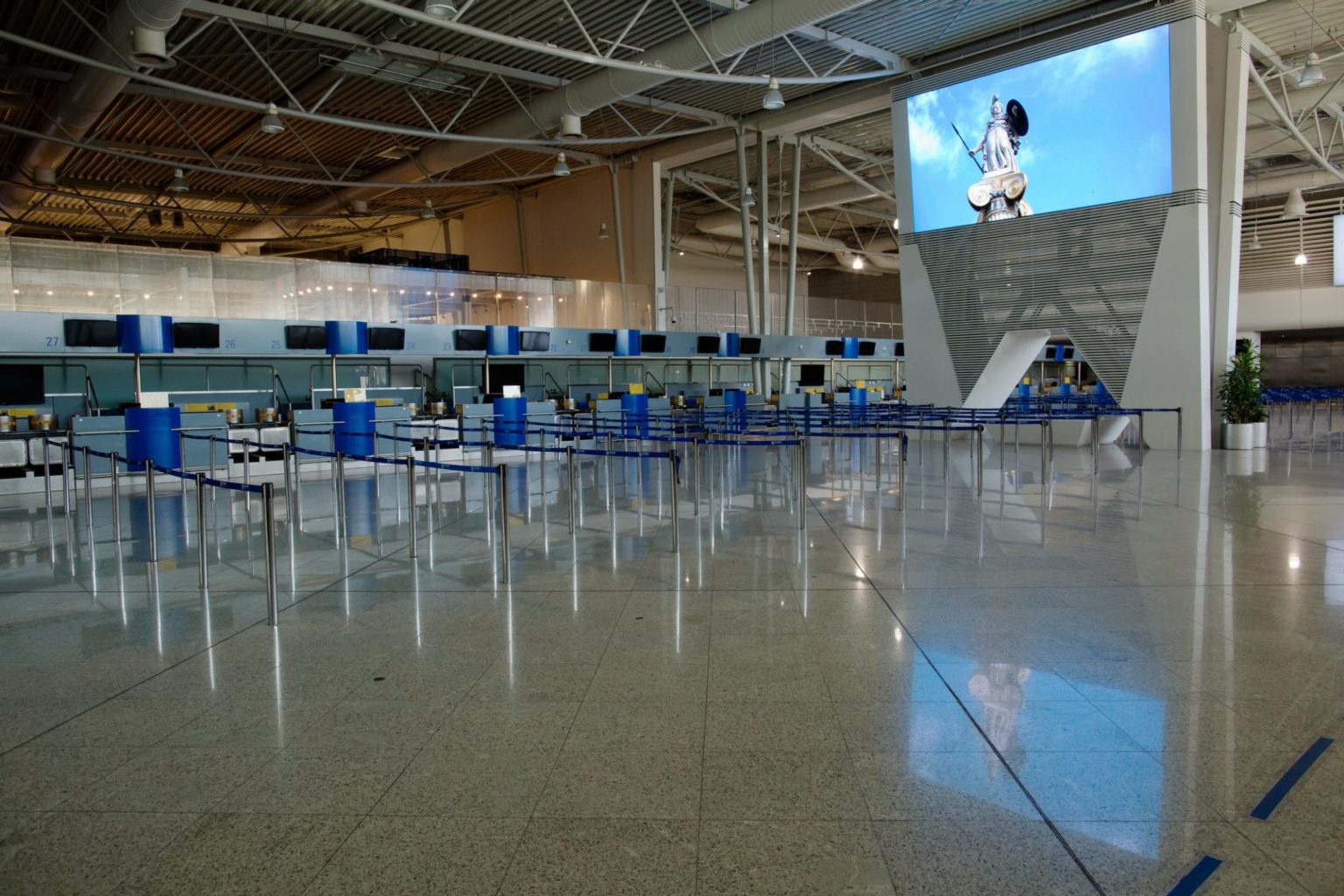
The departure lounge at Athens International airport, during the restrictive measures for flights, in the context of the COVID-19 pandemic, Athens 9 May 2020.
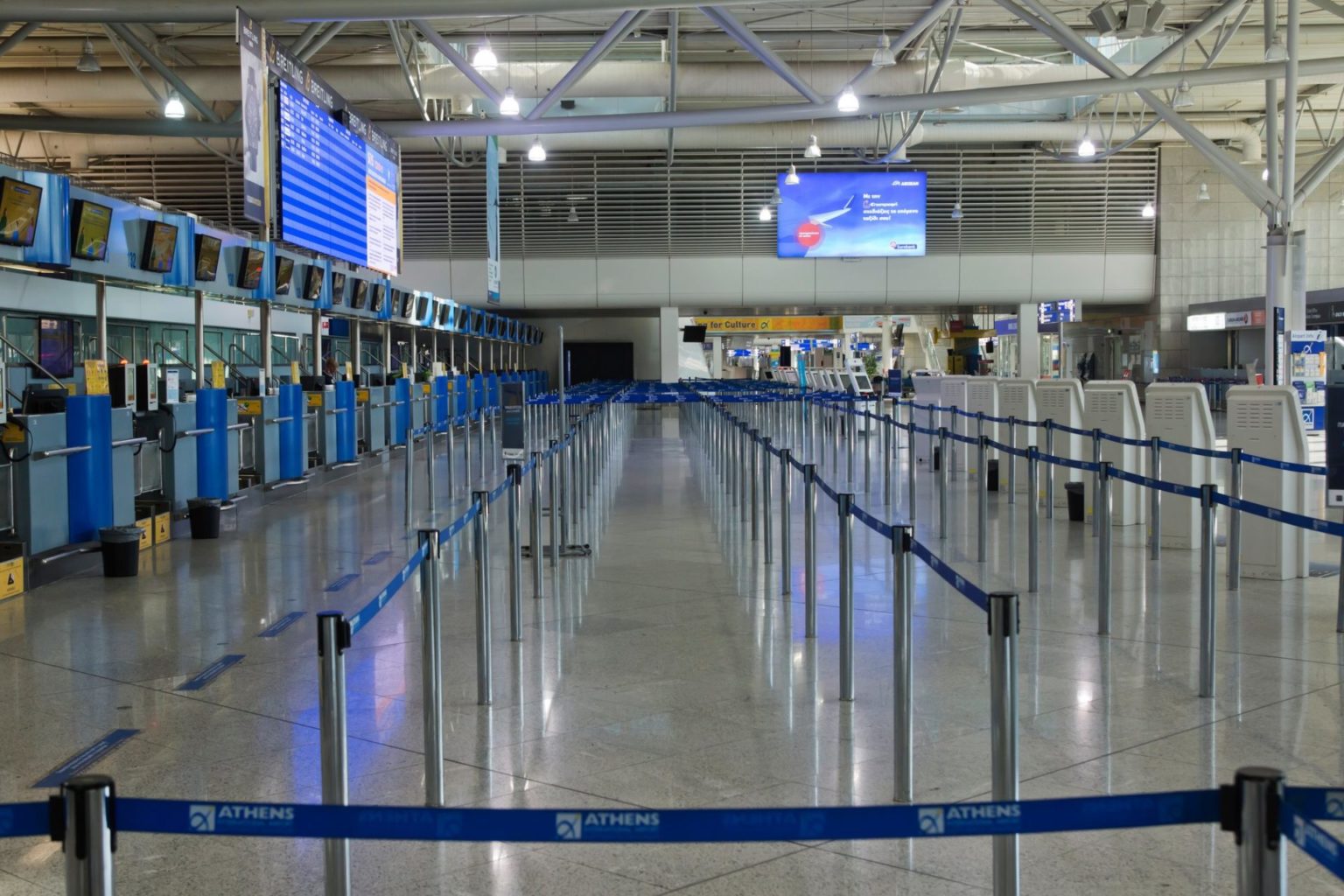
The departure lounge at Athens International airport, during the restrictive measures for flights, in the context of the COVID-19 pandemic, Athens 9 May 2020.
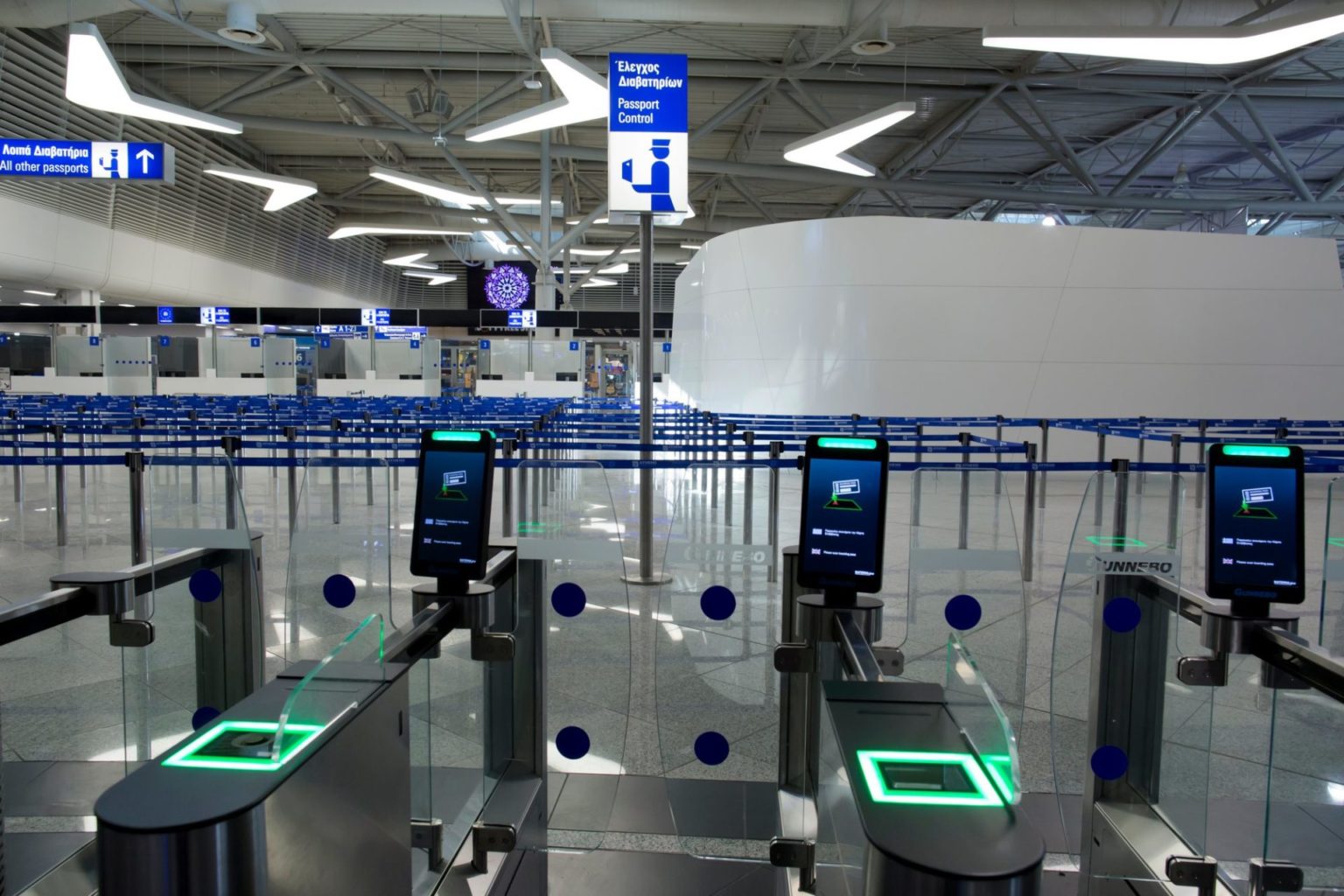
The departure lounge at Athens International airport, during the restrictive measures for flights, in the context of the COVID-19 pandemic, Athens 9 May 2020.
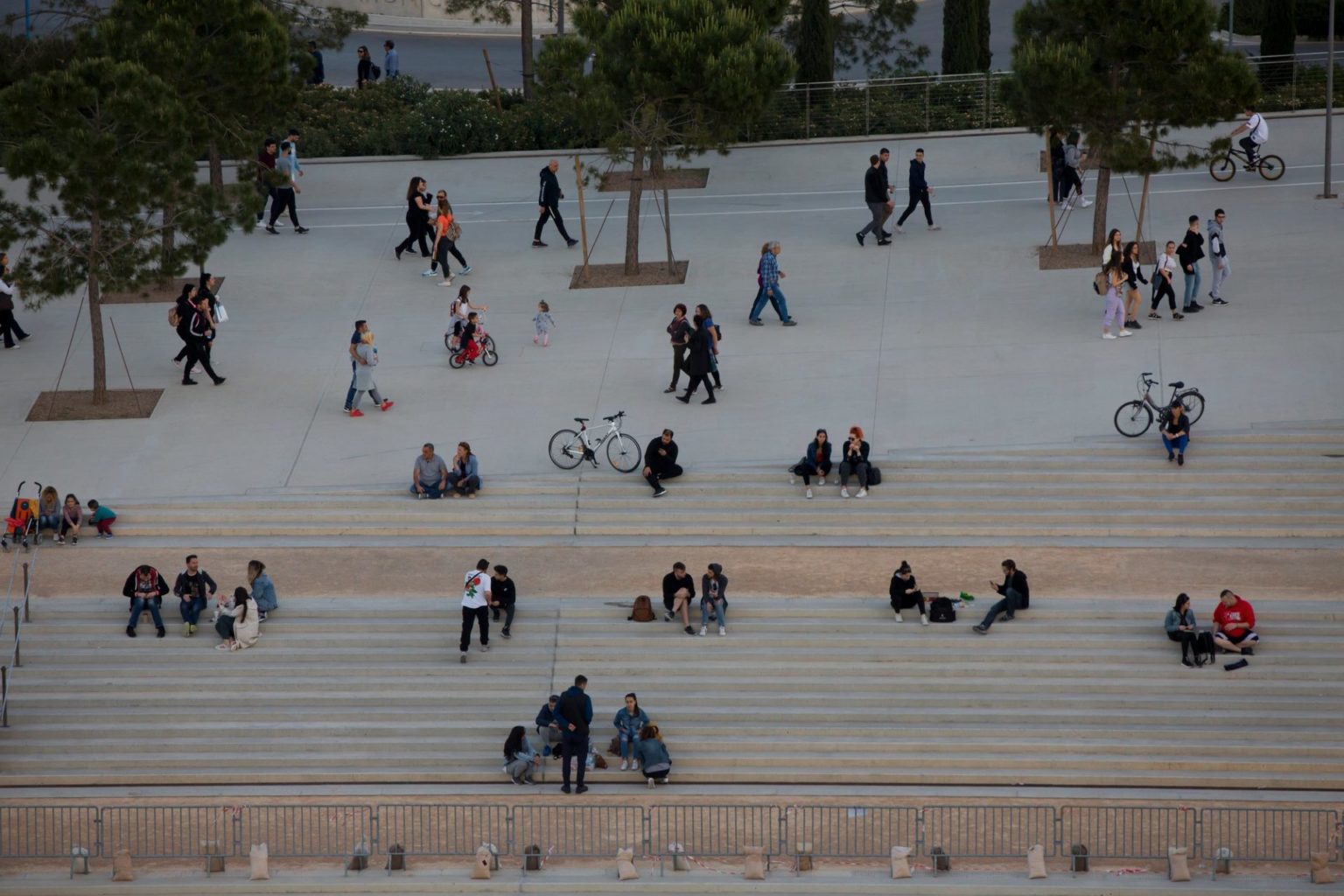
People, keeping their distances, walk at the Stavros Niarchos Foundation Cultural Centre after the lift of the lockdown measures imposed in the context of the COVID-19 pandemic, Athens 9 May 2020.
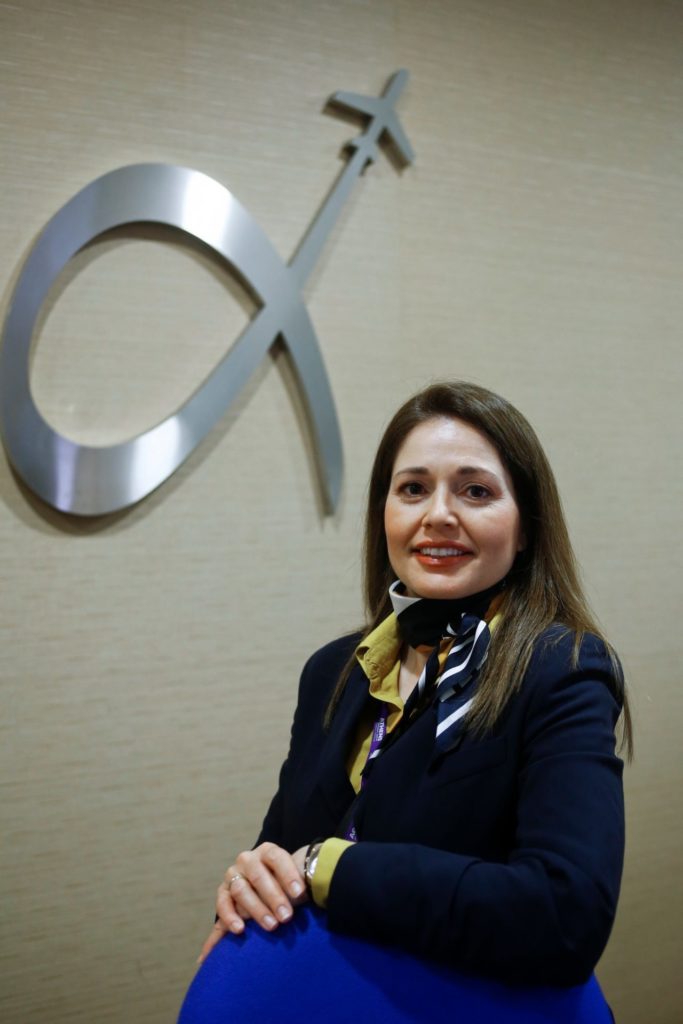
“At this time, the beginning of the summer season, the airport would be bursting with life. Millions of visitors from around the world would come to Athens and we were getting ready to welcome them”
Senior agent at Airport Information, Maria Iatrou, at the info desk in Athens International airport, during the restrictive measures for flights, in the context of the COVID-19 pandemic, Athens 9 May 2020.
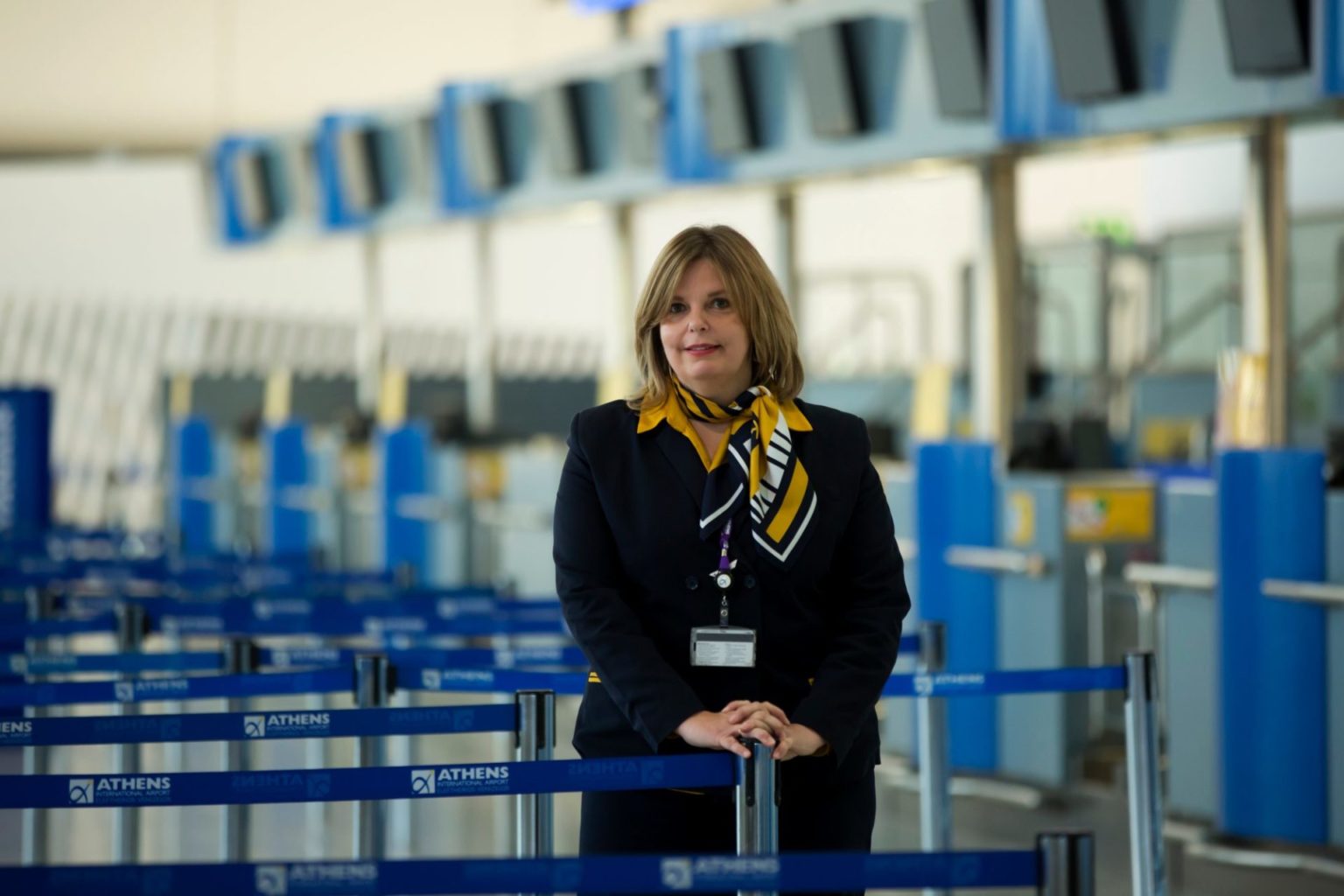
“The airport was so empty of passengers only in the days before its inauguration, in 2001. Only, back then, the feelings were the opposite: there was joy and suspense”
Christina Kanaki, Terminal Operations Supervisor in the empty departure lounge in Athens International Airport, during the restrictive measures for flights, in the context of the COVID-19 pandemic, Athens 9 May 2020.
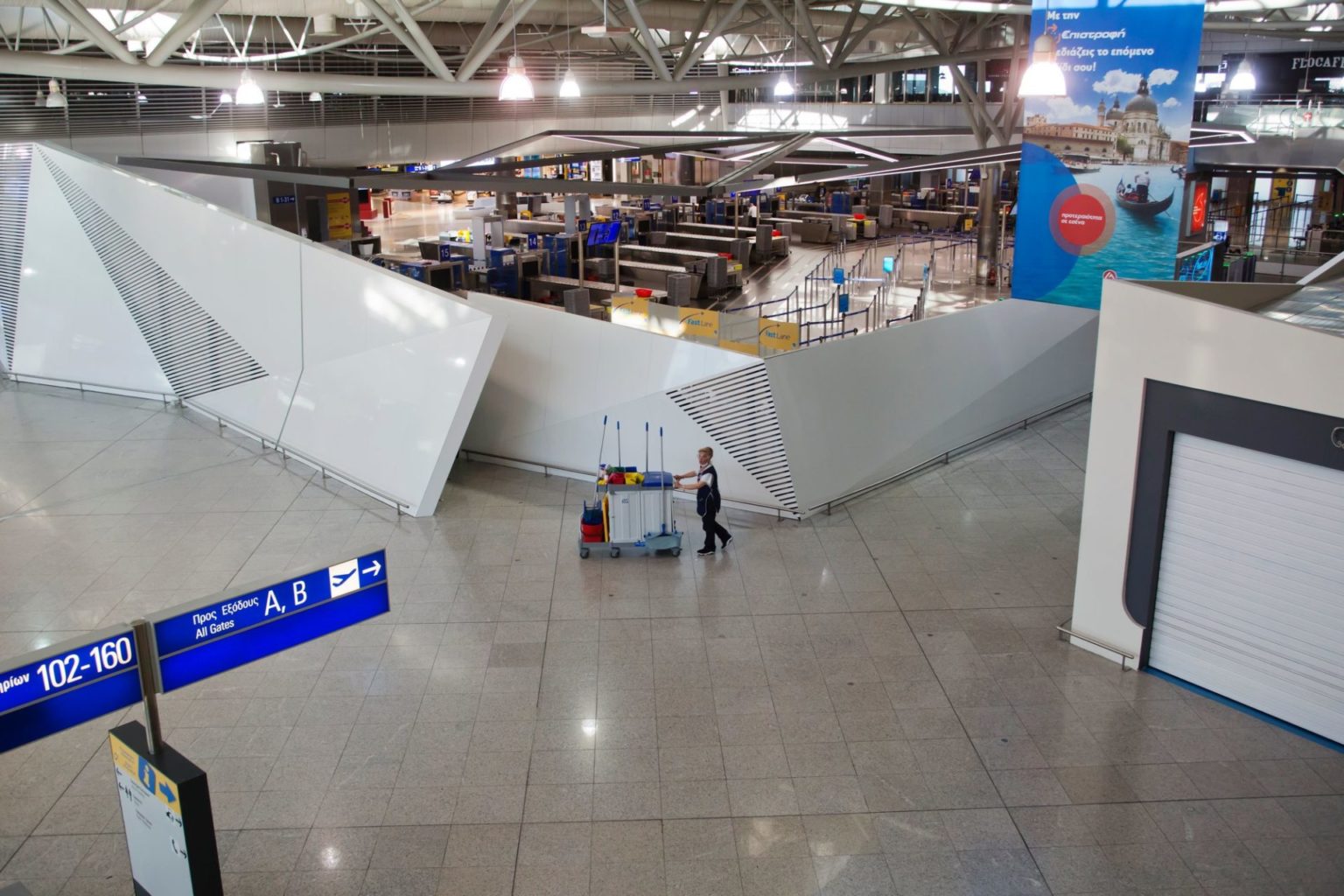
A cleaner walks in the departure lounge at Athens International airport, during the restrictive measures for flights, in the context of the COVID-19 pandemic, Athens 9 May 2020.
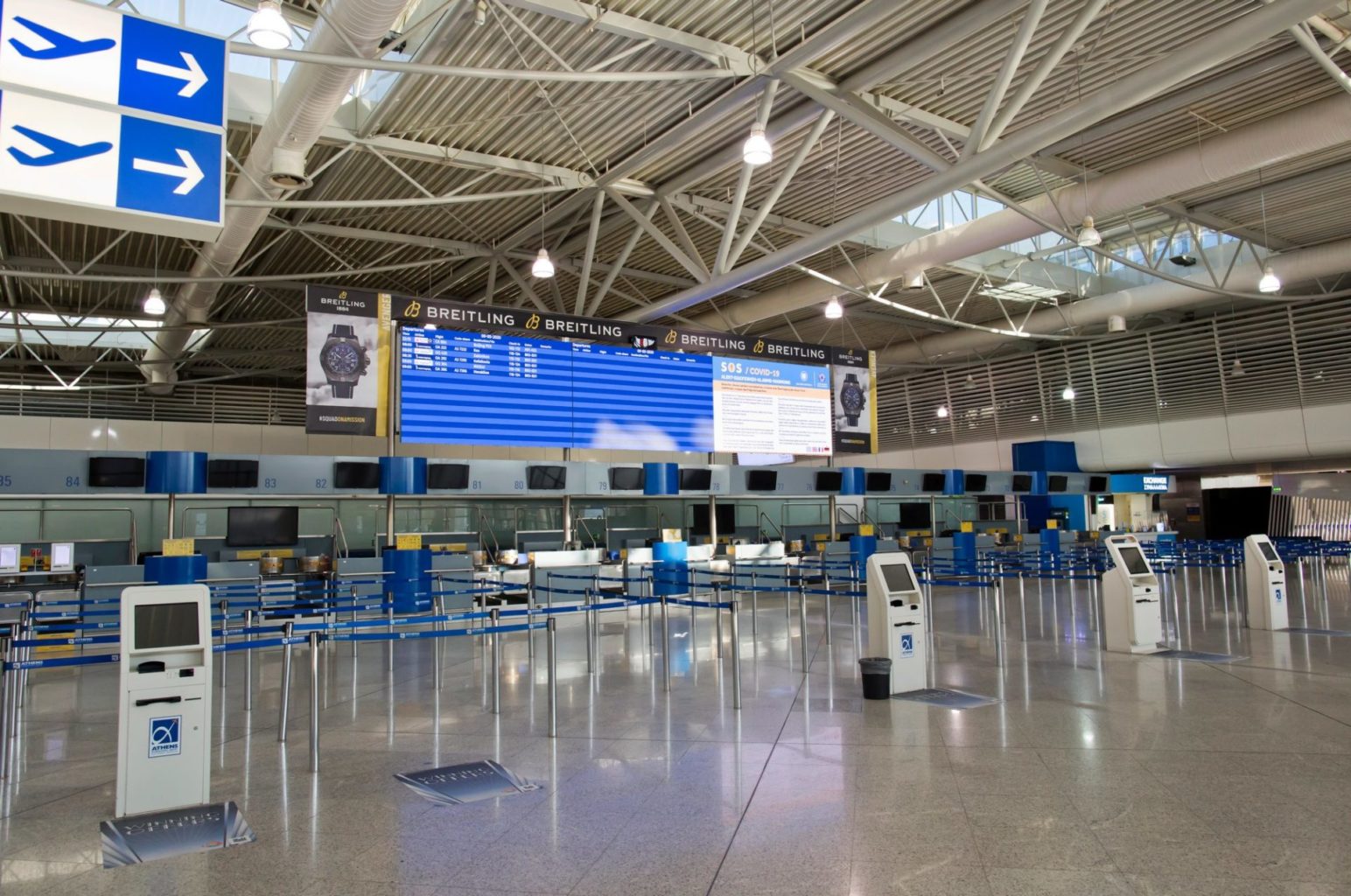
The departure lounge at Athens International airport, during the restrictive measures for flights, in the context of the COVID-19 pandemic, Athens 9 May 2020.
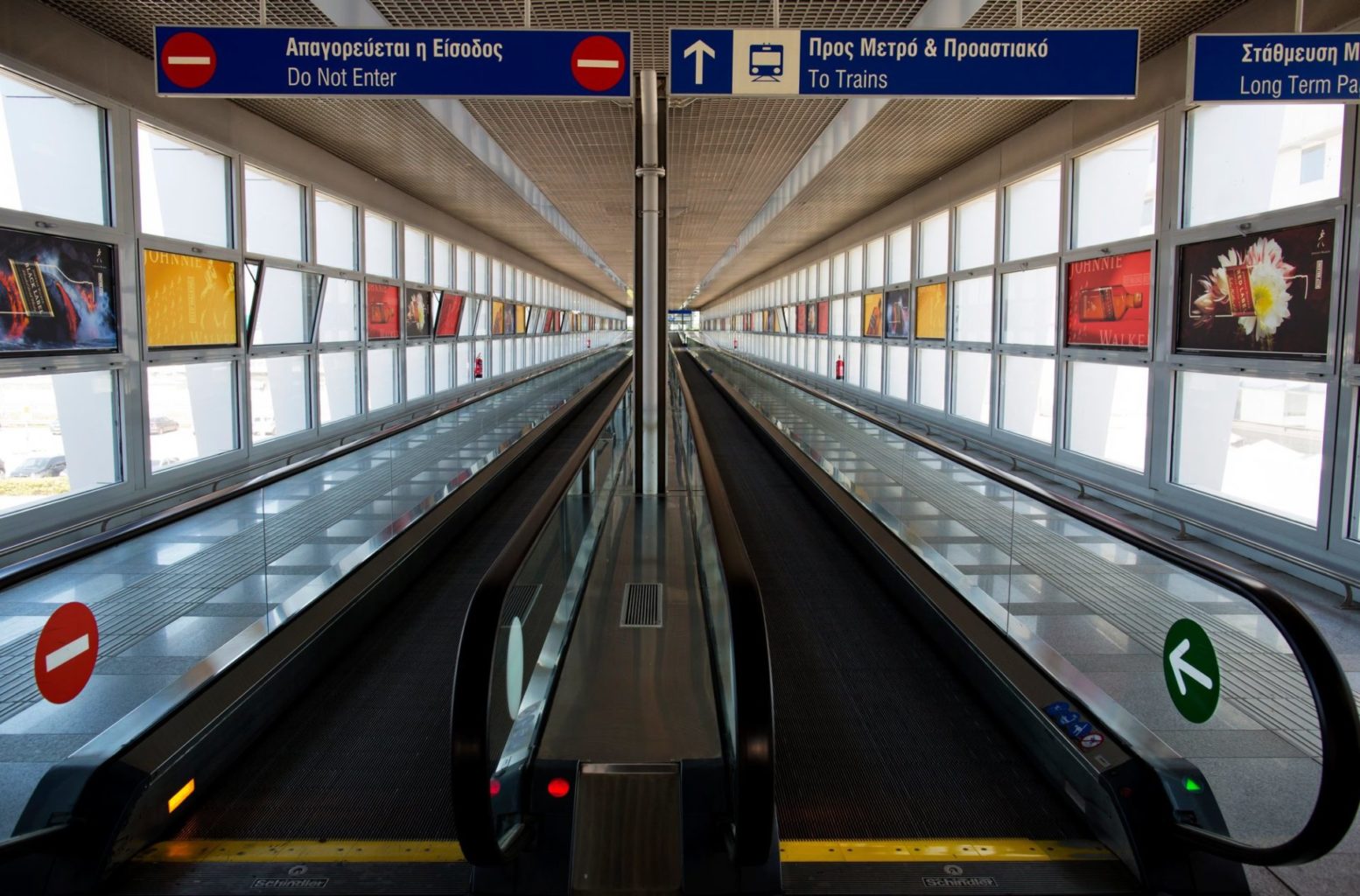
The travelator leading to the metro and suburban railway station, during the restrictive measures for flights, in the context of the COVID-19 pandemic, in Athens International Airport, 9 May 2020.
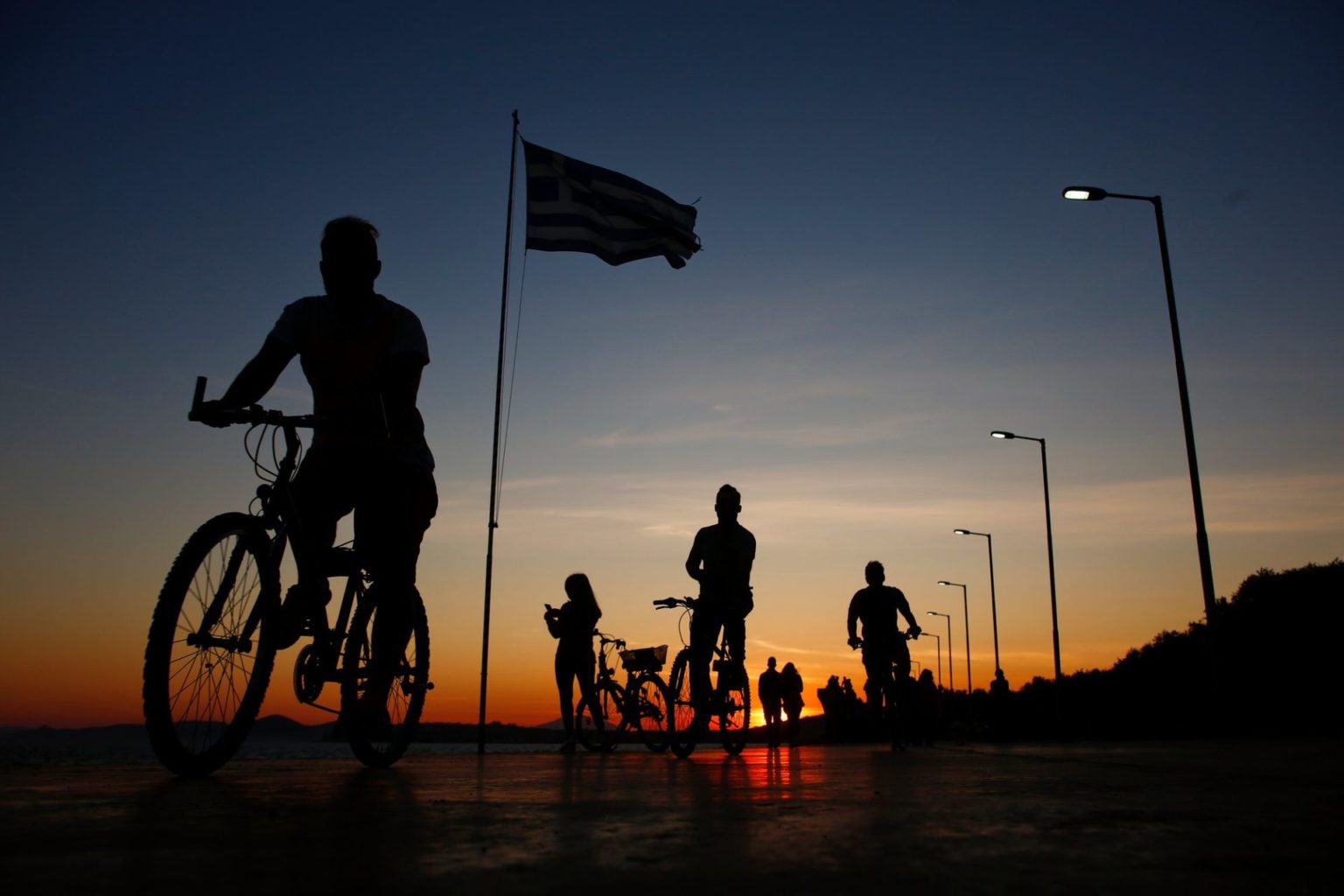
People enjoying their walk in the sunset on Flisvos beach, after the lift of the lockdown measures imposed in the context of the COVID-19 pandemic, in Paleo Faliro, 9 May 2020.
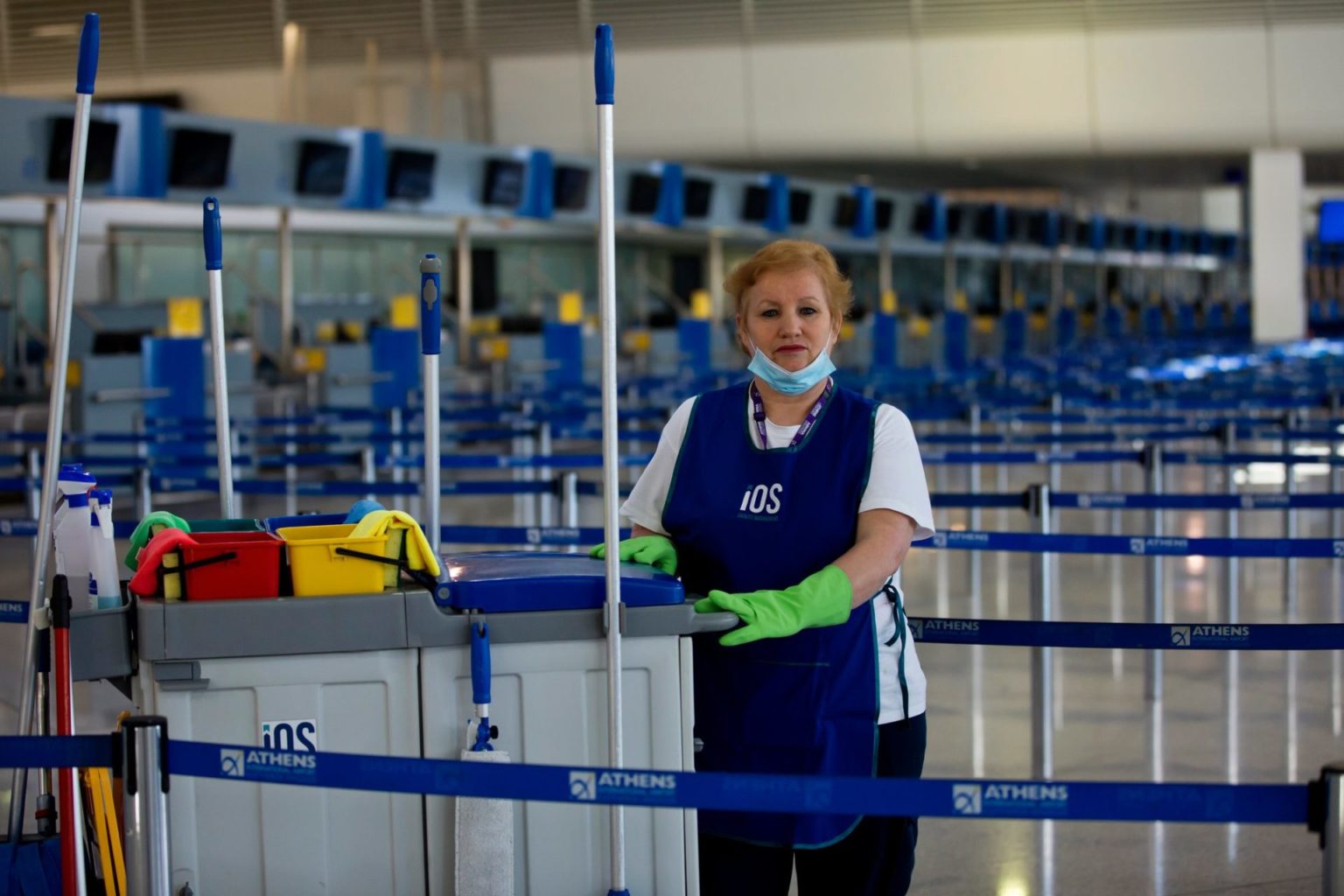
“I have been working in the airport for 17 years. It is a very strange feeling to find yourself everyday in an immense space, without any people”
Cleaner Mpoukouria Doma, in the departure lounge at Athens International airport, during the restrictive measures for flights, in the context of the COVID-19 pandemic, Athens 9 May 2020.
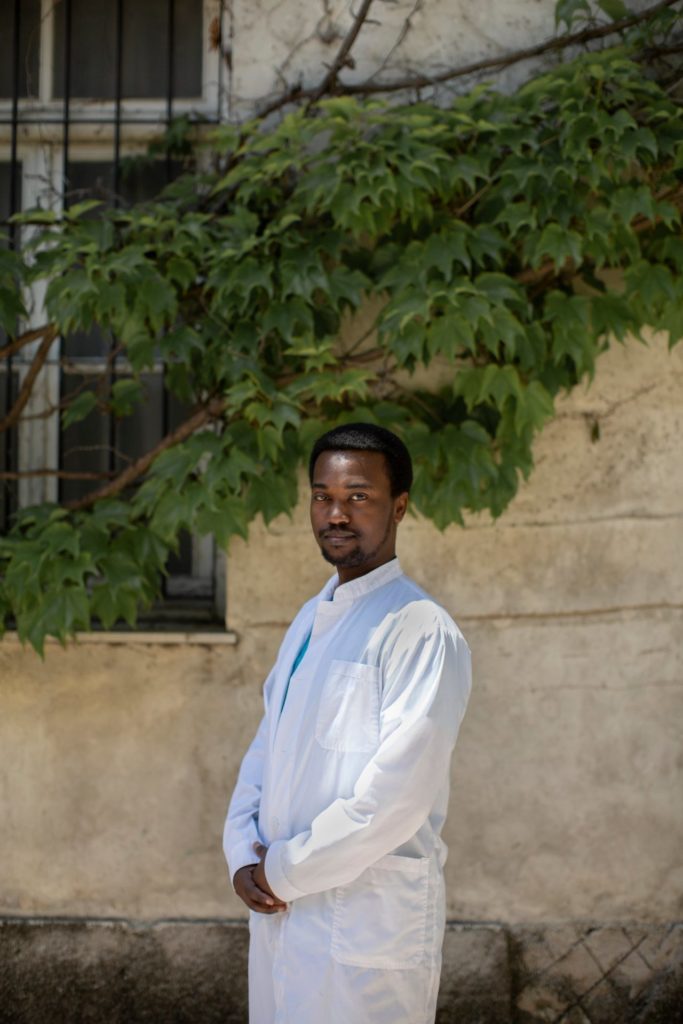
“Coronavirus hit Sudan later than Greece and to this day there is a significant increase in the number of cases and deaths. Thanks to technology I can talk with my relatives there everyday and try to pass them on my knowledge and experience to help them protect themselves against the pandemic”
Abdelrasoul Mahmoud, 34 y.o., Sudanese born in Greece – doctor
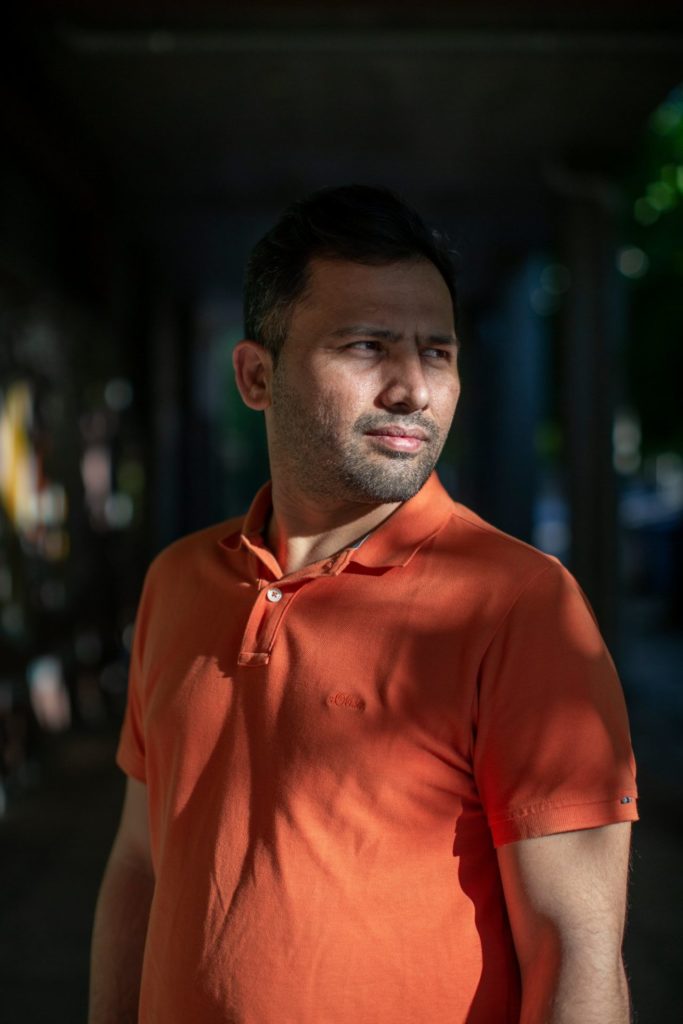
“Judging from how things are in Afghanistan, I understand that the coronavirus is common for us all; it knows no continents and borders. People in my country are afraid, because the health system is in a really bad state”
Naseeruddin Nijami, 34 y.o., recognised refugee from Afghanistan
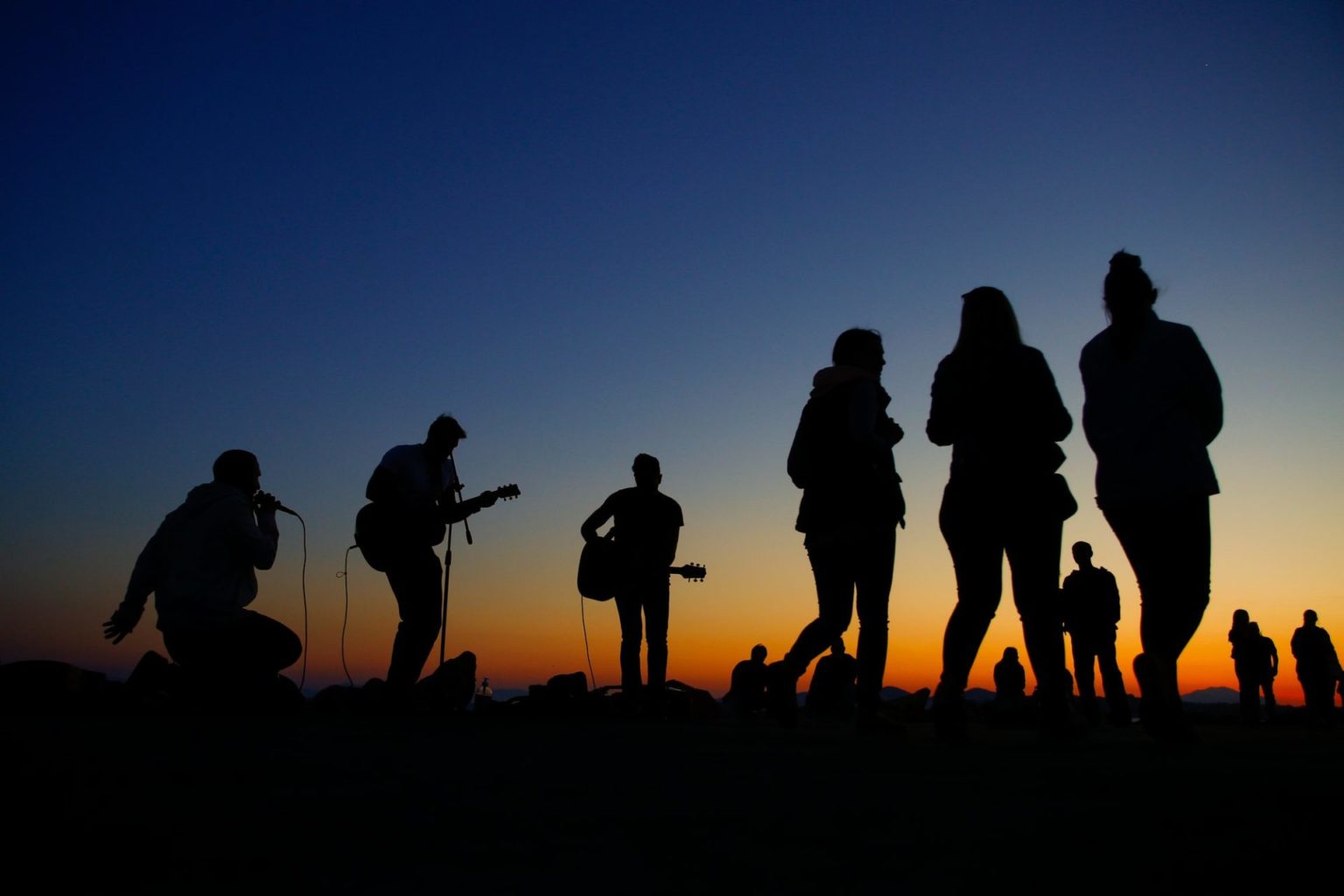
People enjoying their walk in the sunset on Flisvos beach, after the lift of the lockdown measures imposed in the context of the COVID-19 pandemic, in Paleo Faliro, 9 May 2020.
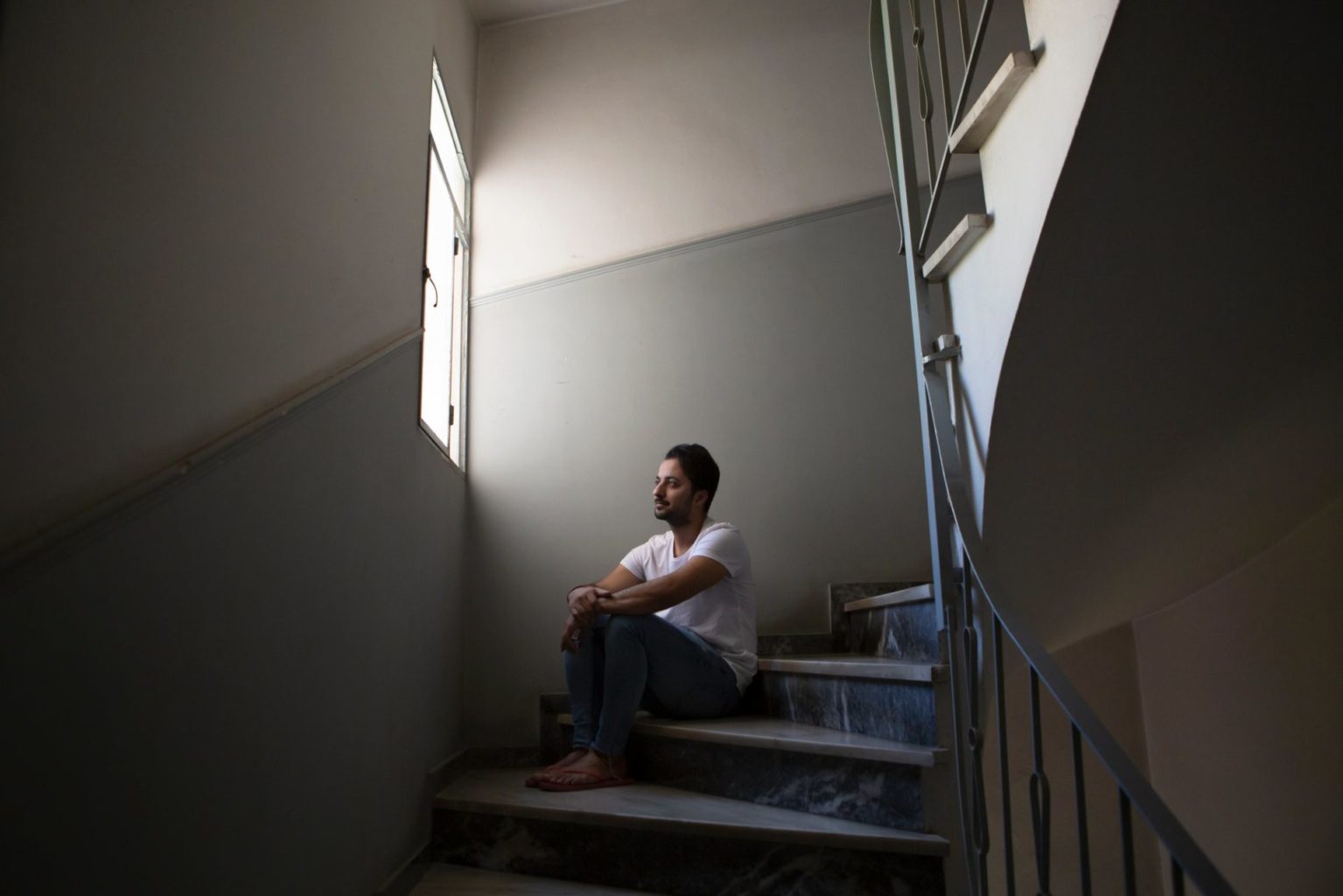
“At first, none had realised the severity of coronavirus in Iran. For a long period, no measures were taken and we had thousands of victims. I speak with my family everyday and I tell them to stay home, to wash their hands. We must apply the rules evewhere. Our planet is like a ship and we are the passengers; we will either make it together, or sink together"
Milad Motlagh, 27 y.o., Immigrant from Iran
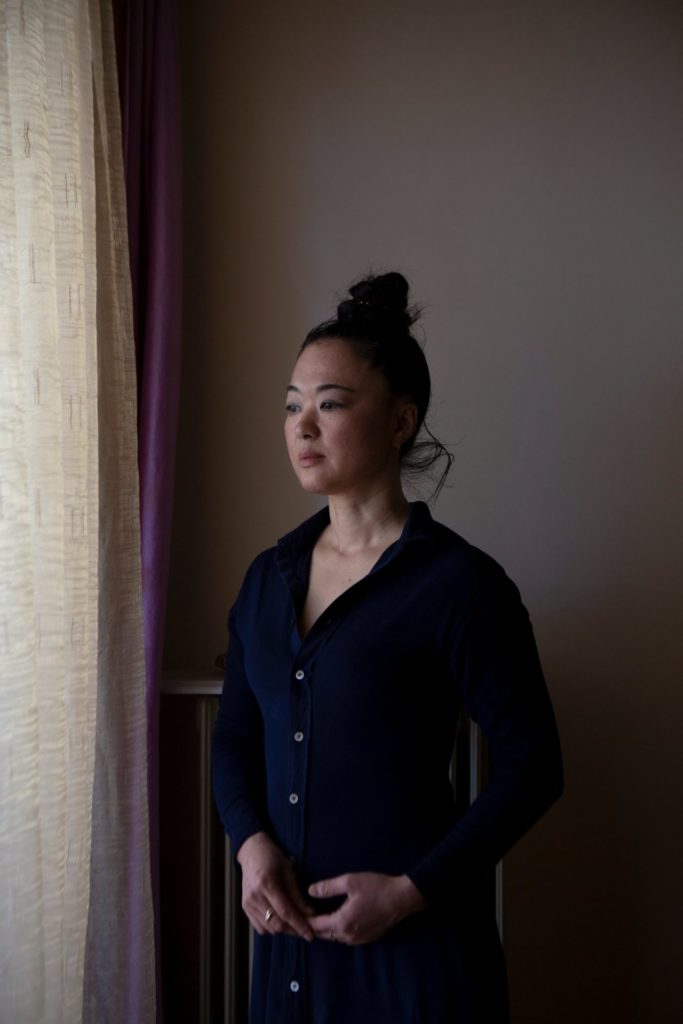
“As in Greece, people in my country too are worried about the economic crisis, because businesses are not doing too well. Many students are at risk of dropping out of universities, as they cannot afford their tuition fees”
Megumi Midorikawa, 48 y.o., Immigrant from Japan
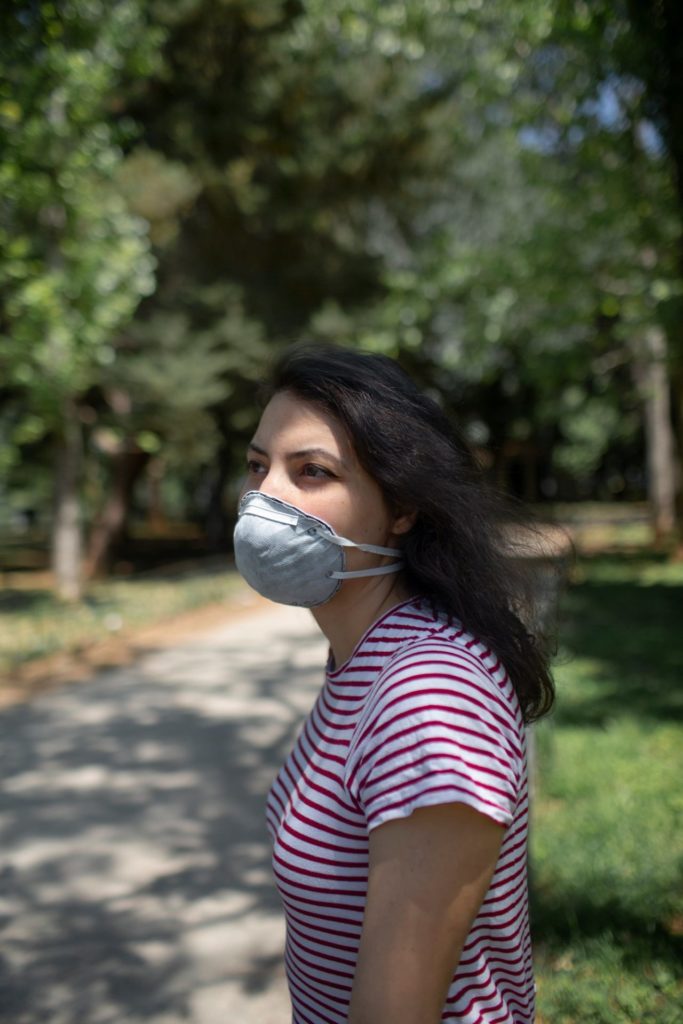
“Coronavirus has spread really fast in Turkey. This made me very worried about my family, especially my dad, who is diabetic and has a heart condition. My parents found it difficult to stay at home, because they come from the working class and have learnt to work for their survival”
Dilara Demir, 35 y.o., Immigrant from Turkey
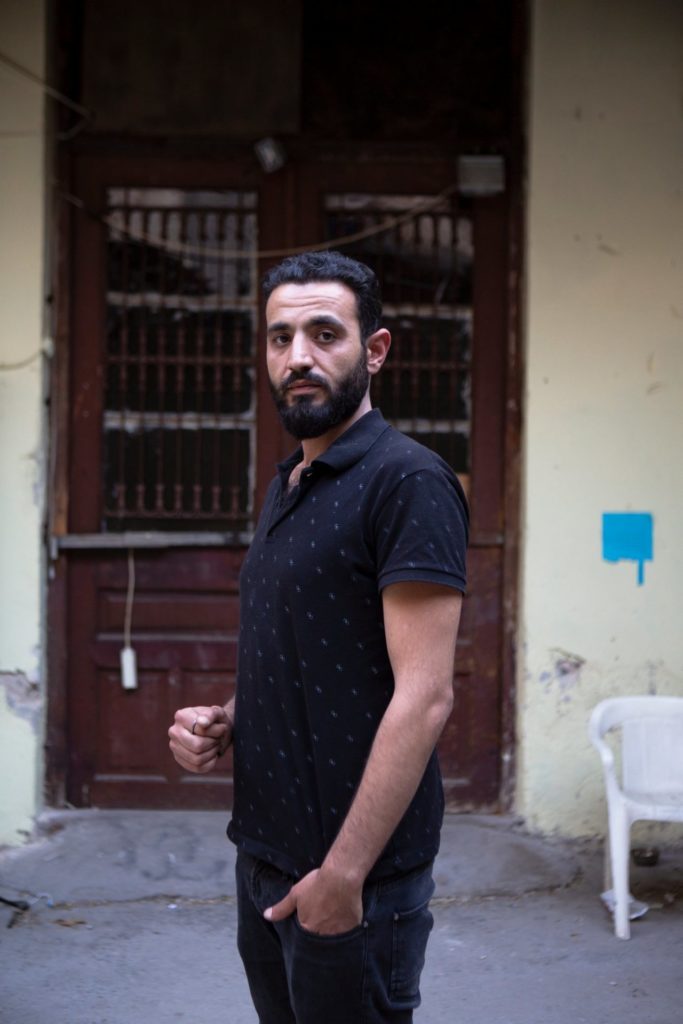
“We have no actual information about the real number of coronavirus deaths in Syria. The pandemic added yet another survival problem to our people, on top of war, hunger and our destroyed health system”
Kareem Al Kabbani, 30 y.o., refugee from Syria
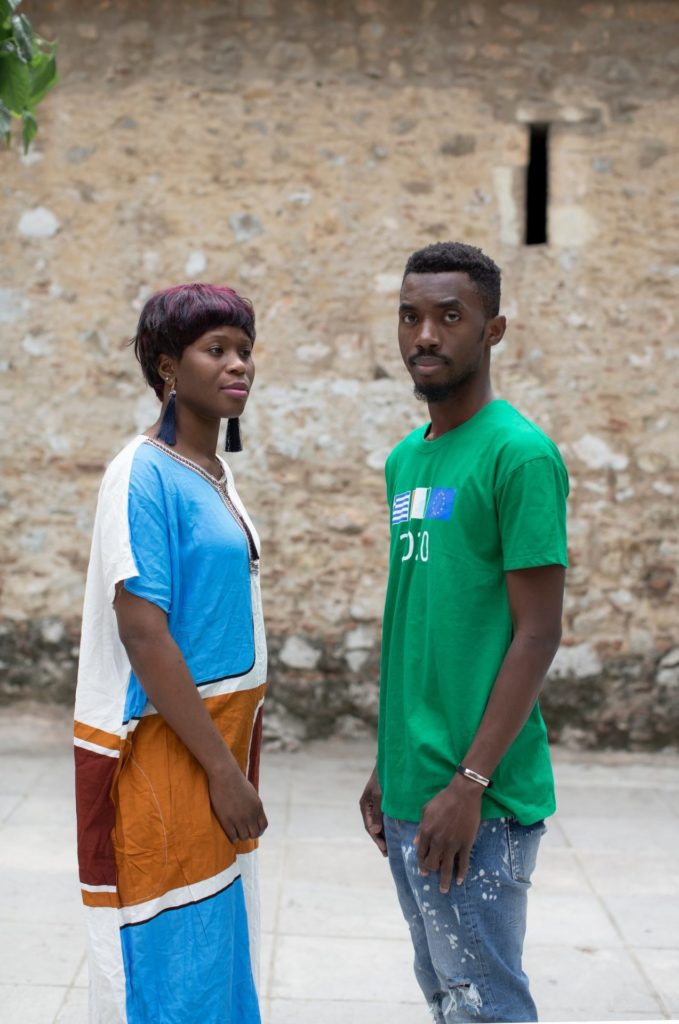
“I talk with my family in Ivory Coast everyday. However, I am concerned about those who have to go to work and are at risk of catching the disease. We want to help everyone, in Greece too. This is why we collect essentials to offer them”
Moussa Sangare, 30 y.o., and Aicha Traore, 26 y.o., Immigrants from Ivory Coast
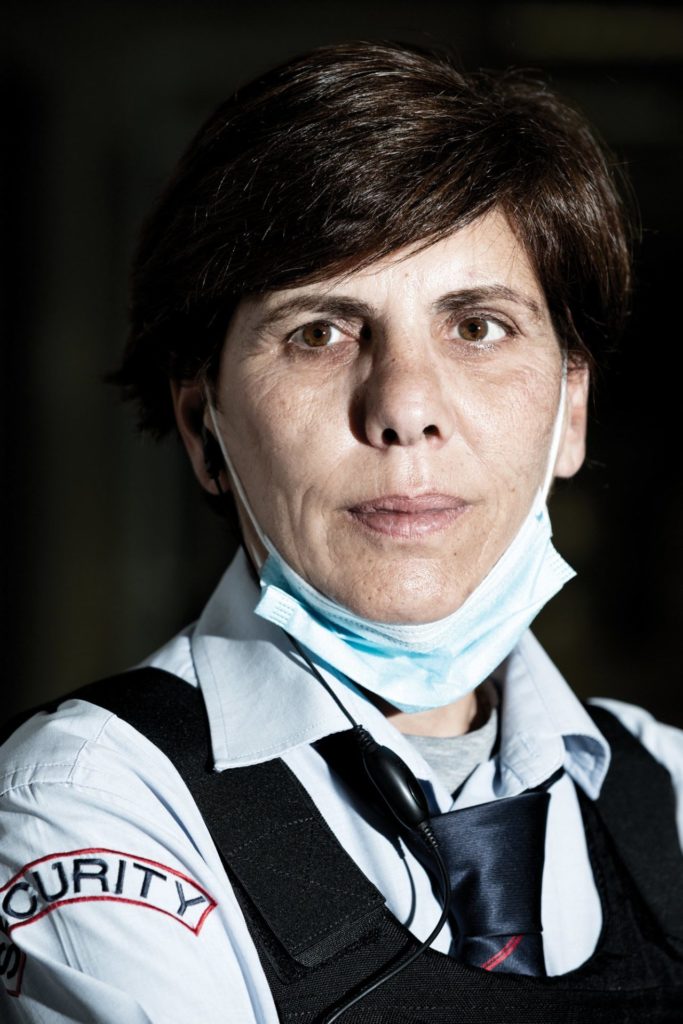
“I have worked in hospitals for 15 years and this is by far the hardest situation I have ever dealt with”
Stamatina Mylona, security staff at “Evangelismos” hospital
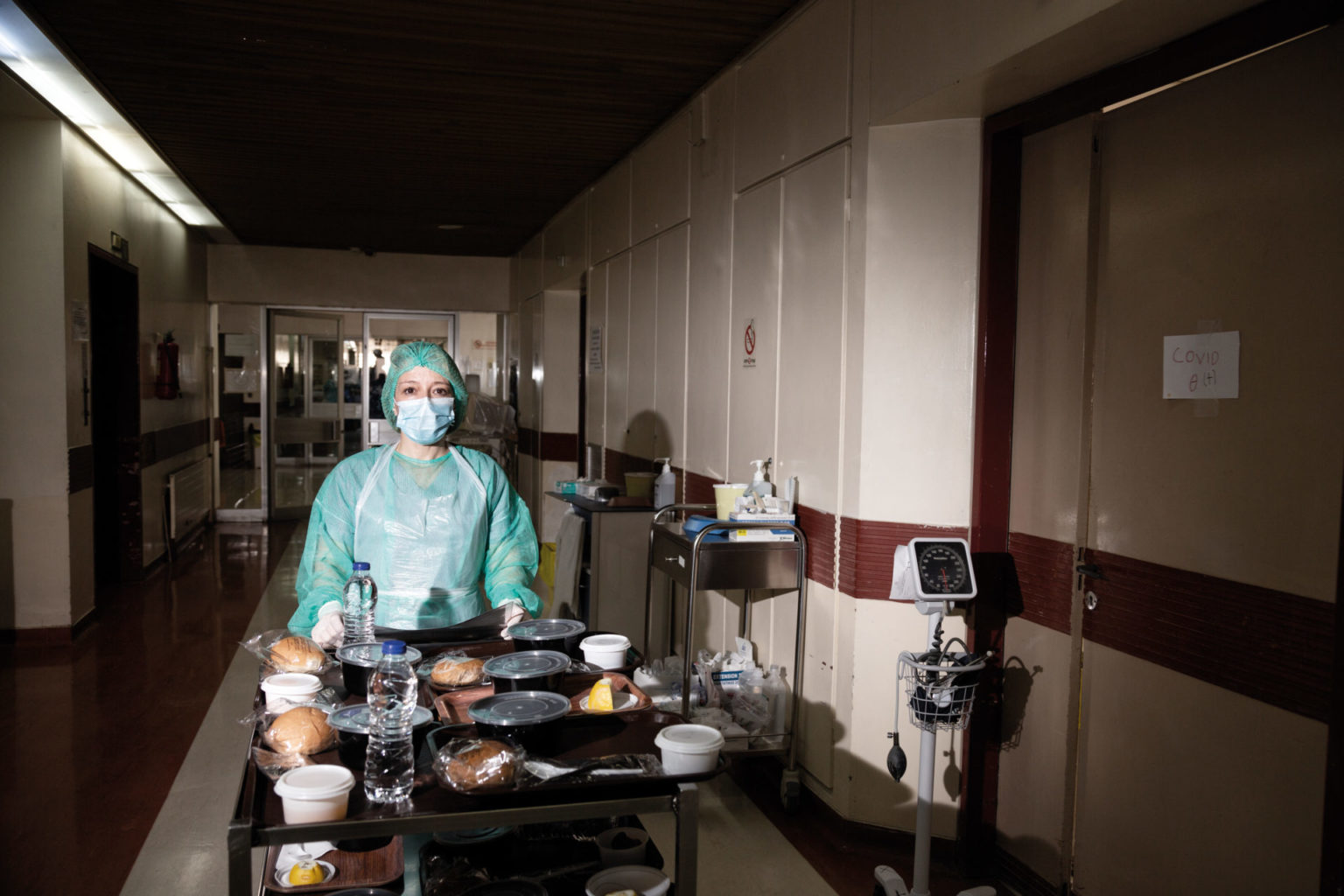
Niki Zamagia, food service worker, 49 y.o., 3rd Covid Clinic, Evangelismos Hospital
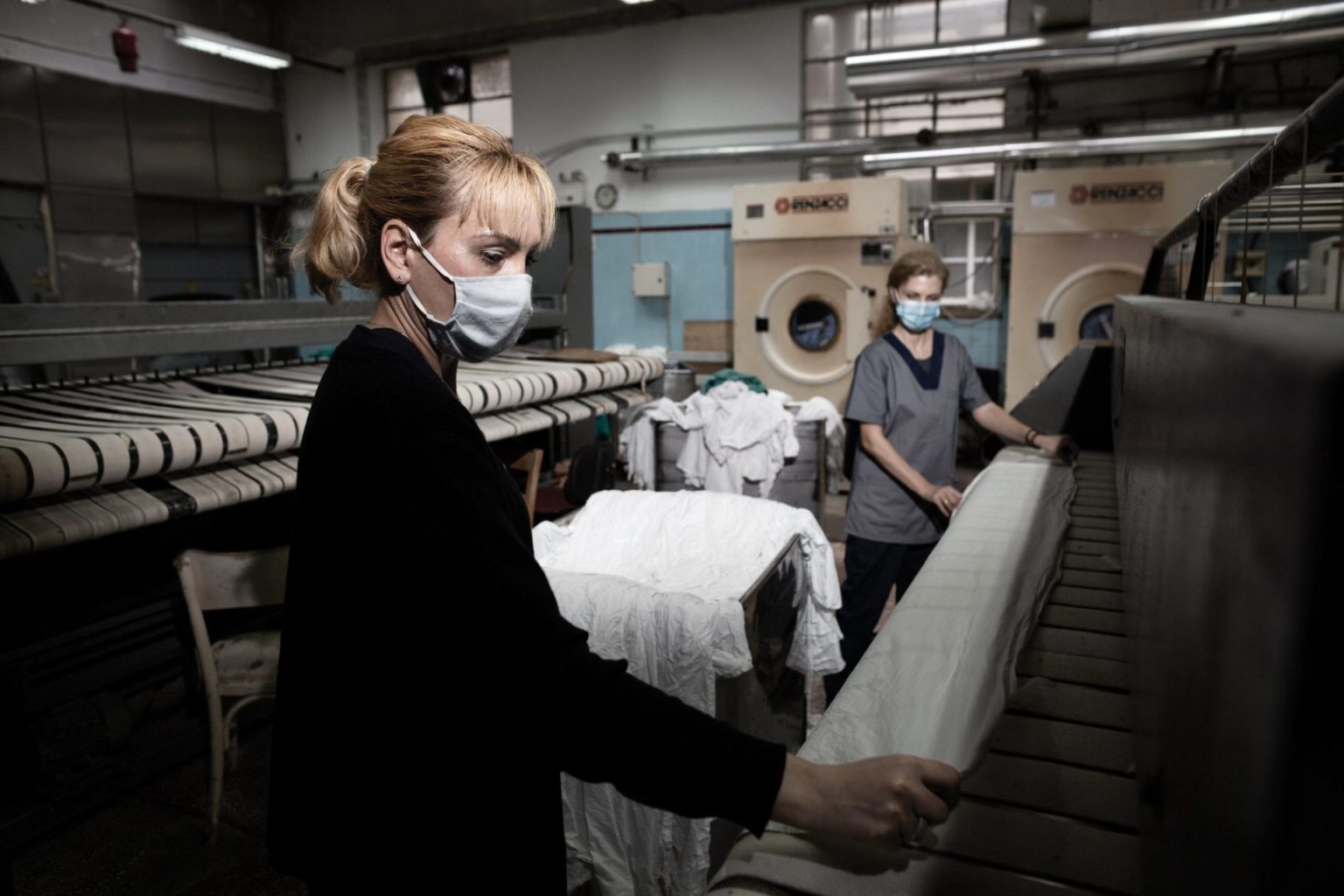
Hospital “Evangelismos” – Laundry
Anna Markou and Olga Sidiropoulou iron hospital sheets.
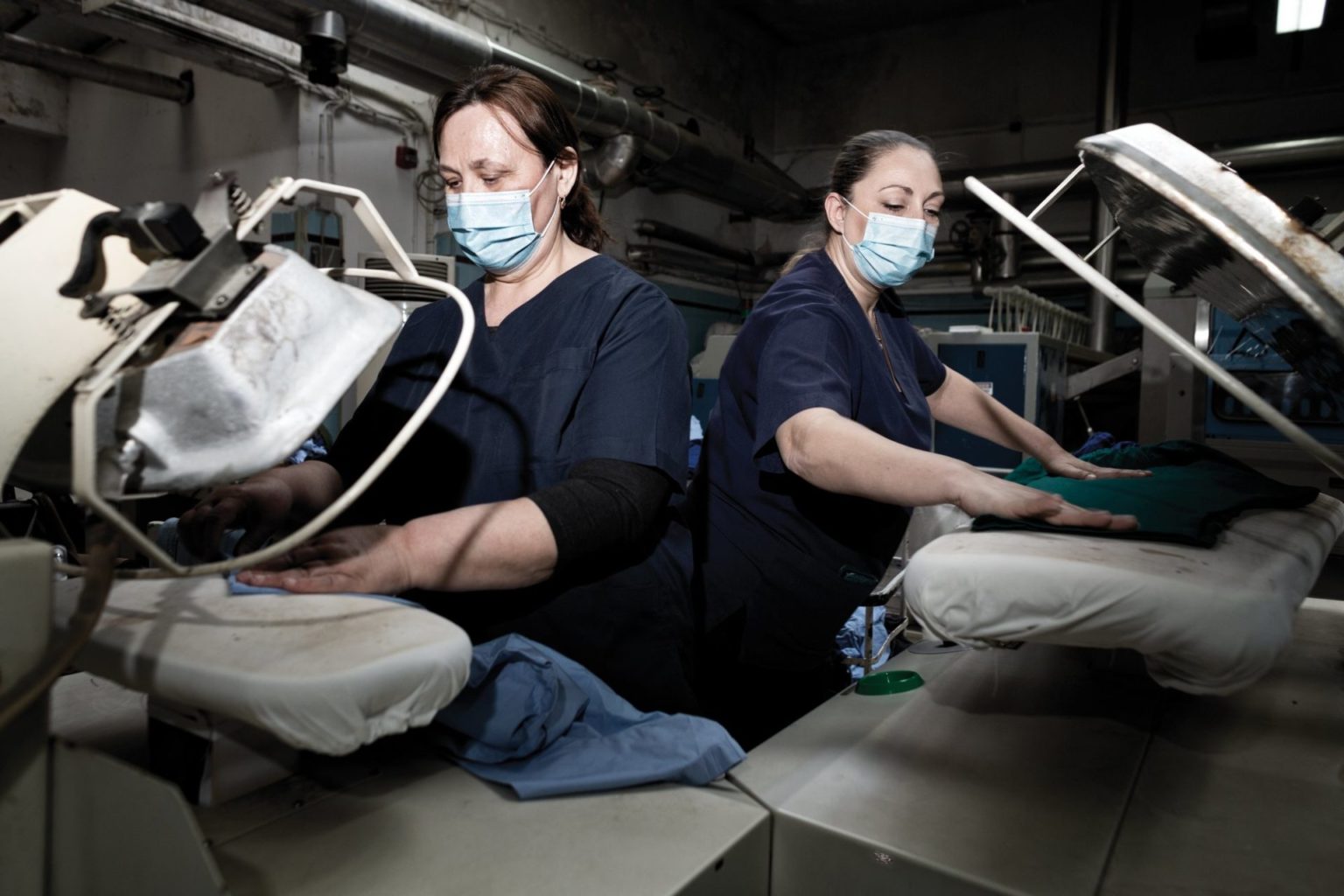
Hospital “Evangelismos” – Laundry
Georgia Zacharou, Svetlana Berezoyska
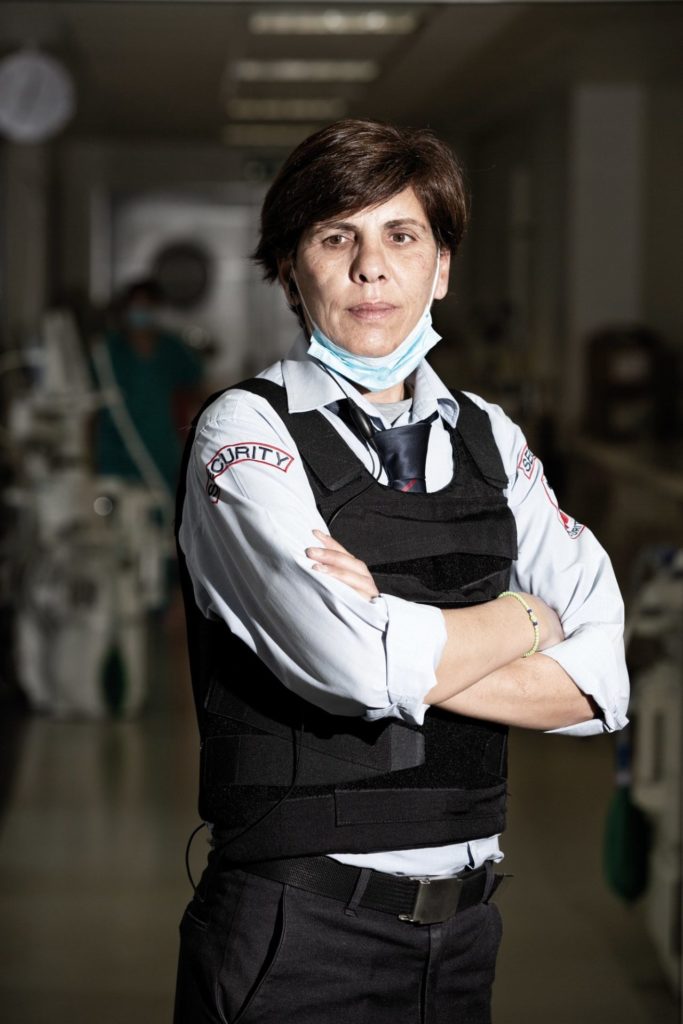
Stamatina Mylona, security staff at “Evangelismos” hospital
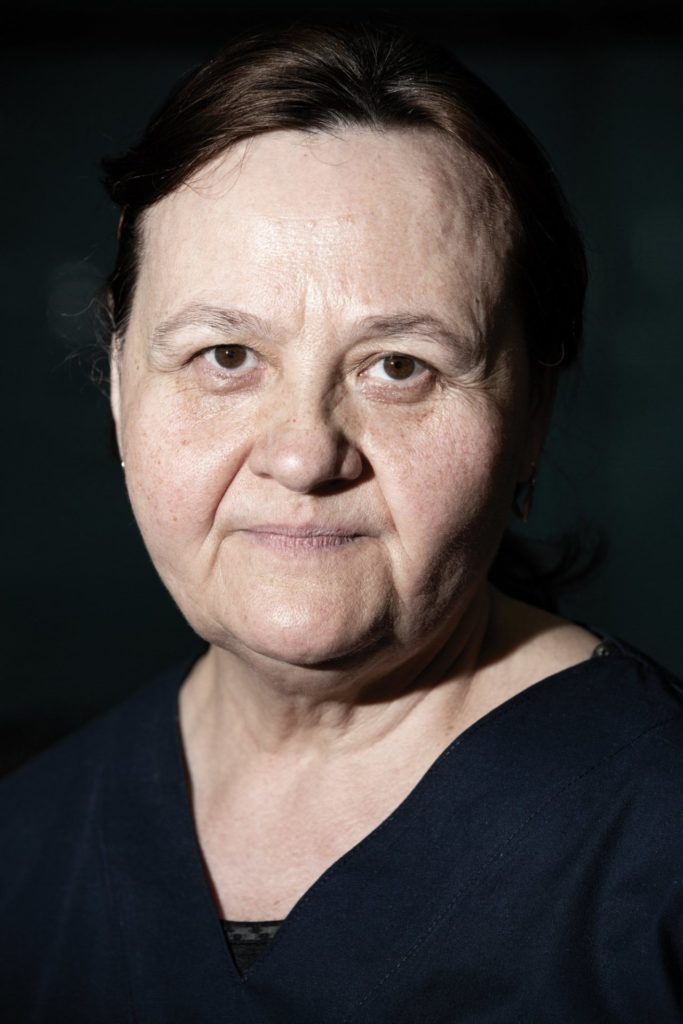
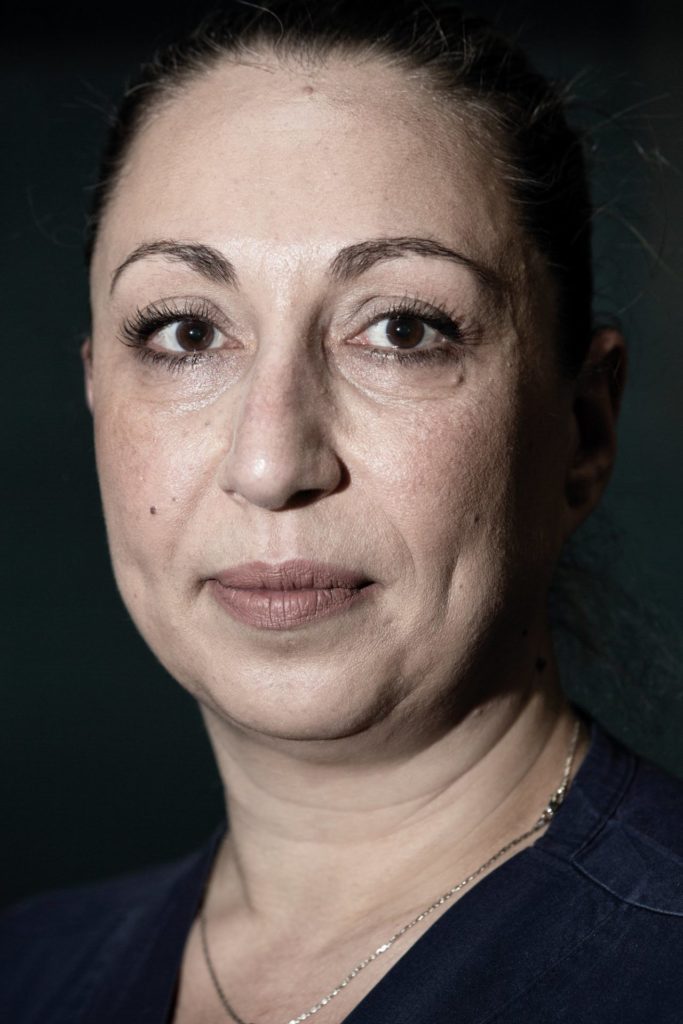
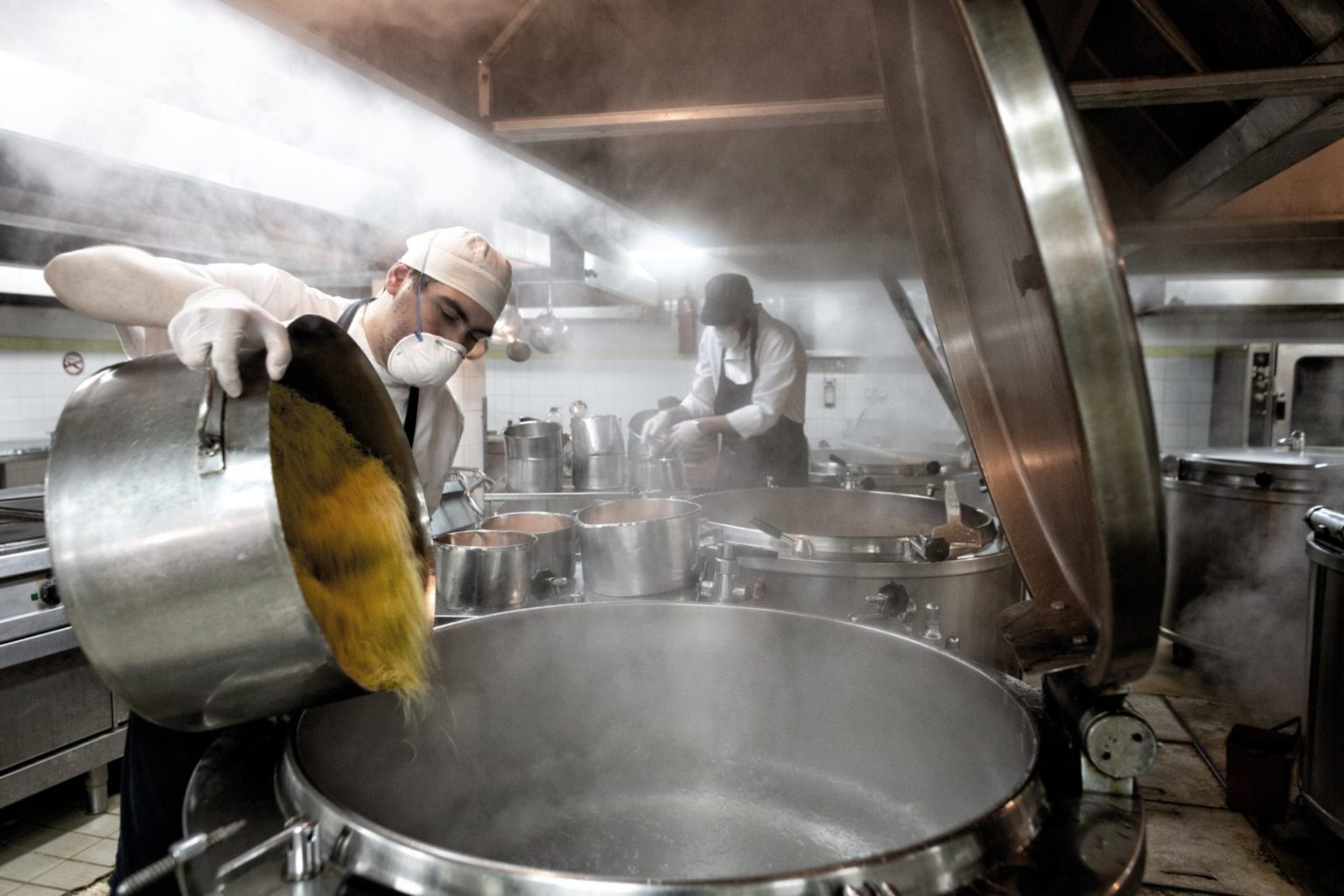
Hospital “Evangelismos” – Kitchen
Ioannis Arvanitis, Pavlos Iordanidis
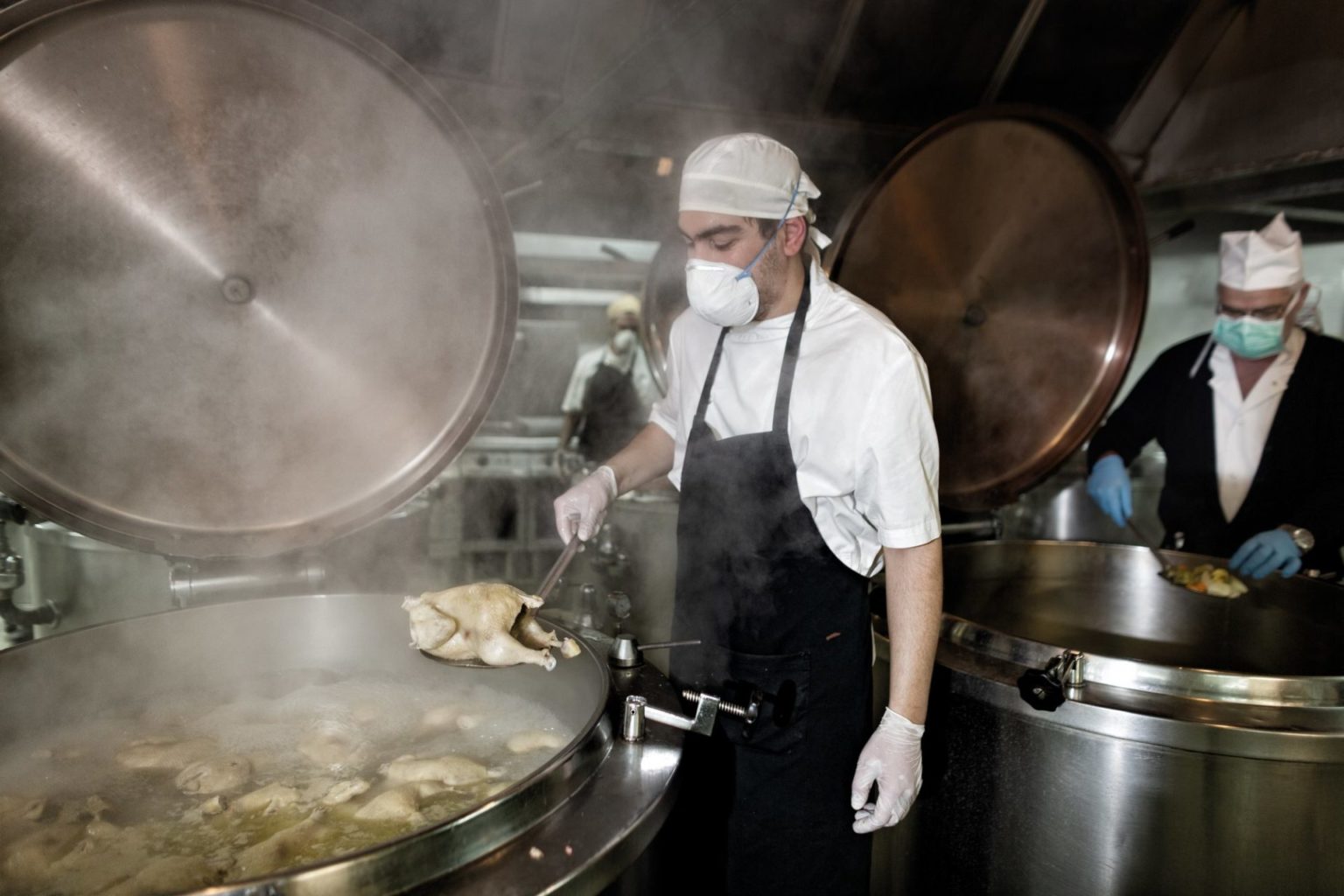
Hospital “Evangelismos” – Kitchen
Ioannis Arvanitis, Nikos Mastorakis, Pavlos Iordanidis
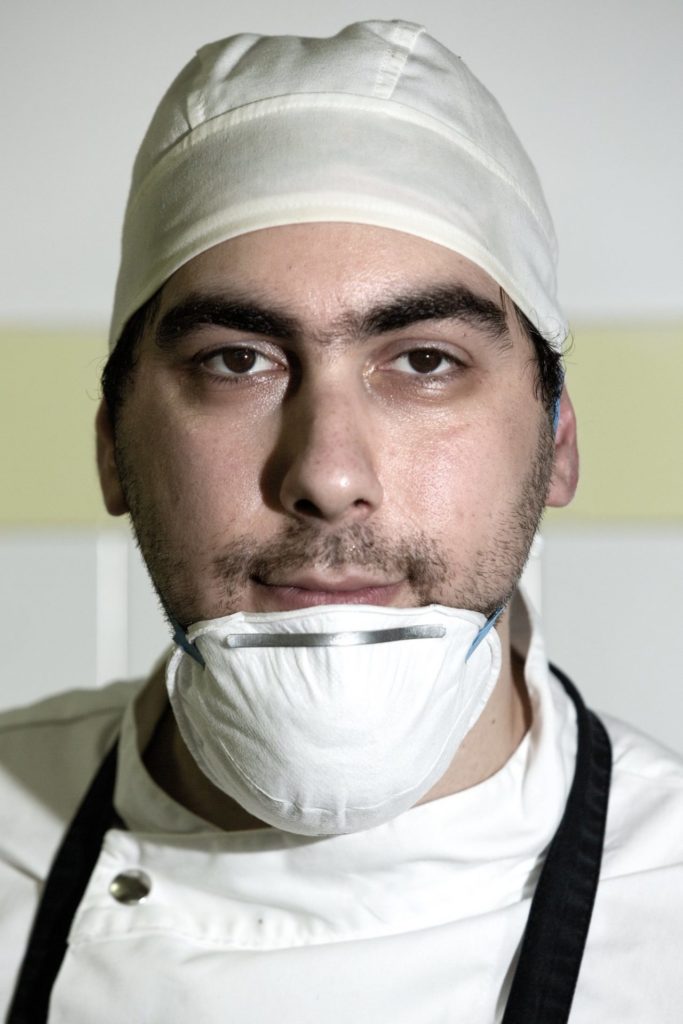
"Our leasing company pays us as employees every four months. We stay here and do our duty for the patients and society”
Hospital “Evangelismos” – Kitchen
Ioannis Arvanitis – cook
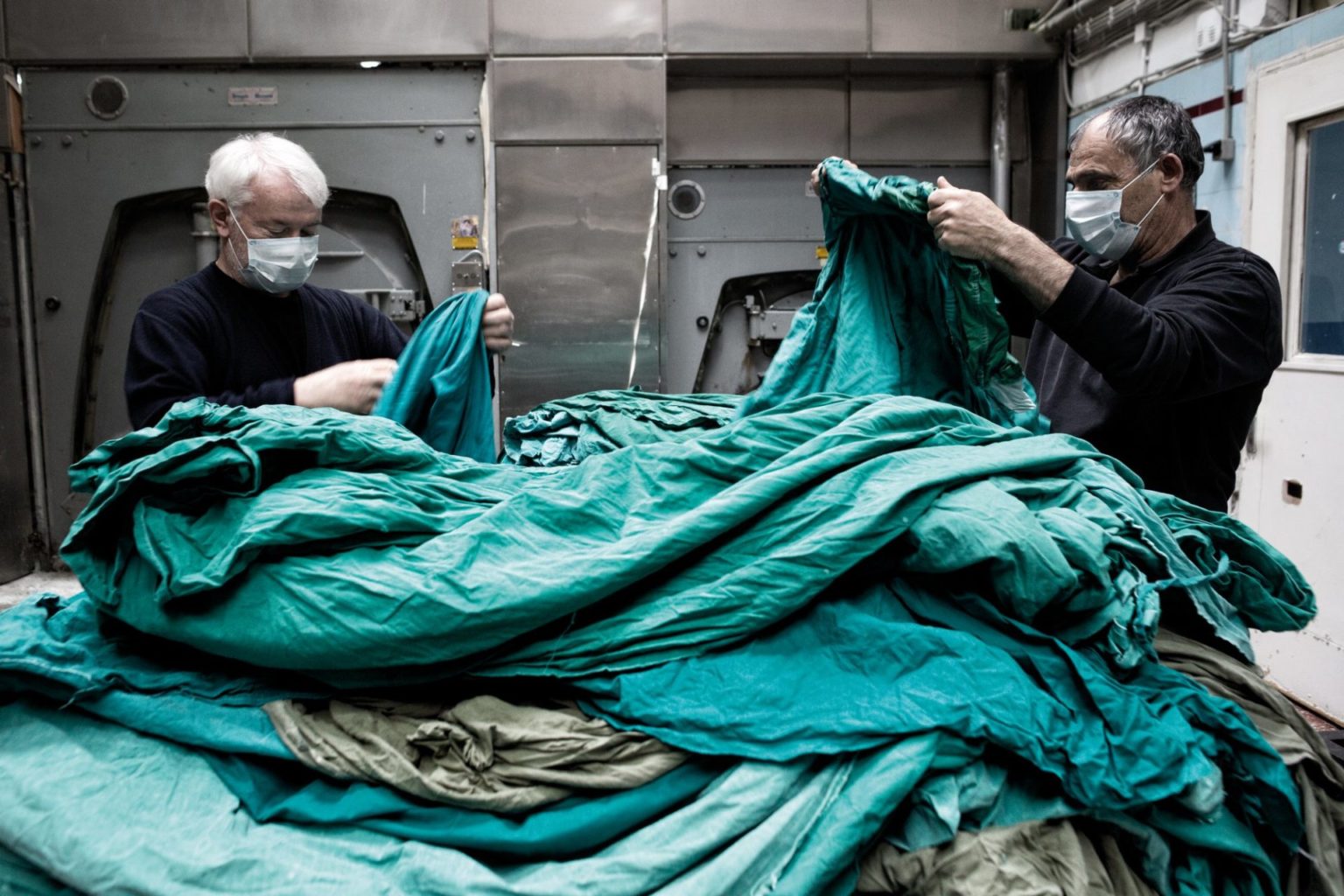
Hospital “Evangelismos” – Laundry
Christos Kontos and Hektor Balitas prepare the scrubs of doctors and nurses for ironing, right out of the autoclave.
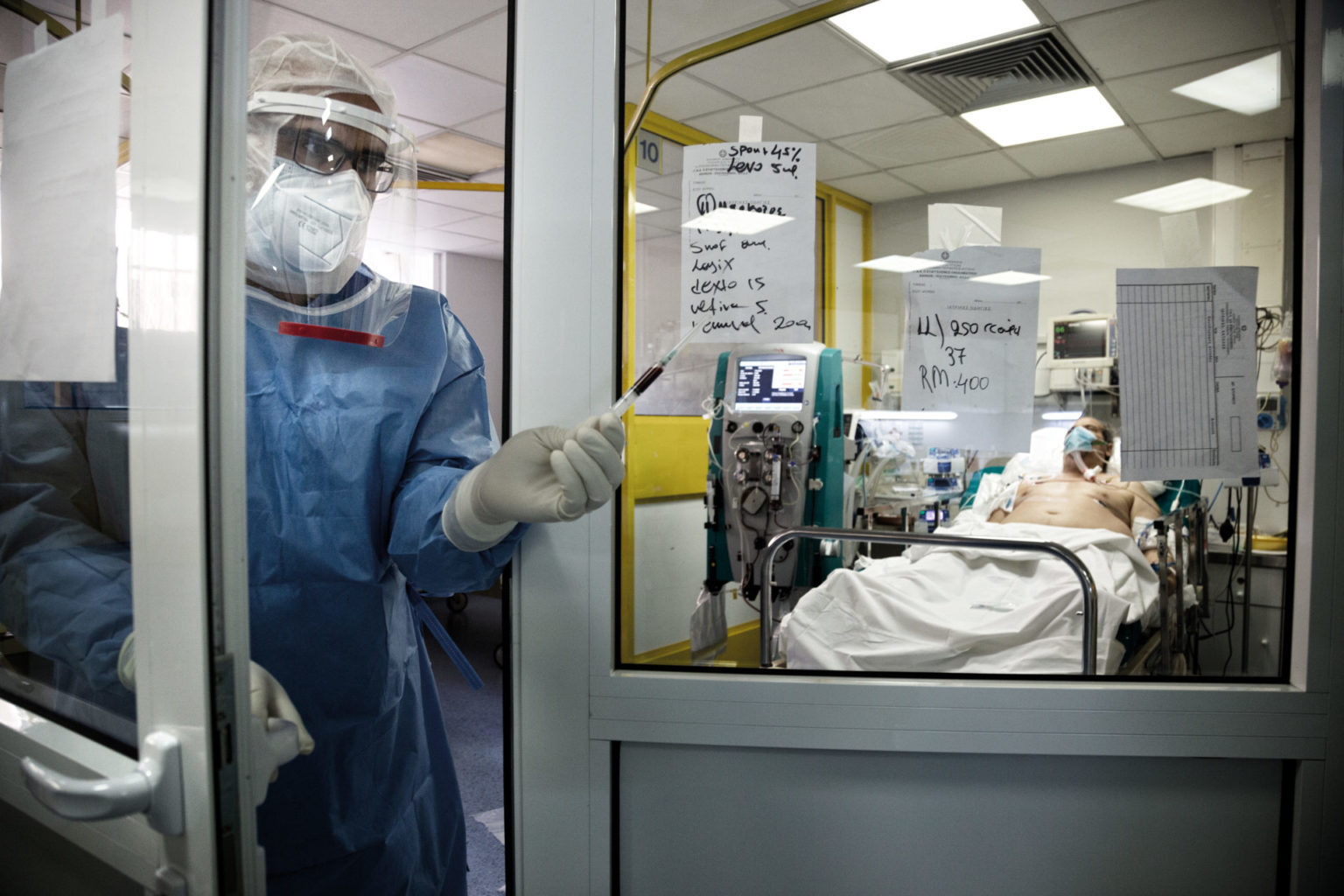
Covid-19 ICU – Evangelismos Hospital
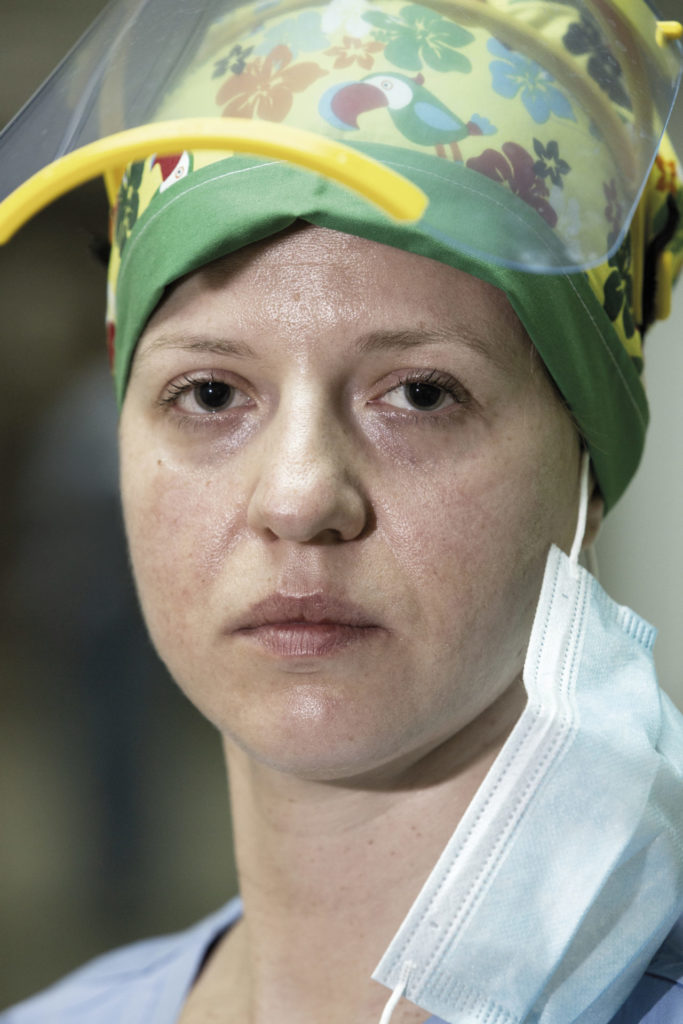
Chrysa Vasilaki, Covid ICU Nurse – Evangelismos Hospital
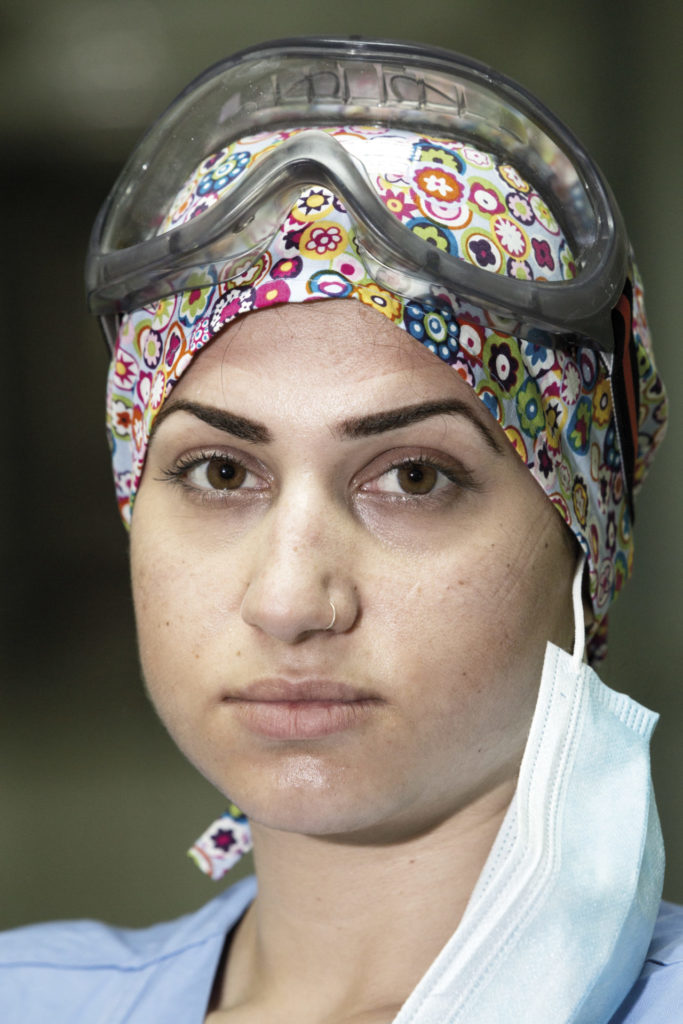
Konstantina Koufidi, Covid ICU – Evangelismos Hospital
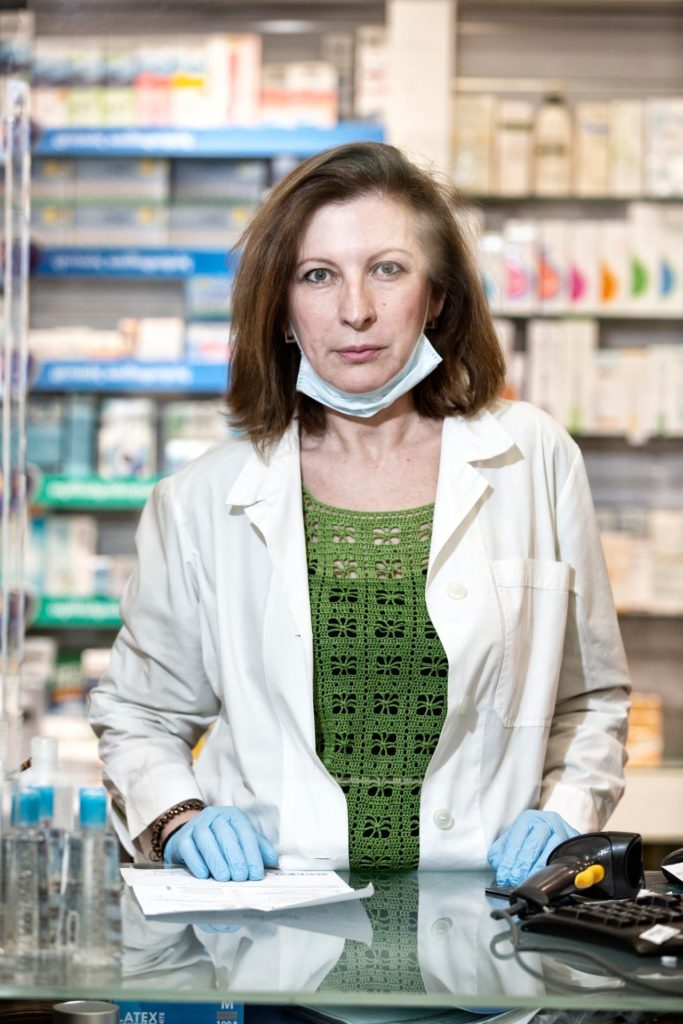
“We have come to appreciate how important it is to meet your friends and family and how valuable to enjoy your coffee in the sun.”
Fotini Kalpaxi, Pharmacist
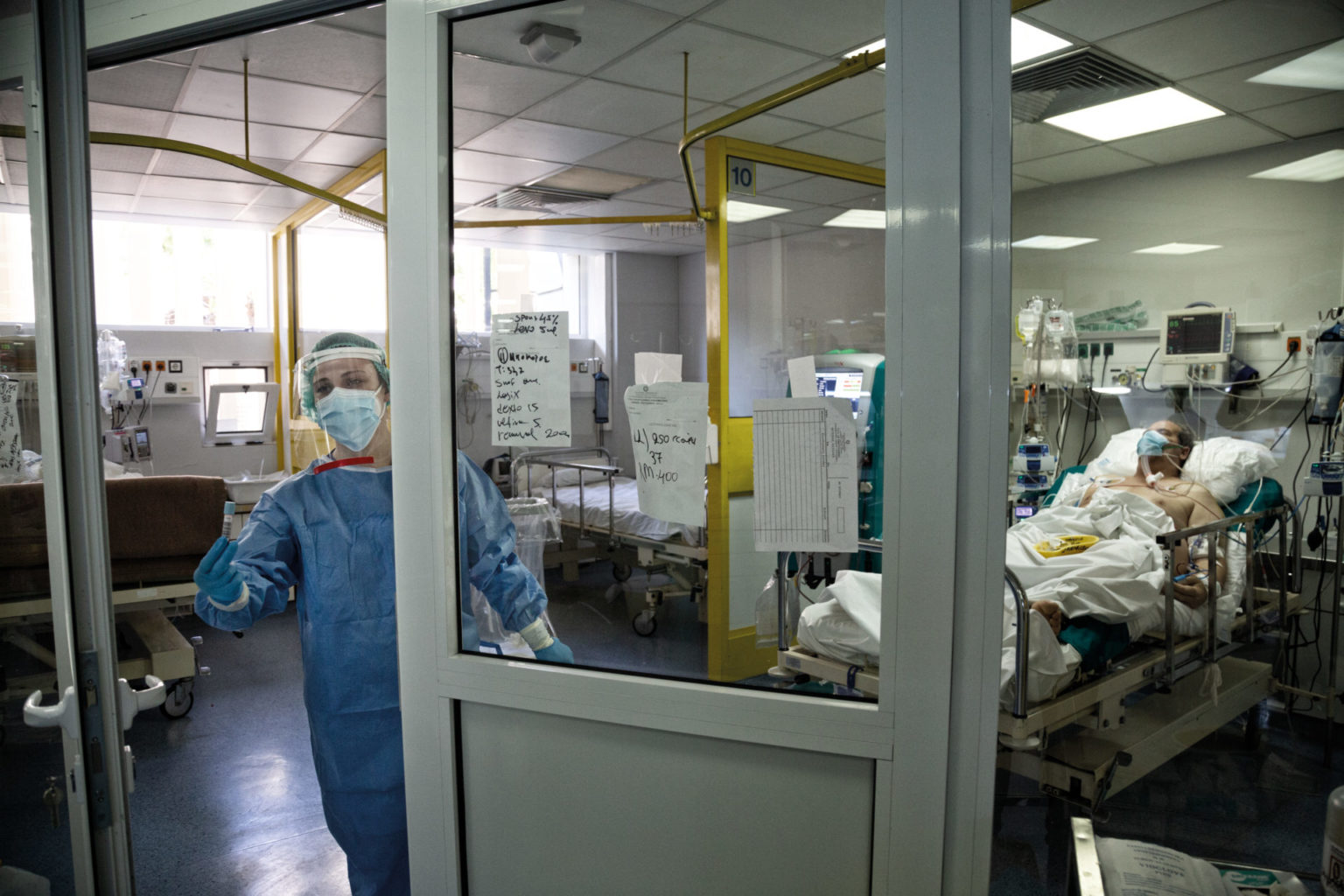
Covid-19 ICU – Evangelismos Hospital
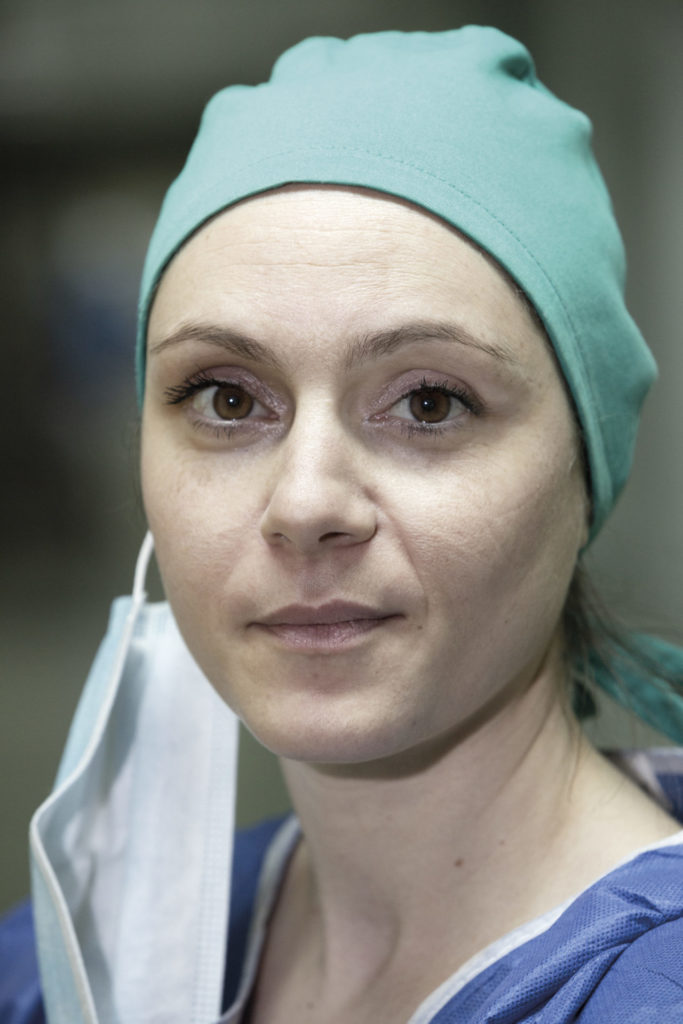
Nikoleta Ouzounidou, Covid ICU nurse – Evangelismos hospital
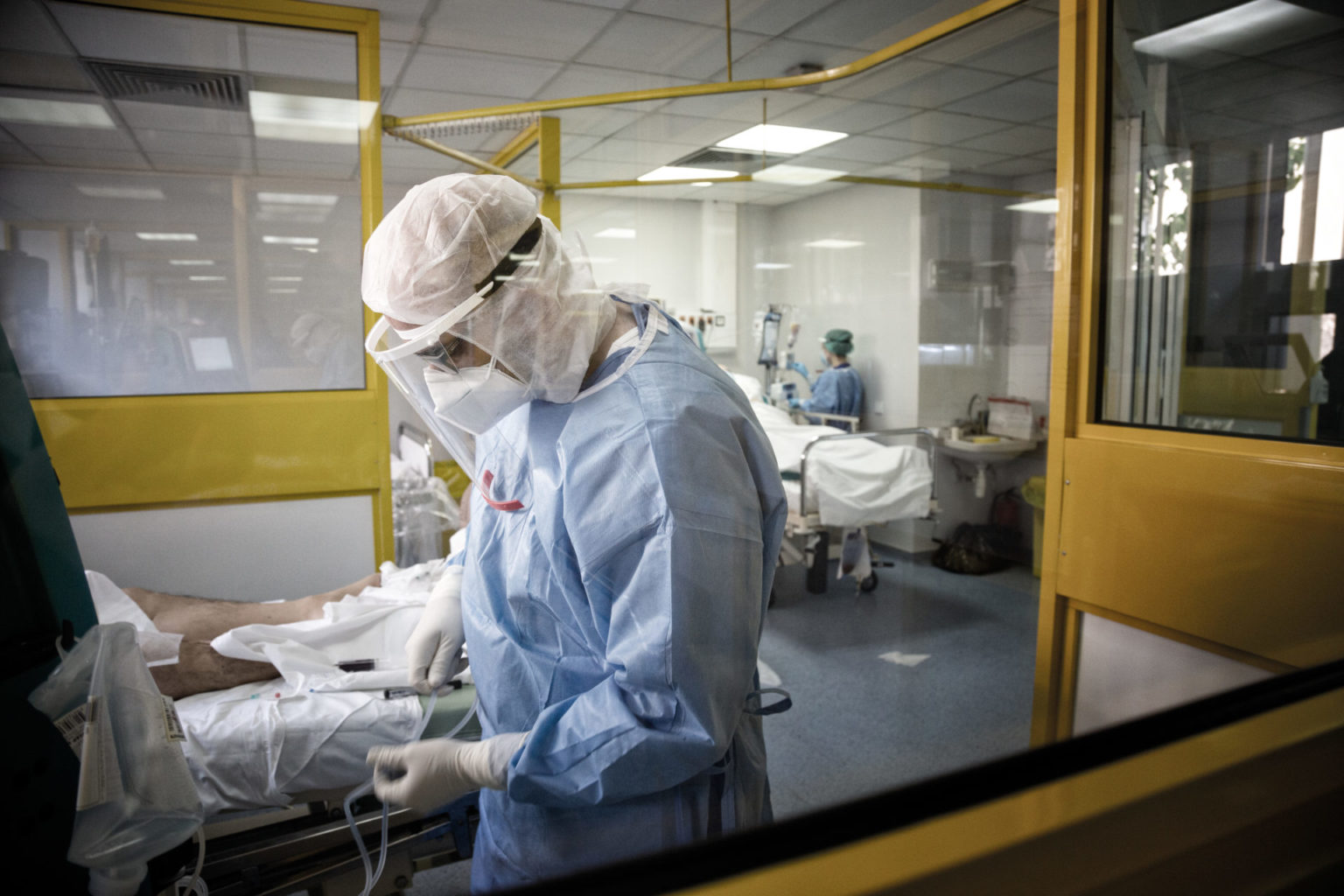
Covid-19 ICU – Evangelismos Hospital
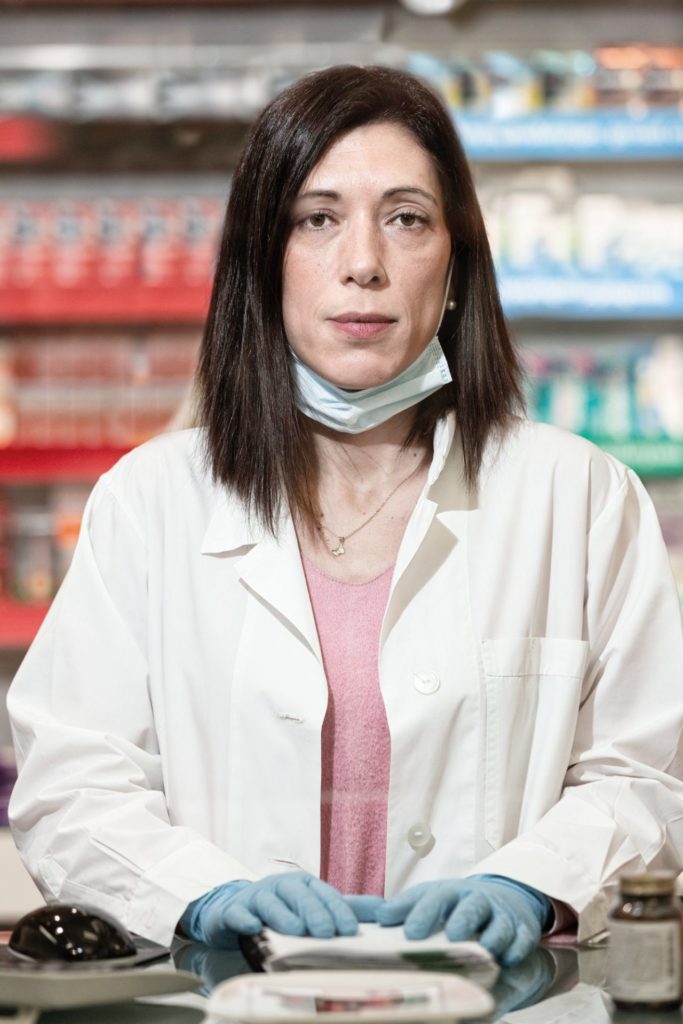
“We continue to make home deliveries of medicine, especially to older people who are afraid to move or belong to vulnerable groups.”
Christina Tsempeli, Pharmacy Assistant
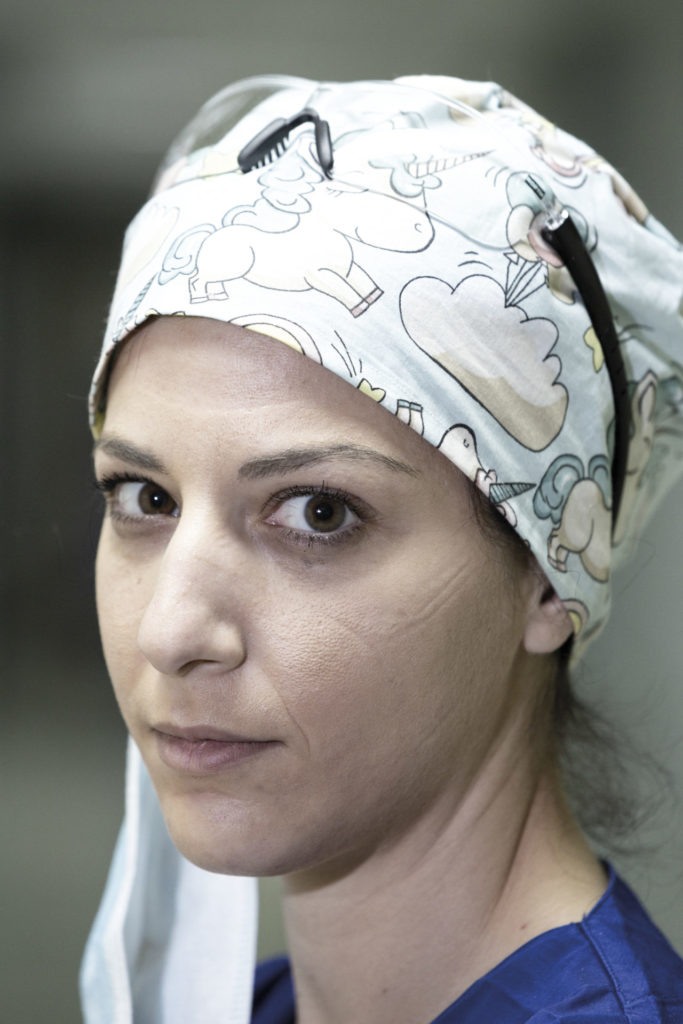
Georgia Chantzopoulou, Covid ICU Nurse – Evangelismos Hospital
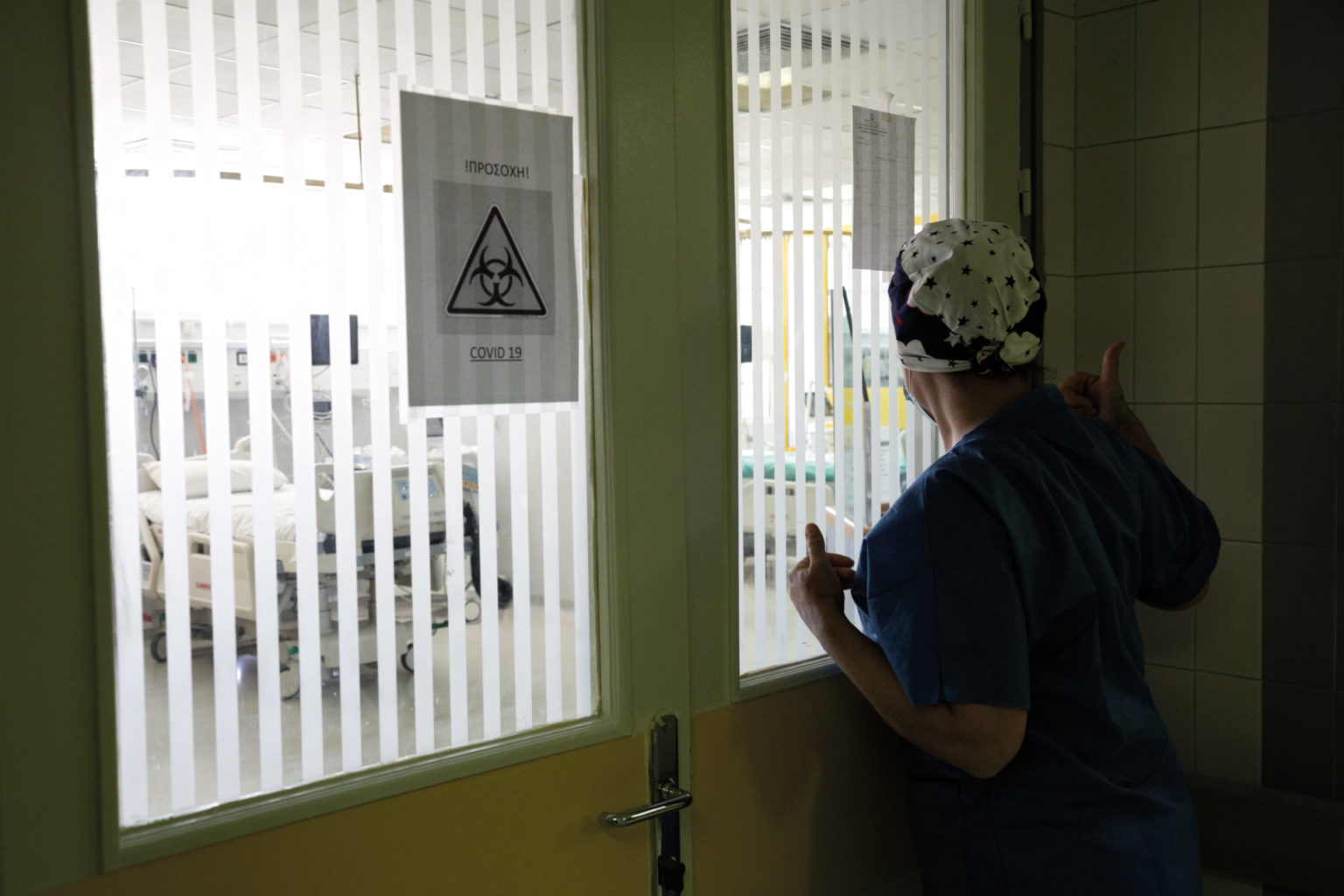
Covid ICU – Evangelismos Hospital
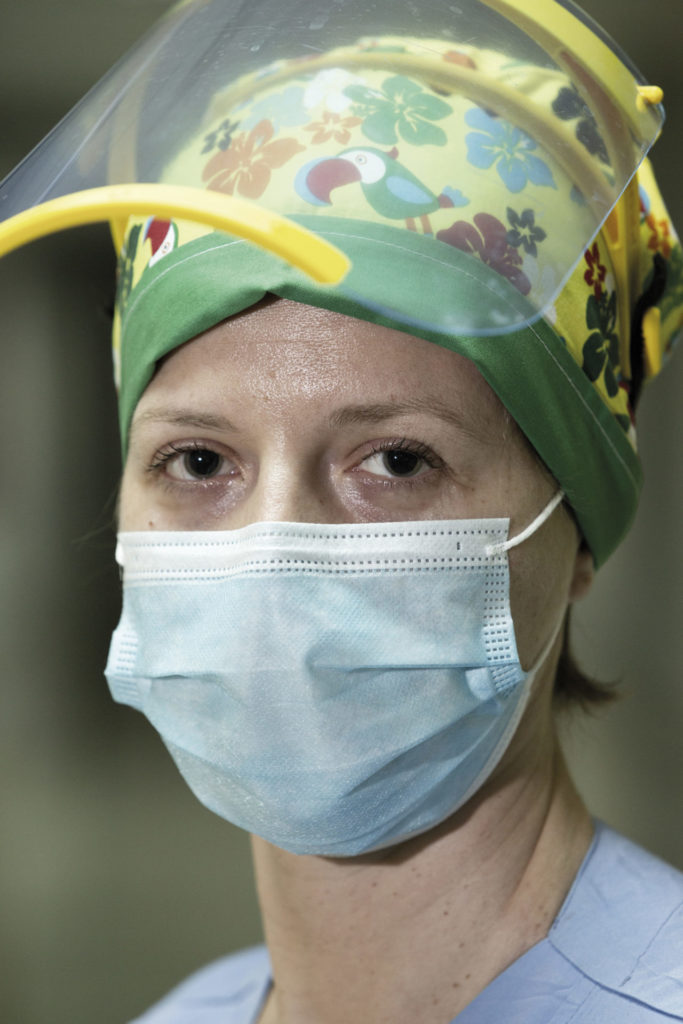
Chrysa Vasilaki, Covid ICU Nurse – Evangelismos Hospital
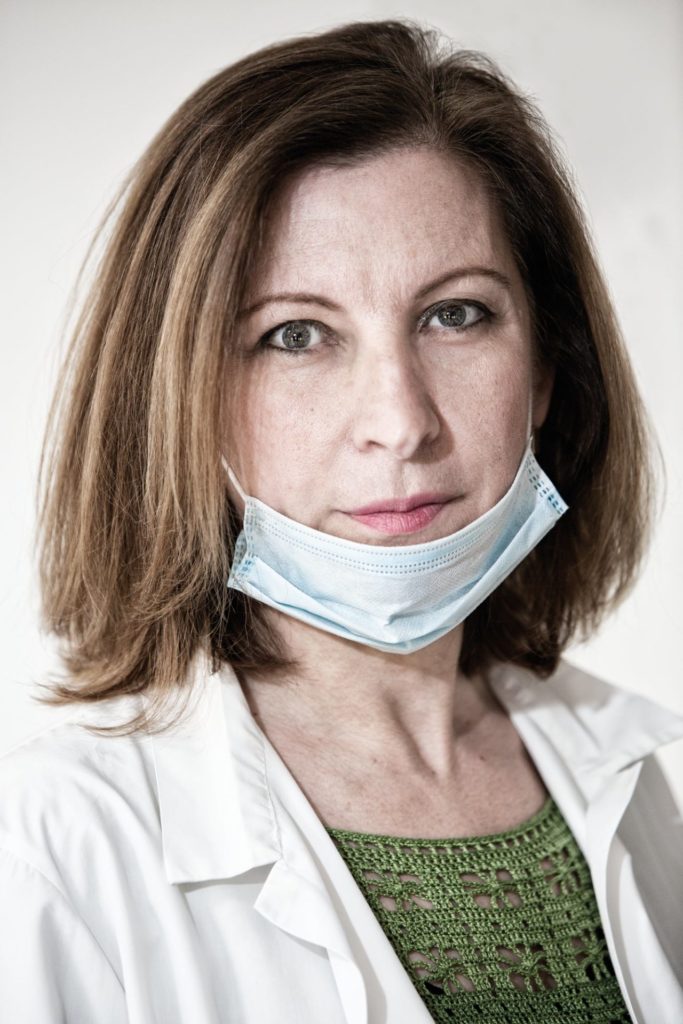
“Our life has not changed that much, as we continue to work normally and this keeps up balanced.”
Fotini Kalpaxi, Pharmacist
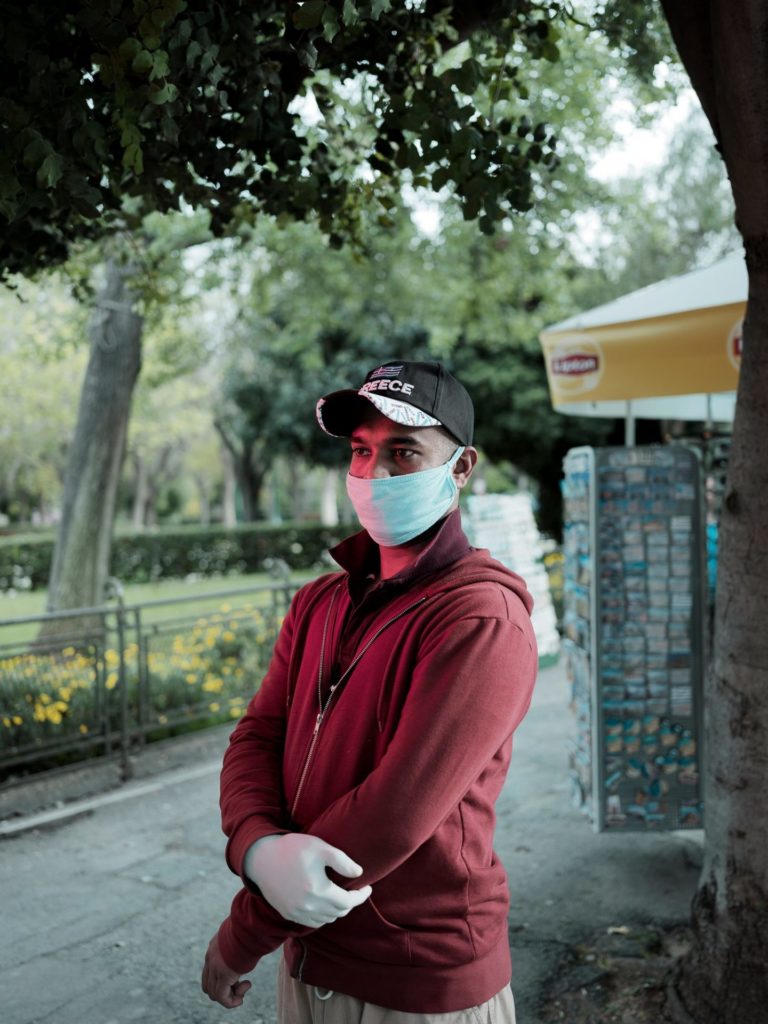
“I am scared of getting sick and afraid of the future”
Mosharef Parvez, Kiosk owner
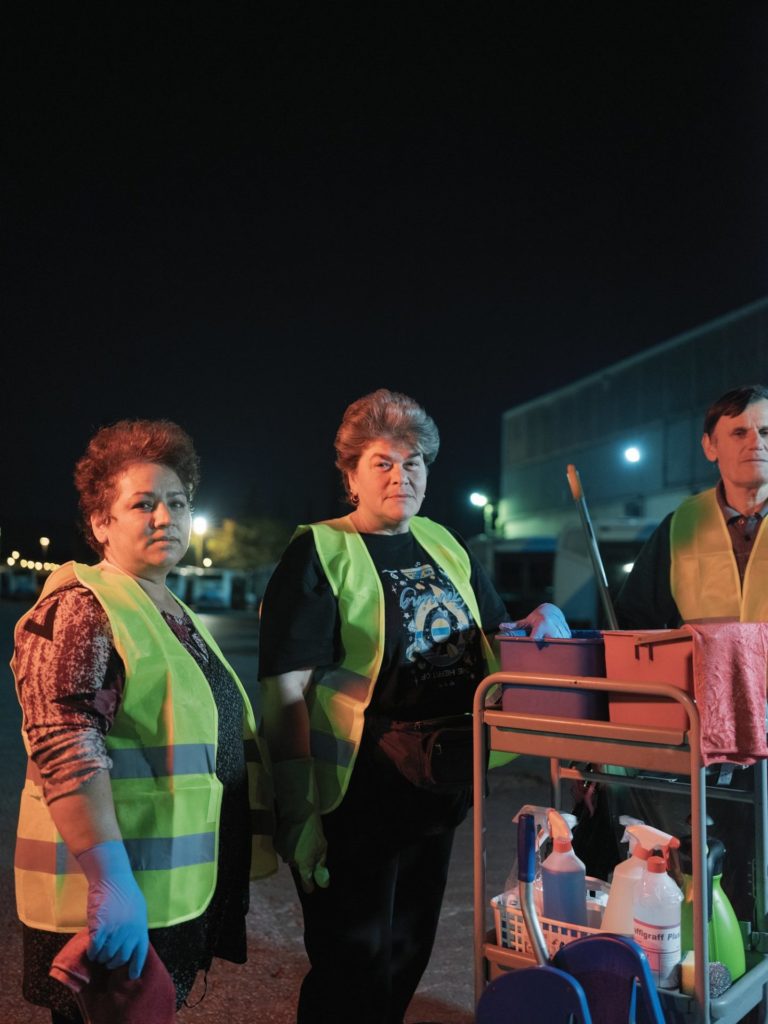
“We have burnt our hands. The psychological pressure is greater now”
Metushi Vana – Tsewova Zhika – Giannakis Alekos, Athens’ Public Transport Organisation (OASA) Cleaners
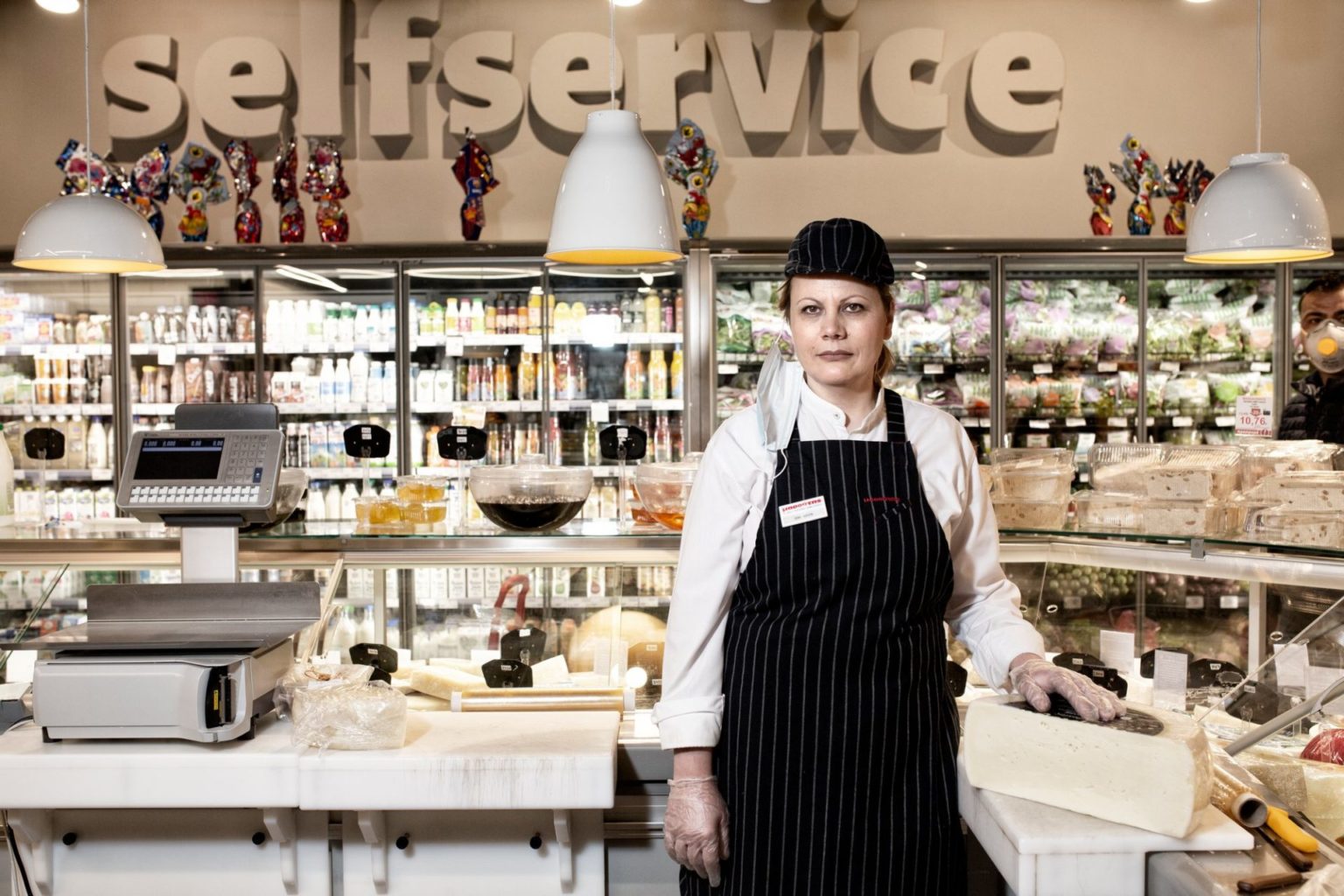
Mailinta Zoe, 45 y.o., supermarket employee for 11 years.
Married mother of two.
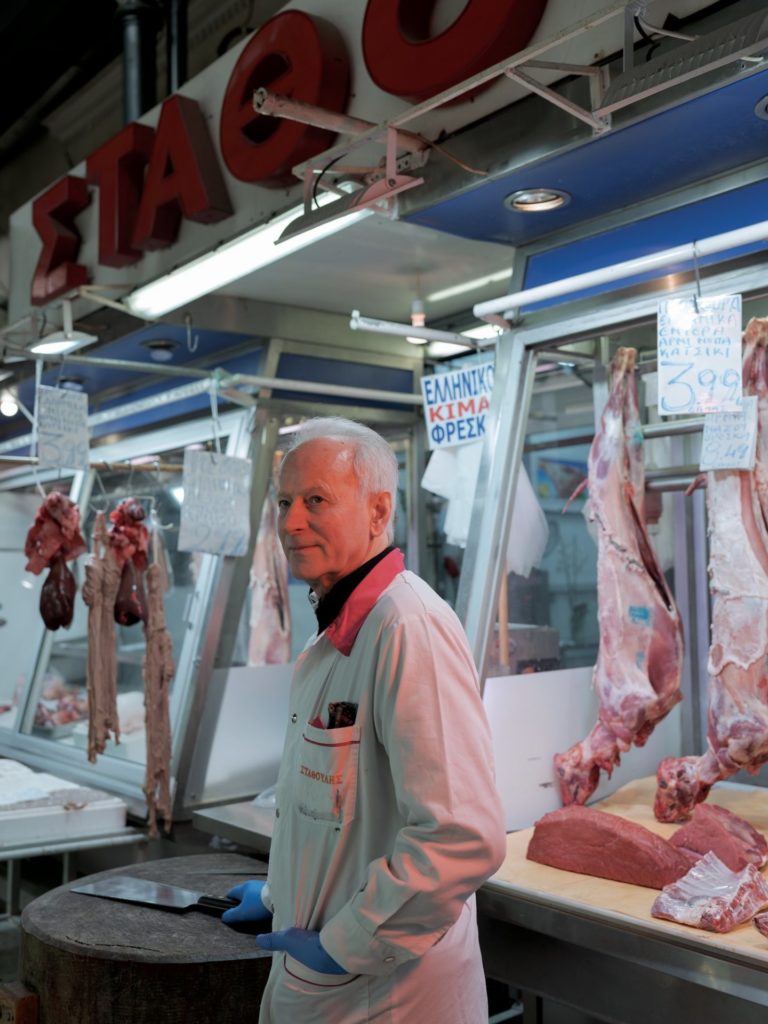
“My children are worried about me being here everyday”
Nikos Stathoulis, Butcher at the Central Market (Varvakios)
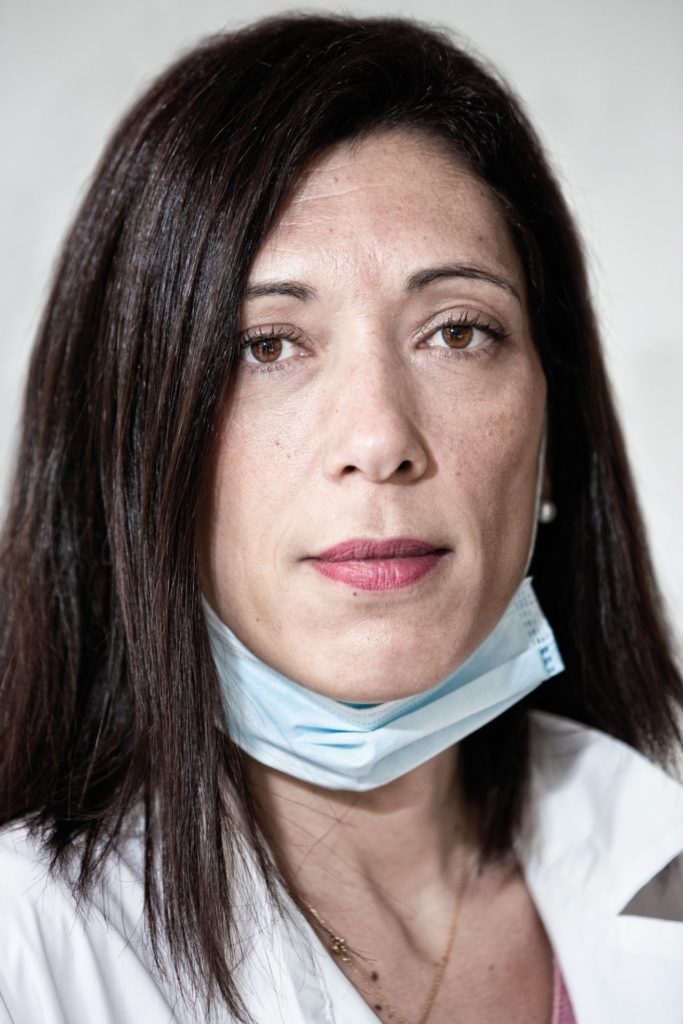
“The first week was very hard; there was lots of fear, hysterics and panic. We knew it right from the start that there would be shortages, so we applied purchase restrictions for disinfectants and masks.”
Christina Tsempeli, Pharmacy Assistant
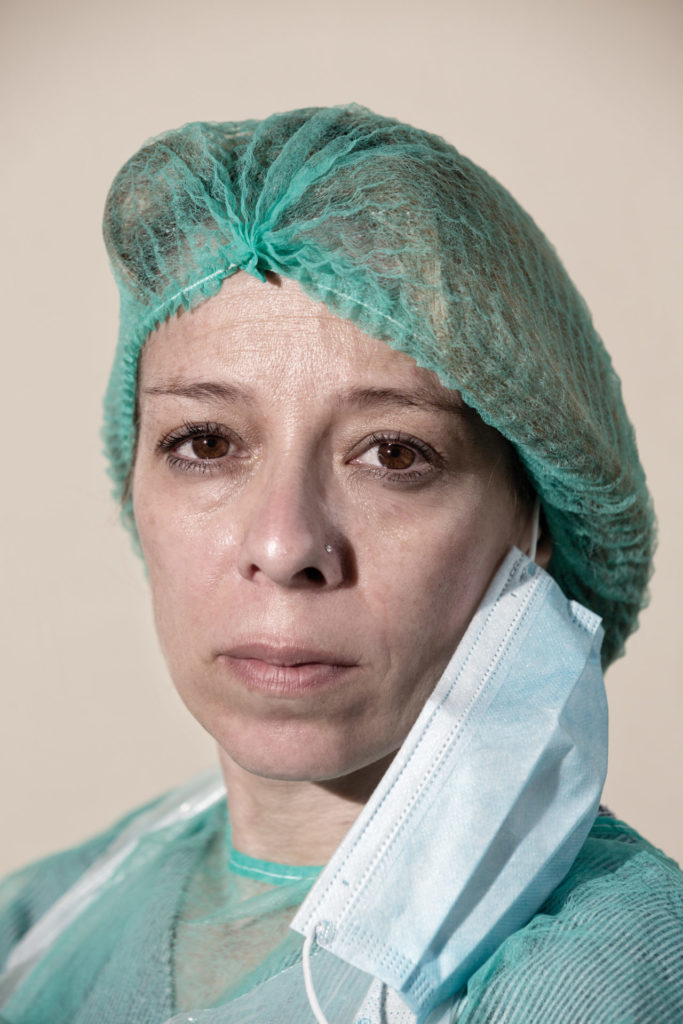
Niki Zamagia, food service worker, 49 y.o., 3rd Covid Clinic, Evangelismos Hospital
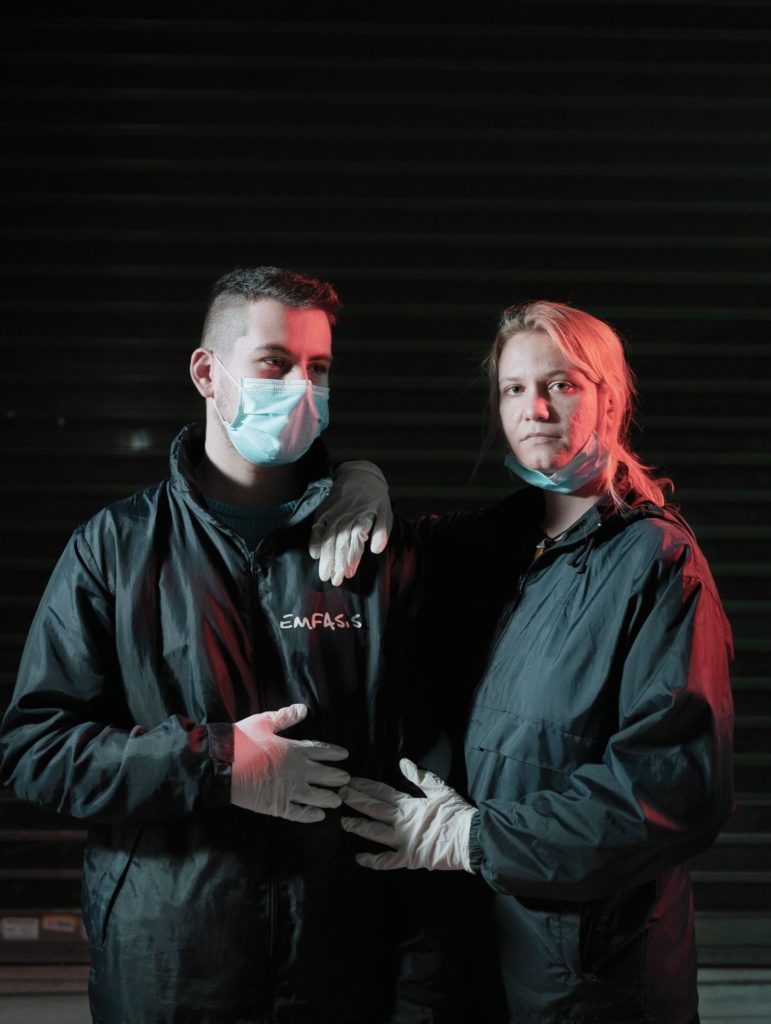
“Right now, our role is to act as mediators between our reality and that of their own”
Panagiotis Michos & Efraimia Michou, Volunteers
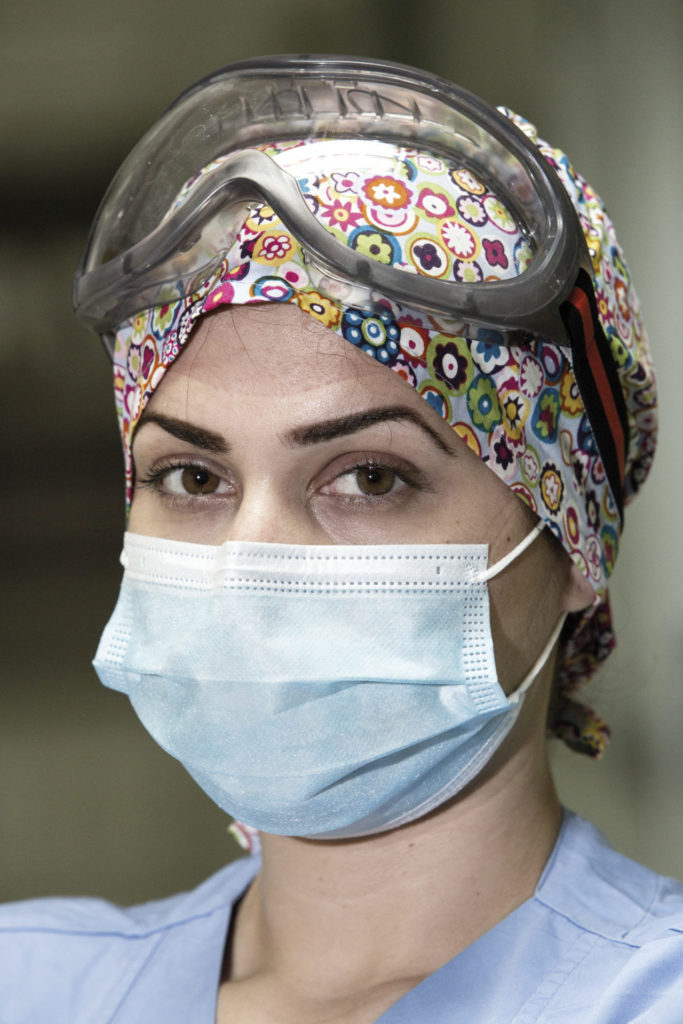
Konstantina Koufidi, Covid ICU – Evangelismos Hospital
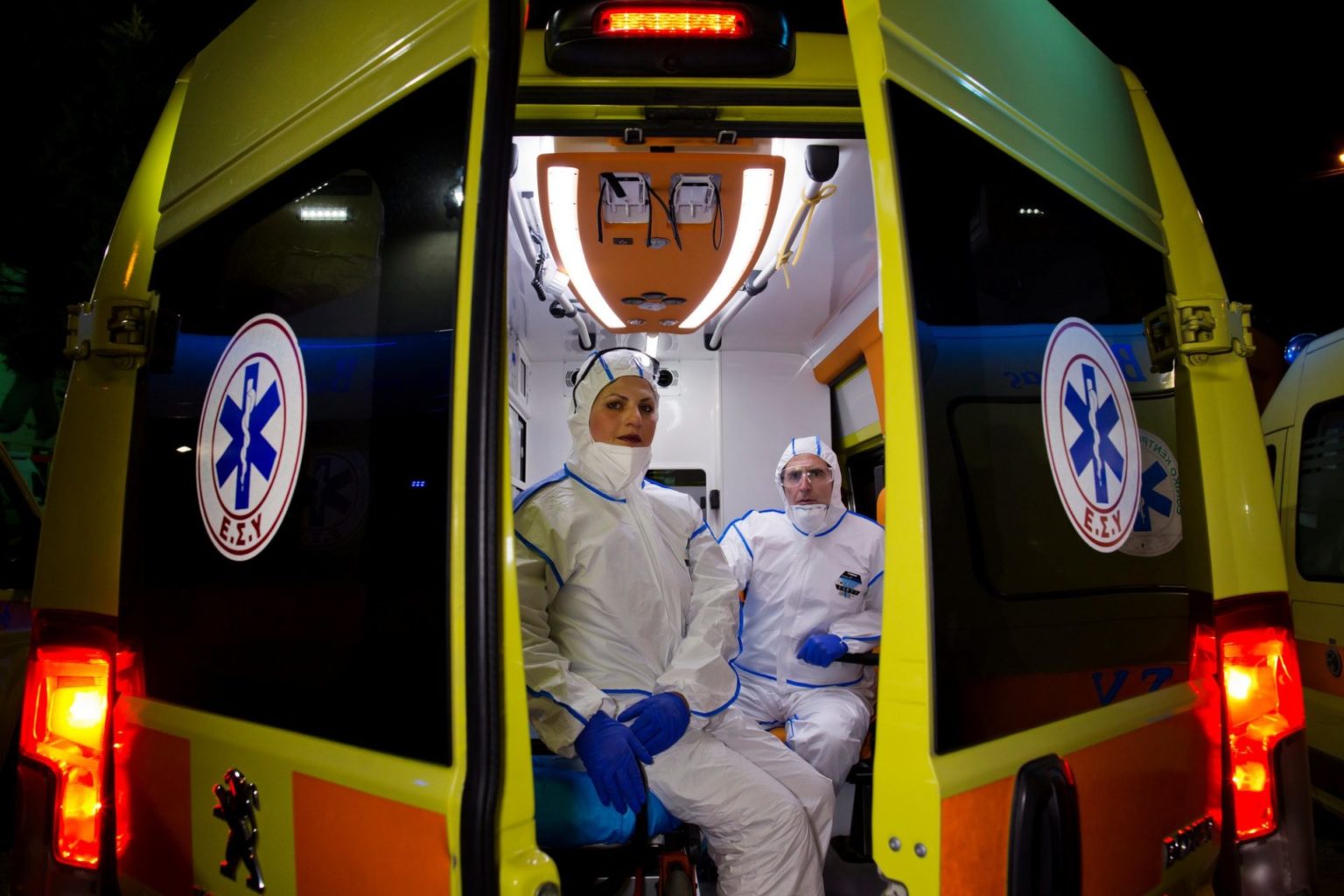
“When I submitted my application to work at the National Emergency Aid Centre (EKAB), following a call by the Minister of Health, I told my friends that “we are going to war”
National Emergency Aid Centre Rescuers Konstantina Papachristodoulou (L), 39 y.o. and Thomas Koulakiotis, 48 y.o., in an ambulance at the EKAB operation centre, 11 April 2020. Thomas Koulakiotis is married and has one child. He has been working as a rescuer in the private sector for the past seven years. When the Minister of Health called for doctors and nursing staff to be hired to deal with the pandemic, he applied and belongs to the first lot of those thrown into the battle against the coronavirus. He started working at EKAB on 1 April 2020.
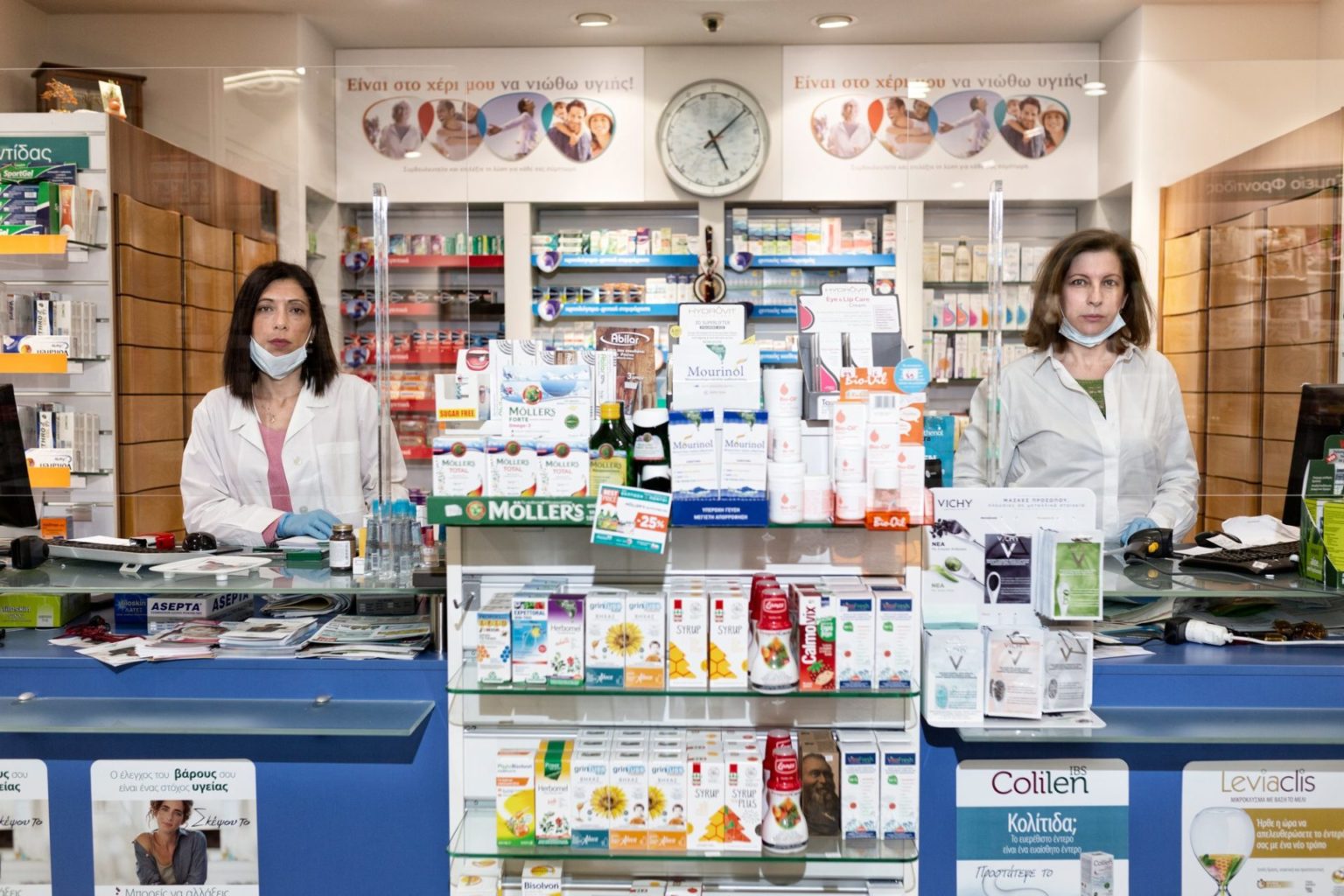
Christina Tsempeli and Fotini Kalpaxi, Pharmacists
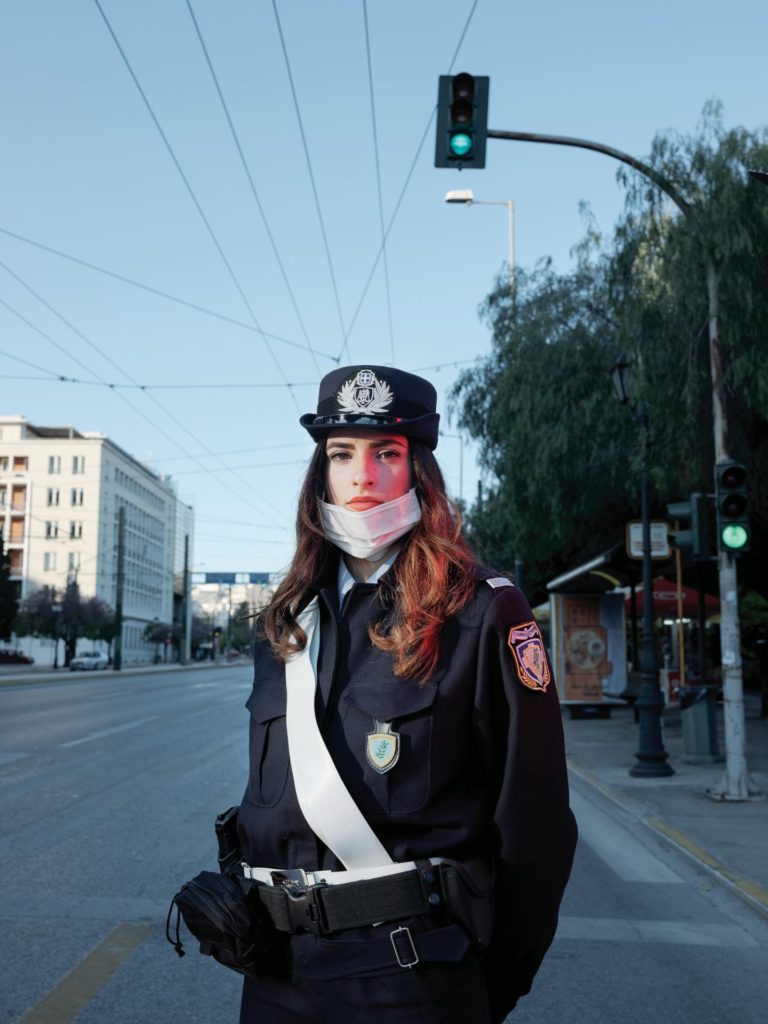
“The people we stop in the street often support us, offering wipes and masks. It's moving”
Vasiliki Iatroudi, Traffic warden
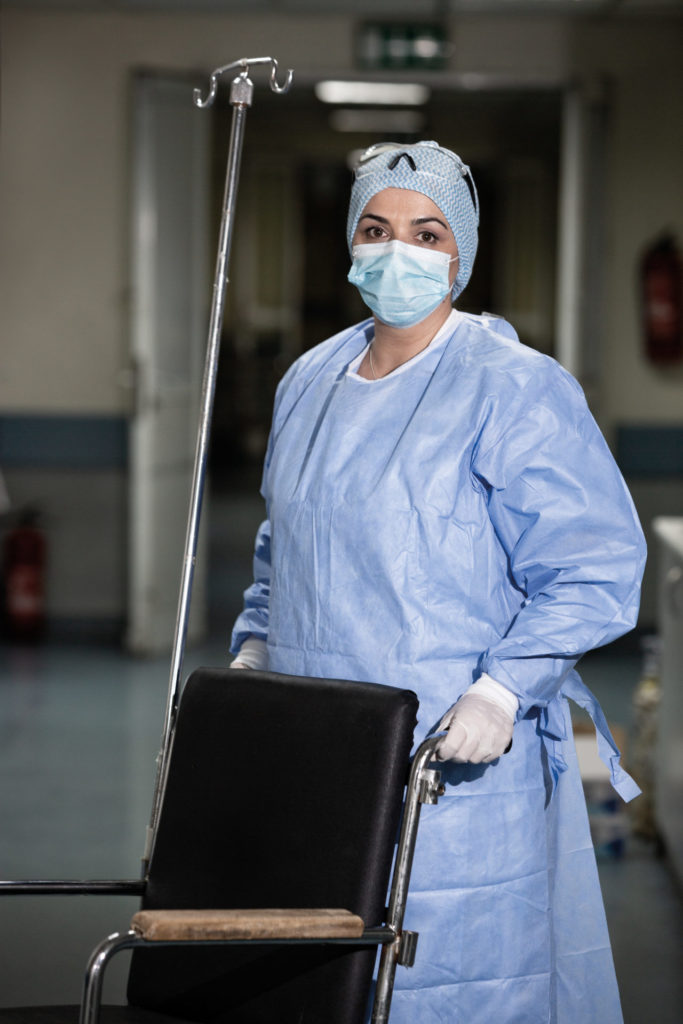
Ioanna Zachopoulou, Paramedic, Evangelismos Hospital
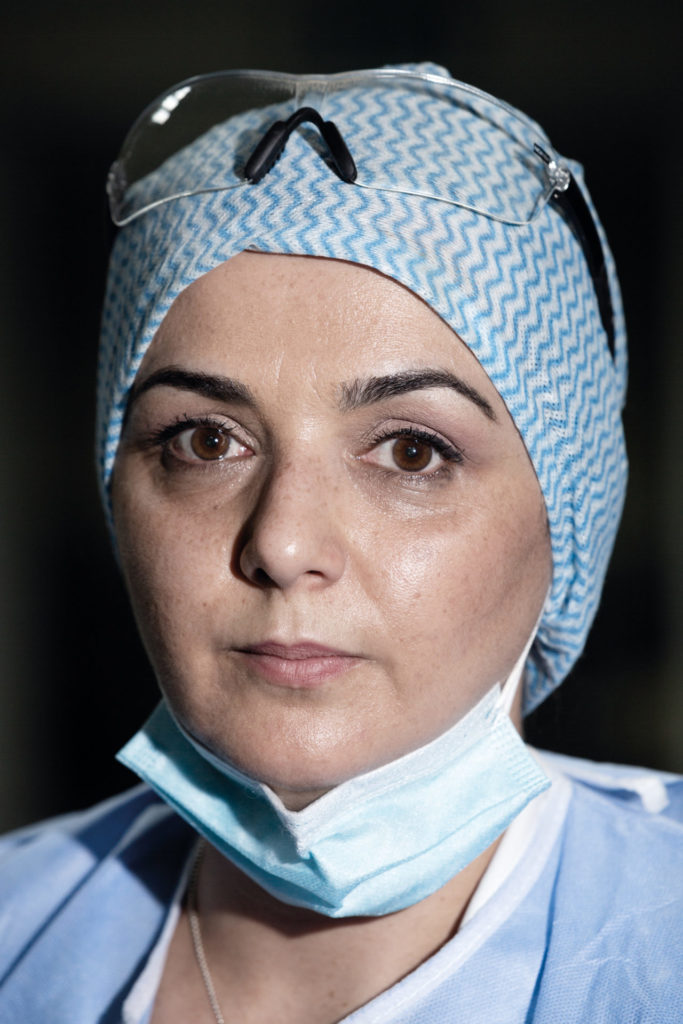
Ioanna Zachopoulou, Paramedic, Evangelismos Hospital
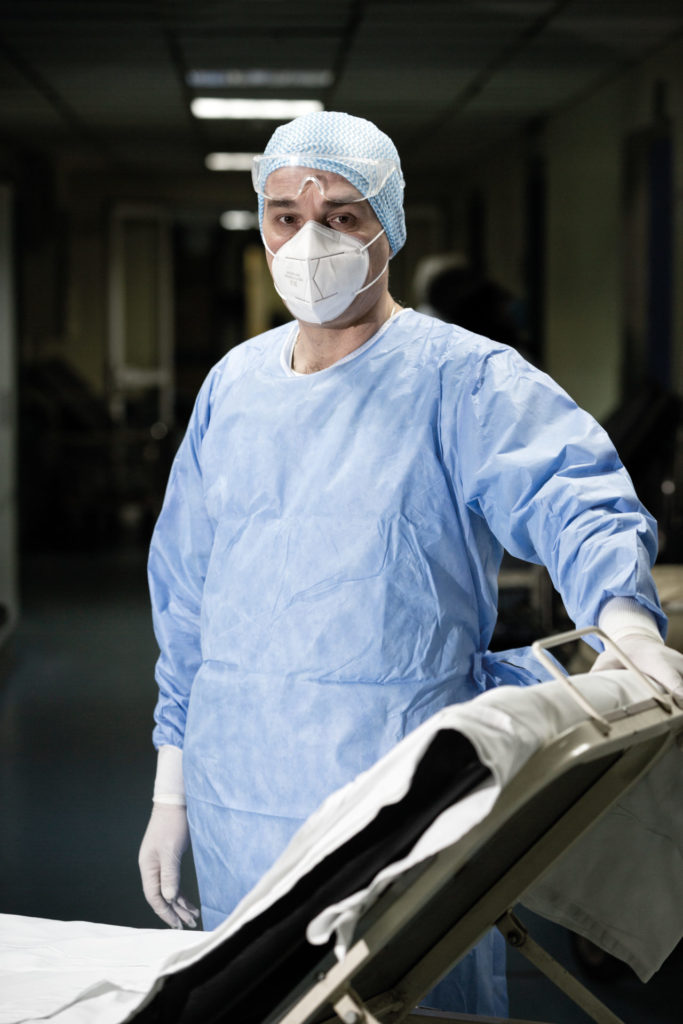
Lambros Kotsiras, Paramedic, Evangelismos Hospital
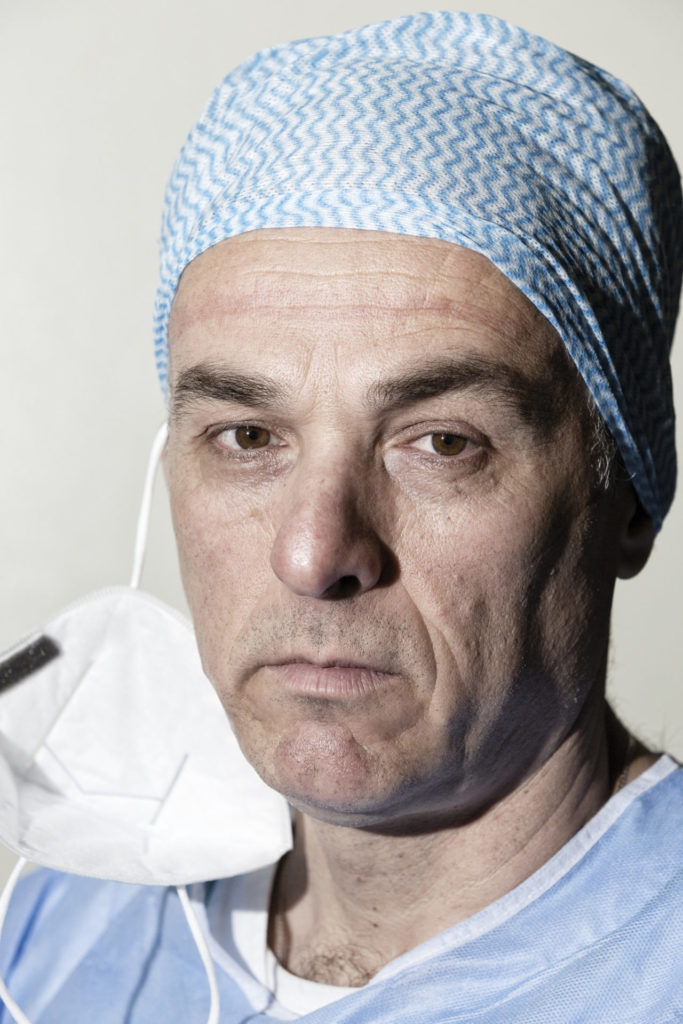
Lambros Kotsiras, Paramedic, Evangelismos Hospital
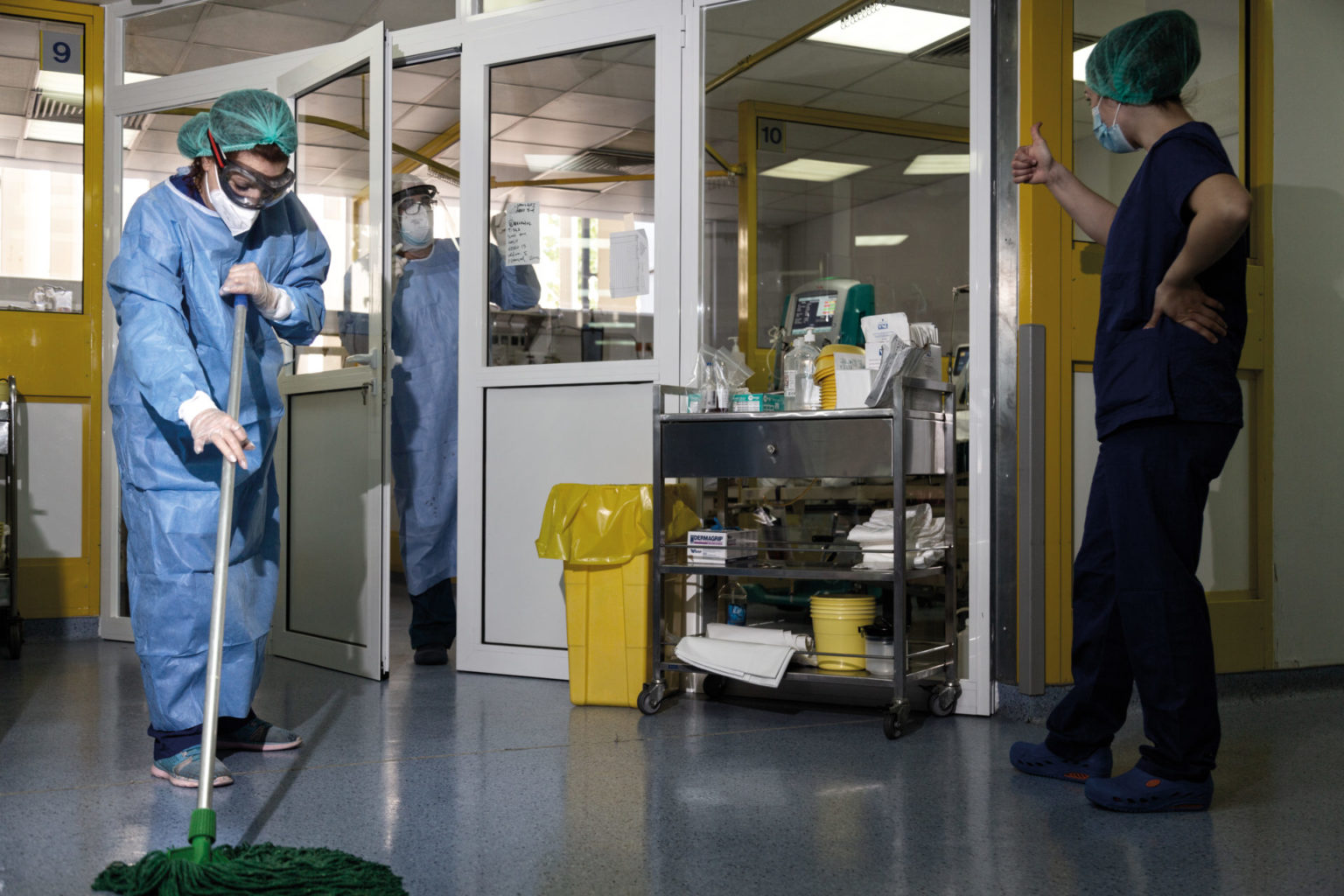
Maria Kyriakouli, Covid clinic cleaner – Evangelismos Hospital
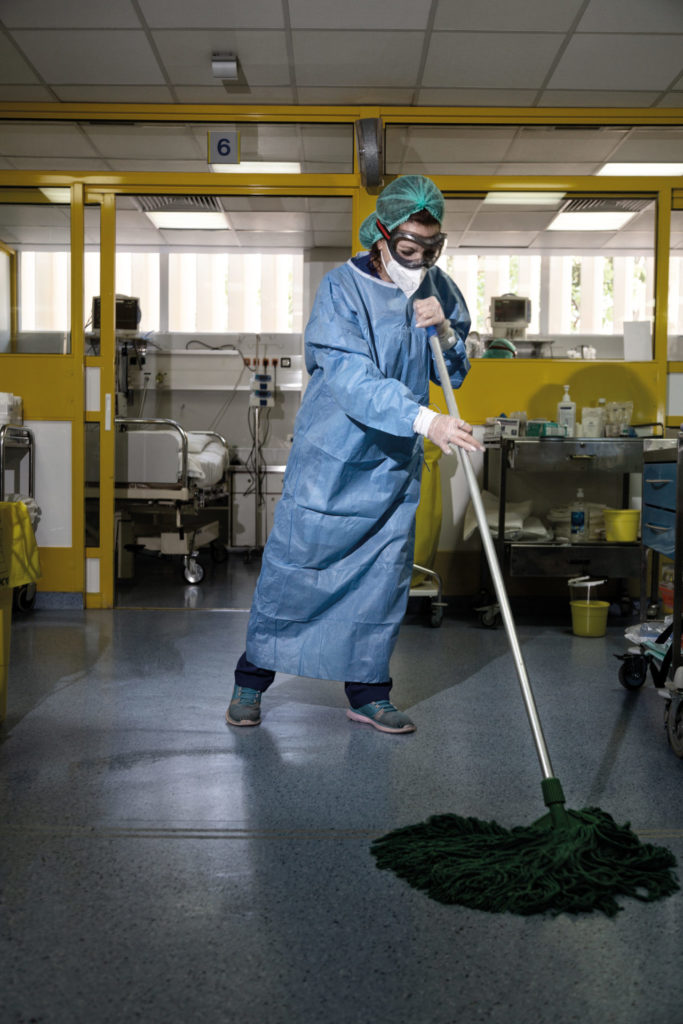
Maria Kyriakouli, Covid clinic cleaner – Evangelismos Hospital
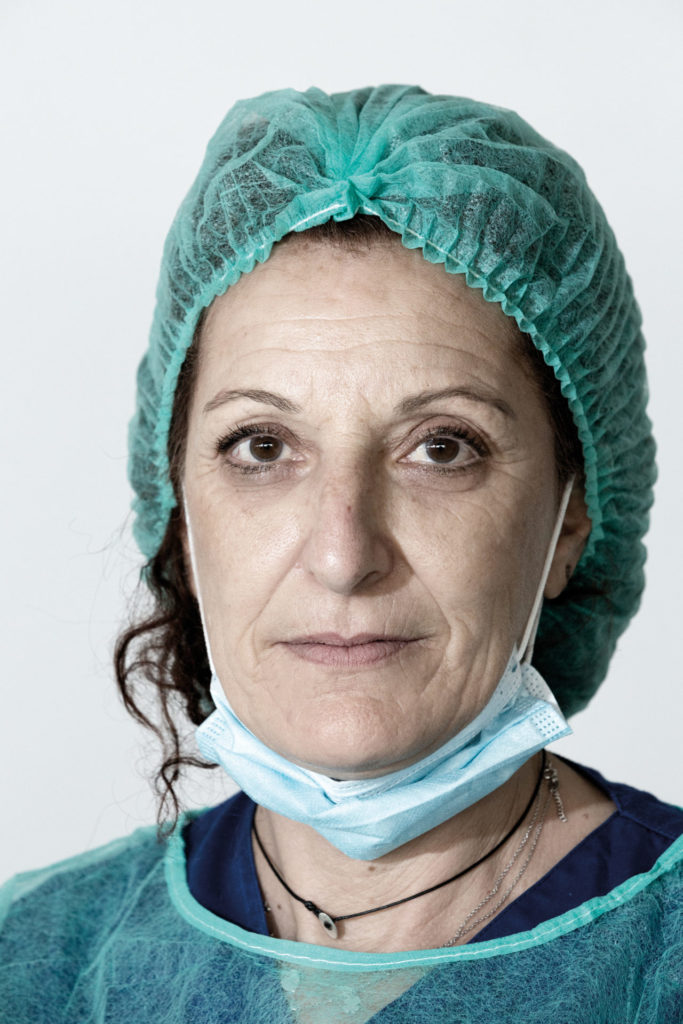
Maria Kyriakouli, Covid clinic cleaner – Evangelismos Hospital
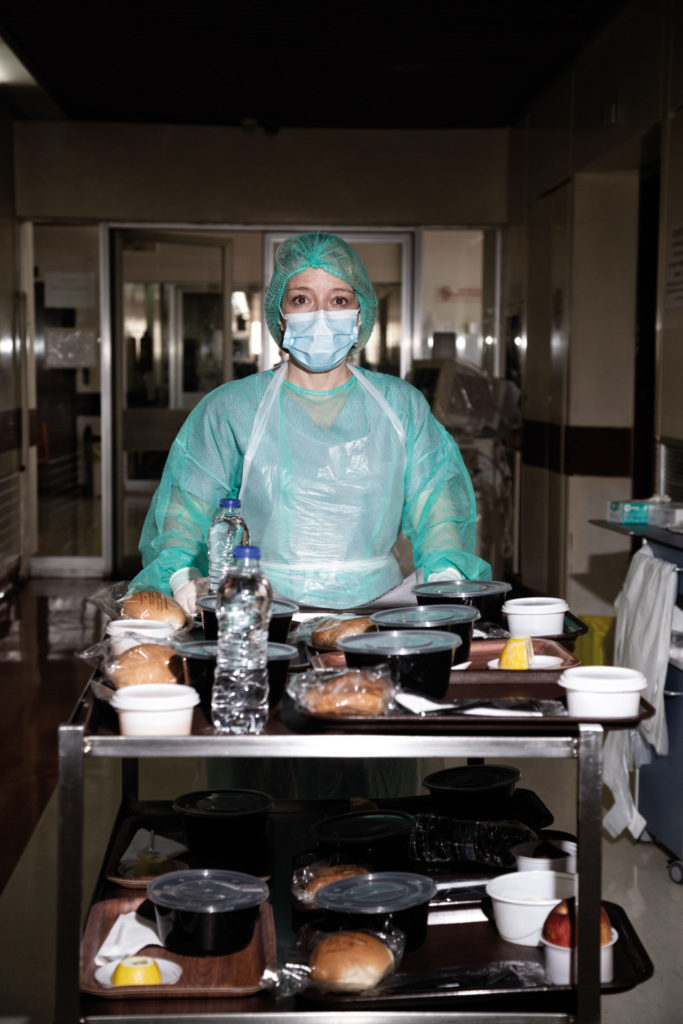
Niki Zamagia, food service worker, 49 y.o., 3rd Covid Clinic, Evangelismos Hospital
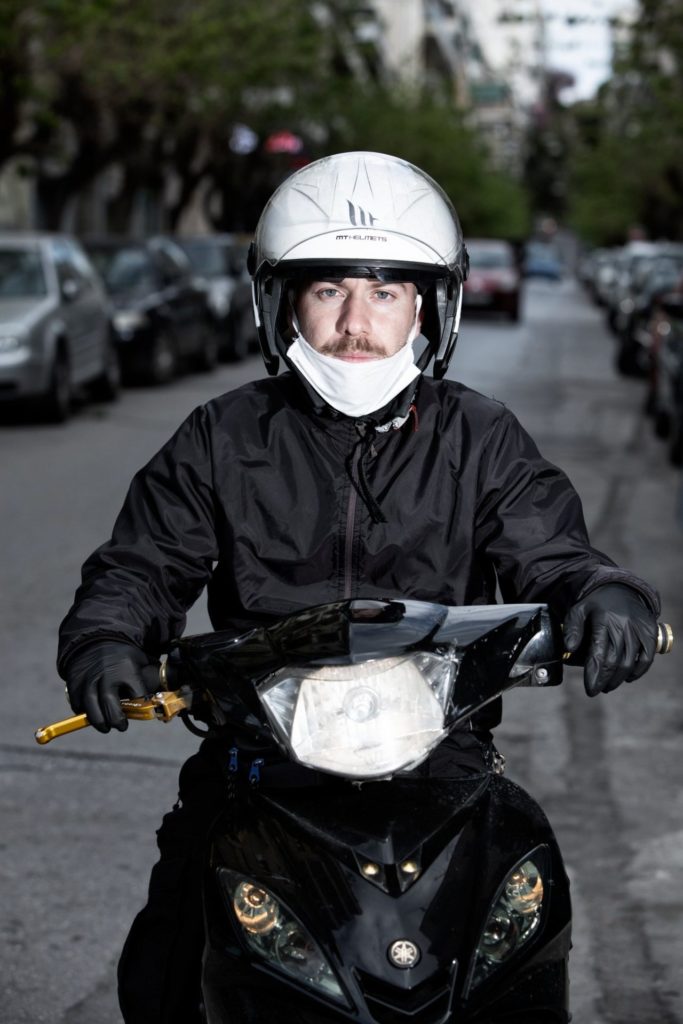
“Now with the epidemic, in addition to helping my mother with all errands, I also deliver groceries free of charge for many customers who cannot leave their house because they belong to vulnerable groups or because they are scared.”
Dimitris Zaros, 25 y.o., Delivery Service Employee
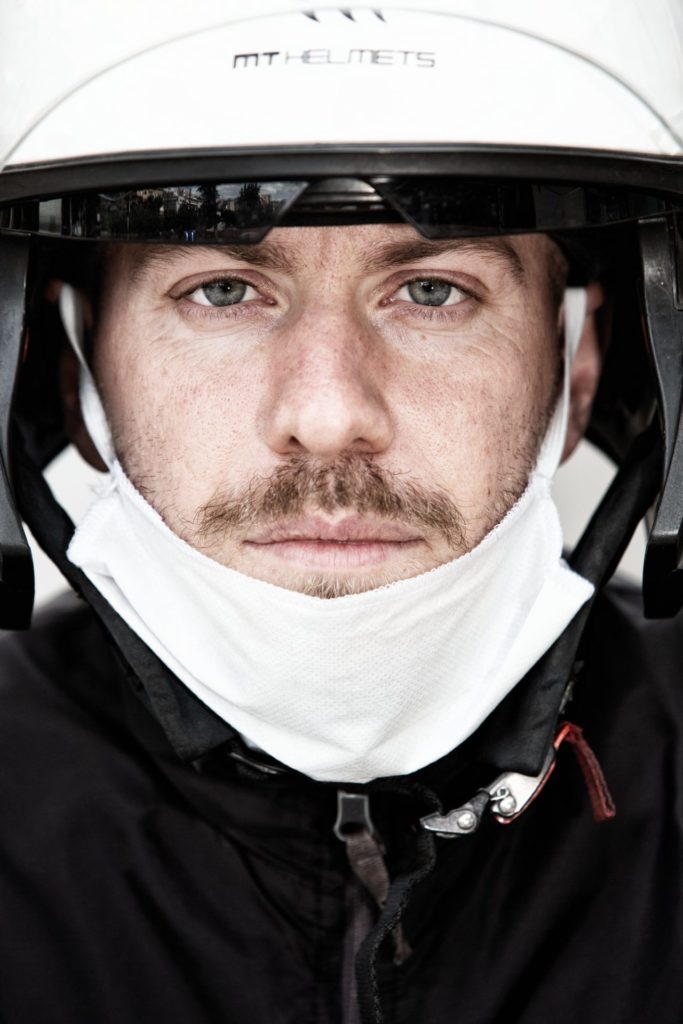
“My life has not been affected, because I continue to work. I’m not scared.”
Dimitris Zaros, 25 y.o., delivery service employee
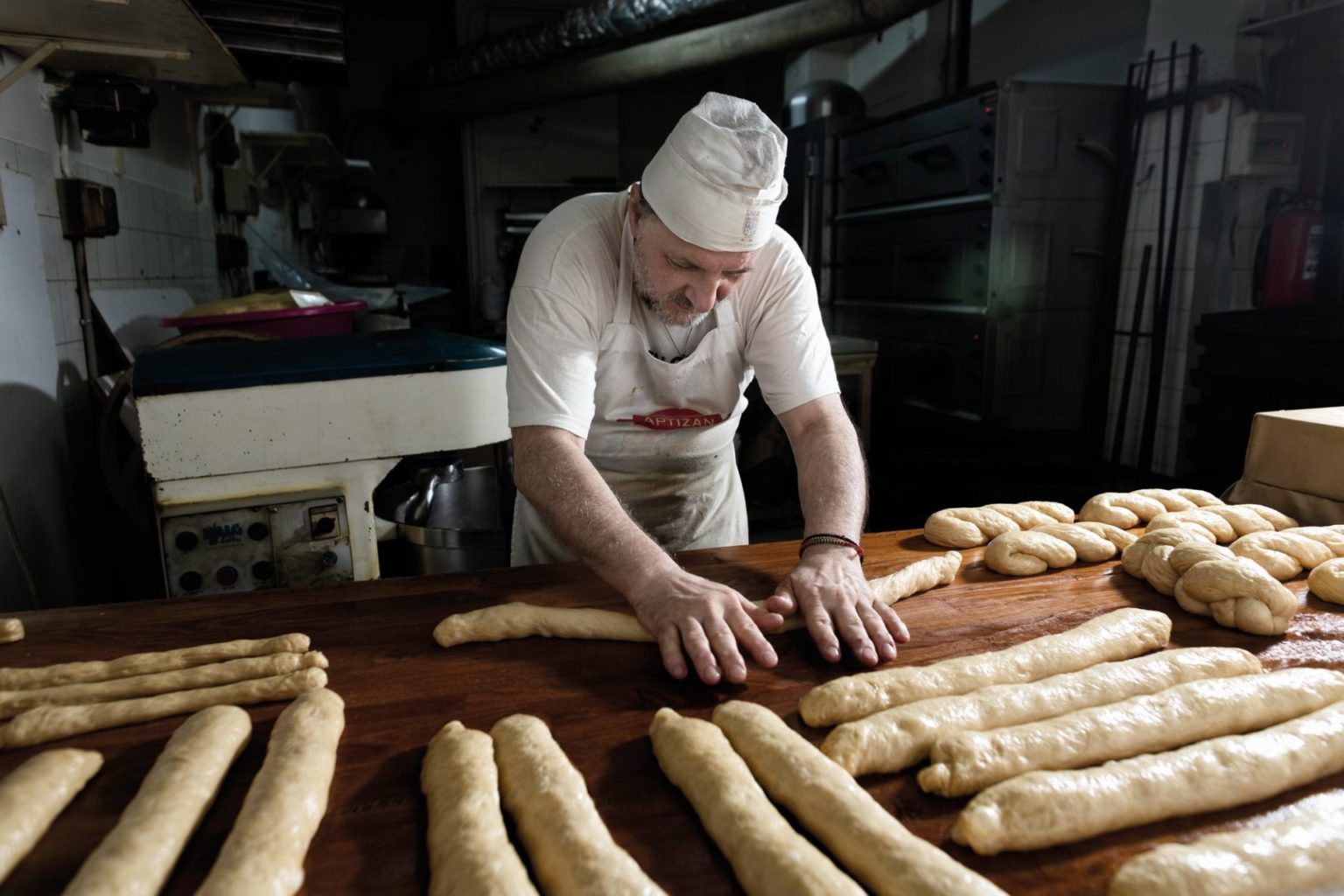
“We make home deliveries of bread to many customers who are too afraid to leave their house or belong to vulnerable groups”
Stratos Doukas, baker since 1973.
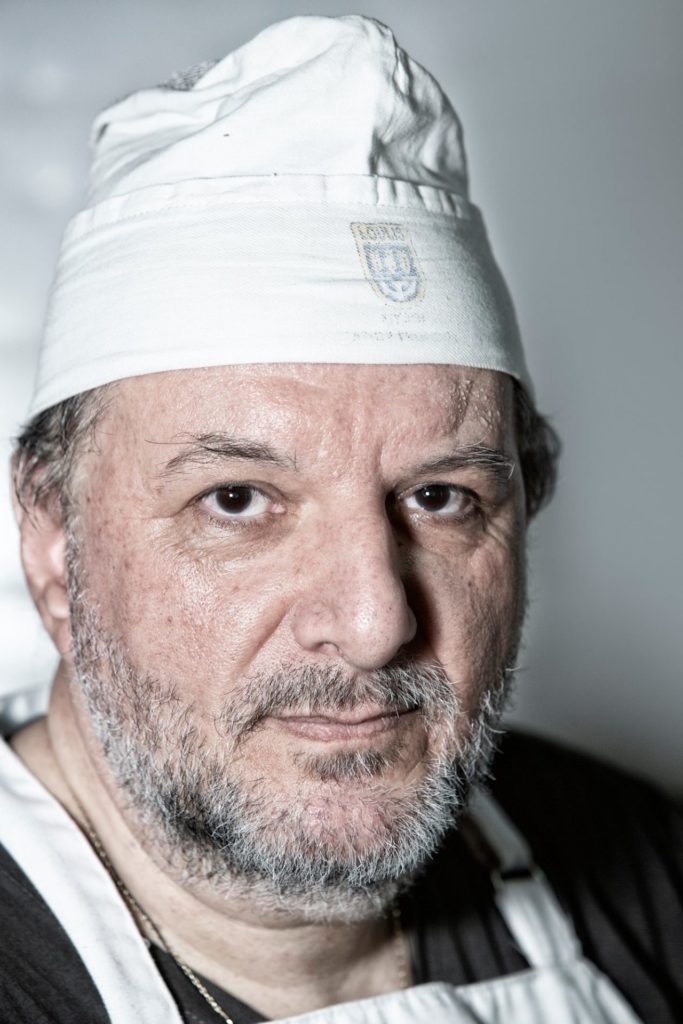
“Consumption has dropped, mainly because many bake at home and, on top of that, will stay at home for Easter, so they only buy the bare essentials”
Stratos Doukas, baker since 1973.
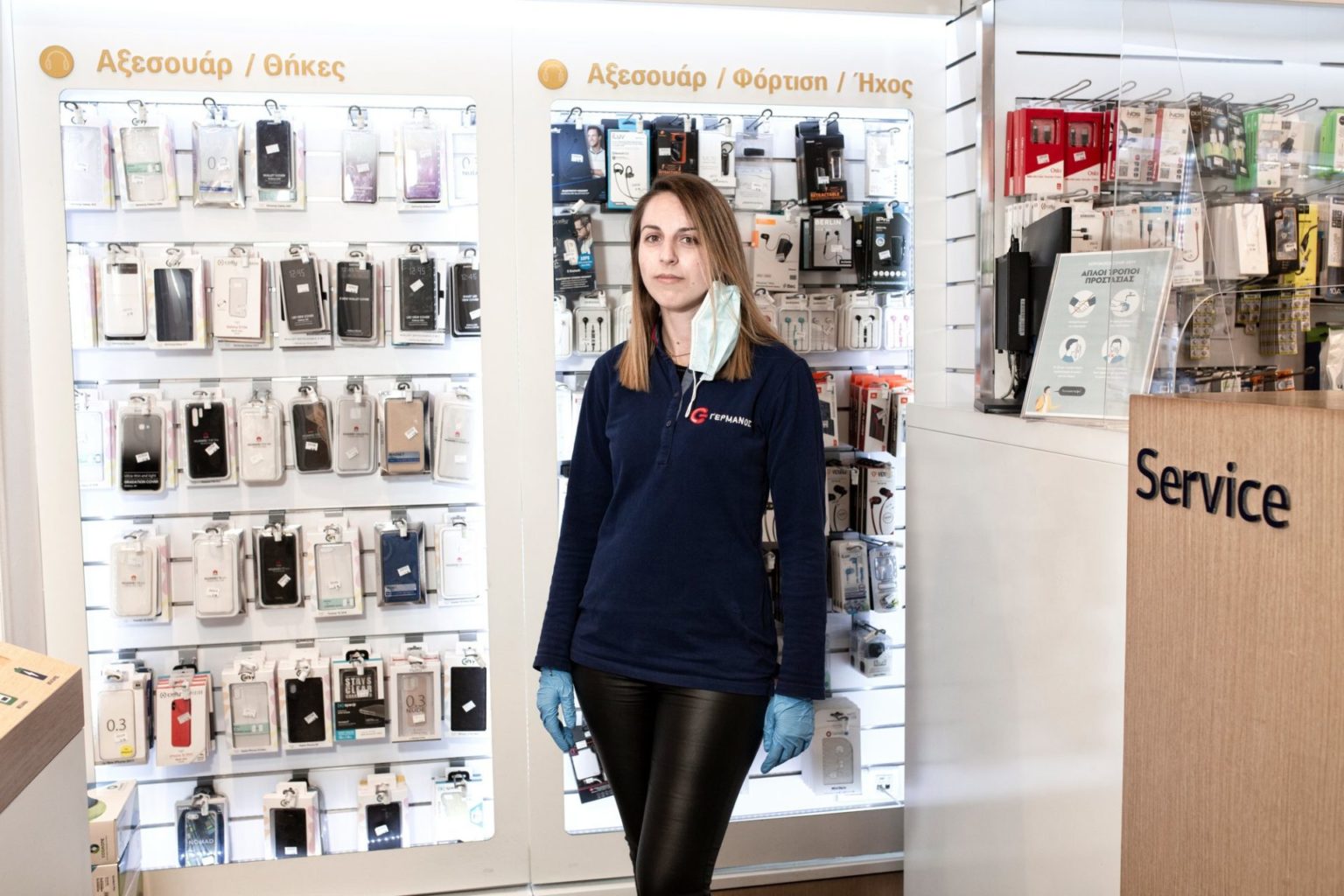
Lena Mimigianni, 33 y.o., employee at a mobile telephony shop for 15 years.
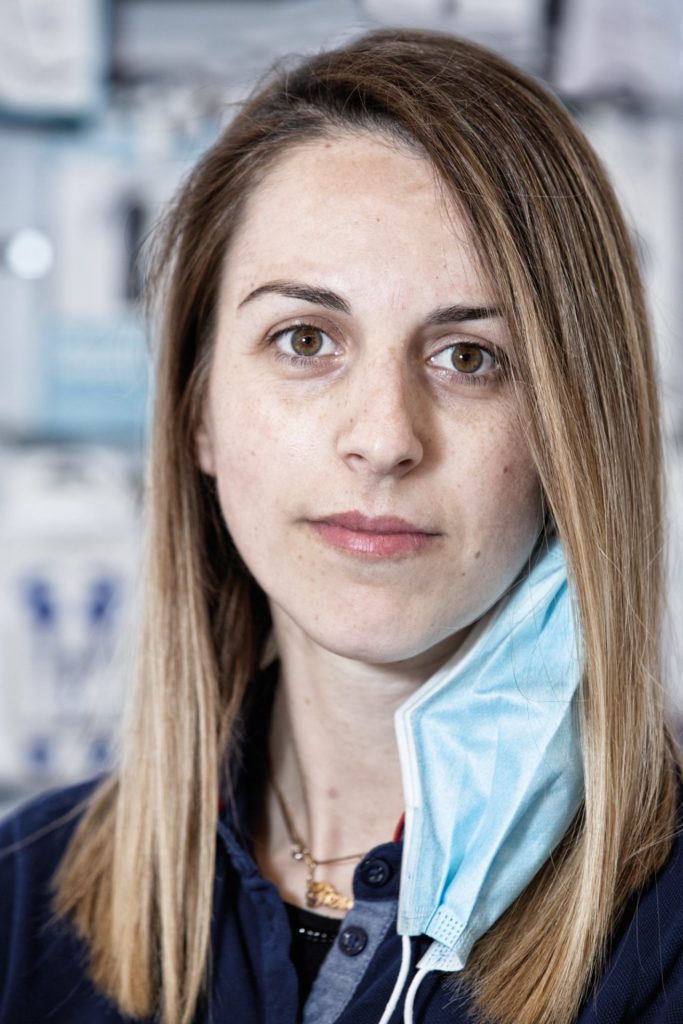
“My life has changed so much with the epidemic; I’m scared, but since we’ve taken all necessary measures Ι get by”
Lena Mimigianni, 33 y.o., employee at a mobile telephony shop for 15 years.
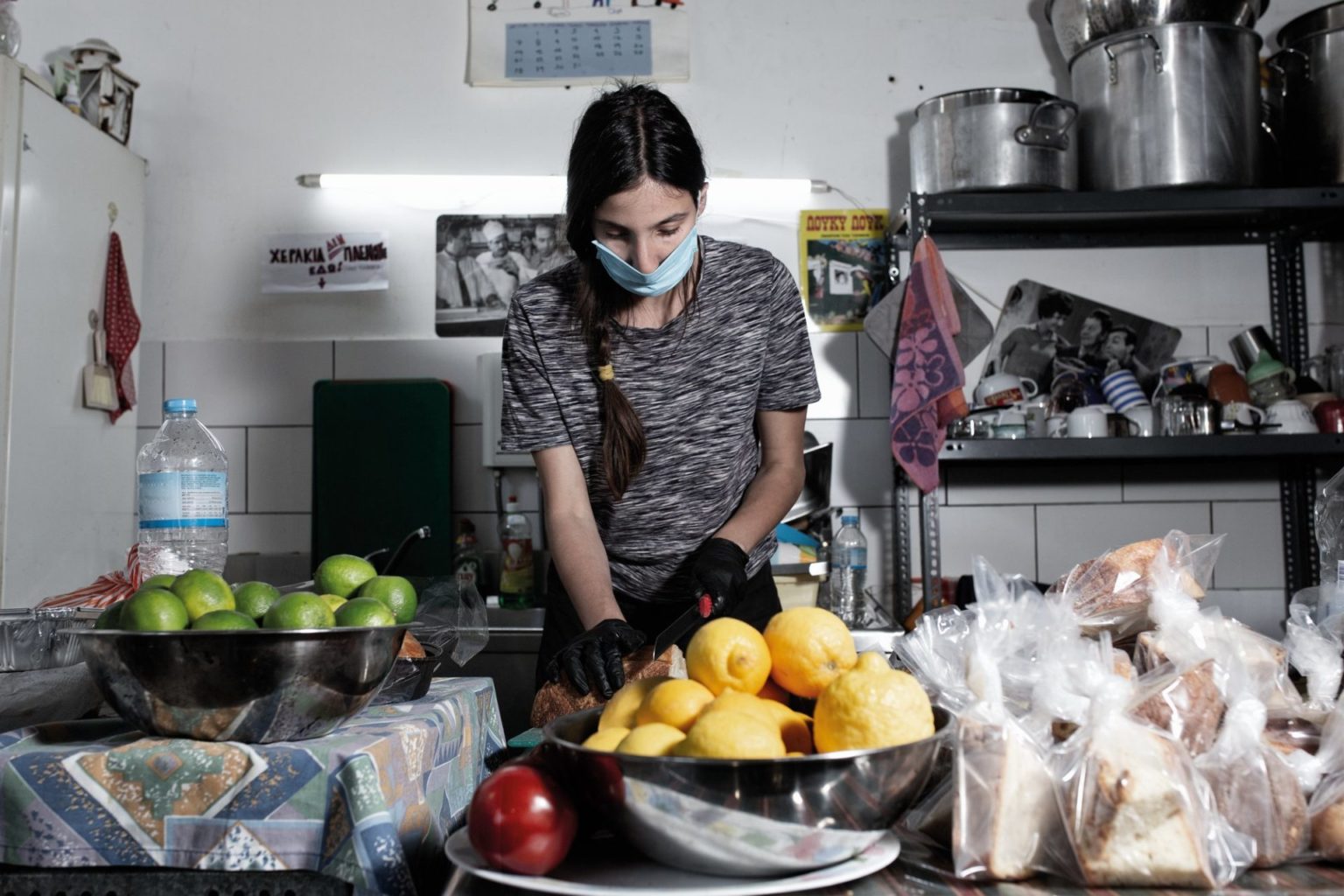
“I’m not afraid I might get infected (sick); to me, what’s most important is to help people who really need it”
Eleni Pipini Troupaki, 23 y.o., student, volunteer at the social soup kitchen “O Allos Anthropos”, has been working for the last 15 days.
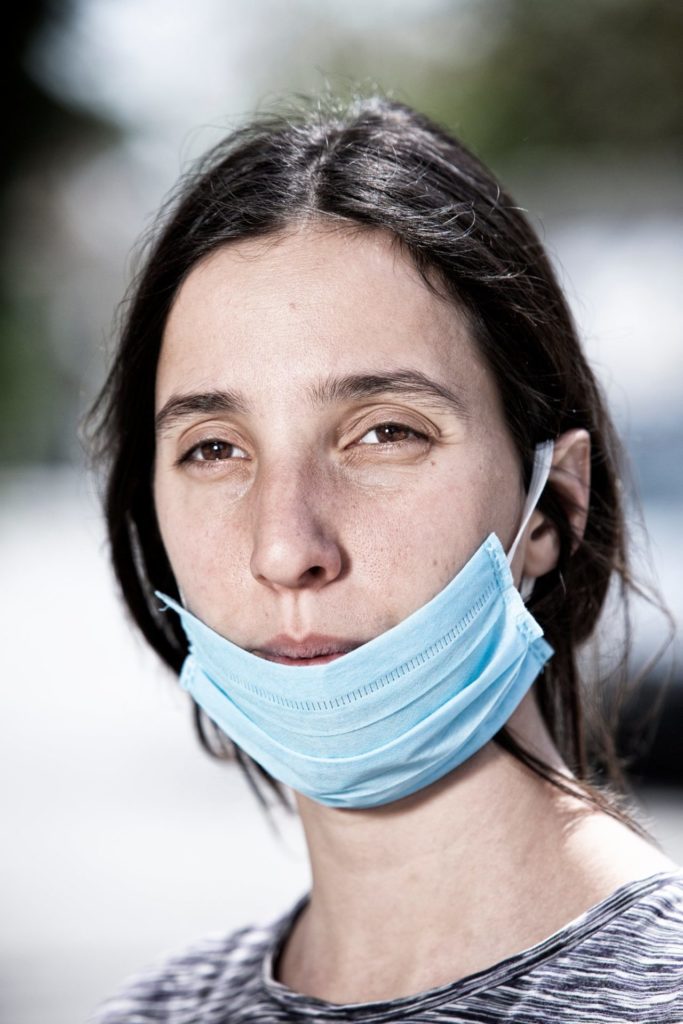
“I saw in the social media that they needed volunteers and so I volunteered. Here people create very strong bonds and you can practically see the results of the effort you make.”
Eleni Pipini Troupaki, 23 y.o., student, volunteer at the social soup kitchen “O Allos Anthropos”, has been working for the last 15 days.
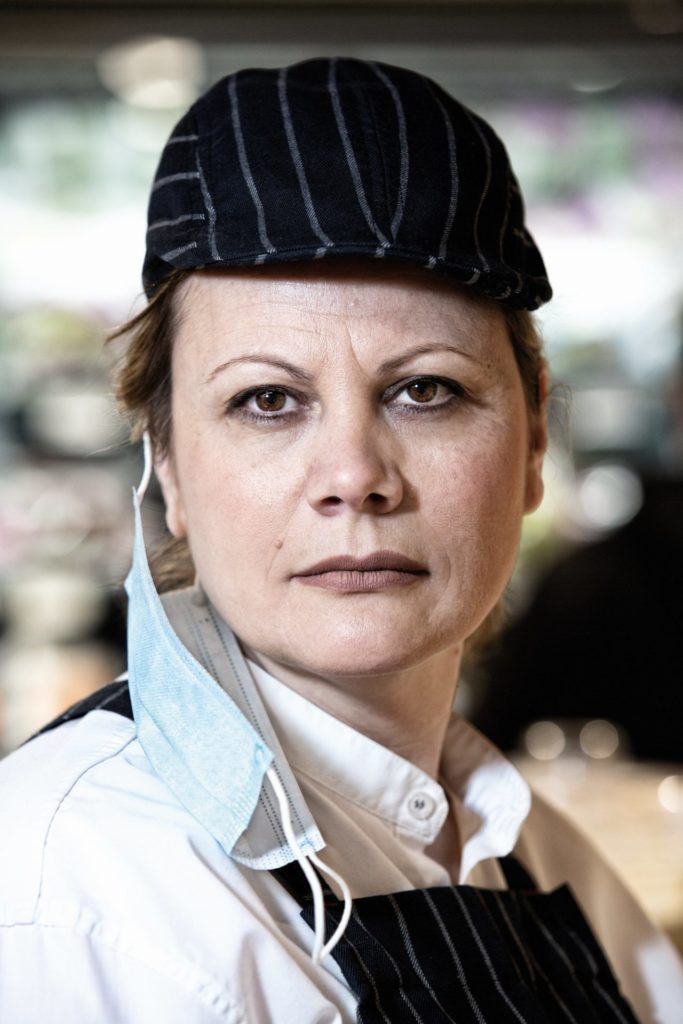
“During the covid epidemic, customers visiting the supermarket have multiplied”
Mailinta Zoe, 45 y.o., supermarket employee for 11 years.
Married mother of two.
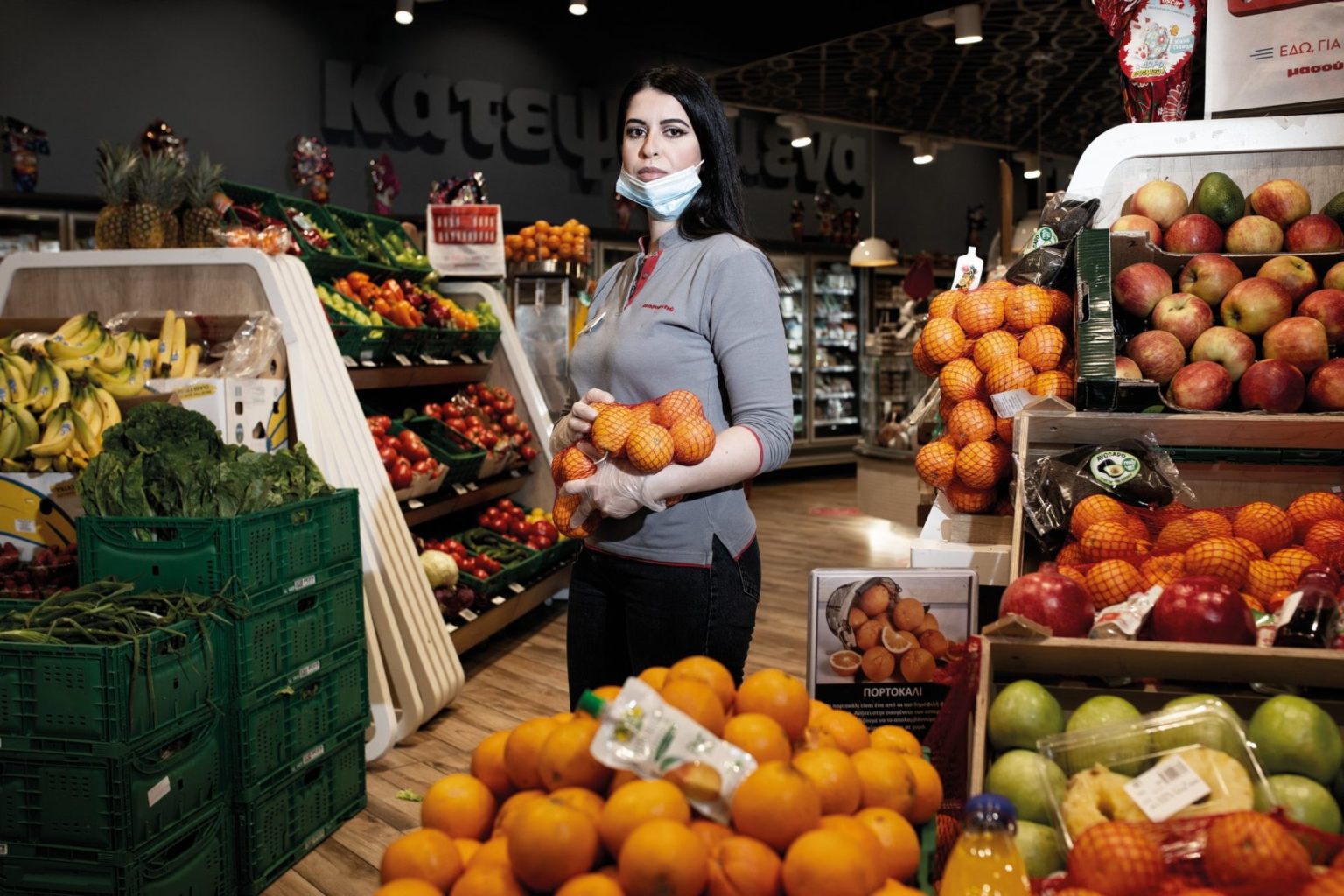
“In the first week I was very scared, but after we applied the safety measures and given their effectiveness I feel all right now”
Kyriaki Logothetidou, 29 y.o., super market employee for 4 years.
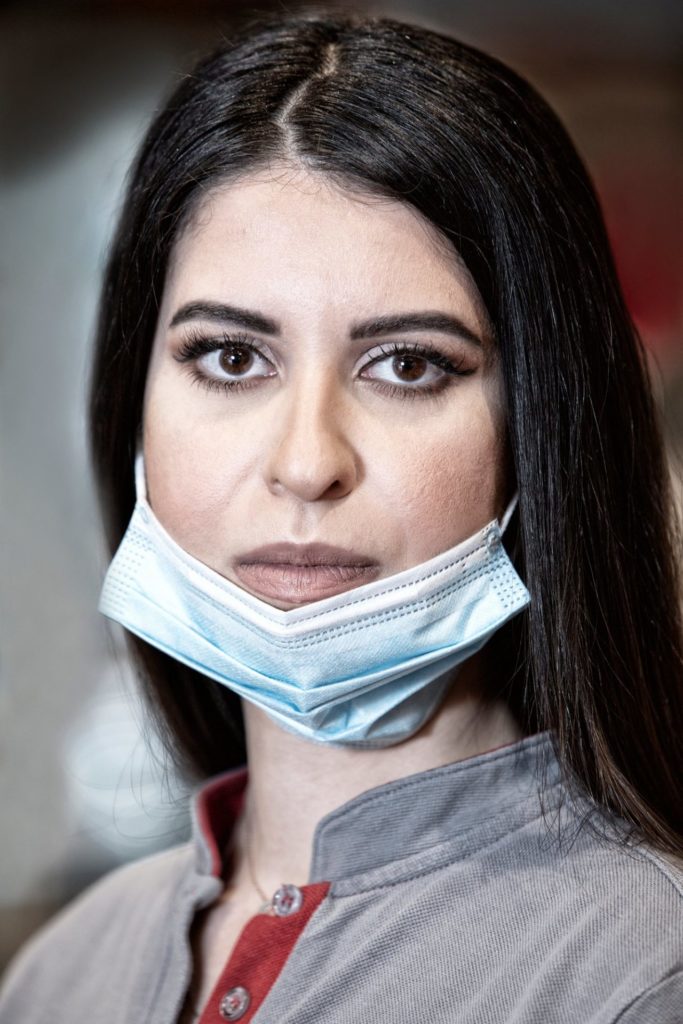
“Amid the pandemic, it is very important to cater for people's diets; it makes you feel like a super-hero!”
Kyriaki Logothetidou, 29 y.o., super market employee for 4 years.
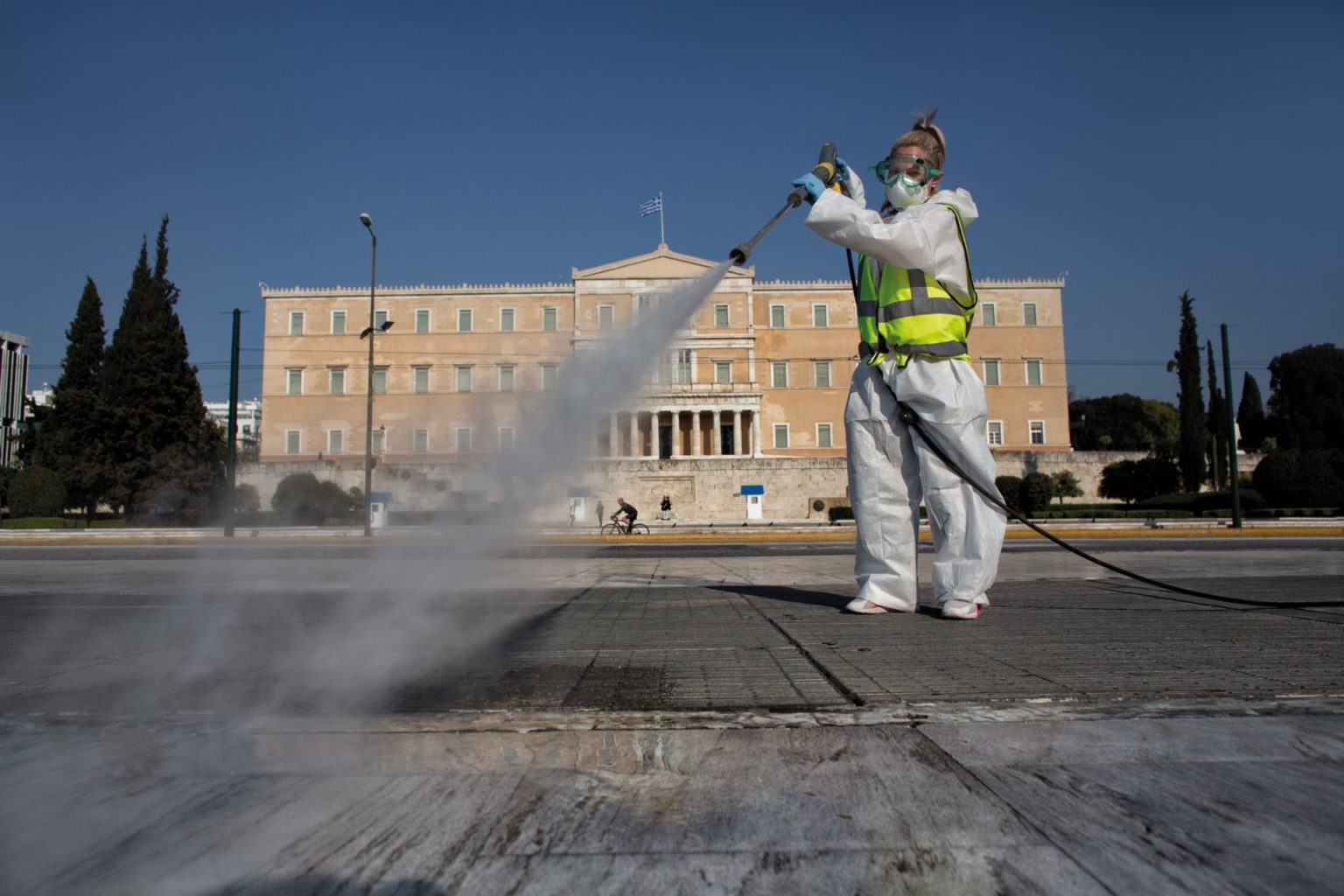
“I feel proud to be a part of the campaign against the spread of covid”
Nikoletta Iliopoulou, 34 y.o., Municipality of Athens Disinfection unit.
She was appointed at the municipality two years ago, under the procedure of the Supreme Council for Civil Personnel Selection (ASEP). She is married, with three children.
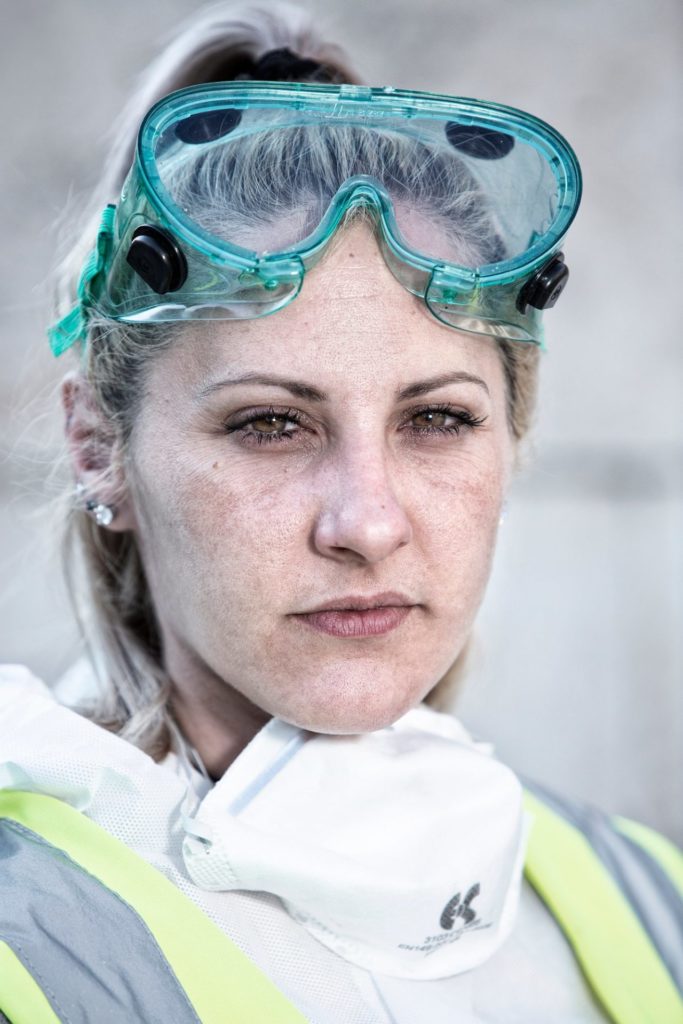
“I have never felt more useful in my life”
Nikoletta Iliopoulou, 34 y.o., Municipality of Athens Disinfection unit.
She was appointed at the municipality two years ago, under the procedure of the Supreme Council for Civil Personnel Selection (ASEP). She is married, with three children.
When asked who stays with the children, she answered:
Unfortunately, I have nobody to stay with them as my husband works too, so I have to leave them home alone. I am lucky, because they are late risers and I work on the morning shift.

“Will you get me a bag? And pencils to go to school!”
Panagiota doesn’t know exactly how old she is. She says she is five or maybe six. Moreover, she has never gone to school. She lives in the Roma slums of Nea Zoi in Aspropirgos with her deaf grandmother. She plays barefoot in the muddy waters and the rubbish of the slum and dreams that, some day, someone will give her a bag and pencils so that she can go to school too.

“Nobody ever comes here. Now, with the coronavirus, we will die like flies, forgotten. It is our fate to live next to the landfill and in the trash”
Angeliki Papadimitriou is 59 y.o., diabetic. She lives with her husband and her great-grandchildren in the Roma slums of Nea Zoi in Aspropirgos. Because of the lockdown, no one can go to work and face a serious problem of survival.
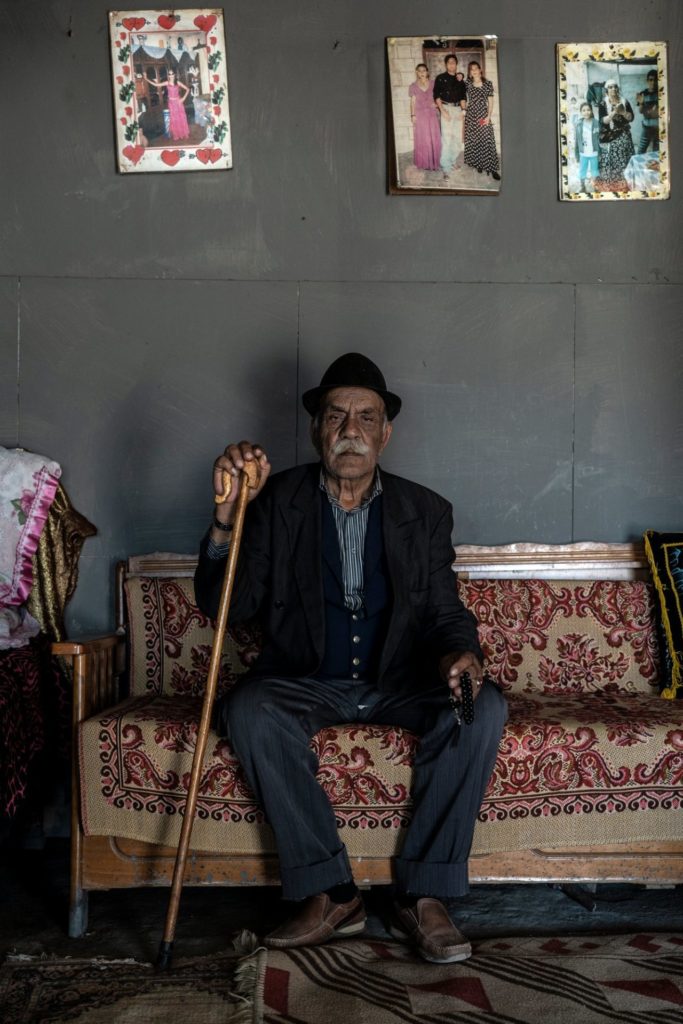
“What are we going to do now that we can't go around for scrap? Where are we going to get food from? I don’t know why we stay in and what this disease is all about. Nobody has come here to help us. Nobody has told us anything. All we know is what we hear on TV. We are scared”
Panagiotis Tsiriklos was born in 1943 in Theva. About 15 years ago, he came to Nea Zoi in Aspropirgos, thinking that the capital would offer more opportunities for himself and his ten children. He was wrong.
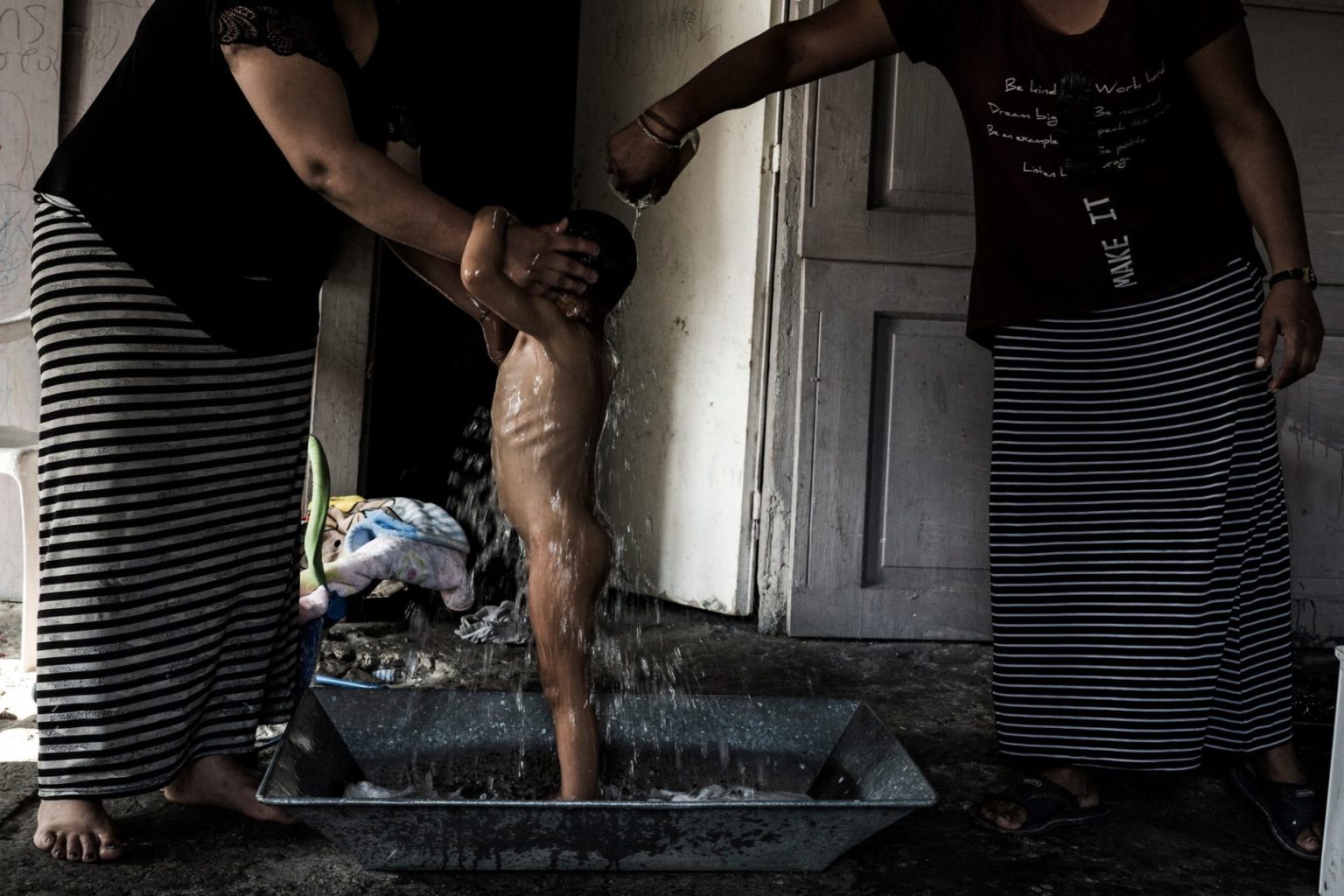
“We try to do what they tell us to on the telly. We try to be clean. But what can you do? Look down, the shack has no cement. So what if we wash ourselves? A moment later we are covered in dirt again”
Maria Dionysopoulou has two children and lives in a shack made of concrete blocks, wooden beams and polyester sheets in Nea Zoi of Aspropirgos. Every night, she heats water on the camping stove, moves a tub in the middle of the shack and bathes her children.
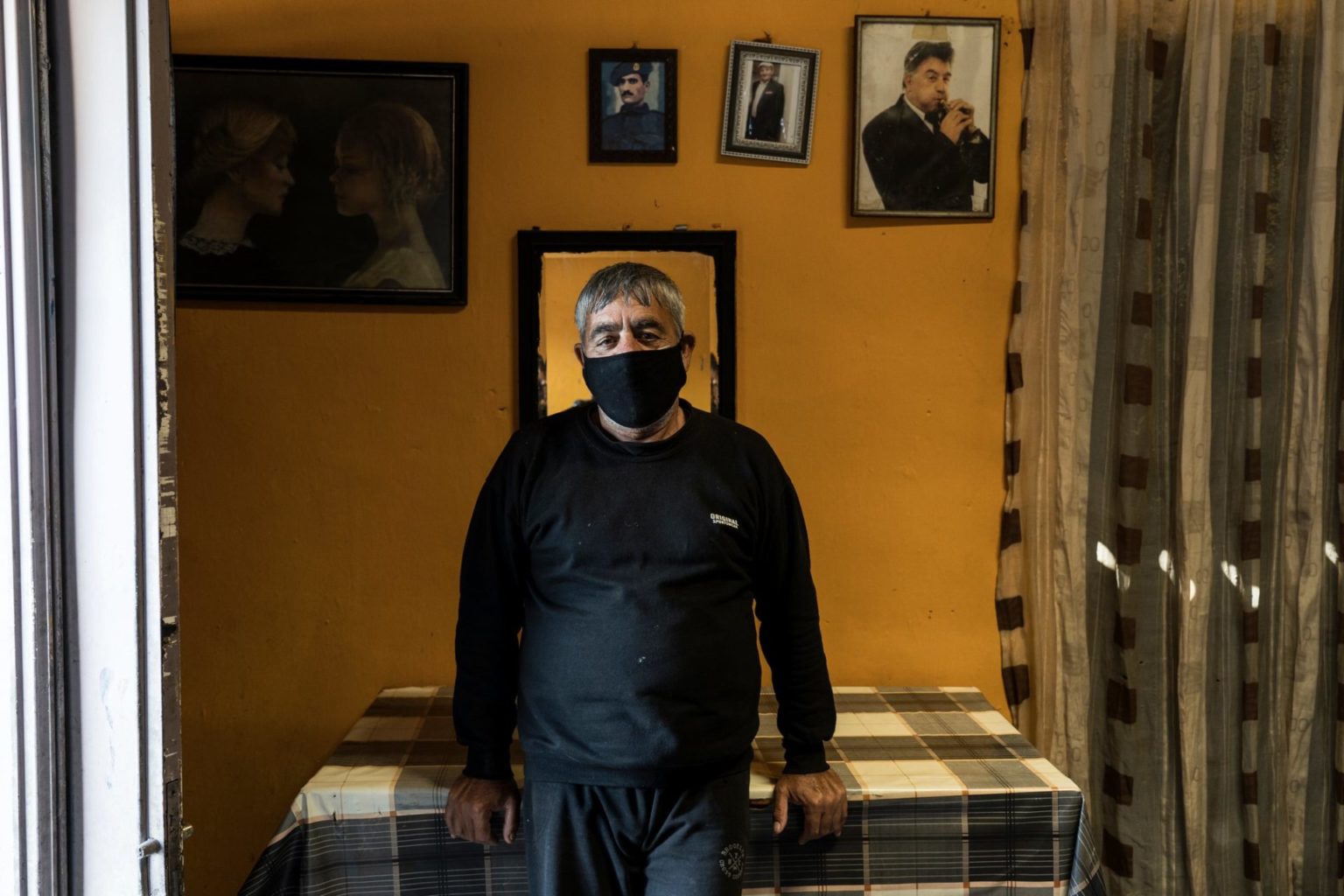
“I am a diabetic and I’m scared I may get this damned disease. What do we eat everyday? Just bread.”
In the last month, twice a week, Mpampis Mpekos wakes up at 3 in the morning. He wears his cloth mask and gets in the car, heading for the centre of Athens. There, a baker gives him the bread that was not sold in the previous days.

“If he gets the disease, what am I going to do with him? How am I to take him to the hospital? No ambulance or doctor ever gets to Nea Zoi”
Georgia Halilopoulou, 88 y.o. today, came from Thiva to Nea Zoi in Aspropirgos, with the hope of a better life. She is not so much worried about herself, as she is for her son who had been suffering from asthma attacks over the last year.
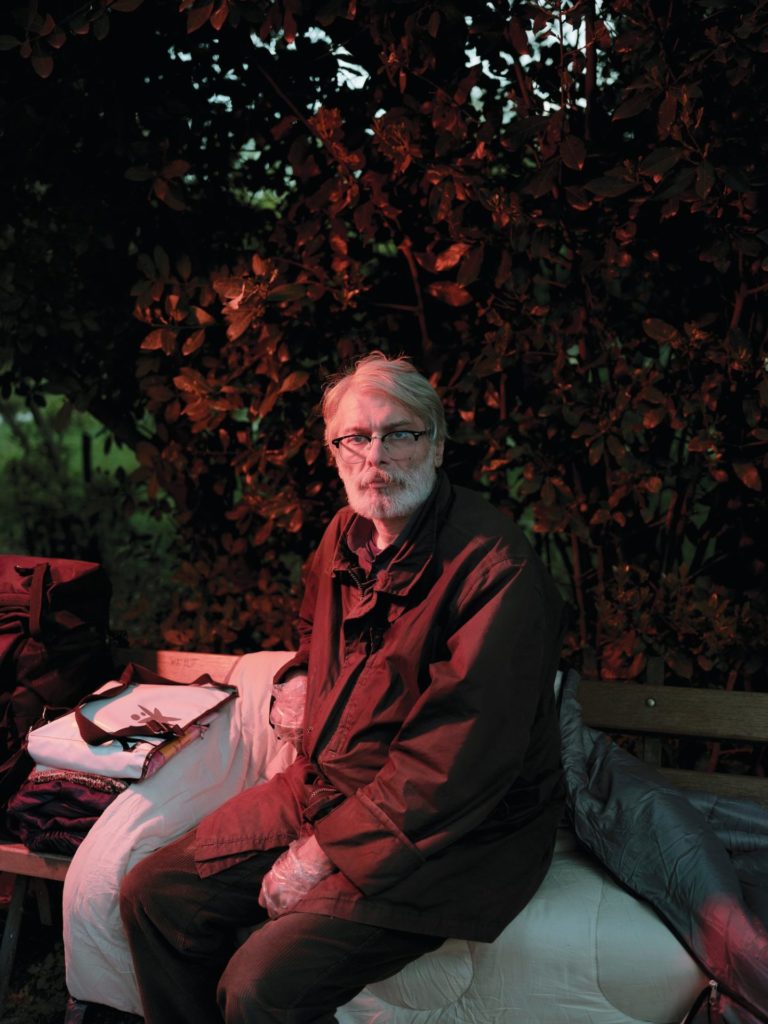
“I take a bath every Friday”
Yousef Danesh, Refugee – Homeless – Mathematician
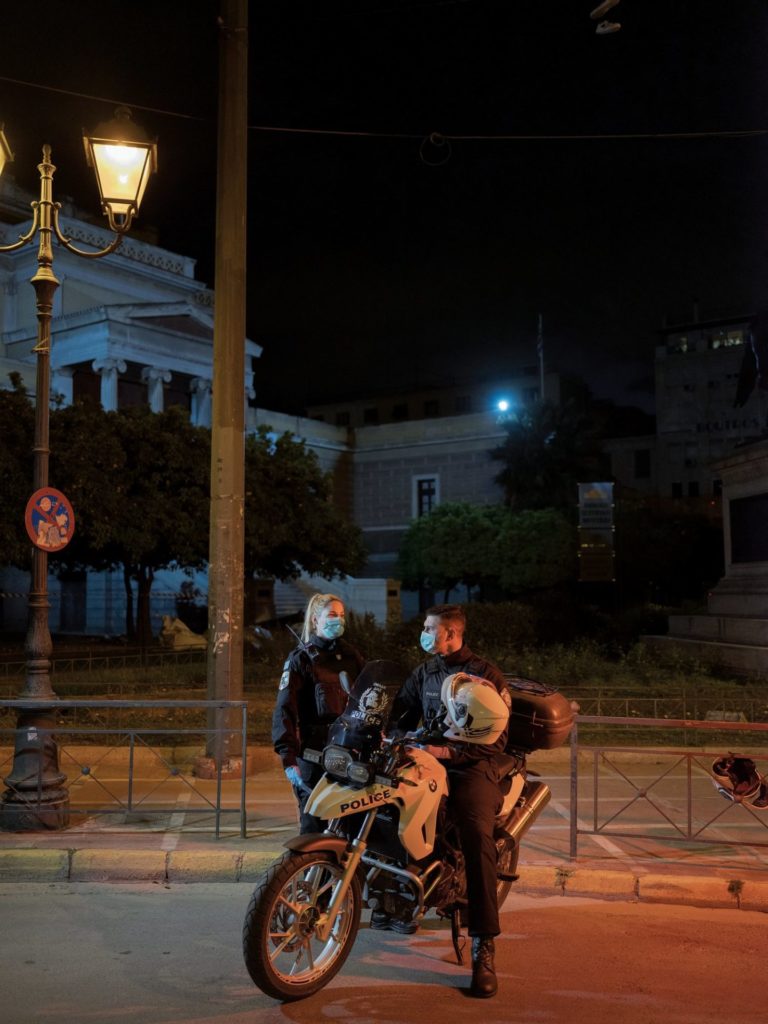
“We are more cautious; we keep washing our uniforms and gloves and this is something that we weren’t doing as often in the past”
Ioannis Perdikas & Kalliroe Haskou, DIAS Unit Police Officers
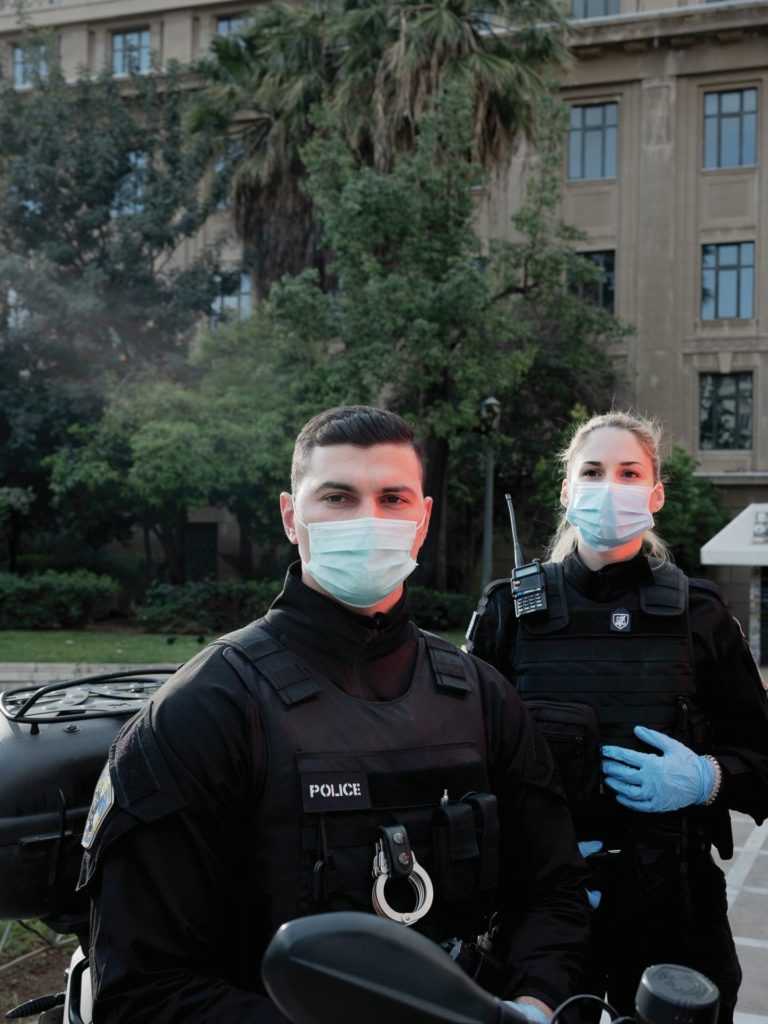
“The psychological burden is big for us too”
Ioannis Perdikas & Kalliroe Haskou, DIAS Unit Police Officers
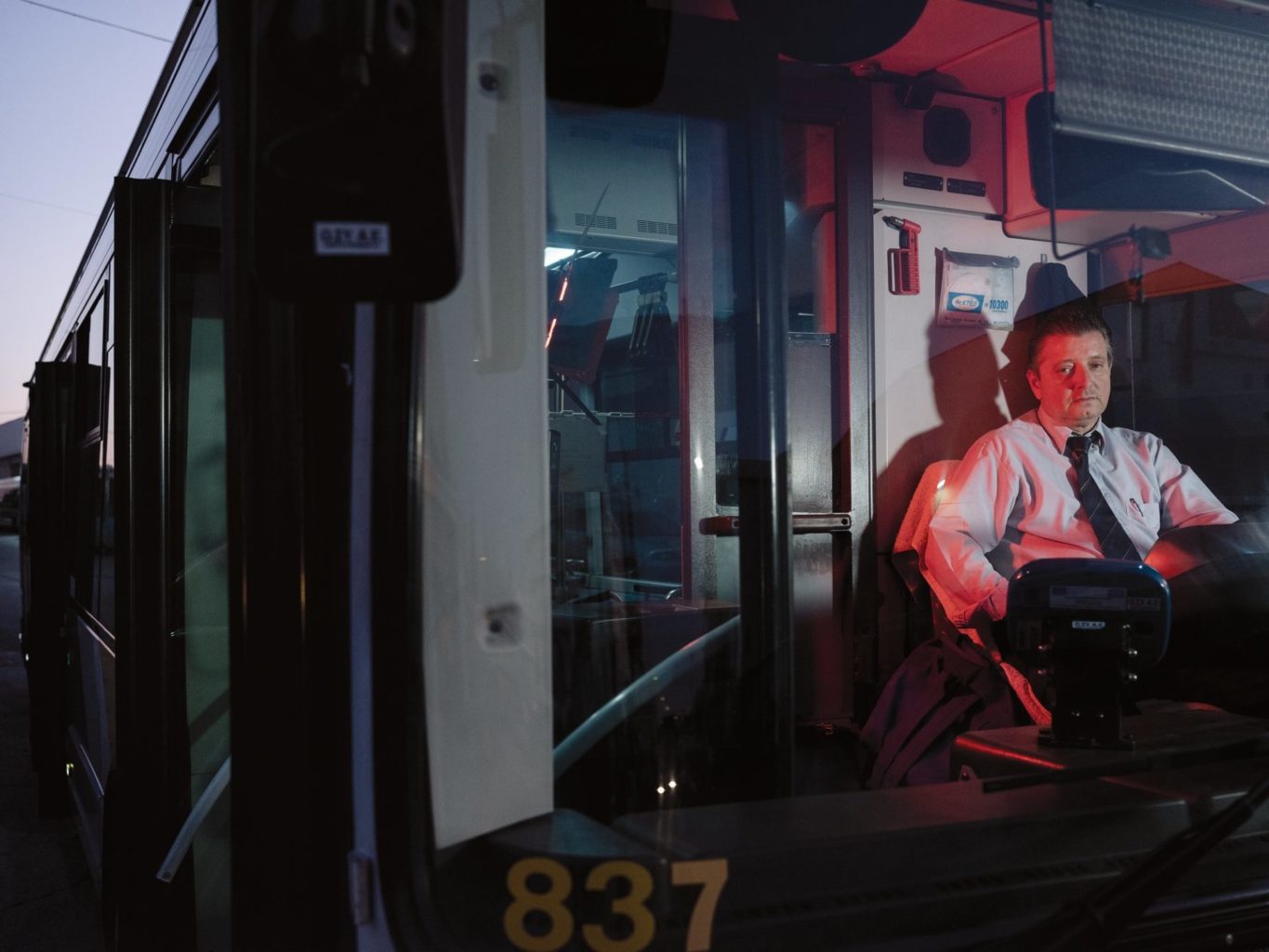
“Now we are driving through an empty city that has no life”
Thodoros Kepeleris, Athens Public Transport Organisation (OASA) bus driver
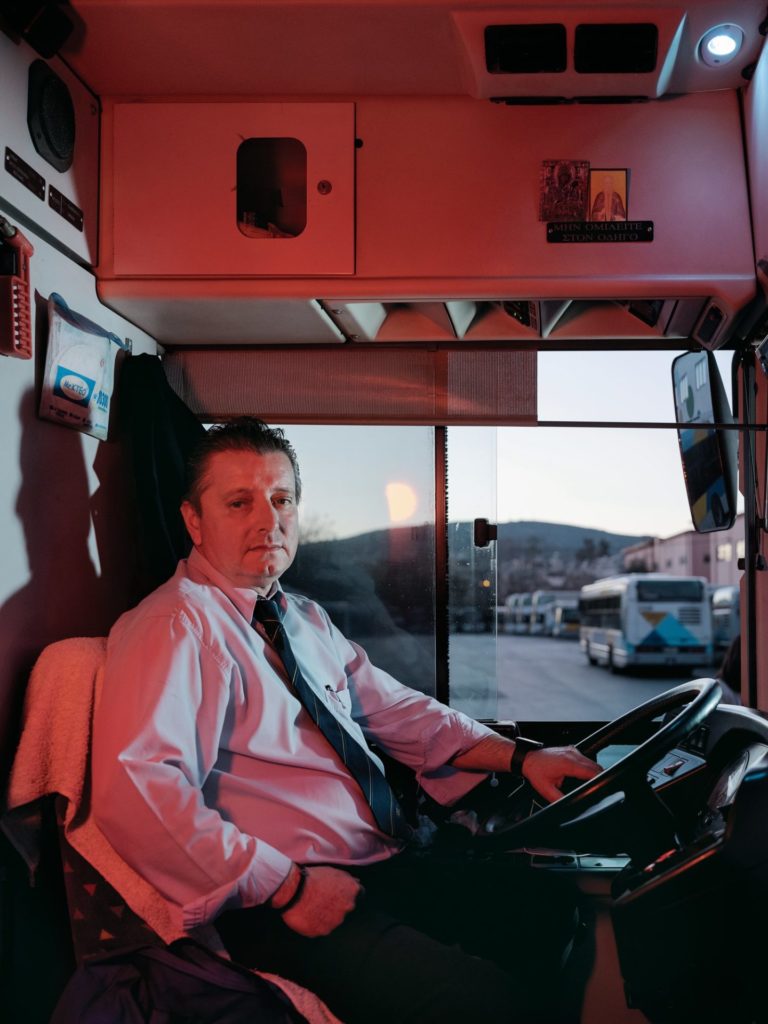
“Life doesn’t end here; we move on”
Thodoros Kepeleris, Athens Public Transport Organisation (OASA) bus driver
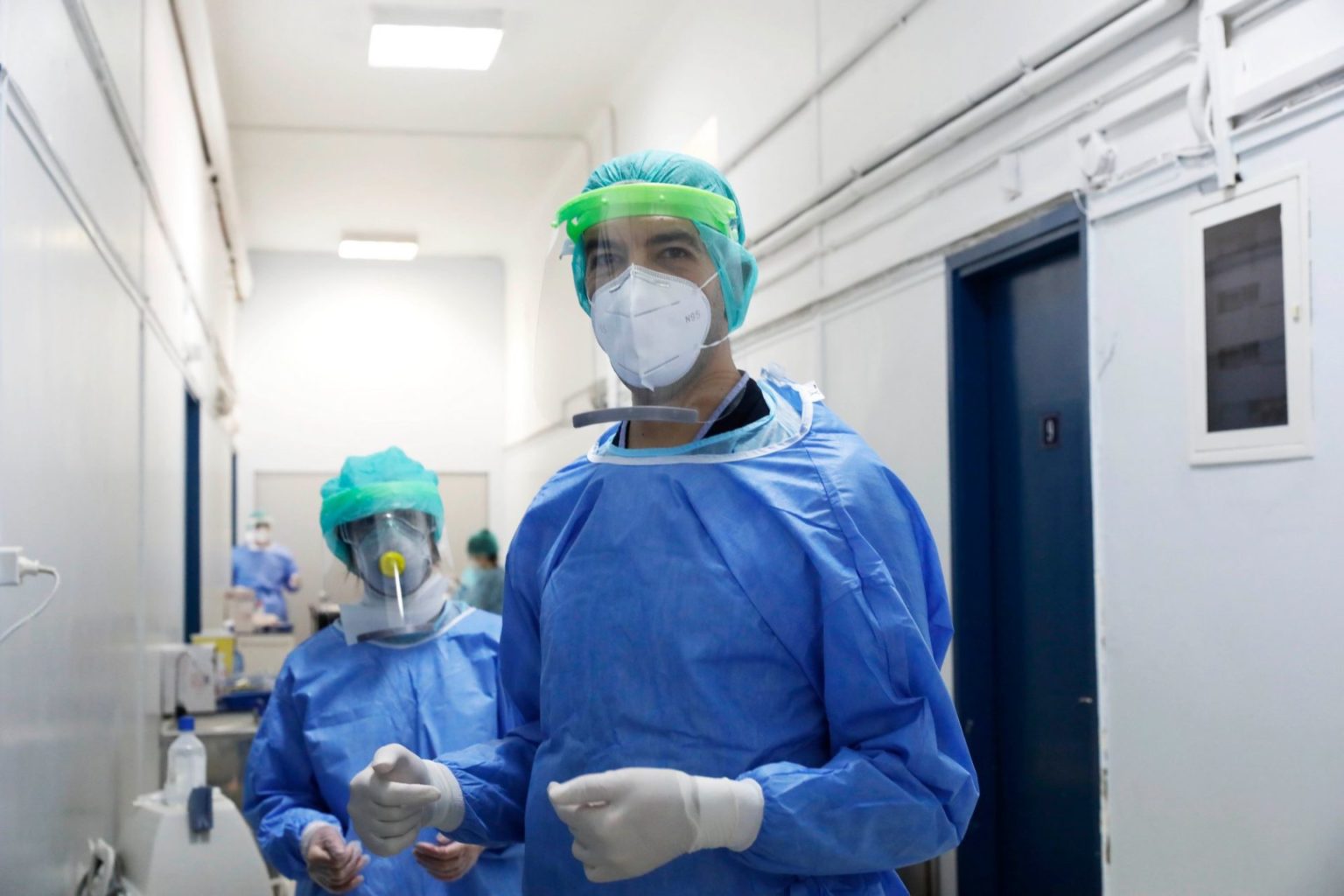
“As I leave the ward, there is no fear and there is no agony; just the feeling that you have done your duty”
Michalis Moutsos, Internist
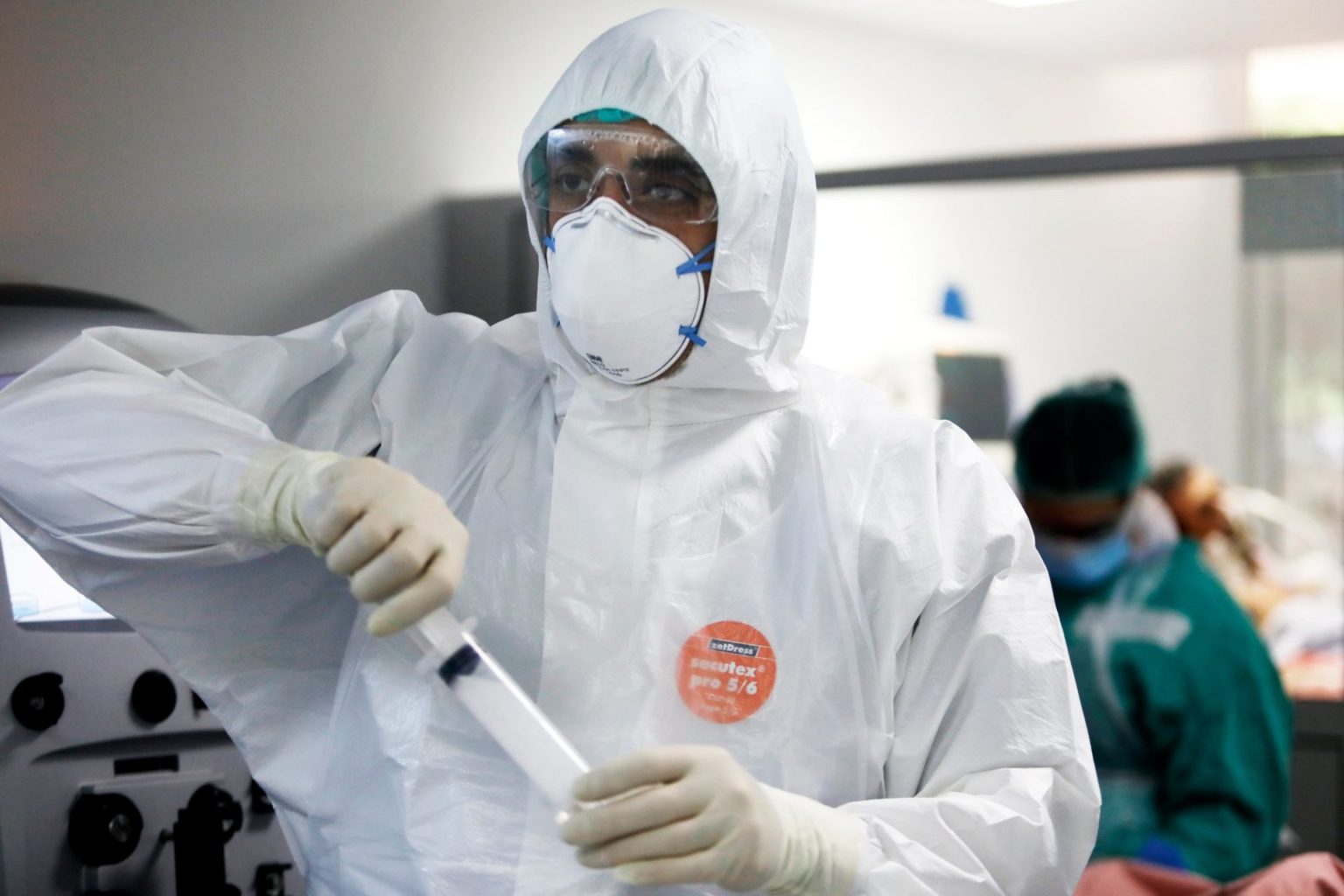
“I am neither a hero, nor do anything special; I’m simply doing my job under slightly harder conditions. That’s all”
Nikos Kakaras – Nurse
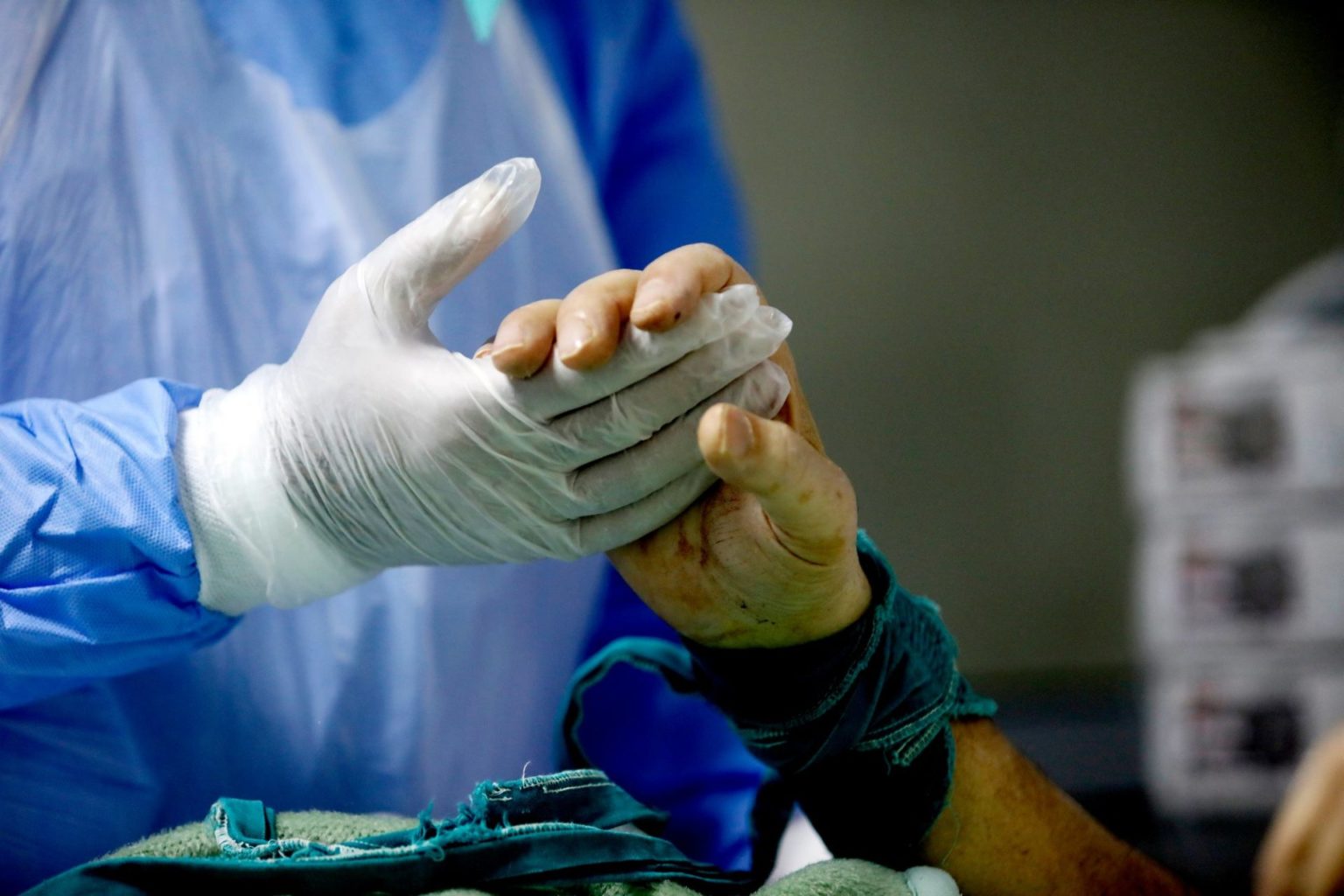
“It looks like a simple clasping of the hand, but it’s so much more. It is the moment that a COVID-19 patient is awakened from sedation. It is the moment when you know that you and your team with stand proudly before the patient and their loved ones. It is the moment that gives meaning to everything you fought for.
A COVID-19 patient is awakened from sedation (people call it “induced coma”) and holds the doctor’s hand tightly.
Kostas Pontikis, Intensive Care Specialist
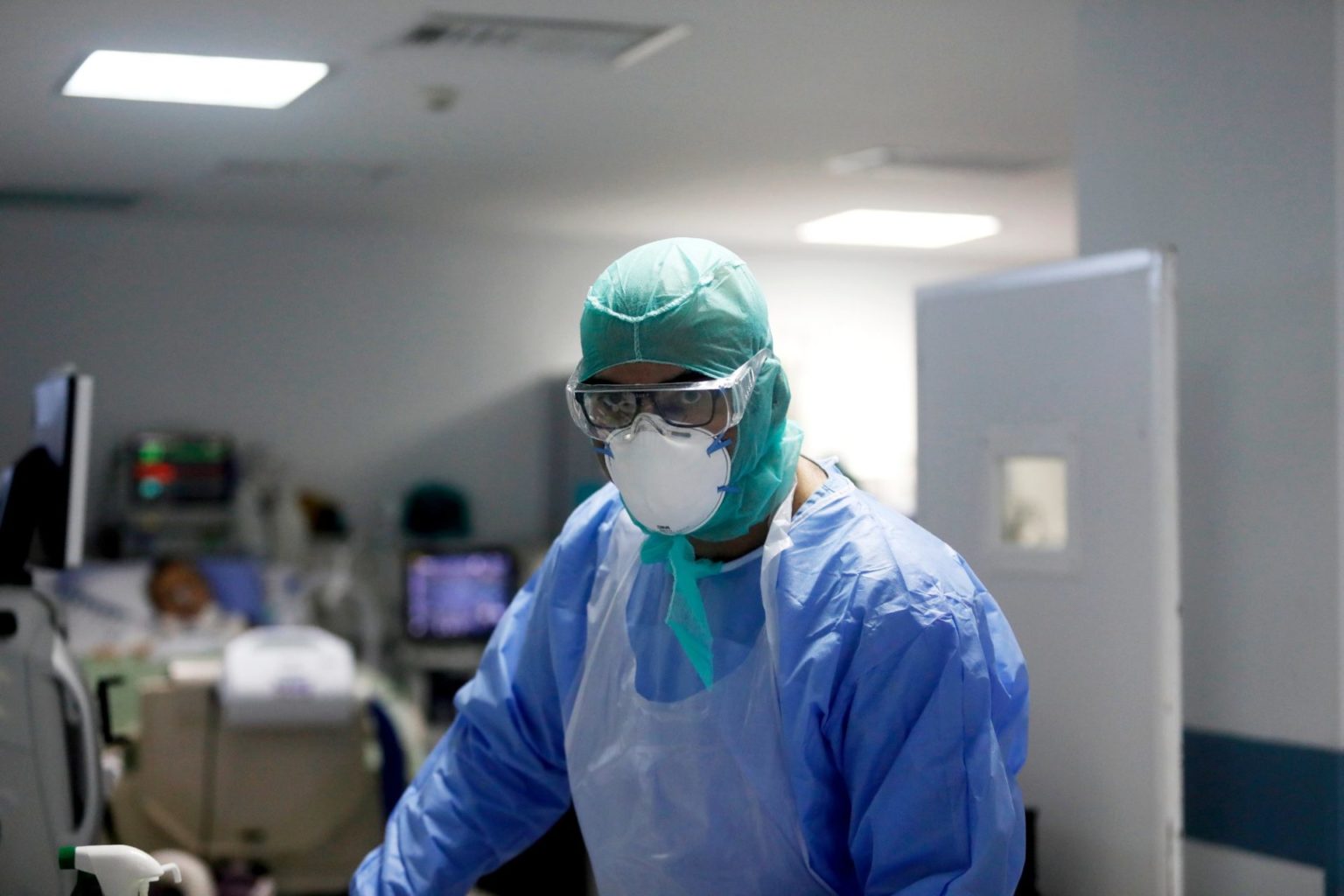
“Sometimes, you know that a patient’s condition is beyond your skills to reverse it. Realistically, this means that may be you should have let go. Yet, you’re still there, fighting. Even you get no direct results, you know that the knowledge gained will be life-saving for others”
An intensive care specialist makes a last attempt to resuscitate a COVID-19 patient, who died a few hours later. He knows that this attempt has negligible chances for success, but feels that this is the least he can do for someone dying – and for himself.
Kostas Pontikis, Intensive Care Specialist
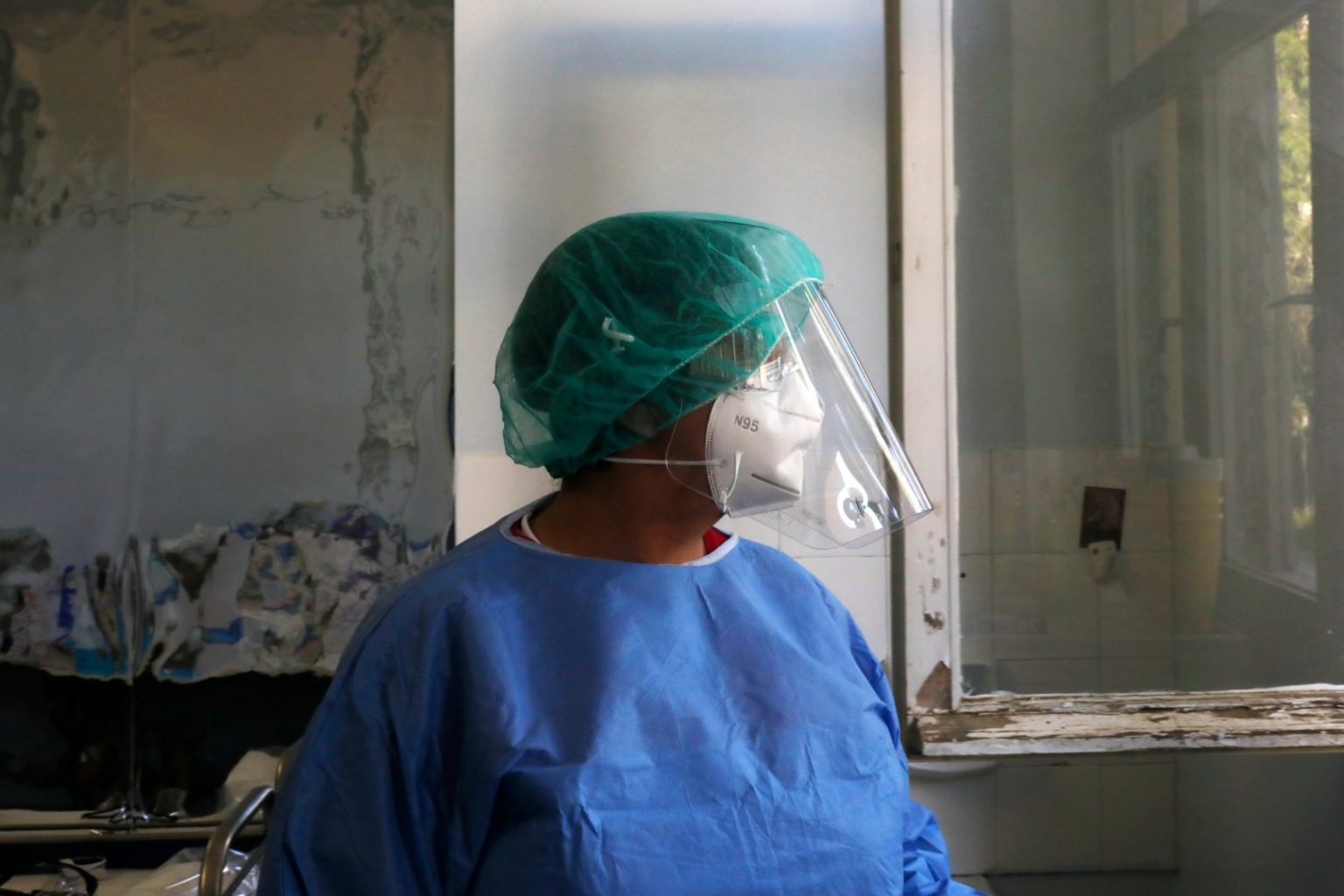
“I’m scared. Yet, you overcome fear when you stand in front of someone who needs your help”
Eleni Kakalou
NHS Doctor
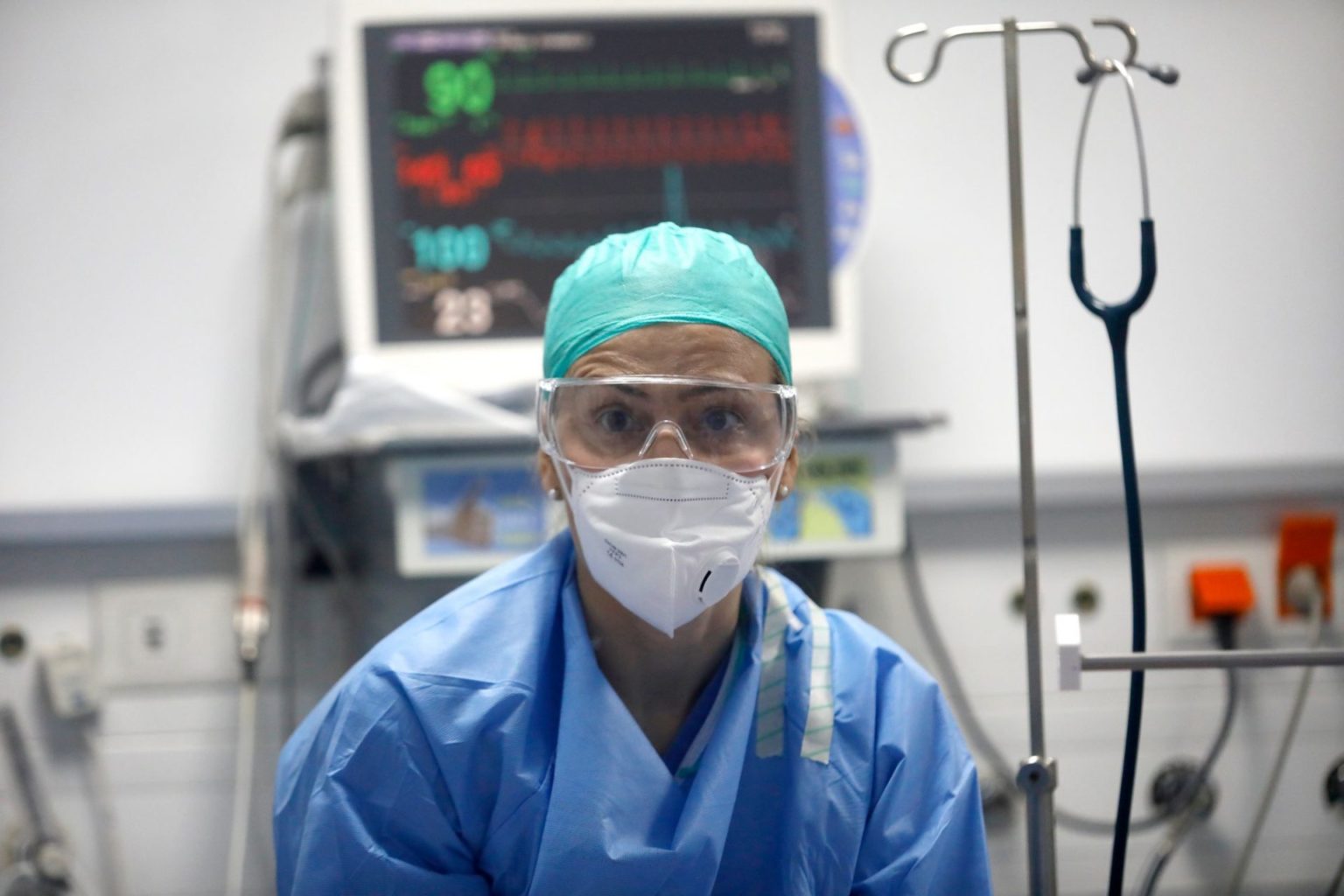
“It’s another day on the front-line for me. It is a battle I have to win for you”
Vaso Chatziara
Anaesthesiologist – Intensive Care Specialist
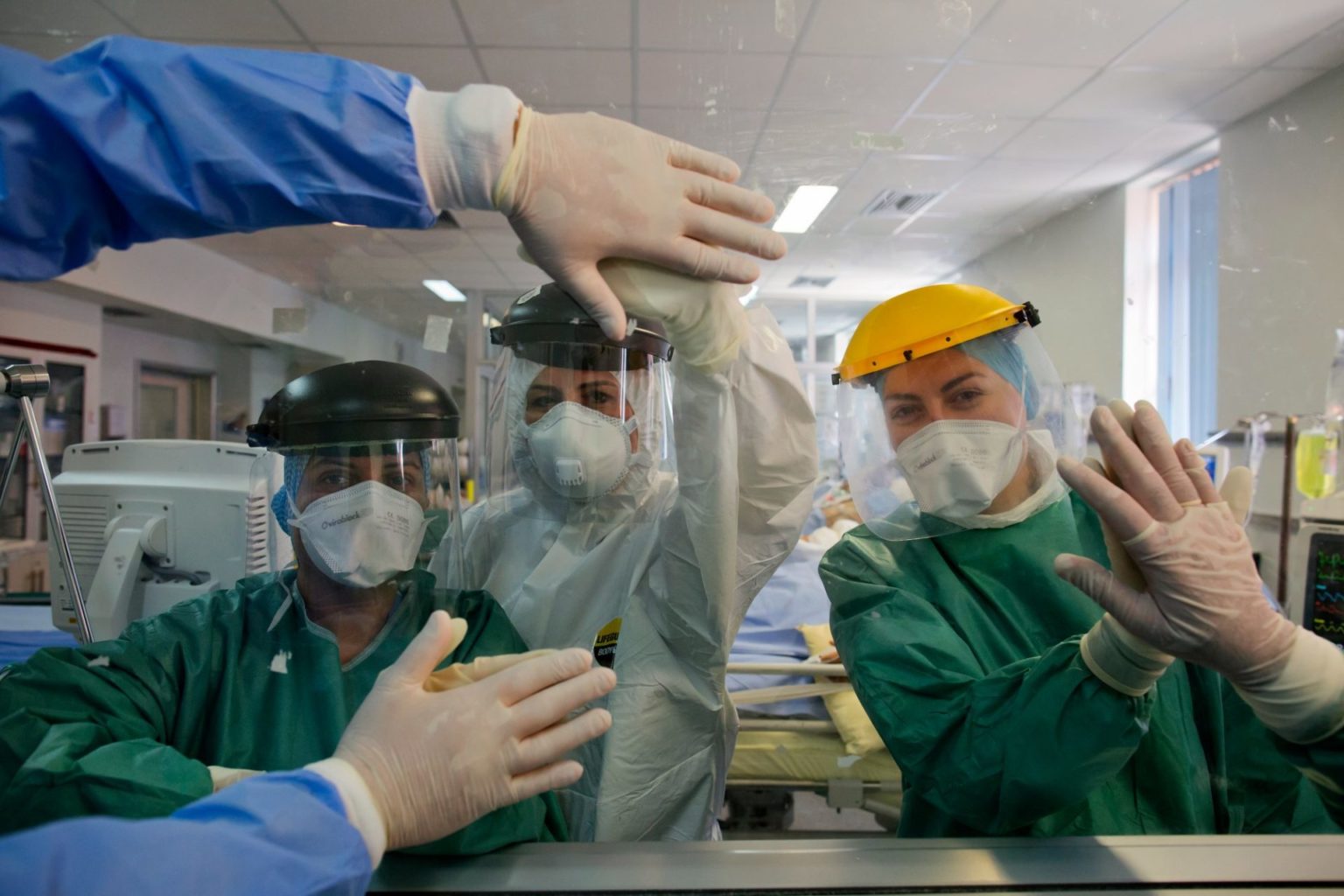
“I will not have a unicellular organism beat me”
Nurses Maria Tsamouri (M), Taimpa-Naz Riaz (L) and Iordana Moskofi (R), pose behind the glass separating the Intensive Care Unit (ICU), touching the hand reflections of doctors Giorgos Dimopoulos (R) and Dimitris Konstantonis (R), at the hospital “Attico” in Haidari, on 15 April 2020. Giorgos Dimopoulos is an intensive care medicine professor at the University of Athens, head of the coronavirus unit at “Attico” Hospital. He is married, with children.
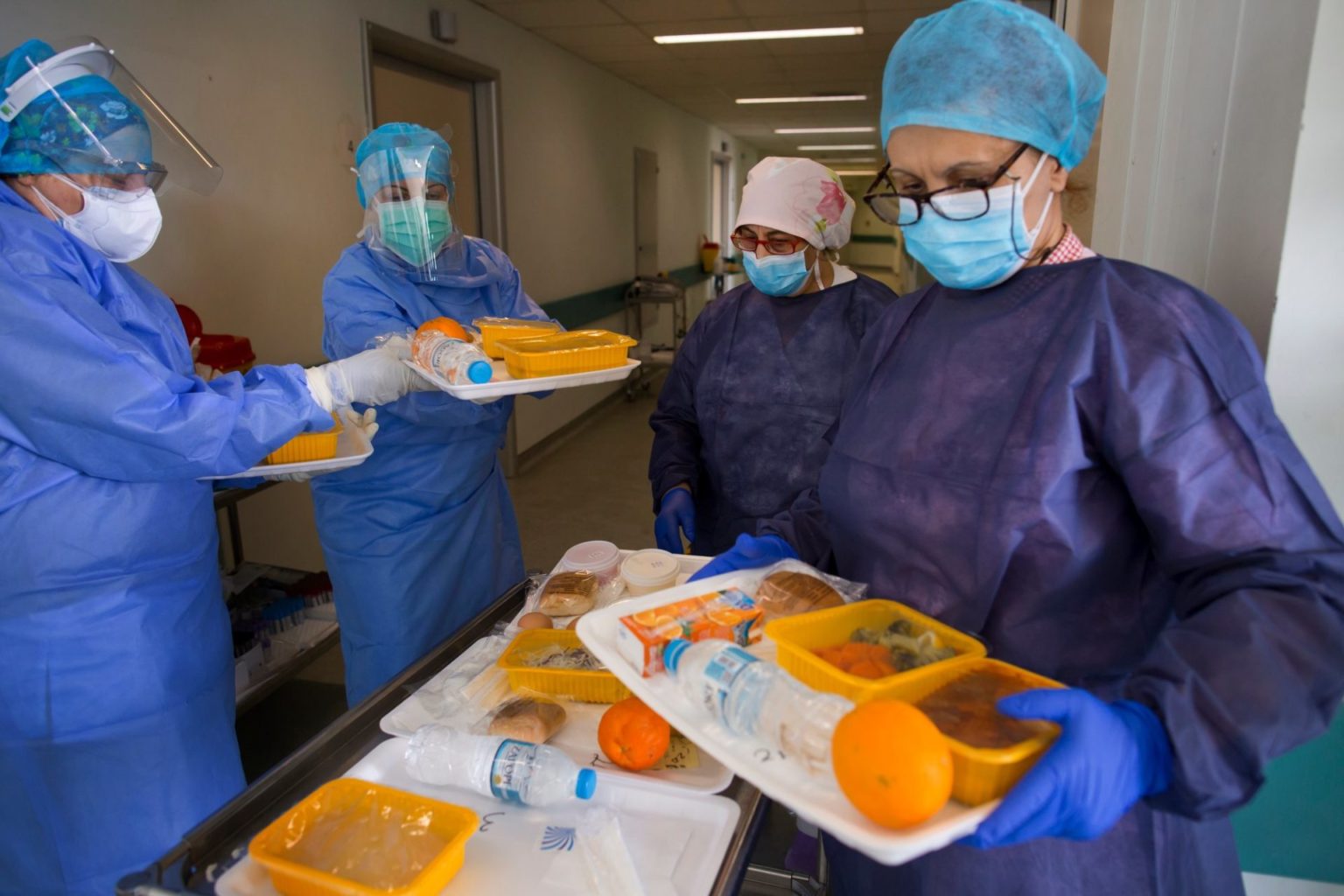
Food service worker Eleni Griva (R), 51 y.o., and nurses serve meals to patients hospitalised for COVID-19 at “Attico” Hospital in Haidari, 15 April 2020. Eleni Griva is married with two children.
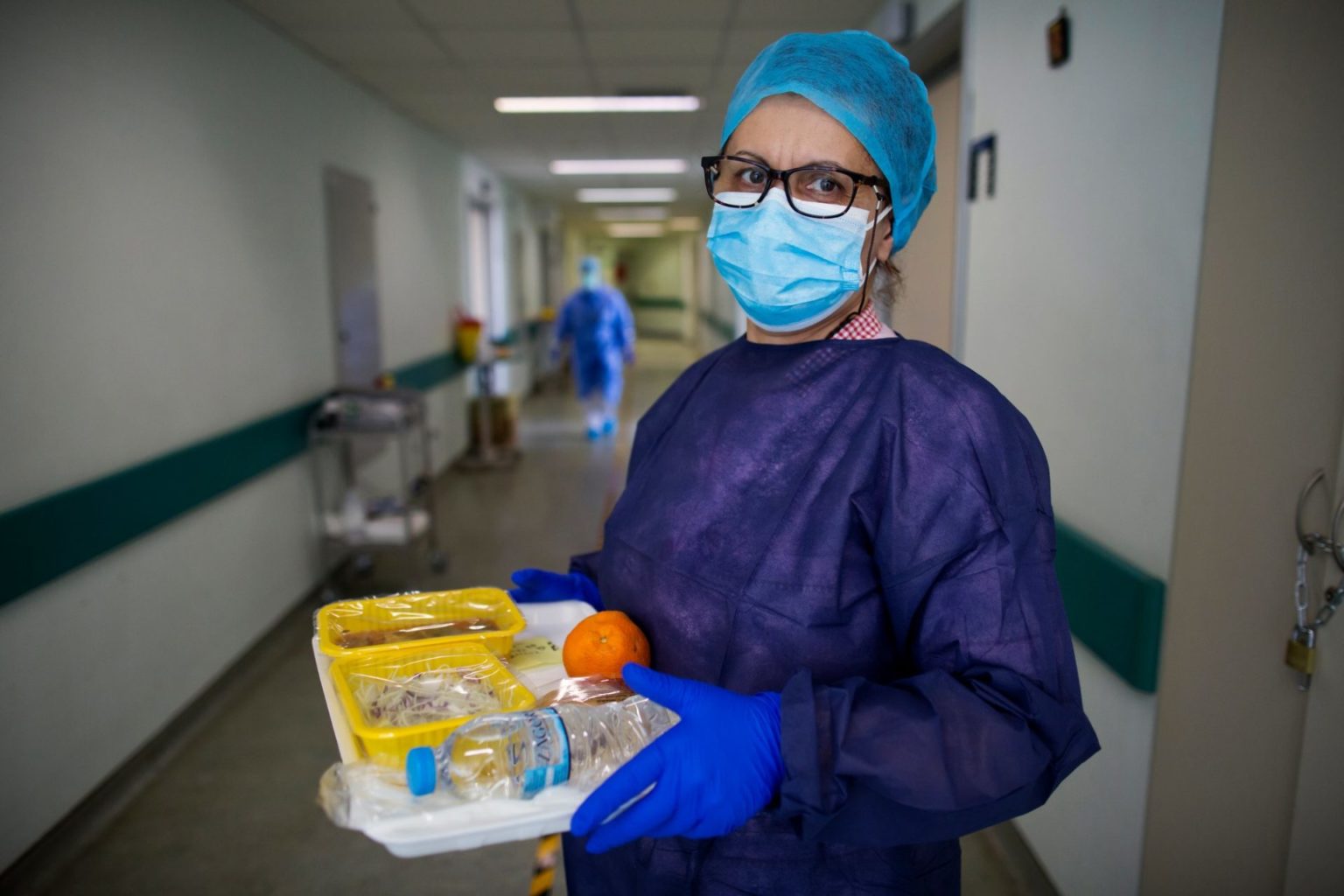
“At first it was uncomfortable, but then we felt really nice as we provide for patients, who have none of their own here; they are completely on their own.”
Food service worker Eleni Griva, 51 y.o., poses in the COVID-19 patient ward, at “Attico” Hospital in Haidari, 15 April 2020. She is married with two children.
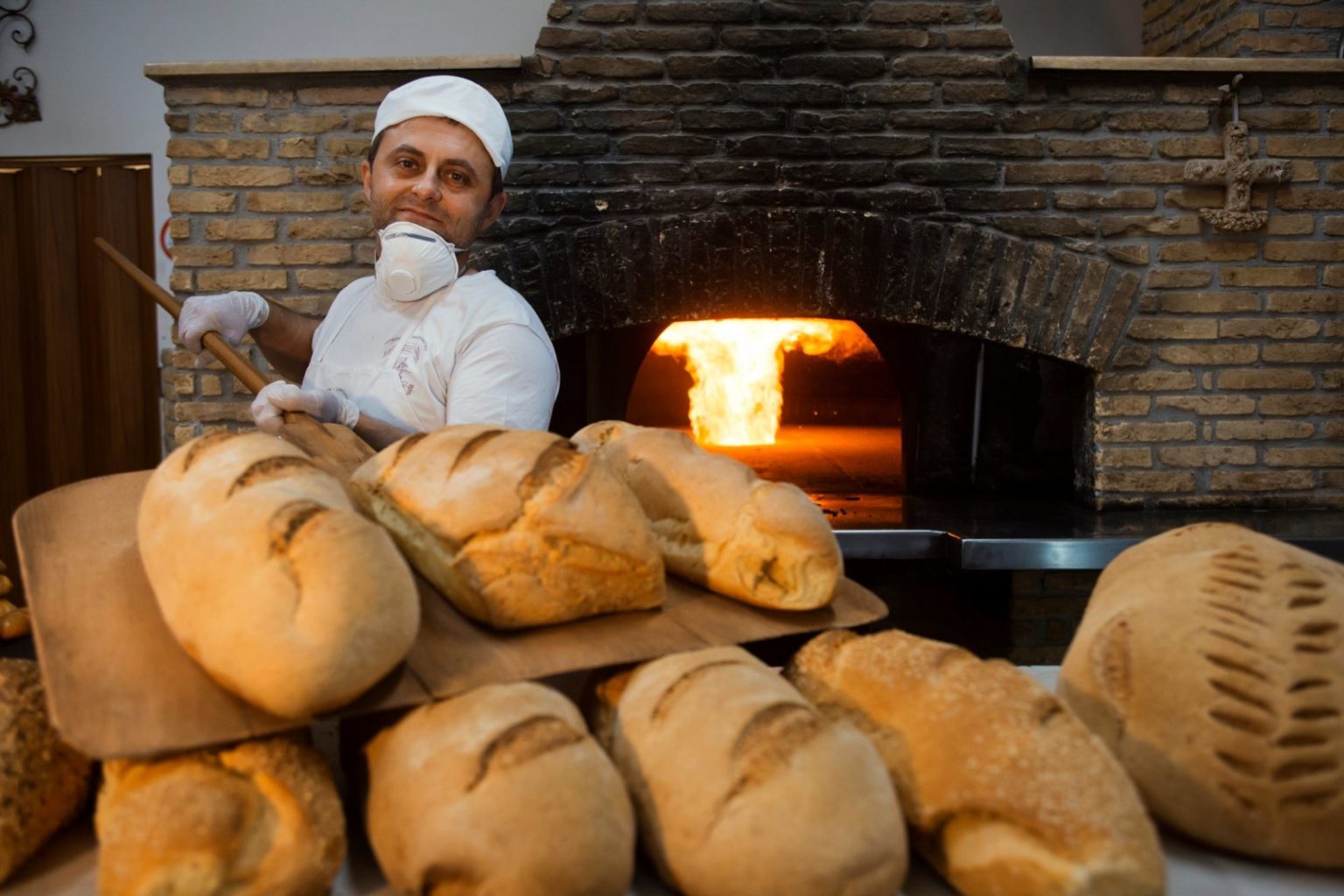
“Our job is hard; it’s more like a “calling”. We are frontline workers, but I can’t stop working for people. There is fear, but one has to go on; bread is a necessity”
Baker Spyros Achmeti, 41 y.o., as he takes bread out of the oven, at his bakery in Kalyvia Thorikou, 13 April 2020. He has been a baker for 22 years. He is married with two children.
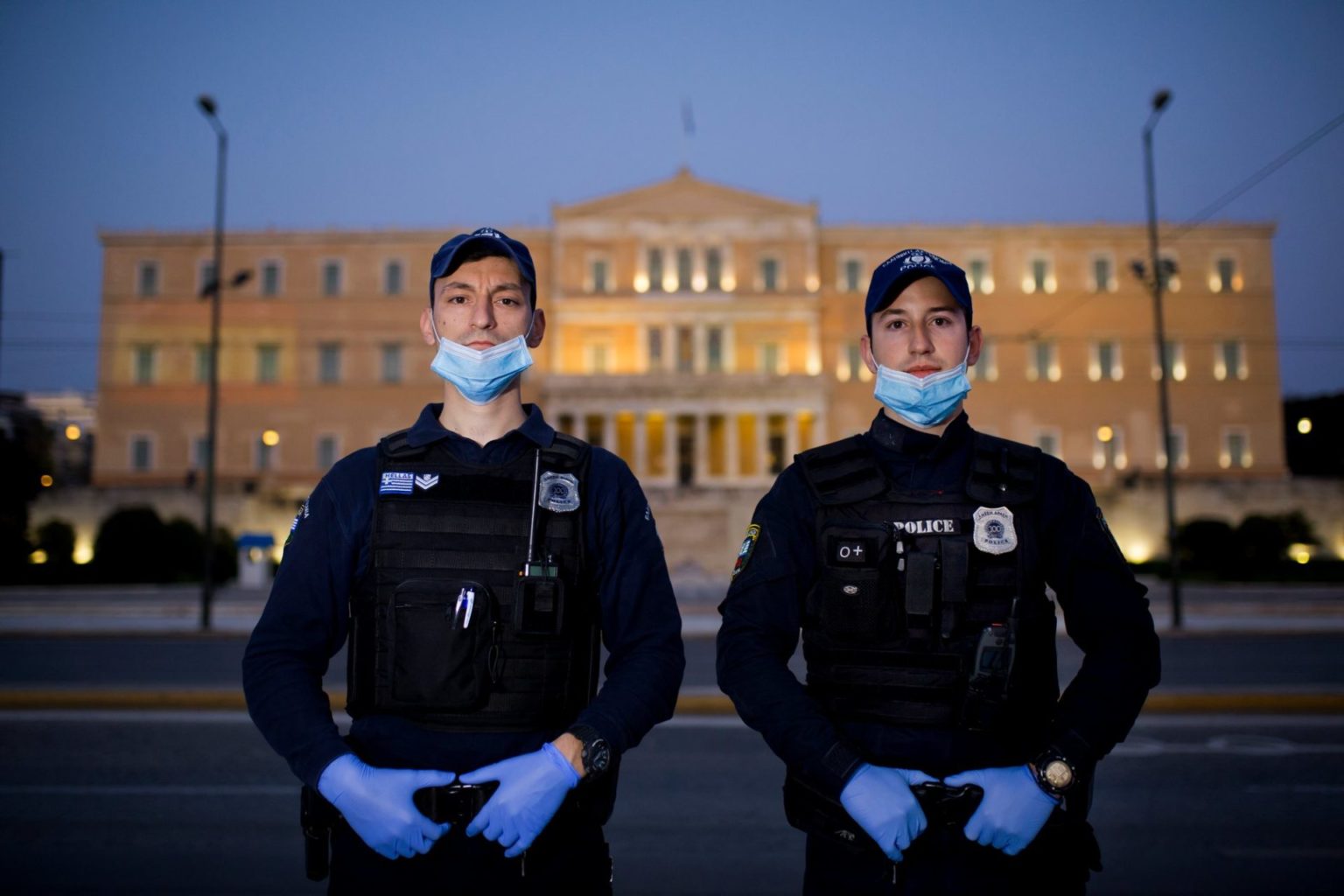
“It's hard to not see your loved ones, your family, or to have to be out to protect them as well as everybody else in Attica”.
Sergeant Stergios Kakarontzas (L), 28 y.o. and constable Charalambos Baylis (R), 26 y.o., pose in front of the Parliament, Athens, 12 April 2020. Stergios Kakarontzas in not married and lives by himself.
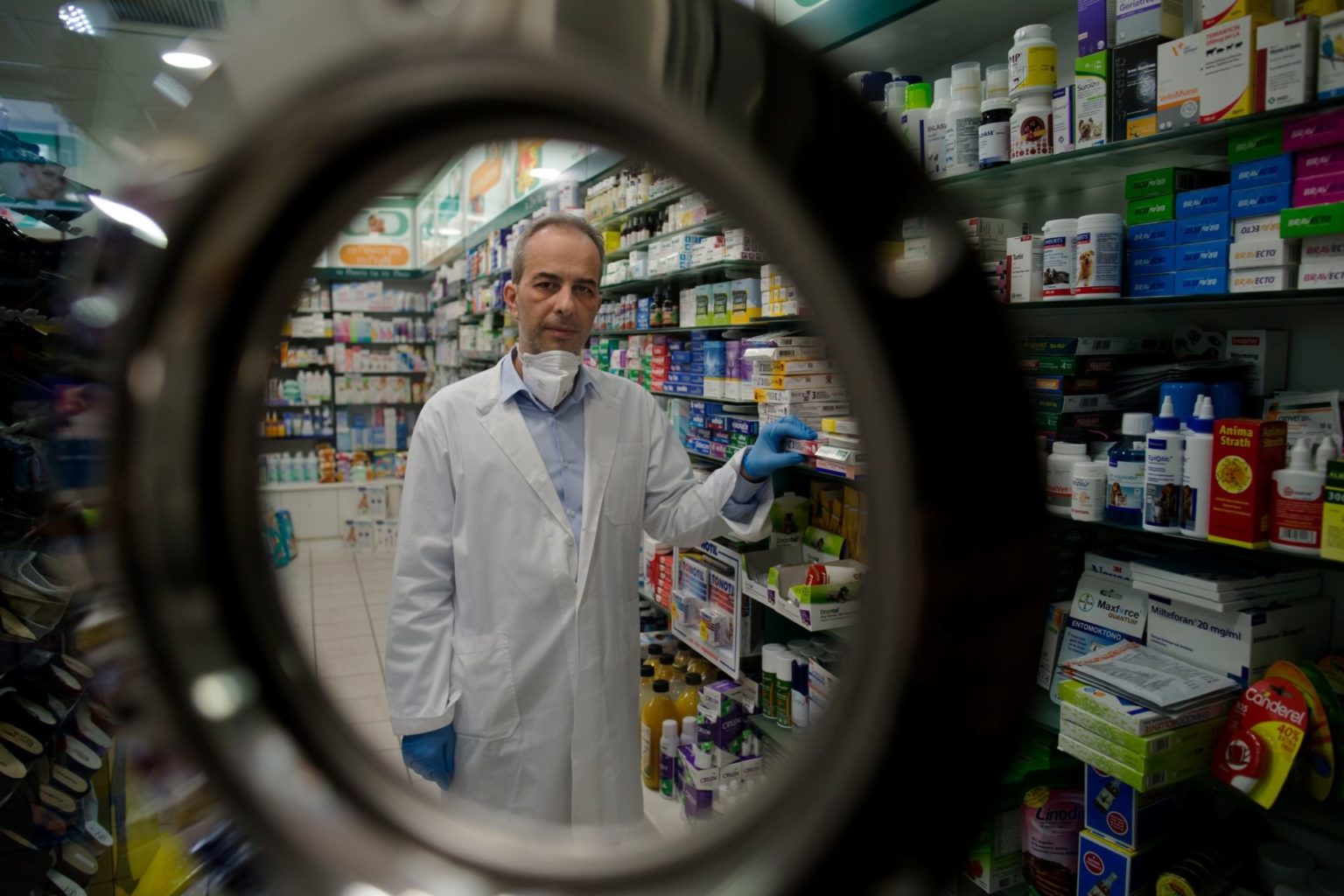
“It’s a huge responsibility: many people depend on me and if I or anyone working here gets infected and I have to close down, these people won’t be able to get their medicines”
Pharmacist Lambros Kouris, 42 y.o., in his pharmacy in Kalyvia Thorikoi, 10 April 2020.
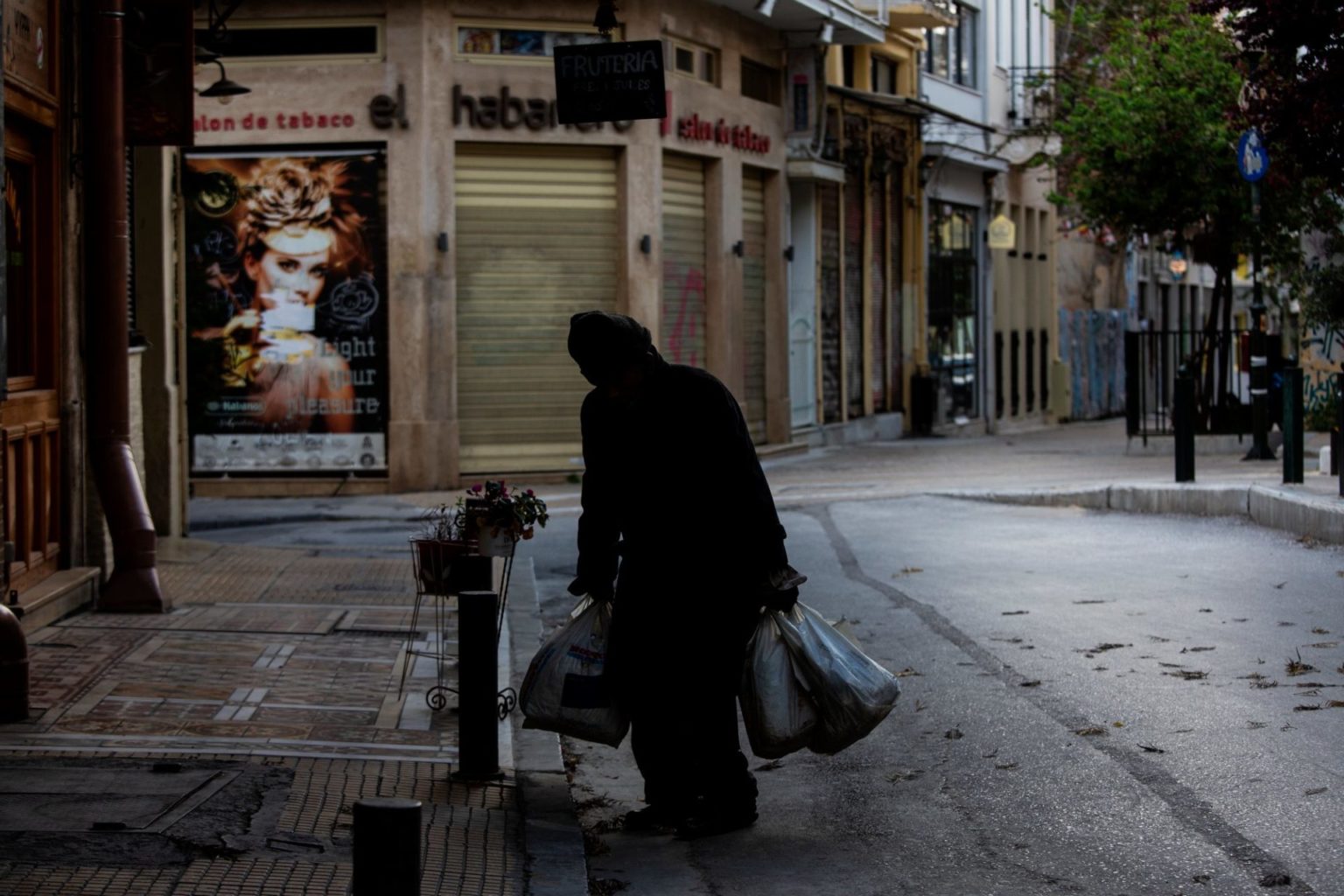
A homeless man carries his belongings in bags, wandering before closed shops in the desolate Psyrri square, during the COVID-19 lockdown, downtown Athens, Tuesday 21 April 2020.
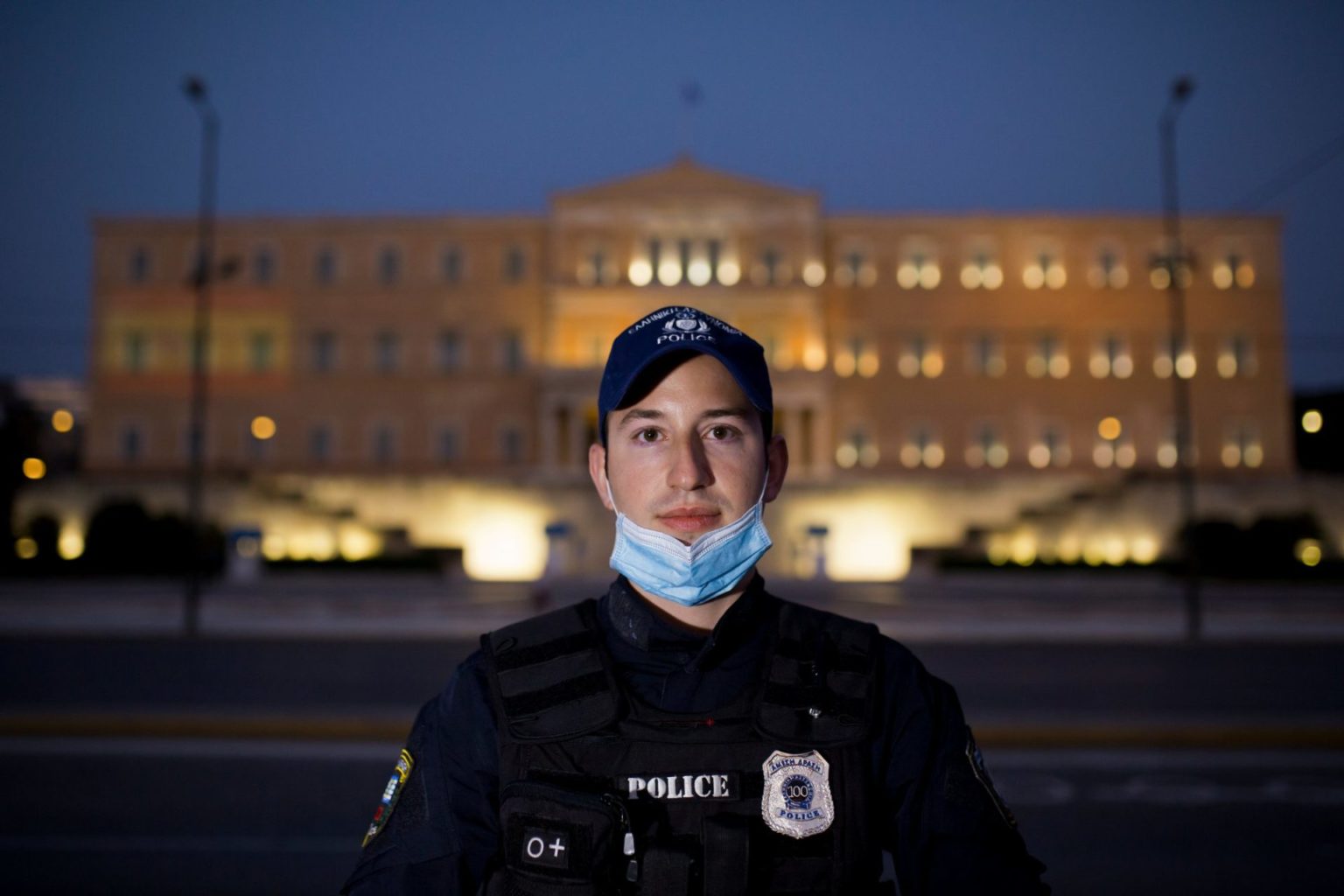
Constable Charalambos Baylis, 26 y.o., poses in front of the Parliament, Athens, 12 April 2020.
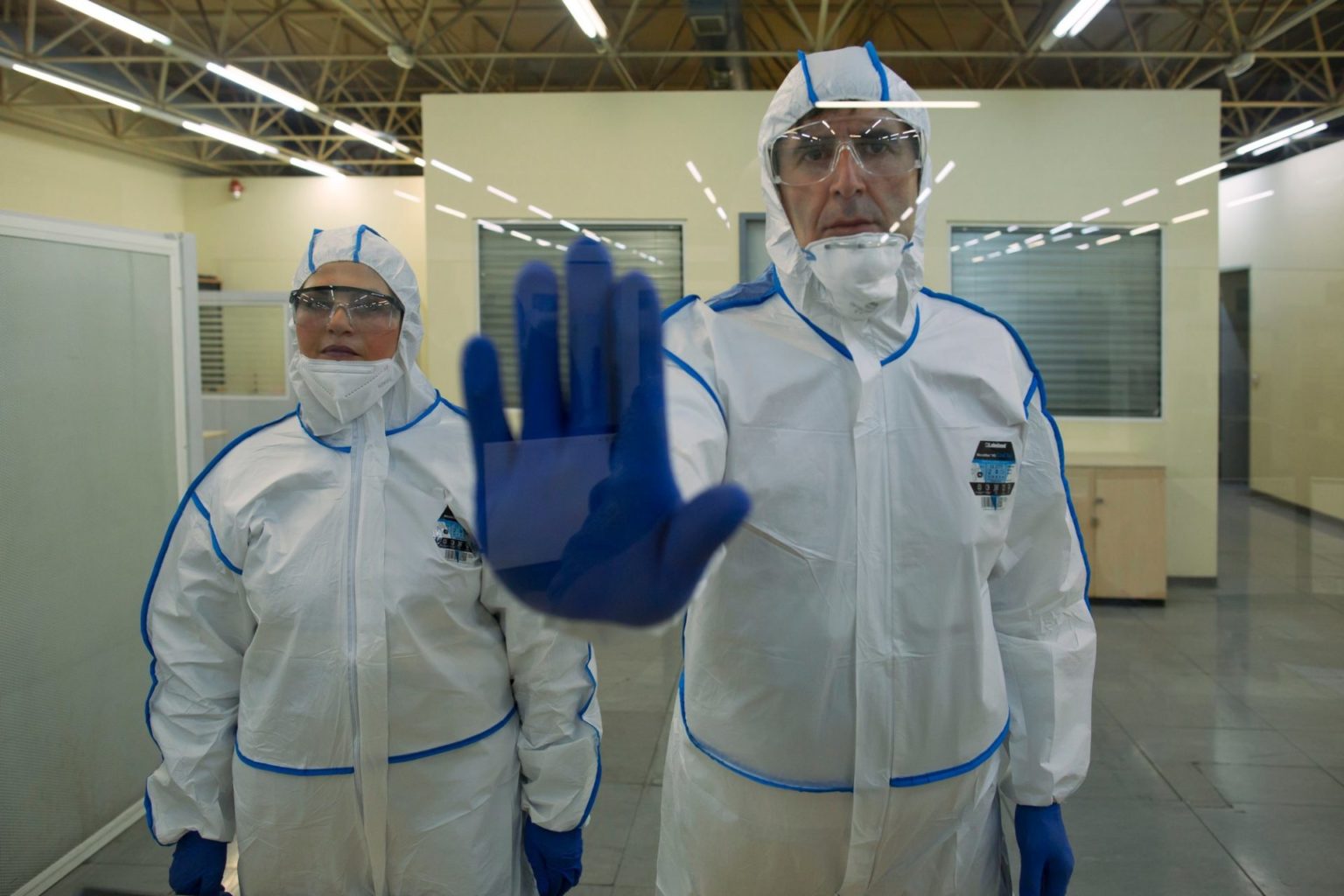
National Emergency Aid Centre (EKAB) Rescuers, Konstantina Papachristodoulou (L), 39 y.o. and Thomas Koulakiotis, 48 y.o., in the operation centre of EKAB, 11 April 2020.
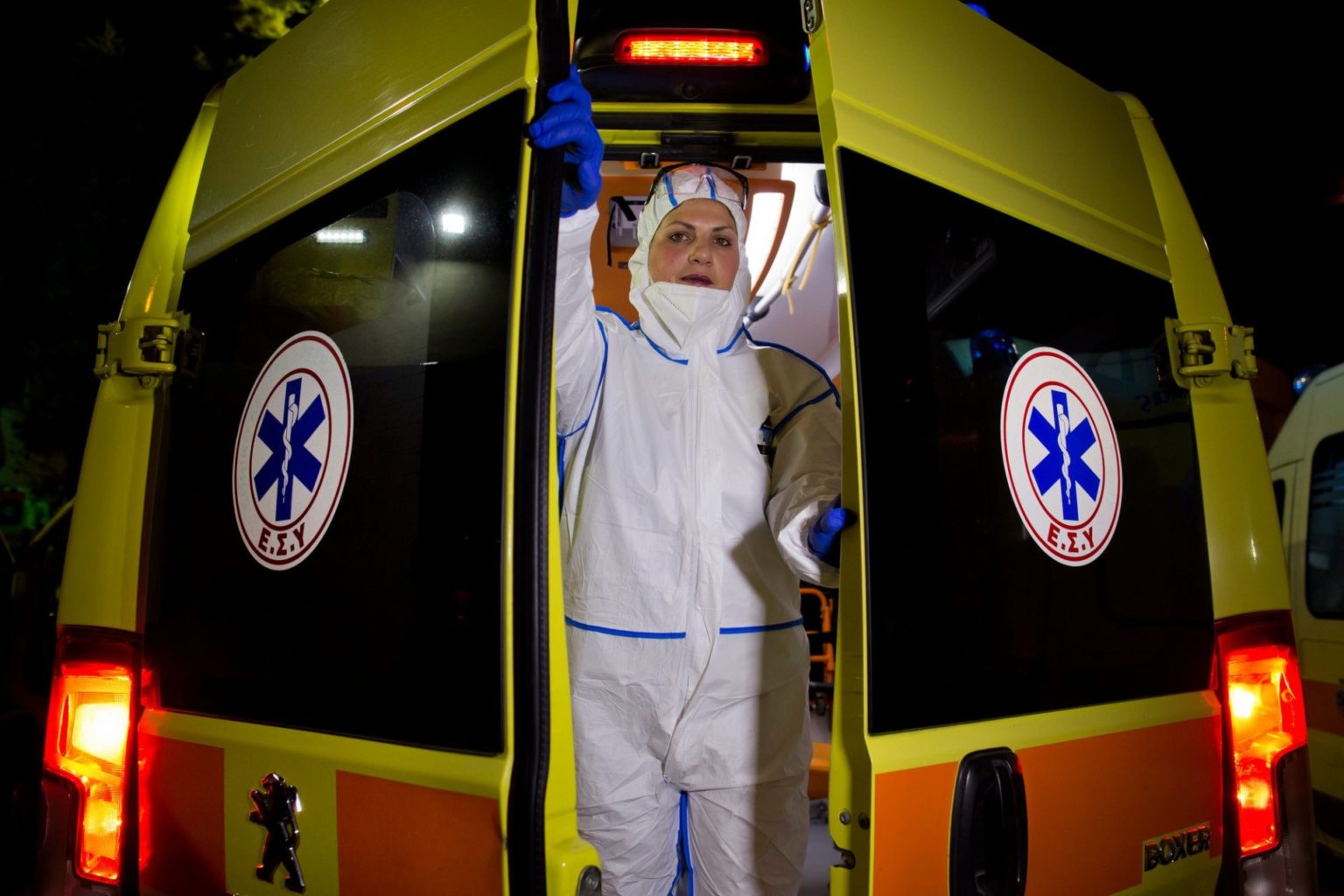
“My friends say I’m a hero, but I don’t feel like a hero; I’m just doing my job and what I really love”
National Emergency Aid Centre (EKAB) Rescuer, Konstantina Papachristodoulou (L), 39 y.o., poses in an ambulance at the operation centre of EKAB, 11 April 2020. Katerina Papachristodoulou is married to a National Emergency Aid Centre (EKAB) rescuer and has one child.
